



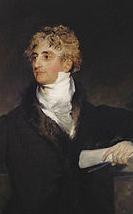



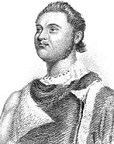


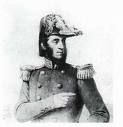
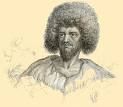













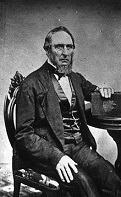












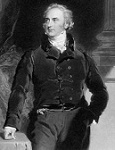






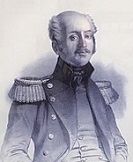
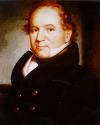



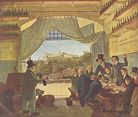
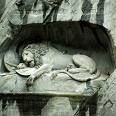
1820 Pop.: Austria: 12.0M, Britain: 20.8M, France: 30.4M, Germany: 26.0M, Italy: 18.0M. The Fourth (4th) U.S. Census reports a total pop. of 9,638,453 in a land area of 1,749,462 sq. mi. (5.5 per sq. mi.); New York City: 122K; U.S. immigration records begin to be kept; until 1890 most immigrants come from W and N Europe (England, Ireland, Germany, Scandinavia); from 1820-1920 4.25M immigrate from Ireland. The U.S. becomes the world's largest producer of cotton, with annual production of 335K bales, which rises to 3.8M in 1860 (two-thirds of all U.S. exports). On Jan. 1 the Trienio Liberal (Liberal Triennium) (ends 1823) begins when Carbonari under L:t. Col. Rafael del Riego y Nunez (Nuñez) (1784-1823) stage a successful liberal anti-absolutist revolt in Spain (ends 1823), and on Mar. 10 seize Ferdinand VII, forcing him to restore the liberal constitution of 1812; the bicameral Cortes converts uncultivated and crown lands into private property, dissolves monasteries and convents, and bans emigration. On Jan. 28 Russian explorers Fabian Gottlieb von Bellinghausen (1778-1852) and Mikhail Petrovich Lazarev (1788-1851) of the sloops Vostok and Mirny become the first to see the mainland of Antarctica, disproving the claim of Capt. Cook that it is impossible to find land in the S ice fields, going on to circumnavigate the continent 2x; in 1822-5 Lazarev circumnavigates the globe for the 3rd time on the frigate Kreyser. On Jan. 29 blind, deaf, and mad king (since Oct. 25, 1760) George III (b. 1738) dies in Windsor Castle, and his son the Prince Regent ("Prinny") ("Prince of Whales") succeeds him as George IV (1762-1830) (53rd British monarch) (until June 26, 1830), going on to be dominated by favorites and lead a dissolute irresponsible life, which pisses-off the public who have to pay for his lifestyle; his unsuccessful attempts to divorce his Rubenesque Catholic wife Caroline of Brunswick (1768-1821) (who is excluded from the coronation, and later arrives from Italy to claim her rights as queen consort) lead to widespread unpopularity, and a bill introduced before the House of Lords to deprive her of her title and dissolve the marriage on the grounds of adultery is withdrawn, although the public doesn't know about her bad B.O. and the pair's mutual infidelities; subject of the 1996 Sheree Folkson film A Royal Scandal; George IV orders his boots to be made to fit his left and right feet individually, ending the design of shoes for wear on either foot; in Apr. after delaying for fear of offending the old kinga, two productions of Shakespeare's King Lear are put on. In Jan. a devastating fire in Savannah, Ga. virtually destroys it, and it has to be rebuilt. On Feb. 3 Gia Long "the Great Conquerer" (b. 1762) dies, and his 4th son Minh Mang (1791-1841) becomes Nguyen emperor #2 of Vietnam (until 1841), presiding over its Golden Imperial Age, fighting French imperialism and promoting Confucianism and xenophobia toward Euros and Christians. You must be a saleslady whom I never met? A 60-year struggle ensues for the French throne as the French go republican and throw all the royal bums out? On Feb. 13 (evening) the Duke of Berry, son of the Count of Artois (Charles X) (last heir of the Bourbon line) is stabbed and killed ("I am murdered; I am holding the hilt of the dagger") as he leaves the Opera by royal stable boy (a Republican) Louvel, leaving his nephew Louis Napoleon (later Napoleon III) the male heir to the French throne; his post. son Henri, Comte de Chambord (1820-83), grandson of Charles X is born 7 mo. later (Sept. 29) to the Duchesse de Berry, but the Duke of Orleans (Comte de Paris) contests the legitimacy of his birth, and they become lifelong rivals; French diehard monarchists call the child the Dieudonne (gift from heaven) and the Dove of Peace, and cling to him until his death; the shock causes the ultra-royalist party to gain strength; meanwhile ultra-royalist Francois-Rene de Chateaubriand sides with the court again, writing "Memoires sur la Vie et la Mort du Duc", returning him to royal favor and getting him appointed ambassador to Prussia in 1821, to the U.K. in 1822, and foreign affairs minister in Dec. 28, 1822-Aug. 4, 1824. On Feb. 18 after Lord Cochrane captures Valdivia and tries to occupy the Chiloe Archipelago, last stronghold of the Spanish in Chile, the Battle of Agui at Ft. Agui in Fuerto de Agui near Ancud, Chiloe is a V for the Spanish royalists over 60 Chilean patriots. On Feb. 20 royalist former PM (1815-18) Armand Emmanuel Sophie Septimanie de Vignerot du Plessis, 5th Duc de Richelieu (1766-1822) becomes PM #5 of France (until Dec. 14, 1821), resigning after being caught in the middle between the liberals and ultra-royalists. In Feb. 500-1K free blacks sail from the Barbados to found the country of Liberia in West Africa, sponsored by the Washington (Am.) Colonization Society, becoming the only sub-Saharan African country never to be under European control; the U.S. dispatches naval vessels to the coast of West Africa to patrol for slavers until 1823; on Jan. 7, 1822 Monrovia (named after Pres. Monroe, becoming the 2nd nat. capital named after a U.S. pres. after Washington, D.C.) (modern-day pop. 1M) in Cape Mesurado is first settled, becoming the first permanent African-Am. settlement in Africa; by 1847 3,198 arrive from the Lesser Antilles in the Caribbean Islands. On Mar. 3 the Missouri Compromise, drafted by U.S. sens. William Pinkney et al. approves Missouri's admission as a slave state, then divides future U.S. states into slave and free along the Mason-Dixon Line, which is extended from the Penn. border down the Ohio River to the Mississippi River at 36 deg. 30 min. N lat. (Missouri's S boundary); on Mar. 15 "Pine Tree State" Maine is admitted as the 23rd U.S. state, but Missouri must wait until next year; handsome Kentucky Rep. Henry Clay (1777-1852) becomes known as the Great Compromiser; Thomas Jefferson writes the soundbyte that the resurgence of the slavery issue is "Like a fire bell in the night. This momentous question awakened and filled me with terror. I considered it at once the knell of the Union"; those against the expansion of slavery are often really against the introduction of blacks into all-white states, incl. Abraham Lincoln? On Mar. 9 Pres. Monroe's daughter Maria Hester Monroe (1803-50) marries his personal secy. (her first cousin) Samuel Laurence Gouverneur (1799-1867) (son of her mother Elizabeth's sister Sarah), becoming the first daughter of a pres. to wed in the White House (next 1842); too bad, only 40 guests, private, and little public interest. On Mar. 25 new Hawaiian king Kamehameha II writes a letter to Russian tsar Alexander I, claiming about Russian claims to Kauai (Kaua'i) and the role of Russian subjects in supporting a revolt; he never receives a reply because the letter ends up in the U.S. instead of Russia, and goes on to seek an alliance with the British and French to counterbalance the Russkies; meanwhile he moves the royal court to Lahaina, appointing 6'3" 400 lb. John Adams Ki'iapalaoku Kuakini (1789-1844) (brother of his favorite wife Ka'ahumanu) as the first royal gov. of Hawaii Island. In spring after reading a passage in the New Testament admonishing those who lack wisdom to seek it from a divine source, 14-y.-o. Joseph Smith Jr. prays out loud for the first time in his life and receives his First Vision in the Sacred Grove in Manchester, N.Y., in which an evil power attempts to overcome him until he is rescued by two shining personages, which turn out to be Jehovah and Jesus, who tell him that all existing churches teach corrupted doctrines, becoming the basis of the Mormon beliefs that Jehovah has a body and that Mormonism is the only path to salvation; "I saw a pillar of light exactly over my head above the brightness of the sun, which descended gradually until it fell upon me"; one spoke Joseph's name, pointed to the other, and said, "This is My Beloved Son. Hear Him!"; too bad, he doesn't mention it until June 1830, and changes the dates and other details, embellishing it as he goes, making it pure historical fiction, while the LDS Church turns it into their #1 founding dogma?; this is alleedly followed by an 1823 appearance of angel Moroni, who, having a pipeline to God had told him the true history of the American continent, how it was first colonized by the Lost Tribes of the Jews, then visited by fictional Bible figures incl. Jesus Christ, who gave them the true religion, after which there was a dreadful apostasy, causing their skin to darken as punishment (creating the Indians), and how now that his pure whiteness has arrived, he will become head of the one true, new, and improved church and get all the worshipful, adoring white poontang he can shake his fork at as compensation, making everybody look like snack-and-seal Elvis?; of course, he has to endure a get-the-odors-out 4-year college-free worthiness quest before being permitted to graduate into the big leagues of come-hungry-leave-happy prophetdom? On Apr. 3-8 the Scottish Insurrection (Radical War) sees radical weavers revolt against the govt. and get crushed, discouraging radical unrest, after which the 1832 Reform Act gives Glasgow its own MP. On Apr. 8 the 6'8" (203 cm) armless topless Venus de Milo sculpture of Aphrodite by Alexandros of Antioch is discovered on the Greek island of Milos (Melos) by peasant Yorgos Kentrotas, then given by French naval officer Jules Sebastien Caesar Dumont d'Urville (1790-1842) to French ambassador to Turkey (1815-21) Charles-Francois de Riffardeau, Marquis de Riviere (1763-1828), who arranges for its purchase by the French govt.; Riviere is created duke in 1825. On Apr. 18 Hawaii is "settled" by Calvinist missionaries from New England, who go to work spreading Christianity, sex guilt, and disease - cover those what up? On Apr. 21-24 Guatemala City is unsuccessfully attacked by Colombian insurgents led by French pirate (now commodore) (friend of Simon Bolivar) Louis-Michel Aury (1788-1821). On June 6 an expedition led by Maj. Stephen Harriman Long (1784-1864) goes W from the Missouri River into Neb., and along the Platte River, sighting 14,259-ft. Longs (not Long's) Peak near Estes Park, Colo. (northernmost of the 54 "fourteeners" in the Colo. Rocky Mts.) on June 13; when he returns, Long reports that the entire area between the Missouri River and the Rocky Mts. is unsuitable for farming, despite seeing fields of corn, beans, and pumpkin being cultivated by Pawnees, causing the Great Plains to become known as the "Great American Desert" for the next 50 years; by the 20th cent. it contains the largest irrigated area on Earth. On Apr. 24 to compensate for the Panic of 1819, the U.S. Land Act of 1820 reduces the min. price of land from $2.00 to $1.25 an acre, and the min. size of a std. tract from 160 to 80 acres, with the min. full payment set at $100; the "West" starts in Ohio and goes through Mo. Territory and the Northwest Territory. On July 2 inspired by the Spanish rev., the Carbonari in the Italian army led by Neapolitan Gen. Guglielmo Pepe (1783-1855) launch the Neapolitan Rev. of 1820 (ends 1821), with the expressed aim of helping the poor; on July 15 Ferdinand I pretends to renege on his agreement with Austria and promises a new constitution, but after he realizes they're trying for Sicilian autonomy and getting help at the Congress of Troppau he reneges, causing the secret society called the Camorra to be organized in Naples by former prisoners, its Camorristi becoming notorious for terror, blackmail, bootlegging, and other crimes, while being used by the Bourbon monarchy in Naples until 1861, when it is suppressed and many of its members flee to the U.S., feeding the growing Italian-Am. Mafia; members receive two cool knives as their IDs. On July 4 a new U.S. flag with 23 stars (design #5), which now incl. Alabama and Maine is adopted by Congress. On July 15 sparked by the Neapolitan rev., the Sicilian Rev. of 1820 (ends 1821) begins when workers violently demonstrate in Palermo, showing such excesses that the moderates in Naples help the Sicilian govt. violently quash them. On Aug. 24 the Portuguese Liberal Rev. of 1820 begins when Portuguese troops stimulated by the Spanish rev. mutiny in Oporto and Lisbon, and the rev. quickly and peacefully spreads throughout the country; Portuguese Romantic poet Joao Baptista da Silva Leitao, Visconde de Almeida-Garrett (1799-1854) is exiled after participating in the liberal revolt (until 1832), going on to hobnob with French Romantics and Sir Walter Scott. On Sept. 2 Emperor (since Feb. 9, 1796) Qin Jia Qing (Yongyan) (b. 1760) dies, and on Oct. 3 Qin Dao Guang (Qing Xuan Zong) (1782-1850) becomes Qing (Manchu) emperor #8 of China (until Feb. 25, 1850). In Sept. taking advantage of the civil war in Spain, Argentine gen. Jose (José) Francisco de San Martin y Matorras (1778-1850) lands an invasion army at the seaport of Pisco, Peru. In Sept. Portuguese from Brazil finish conquering Uruguay (begun 1816), annexing the Banda Oriental to Brazil as the Cisplatine State; Gen. Jose Gervasio Artigas flees to Paraguay after issuing the soundbyte "I will not sell the rich heritage of Orientals at the low price of necessity", and drops out of sight until his death 30 years later. In Sept. after two feverish years in bunny love with hot Fanny Brawne, output peaks, John Keats comes down with TB. beauty-worshiping English poet John Keats (1795-1821) is sent by friends to sunny Italy in hopes of a cure for his TB, but only lasts a few mo. before dying next Feb. in Rome at the tender age of 26. On Oct. 8 king (since 1811) Henri I Christophe of Haiti (b. 1767), having spent 14 years building a fortress with 20K workers, of which 10K die of exhaustion runs out of credit with his subjects, and faced with desertion by his bodyguard and nobles for his avarice and cruelty shoots himself with a silver bullet and commits suicide, and Pres. Jean Pierre Boyer unifies mambo-voodoo-land Haiti - nobody beats the king, nobody? On Oct. 20 the revolts in Spain, Naples et al. cause the Holy Alliance to convene the Congress of Troppau in Silesia to discuss ways to suppress them, signing the Troppau Protocol on Nov. 19 threatening armed action against all revolutionaries who upset the status quo; it adjourns after agreeing to reconvene next Jan. at Laibach (Lyublyana) in Slovenia. On Nov. 1 Rose Law Firm in Little Rock, Ark. is founded by Robert Crittenden (1797-1834) and Chester Ashley (1791-1848); in 1861 Uriah Milton Rose (1834-1913) joins the firm; in Feb. 1977 Hillary Rodham Clinton (1947-) joins it. On Nov. 2 after sailing from St. Petersburg, Russian explorer Baron Ferdinand Friedrich Georg Ludwig von Wrangel (1797-1870) reaches Nizhnekolymsk, switching to dog sleds and journeying to Cape Shelagsky next year, then sailing up the Kolyma River 125 mi. into the interior (Yakut country), resuming on Mar. 10, 1822 and traveling on the ice for 46 days, reaching 72 deg 2 min. N lat. before returning to St. Petersburg on Aug. 15, 1824 with the news that there is open sea not dry and N of Cape Shelagsky, describing the coastline of Siberia from the Indigirka River to Kolyuchinskaya Bay in the Chukchi Sea; in 1825-7 he commands the Krotky on a world voyage, then on June 1, 1830 becomes gov. #6 of Russian Am. (until Oct. 29, 1835). On Nov. 20 the whale ship Essex is rammed and sunk by a sperm whale, and first mate Owen Chase (1797-1869) writes (or narrates to William Coffin Jr.) an account that is pub. next year, inspiring Herman Melville to write "Moby Dick". In Nov. the U.S. Congress reconvenes, and the admission of Mo. is the hot topic; meanwhile the 1820 U.S. Pres. Election sees Pres. Monroe's "Era of Good Feelings" shaken a little by his acceptance of the Missouri Compromise, but his reelection is so taken for granted that no one bothers even to nominate him; after deciding next Feb. 13 to tally the votes twice, once with Mo. incl. as a state and once not, the votes are counted next Feb. 14, and Monroe receives 230 out of 231 electoral votes; dissident N.H. Independent Repub. Party elector William Plumer (1759-1850) of N.H. votes for J.Q. Adams; "the unanimity of indifference, and not of approbation" (Repub. Sen. John Randolph of Va.). On Dec. 7 Pomare II (b. 1782) dies of alcoholism, and his infant 2nd son Teri'i-ta-ria Pomare III (1820-7) becomes king #3 of Tahiti (until 1827) under a regency council. On Dec. 18 the U. of Ala., "the Capstone" is founded by the Ala. legislature as a seminary; in 1860 it is turned into a military school; on Apr. 4, 1865 Union troops burn the campus down, and it reopens in 1871, with 40K acres of coal land granted to it by Congress in 1880; in 1892 it admits women; the football team (1892) is called the Crimson Tide; it is integrated in 1963. On Dec. 20 Missouri puts a $1 compromise tax on all bachelors - do the math and save? On Dec. 22 Daniel Webster gives his Plymouth Bicentennial Speech in Plymouth, Mass., referring to the 1620 Mayflower Puritans as the "Pilgrims", causing the term to catch on. The Vienna Congress passes its final act. An effort in the U.S. Senate to pass a higher tariff fails by one vote. The U.S. Congress approves an act specifying total non-intercourse with all British vessels, all British colonies in the Americas, and all goods taken to England and reexported. The Cato Street Murder Conspiracy against British cabinet ministers is discovered, and its leaders executed. Egyptian pasha (since May 17, 1805) Mehmet (Muhammad) Ali (1769-1849) begins an expedition (ends 1821) to conquer N Sudan, Nubia, Sanar, and Kordofan to gain water, land, gold, and Nubian slaves, and open the way to Ethiopia and Uganda. The Egyptian gov. of Deriye is overthrown, and Turki (-1830) becomes independent Wahabi emir of Arabia in Riad. Bahrain becomes a British protectorate. An assassination plot against Paraguayan dictator Dr. Jose Gaspar Rodriguez de Francia causes him to destroy the country's creole elite, and close the Seminary, the country's only institution of higher learning. By this year Zulu chief (since 1816) Shaka Zulu (1785-1828) rules most of SW Africa and Natal. The British enforce a partial truce with the pirates of the Pirate Coast, who had been threatening the sultanate of Muscat and Oman. Americans, British, and Russians vie to claim to be the first to sight the Antarctic continent. Selma, Ala. on the Alabama River, named from the Ossianic poem "The Songs of Selma" ("high seat or throne") is incorporated by future U.S. vice-pres. William R. King; in 1866 it becomes the seat of Dallas County. Martin Van Buren is elected to the U.S. Senate from N.Y. Maine discontinues tax support for its Congregationalist churches. To offset the Dutch, 10K British settlers settle on small farms in Zuurveld on the Eastern Cape Frontier, ending up migrating to the towns. In this decade the Chinese opium trade starts to expand rapidly under British govt.-backed dope pushers. Platinum deposits are discovered in the Russian Urals. Mich. Territory gov. #2 (1813-31) Lewis Cass (1782-1866) leads an expedition to N Minn. to discover the source of the Mississippi River, and claims 10-mi.-long. Cass Lake in NC Minn. as the source; expedition geologist Henry Schoolcraft (1793-1864) changes it to nearby Recently-graduated botanist Edwin James becomes the first white to ascend Pikes Peak in Colo., along with other Colo. peaks. Lake Itasca in NW Minn. in 1832. Conn.-born Am. seal hunter Nathaniel Brown Palmer (1799-1877) of the sloop Hero becomes the first white man to sight Antarctica, discovering Palmer Peninsula (Land), the most northerly part, directly S of South Am., between the Weddell Sea on the E and Bellinghausen Sea on the W. By now there are 69 steamboats operating on W U.S. rivers. In this decade Gift Books are first marketed by the publishing industry, inventing modern Christmas gift-giving. The Lutheran Gen. Synod in the U.S. is organized by Samuel Simon Schmucker (1799-1873), and the new "American Lutheranism" begins to move closer to Reformed and Evangelical Christianity. The Am. Board of Commissioners for Foreign Missions sends its first missionaries abroad, to Hawaii; the Wesleyan Missionary Society sends missionaries to New Zealand and Tonga - tasty? The popularity of the Georgian architectural style in the U.S. (incl. the Federal style) is swept away by Greek neoclassicism until after the U.S. Civil War; by 1825 Georgian architecture is dead in the U.S. Walter Scott becomes a baronet, Sir Walter Scott (1771-1832), Bart. English actor Edmund Kean (1787-1833) is a hit as Shakespeare's Richard III in New York City. Col. Robert Gibbon Johnson (1771-1850) eats tomatoes in front of a crowd in Salem, N.J., proving that they are safe to eat - wonder what else is safe to eat? English surgeon Sir Astley Paston Cooper (1768-1841) (pioneer of vascular surgery, the first to treat aneurysms by ligation of the blood vessel) removes an infected sebaceous cyst from George IV's head, receiving a baronetcy for it 6 mo. later, plus an appointment to sgt. surgeon to George IV, William IV, and Queen Victoria - please a fathead, get ahead? Hungarian philologist Alexander Csoma de Koros (Sandor Korosi Csoma) (1784-1842) travels to Ladakh, India, and begins studying the Tibetan language, moving to Zangla Monastery in Zanskar and becoming a Buddhist monk, going on to pub. a dictionary in 1824, founding Tibetology and introducing Westerners to Buddhism. In this decade Las Vegas (Sp. "the meadows") in Nevada is founded by the Spanish as an oasis. The first baked potato men appear on London streets, selling hot baked potatoes as combo food and hand warmers from fall through spring until 1900-1 - no wonder they stopped eating the skins? In this decade U.S. book publishers labor under the commonplace saying, "In the four quarters of the Globe, who reads an American book?" In this decade William Wordsworth finally is praised by the critics, although he has turned into a lamer and they're just catching up with his early works - ask your rheumatologist and envision your possibilities? Ft. Snelling (St. Anthony) is begun (finished 1824) at the confluence of the Mississippi and Minnesota Rivers in Minn. by U.S. col. Josiah Snelling (1782-1829) to eliminate British influence in the NW U.S., becoming the first permanent white outpost in Minn., manned by 200-350 troops of the U.S. 5th Infantry. In this decade the French term "raconteur" is coined for a storyteller. Richard Carlile begins pub. The Republican from jail, which pisses-off the govt. so much that they arrest his wife, sister, and a number of workers on the periodical, but the public outcry finally forces his release in 1825; after he founds the radical weekly The Gordon, they jail him again in 1830-3 and 1834-5. The Edinburgh Phrenological Society in Scotland is founded. Sports: Ballown, a type of punch-soccer is first played in the U.S. Architecture: The Marble Arch in London is designed by architect John Nash (1752-1835) for Buckingham Palace; in 1851 it is moved to the NE corner of Hyde Park, later becoming marooned on a traffic island near Speakers' Corner and the Tyburn Tree. Regent's Canal in London opens. Capt. Samuel Brown (1776-1852) builds Union Bridge, the first vehicular suspension bridge in Britain. The Federal-style Taft Mansion in Cleveland, Ohio is built; in 1908 William Howard Taft accepts the Repub. pres. nomination on the entrance portico. Inventions: ? Birkinshaw discovers a way for wrought-iron rails to be rolled cheaply enough to substitute for the more brittle cast-iron rails. In this decade the cornet is invented by Jean-Louise Antoine, modified from the circular post horn. ? De la Rue invents the incandescent lamp? About this time German composer-violinist Louis (Ludwig) Spohr (1784-1859) invents the violin chin rest - modeled after his wife's crotch? Science: French chemist Henri Braconnot (1781-1855) obtains glycine (Gr. for sweet) and leucine (Gr. for white) by treating gelatin with sulfuric acid; it takes until 1935 to isolate all 20 amino acid molecules in protein (glycine being the simplest). French physician Pierre Fidele Bretonneau (1778-1862) first describes diphtheria. French chemist M. Desfosses isolates solanine from the European black nightshade (Solanum nigrum). Dutch physicist Hans Christian Oersted (1777-1851) discovers that an electric current in a wire deflects a compass needle, the direction depending on the direction of current flow, thus discovering electromagnetism; French physicist Andre-Marie Ampere (André-Marie Ampère) (1775-1836) repeats his experiments and discovers that two current-carrying wires exert a reciprocal action upon each other, and pub. Ampere's Law. Pierre Joseph Pelletier and Joseph Biename Caventou discover quinine and cinchonine. Nonfiction: Andre-Marie Ampere (1775-1836), Laws of the Electrodynamic Action. Friedrich Wilhelm Bessel (1784-1846), Tabulae Regiomontanae; establishes a uniform system for reduction (computation) of star positions, which becomes the std.; from 1821-33 he tabulates positions for stars up to the 9th magnitude, bringing his total to 50K - talk about having his head in the clouds? Thomas Brown (1778-1820), Lectures on the Philosophy of the Human Mind. Maria, Lady Callcott (1785-1842), The Months Passed in the Mountains East of Rome During the Year 1819; Memoirs of the Life of Nicholas Poussin. Charles Caleb Colton (1780-1832), Lacon, or Many Things in Few Words, Address to Those Who Think (2 vols.) (1820, 1822); "The study of mathematics, like the Nile, begins in minuteness but ends in magnificence." Thomas Erskine (1788-1870), Internal Evidence for the Truth of Revealed Religion. William Godwin (1756-1836), Of Population: An Enquiry Concerning the Power of Increase in the Numbers of Mankind; disputes Thomas Malthus' claim that the human pop. doubles every 25 years because with the current rate of childhood deaths every married couple would have to have at least eight surviving children. Johann Joseph von Gorres (1776-1848), Germany and the Revolution. Thomas Hodgskin (1787-1869), Travels in North Germany. Thomas Jefferson (1743-1826), The Life and Morals of Jesus of Nazareth (AKA The Jefferson Bible); The Life and Morals of Jesus of Nazareth AKA The Jefferson Bible, a cut-and-paste job on the New Testament excluding all mention of the supernatural incl. Jesus' miracles and resurrection, plut anything that portrays him as divine. Isaak Markus Jost (1793-1860), The History of the Israelites from the Time of the Maccabees (9 vols.) (1820-9); first serious modern work on Jewish history; too bad, it treats the Bible miracles as fairy tales, along with the Messiah, and recommends that Jews assimilate. Thomas Malthus (1766-1834), Principles of Political Economy; claims that a "general glut" of goods can cause a lack of "effectual demand" that stagnates the economy and creates a deflationary spiral, invalidating Say's Law. Wilhelm Mueller (1794-1827), Rom, Romer under Romerinne; Rome and Romans. Philippe-Dieu-donne-Noel Olivarius, The Prophecy of Noel Olivarius, allegedly by Nostradamus, claiming to be 260+ years old, fooling Napoleon when it predicts his rise; a similar forgery, The Prophecy of the Solitary of Orval is pub. in 1839, also predicting Napoleon's rise before the French Rev. Robert Southey (1774-1843), The Life of Wesley; and Rise and Progress of Methodism (2 vols.). Music: Daniel Auber (1782-1871), La Bergere Chatelaine (opera). Franz Schubert (1797-1828), Die Zwillingsbruder, D647 (opera) (June 14) (Kerntnertor Theater) (a flop); Die Zauberharfe, D644 (opera) (Aug. 19) (Kerntnertor Theater) (a flop); Quarttetsatz, D703; Lazarus (oratorio); The Twenty-Third Psalm. Art: Lucas Ahorn and Bertel Thorvaldsen, The Great Lion of Lucerne (sculpture) (1820-1); cut out of rock outside the gates to commemorate the French royal Swiss Guard. Julius Schnorr von Carolsfeld (1794-1872), Portrait of Klara Bianka von Quandt; a Nazarene hit? John Constable (1776-1837), Harwich Lighthouse. Peter von Cornelius (1784-1867), Tavern. Francisco de Goya (1746-1828), The Black Paintings; chilling scenes of witchcraft et al. in blacks, browns and greys, painted on the walls of his country house in Prado - the Devil wears Prado? Jean-Baptiste Isabey (1767-1855), Boat; himself and his family. Plays: Lord Byron (1788-1824), Marino Faliero, Doge of Venice. Casimir Delavigne (1793-1843), Comediens. Allan Cunningham (1784-1842), Sir Marmaduke Maxwell. Percy Bysshe Shelley (1792-1822), The Cenci: A Tragedy in Five Acts; (pr. CHEN-chee); verse drama composed in Rome; Elizabethan-style tragedy about patricidal Beatrice Cenci (1577-99); Prometheus Unbound: A Lyrical Drama in Four Acts, With Other Poems; Prometheus is liberated by Demogorgon and forgives his tormentor Jupiter, allowing corrupt govt. institutions to be destroyed and love and beauty to reign, albeit not necessarily forever; incl. Ode to the West Wind; a response to the Aug. 1819 Peterloo Massacre, calling on the winds to spread change in the world; also incl. To a Skylark; written after an evening walk in the country near Livorno, Italy with his wife Mary; "Hail to thee, blithe Spirit!/ Bird thou never wert." Poetry: Willibald Alexis (1798-1871), Die Treibjagd. John Banim (1798-1842), The Celt's Paradise. Leigh Hunt (1784-1859), Amyntas, A Tale of the Woods. John Keats (1795-1821), Lamia, Isabella, The Eve of St. Agnes, and Other Poems (July); about ancient, Renaissance, and medieval dames; incl. Lamia, Isabella; or, The Pot of Basil, The Eve of St. Agnes, To Autumn, Hyperion (unfinished) (pub. 1856). Alphonse de Lamartine (1790-1869), Meditations Poetiques (Méditations poétiques) (Poetic Meditations); incl. Le Lac (The Lake); Lac du Bourget; makes him a star. Thomas Moore (1779-1852), The Journal of a Member of the Pococurante Society. Alexander Pushkin (1799-1837), Ruslan and Ludmila; a fairy tale about Ludmila, daughter of Prince Vladimir of Kiev by an evil wizard and the attempt by brave knight Ruslan to rescue her; opening lines are inspired by an oak tree in Taganrog near Rostov on Don; The Prisoner of the Caucasus (1820-1). Percy Bysshe Shelley (1792-1822), The Witch of Atlas. Robert Southey (1774-1827), What Are Little Boys Made Of?; "What are little boys made of?/ Snips and snails/ And puppy-dogs' tails"; "What are little girls made of?/ Sugar and spice and all things nice." Novels: James Fenimore Cooper (1789-1851), Precaution (first novel); a country gentleman, he wrote it on a bet that he could write a better novel than the one he'd just read? John Galt (1779-1839), The Earthquake (3 vols.); Glenfell. E.T.A. Hoffmann (1776-1822), Lebensansichten des Katers Murr (1820-22) (unfinished). Washington Irving (1783-1859), The Sketch Book of Geoffrey Crayon, Gent.. Charles Robert Maturin (1782-1824), Melmoth the Wanderer; the sequel Melmoth Reconciled to the Church is written by Honore de Balzac in tribute after his death. Jean Paul (1763-1825), The Comet, or Nikolaus Markgraf (1820-2). Sir Walter Scott (1771-1832), Ivanhoe; 13th cent. knights incl. Cedric the Saxon; Rebecca and Lady Rowena; coins the term "freelance"; makes the name Cedric (OE "war leader") popular in Britain; Mark Twain later blames it for starting the U.S. Civil War by glorifying outmoded ideals of rank and privilege. Births: Am. stage actor John Lester (John Johnstone) Wallack (d. 1888) on Jan. 1 in New York City; son of English actor James William Wallack (1794-1864); born during a parental visit to the U.S.; marries a sister of painter Sir John Everett Millais. British-Am. actress Louisa Lane Drew (d. 1897) on Jan. 10 in London; marries actor John Drew (1827-62) and founds the Drew-Barrymore U.S. acting dynasty with son John Drew Jr. (1853-1927) and daughter Georgina Barrymore (1856-1893). Am. Jefferson Territory provisional gov. (1859-61) Robert Williamson Steele (d. 1901) on Jan. 14 near Chillicothe, Ohio; educated at the Law School of Cincinnati. German Lutheran missionary-explorer Johannes Rebmann (d. 1876) on Jan. 16 in Gerlingen (near Stuttgart), Wurttemberg. English "Agnes Grey", "The Tenant of Wildfell hall" novelist Anne Bronte (Brontë) (d. 1849) (AKA Acton Bell) on Jan. 17 in Thornton, West Riding of Yorkshire; youngest of the three Bronte sisters incl. "Jane Eyre" Charlotte (1816-55) (Currer Bell), and "Wuthering Heights" Emily Jane (1818-48) (Ellis Bell). French geologist-mineralogist Alexandre-Emile Beguyer (Béguyer) de Chancourtois (d. 1886) on Jan. 20 in Paris. Am. New York Times co-founder and Repub. N.Y. lt.-gov. (1855-6) and U.S. Rep. (R-N.Y.) (1865-7) Henry Jarvis Raymond (d. 1869) on Jan. 24 near Lima, N.Y.; educated at the U. of Vt.; chmn. #2 of the Repub. Nat. Committee (1864-6). Am. Civil War Union Gen. William Tecumseh Sherman (d. 1891) on Feb. 8 in Lancaster, Ohio; father Charles Sherman serves in the Ohio militia in the War of 1812, and his mother Mary talks him out of naming his son after Indian leader Tecumseh until the 3rd son, him; he is later adopted by the Ewings, who give him the Christian name of William. Cuban friar Jose Olalla Valdes (d. 1889) on Feb. 12 in Havana; beatified on Nov. 29, 2008. Am. suffragist-temperance-abolitionist leader (Quaker) Susan Brownell Anthony (d. 1906) on Feb. 15 in Adams, Mass. Swedish PM (1880-3) Count Arvid Rutger Fredriksson Posse (d. 1901) on Feb. 15 in Helsingborg. Belgian violinist-composer Henri Vieuxtemps (d. 1881) on Feb. 17 in Verviers (near Liege). English "Alice in Wonderland", "Dropping the Pilot" illustrator and caricaturist Sir John Tenniel (d. 1914) on Feb. 28 in London; blinded in one eye in 1840 while fencing with his father. Dutch "Max Havelaar" #1 novelist Eduard Douwes Dekker (AKA Multatuli) (d. 1887) on Mar. 2 in Amsterdam; relative of Ernest Douwes Dekker (1879-1950). U.S. Supreme Court justice #48 (1882-93) Samuel Blatchford (d. 1893) on Mar. 9 in Auburn, N.Y.; educated at Columbia U. Italian king (1861-78) and Sardinian king (1849-61) Victor Emmanuel II (d. 1878) on Mar. 14 in Turin; eldest son of Charles Albert of Sardinia (1798-1849) and Maria Theresa of Austria (1801-55). Am. Civil War Union gen. Patrick Edward Connor (d. 1891) on Mar. 17 in County Kerry, Ireland; emigrates to the U.S. in 1839. Am. Civil War Union Gen. William Franklin Raynolds (d. 1894) on Mar. 17 in Canton, Ohio. French physicist Alexandre-Edmond Becquerel (d. 1891) on Mar. 20 in Paris; son of Antoine Cesar Becquerel (1788-1878); father of Antoine Henry Becquerel (1852-1908). Romanian king (1862-6) and prince of Moldavia-Wallachia (1859-62) Alexander John Cuza (Alexandru Ioan Cuza) I (d. 1873) on Mar. 20 in Barlad, Moldavia. Am. "Safe in the Arms of Jesus" hymn writer-poet (Methodist) (blind) Frances Jane "Fanny" Crosby (d. 1915) on Mar. 24 in Brewster (50 mi. N of New York City), N.Y.; of Puritan heritage; educated at the N.Y. Inst. for the Blind. English "Black Beauty" novelist Anna Sewell (d. 1878) on Mar. 30 in Great Yarmouth, Norfolk. French photographer Nadar (Gaspard-Felix Tournachon) (Gaspard-Félix Tournachon) (d. 1910) on Apr. 6 in Paris (Lyon?). Am. Baptist minister James Robinson Graves (d. 1893) on Apr. 10 in Chester, Vt.; raised Congregationalist. Am. baseball inventor Capt. Alexander Joy Cartwright II (d. 1892) on Apr. 17 in New York City. English sociologist-philosopher-biologist Herbert Spencer (d. 1903) on Apr. 27 in Derby, Derbyshire; coiner of the term "survival of the fittest". U.S. First Lady (1844-5) Julia Gardiner Tyler (d. 1889) on May 4 in East Hampton, N.Y.; 2nd wife of Pres. John Tyler (1790-1862). Irish explorer (of Australia) Robert O'Hara Burke (d. 1861) on May 6 in County Galway; emigrates to Australia in 1853. English nursing pioneer ("The Lady with the Lamp") Florence Nightingale (d. 1910) on May 12 in Florence, Tuscany, Italy; rich upper-class English parents live in Embley Park, Derbyshire; maternal granddaughter of Will Smith (1756-1835) - get it? Russian #1 historian Sergey Mikhaylovich Solovyov (d. 1879) on May 17 (May 5 Old Style) in Moscow; father of Vladimir Solovyov (1853-1900) and Vsevolod Solovyov (1849-1903); educated at Moscuw U. Am. "poet of the Confederacy" Margaret Junkin Preston (d. 1897) on May 19 in Milton, Penn. Am. diving bell inventor James Buchanan Eads (d. 1887) on May 23 in Lawrenceburg, Ind.; self-educated civil engineer. French Princess Mathilde Laetitia Wilhelmine Bonaparte, Princess Francaise (d. 1904) on May 27 in Triest, Italy; daughter of Jerome Bonaparte (brother of Napoleon Bonaparte) and 2nd wife Catharine of Wurttemberg, daguther of King Frederick I of Wurttemberg. Am. "Barlett's Familiar Quotations" publisher John Bartlett (d. 1905) on June 14 in Plymouth, Mass. English Great Northern Railway engineer Patrick Stirling (d. 1895) on June 29. Scottish engineer William John Macquorn Rankine (d. 1872) on July 5 in Edinburgh. Am. "De Bow's Review" publisher James Dunwoody Brownson "J.D.B." De Bow (d. 1867) on July 20 in Charleston, S.C.; Dutch Huguenot descent father, S.C. planter family mother. Canadian Liberal PM #3 of Ontario (1872-96) Sir Oliver Mowat (d. 1903) on July 22 in Kingston, Ont. English pottery manufacturer Sir Henry Doulton (d. 1897) on July 25 in Vauxhall; son of John Doulton (1793-1873); brother of Frederick Doulton (1824-72); educated at Univ. College School; knighted in 1887. English architect and art historian Sir Matthew Digby Wyatt (d. 1877) on July 28 in Rowde; brother of Thomas Henry Wyatt (1807-80). Irish experimental physicist John Tyndall (d. 1893) on Aug. 2 in Leighlin-Bridge, County Carlow. Am. "The Battle Cry of Freedom" songwriter George Frederick Root (d. 1895) on Aug. 30 in Sheffield, Mass.; named after George Frideric Handel. French playwright Guillaume Victor Emile Augier (d. 1889) on Sept. 17 in Valence, Drome. French king-pretgender (1830) ("Dieudonne") ("Dove of Peace") Henri Charles Ferdinand Marie Dieudonne d'Artois, Comte de Chambord, Duc de Bordeaux (Henri V) (d. 1883) on Sept. 29 in the Tuileries Palace, Paris; posth. son of Charles Ferdinand, duke of Berry (1778-1820) and Princess Marie-Caroline Ferdinande Louise of the Two Sicilies (1798-1870) (daughter of Francis I of the Two Sicilies); grandson of Charles X; nobody is present in the room when he is born, causing detractors to claim he isn't a legit French prince; becomes a cripple after a fall from a horse. Swedish soprano ("the Swedish Nightingale") Johanna Maria "Jenny" Lind (d. 1887) (Mme. Otto Goldschmidt) on Oct. 6 in Stockholm. Canadian geologist-educator Sir John William Dawson (d. 1899) on Oct. 13 in Pictou, Nova Scotia; of Scottish descent. French Romantic painter-writer Eugene (Eugène) Fromentin (d. 1876) on Oct. 24 in La Rochelle; studies with Louis Cabat; specializes in scenes from N Africa esp. Algeria. Am. "We Three Kings of Orient Are" hymnodyst-clergyman John Henry Hopkins Jr. (d. 1891) on Oct. 28 in Pittsburgh, Penn.; educated at the U. of Vt., and Gen. Theological Seminary. English archeologist-geologist William Kenneth Loftus (d. 1858) on Nov. 13 in Linton, Kent; educated at Caius College, Cambridge U. Am. diplomat Anson Burlingame (d. 1870) on Nov. 14 in New Berlin, N.Y. Am Confed. brig. gen. Lawrence O'Bryan Branch (d. 1862) on Nov. 28 in Enfield, N.D.; nephew of John Branch (1782-1863). German "The Communist Manifesto" philosopher (Marxism co-founder) Friedrich Engels (d. 1895) on Nov. 28 in Barmen, Prussia; textile manufacturer father. English Liberal politician and jurist John Duke Coleridge, 1st Baron Coleridge (d. 1894) on Dec. 3; eldest son of John Taylor Coleridge (1790-1876); great-nephew of Samuel Taylor Coleridge (1772-1834); educated at Eton College, and Balliol College, Oxford U. Scottish theologian John Caird (d. 1898) on Dec. 15 in Greenock; brother of Edward Caird (1835-1908). Am. tobacco magnate George Washington Duke (d. 1905) on Dec. 18 in Orange County, N.C. Korean political leader ("the Great Archduke") Taewon-gun (Heungseon Daewongun) (Yi Hae-eung) (d. 1898) on Dec. 21. Am. Civil War Union gen. Thomas William "Fighting Tom" Sweeny (d. 1892) on Dec. 25 in Cork, Ireland; emigrates to the U.S. in 1832. Irish "Contempt of Court" playwright-actor-impresario (Protestant) Dion Boucicault (Dionysius Lardner Boursiquot) (d. 1890) on Dec. 26 in Dublin. Scottish Liberal MP (1853-80) Dudley Coutts Marjoribanks, 1st Baron Tweedmouth (d. 1894) on Dec. 29; creator of the golden retriever dog breed; father of Edward Marjoribanks, 2nd baron Tweedmouth (1849-1909); created baronet in 1866, and baron in 1881. Am. John Brown raider (black) ("huge mulatto) Dangerfield F. Newby (d. 1859) in Culpeper County, Va.; white slave owner father, black slave mother. Czech "Grandmother" dramatist Bozena Nemcova (d. 1862). French actress-dancer (black) (opium smoker) Jeanne Duval (d. 1862); brown sugar Creole mulatto "mistress of mistresses" (Venus Noir) (1842-62) of Charles Pierre Baudelaire (1821-67). Jamaican businessman-politician (mixed-race) George William Gordon (d. 1865) in Mavis Bank; Scottish planter father, black slave mother. Swaziland king (1840-68) (black) Mswati II (Mavuso III) (d. 1868); son of Sobhuza I (1780-1836) and Tsandzile Ndwandwe. Turkish Ottoman grand vizier (1874-5) Huseyin Avni Pasha (d. 1876) in Isparta. Am. soldier-politician (black) Oscar James Dunn (d. 1871) in La.; born a slave; lt. gov. of La. in 1868; first black to hold an important public executive office in the U.S. - a dunn deal? Am. first railroad tycoon Thomas Clark Durant (d. 1885) in Lee, Mass.; educated at Albany Medical College. Dutch Catholic Romantic poet Josephus Albertus Alberdingk Thym (d. 1889). Cuban Roman Hospitaller Catholic friar ("Father of the Poor") Jose Olallo Valez (d. 1889) in Havana. Ottoman grand vizier (1878-9) Hayreddin Pasha (d. 1890) in Abkhazia, Circassia;sold into slavery as an orphan after his father is KIA fighting a Russian attack on Sukhurmi. English music critic Sir George Grove (d. 1900) in Clapham; knighted in 1883. Am. Northern Cheyenne chief Little Wolf (Coyote) (d. 1904) in Mont. Am. "Female Moses" (Underground Railroad conductor) Harriet Tubman (d. 1913); grows up on a Md. plantation and escapes in 1849, saving 300 slaves in 12 years. Am. novelist Amy Lothrop (real name Anna Bartlett Warner) (d. 1915); lives with her sister Susan Bogert Warner (1819-85) on Constitution Island near West Point, and gives it to the U.S. govt. in 1908. Deaths: French artist Charles-Louis Clerisseau (b. 1721) on Jan. 9. Am. Rev. leader (DOI signer) William Ellery (b. 1727) on Feb. 15 in Newport, R.I. Am. frontiersman Daniel Boone (b. 1734) on Sept. 26 near St. Louis, Mo. Scottish scientist James Keir (b. 1735) on Oct. 11 in West Bromwich. French marshal Francois Christophe de Kellermann (b. 1735) on Sept. 23 in Paris. British mad king (1760-1820) George III (b. 1738) on Jan. 29 in Windsor Castle; in 1969 scientists propose that his strange behavior may have resulted from the hereditary blood disorder porphyria; the July 2005 issue of Lancet announces that high concentrations of arsenic were found in his hair - you see, I'm not just sitting here, I'm across town collecting welfare under the name Conchita Lopez? Am. painter Benjamin West (b. 1738) on Mar. 11 in London. Russian gen. Count Ivan Vasilyevich Gudovich (b. 1741) in Podolia. English botanist Sir Joseph Banks (b. 1743) on June 19 in London. German lit. critic-historian Johann Joachim Eschenburg (b. 1743) on Feb. 29. Irish statesman Henry Grattan (b. 1746) on June 6. French marshal Francois Joseph Lefebvre (b. 1755) on Sept. 14. French gen. Louis Le Clerc Milfort (b. 1752). Am. surveyor Andrew Ellicott (b. 1754) on Aug. 28 in West Point, N.Y. French historian Count Constantin Francois Chasseboeuf de Volney (b. 1757) on Apr. 25 in Paris. Chinese qing emperor #7 (1796-1820) Jiaqing (b. 1760) on Sept. 2. Chengde Palace, Hebei. Vietnamese emperor (1802-20) Gia Long (b. 1762) on Feb. 13. Scottish anatomist-surgeon John Bell (b. 1763) on Apr. 15 in Rome, Italy. French police minister Joseph Fouche (b. 1763) on Dec. 25 in Trieste, Italy. Am. U.S. Capitol architect Benjamin Henry Latrobe (b. 1764) on Sept. 3 in New Orleans, La. (yellow fever). Scottish fur trader Sir Alexander Mackenzie (b. 1764). Haitian emperor (1811-20) Henry I Christophe (b. 1767) on Oct. 8 (suicide with a silver bullet). English prince Edward, duke of Kent and Strathearn (b. 1767) on Jan. 23 in Sidmouth. Scottish philanthropist Thomas Douglas, 5th earl of Selkirk (b. 1771) on Apr. 8 in England (TB); dies bankrupt. Austrian field marshal Karl Philipp, prince of Schwarzenberg (b. 1771) on Oct. 15 in Leipzig (stroke). Am. naval officer "our country, right or wrong" Stephen Decatur Jr. (b. 1779) on Mar. 22; killed in a duel by court-martialed Commodore James Barron after Decatur becomes a member of the 3-member Navy board of commissioners and opposes his return to active service. French physicist Alexis Therese Petit (b. 1791) on June 21 in Paris.
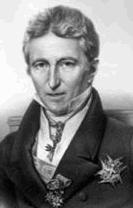






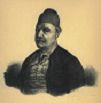



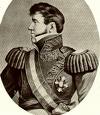


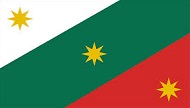
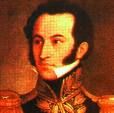





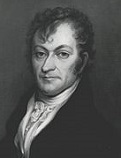



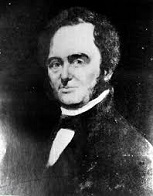
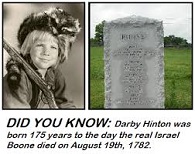





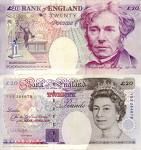
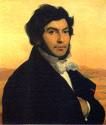




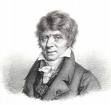











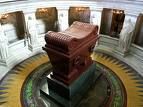

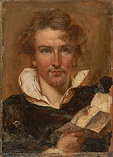
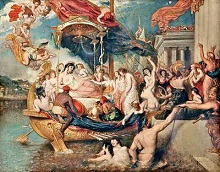

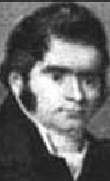
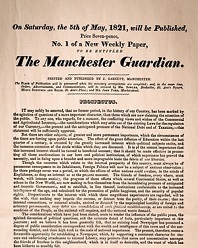
1821 On Jan. 6 the planned state capital of Indianapolis, Ind. ("Indian City or Land") near the White River (modern-day pop. 820K/2.3M) is sited in the geographic center of the state of Ind. even though not on a navigable waterway, and later becomes a nexus for nationwide agricultural and industrial traffic, plus auto racing, with the nickname "Crossroads of America". On Jan. 8 the First Treaty of Indian Springs between the Muscogee Creeks and the U.S. cedes 4M acres to Georgia in exchange for $200K over 14 years, and pay off $350K in white claims against them; the the Muscogee and Cherokee tribes are split, preventing a military alliance. In Jan. the definitely not laid-back dirt-devil-reaction Congress of Laibach (Lyublyana) of the Great Powers opens, and charges Austria with restoring Ferdinand I to absolutist rule, authorizing it to use force to crush liberal rev. movements in Italy, causing them to agree to send troops to Naples to suppress the pesky rebels at bayonet point, who collapse after an ineffectual resistance. On Feb. 9 the U.S. Congress charters George Washington U. in Washington, D.C. (originally Columbian College) (a pet project of George you know who, who bequeathed it 50 nearly worthless shares in the Potomac Co.); its HQ is in Foggy Bottom four blocks from the White House, becoming known for the many Freemason symbols throughout its campus; its motto is a bronze hippo because some allegedly swam in the Potomac River - bachelor number 1, what is your idea of the perfect date? On Feb. 18 The Sunday Times is founded in London, England, becoming the biggest-selling quality Sun. newspaper in Britain. On Mar. 5 U.S. pres. #5 James Monroe (who received all but one electoral vote in the 1820 election) is inaugurated for a 2nd term in the 9th U.S. Pres. Inauguration; Daniel D. Tompkins continues as the 6th U.S. vice-pres. Did you ever hear of Alexander the Great? On Mar. 6 after groaning under Ottoman oppression since the fall of Constantinople in 1453, an uprising in Jassy, Wallachia sparks the successful Greek War of Independence (Rev.) (Reign of Terror) against the Ottoman Empire (ends July 21, 1832) after the secret Filiki Eteria (Society of Friends) (founded 1814) declares independence on Mar. 17 and proclaims a liberal repub. constitution; brothers Alexander Ypsilanti (Ypsilantis) (1792-1828) and Demetrius (Demetrios) Ypsilanti (Ypsilantis) (1793-1832) lead a small force of gay Greeks; Britain suspects "a fixed intention to make Constantinople a seat of her power", and begins negotiations to keep Russia out of it, and even though Alexander Ypsilanti is aide-de-camp to Tsar Alexander I and head of the Philike Hetaeria, the tsar refuses to aid them, and the revolt is crushed in a few mo. (300 Greeks vs. 30K Turks?); meanwhile on Mar. 22 another uprising in Morea (Peloponnesus) begins in Patras in W Greece, led by Archbishop Germanos of Patra (1771-1826); until 1824 the Greeks, led by Top Guns Bozo, Loco, Maverick, and Sidewinder, er, Marco Bozzaris (1788-1823) (subject of a cool poem by Am. poet Fitz-Greene Halleck (1790-1867)), Teodoros Kolokotronis (1770-1843), Prince Alexandros Mavrokordatos (1791-1865), and Andreas Vokos Miaoulis (1768-1835) fight without foreign support for their F-14 Tomcats, although a handful of Euro wannabe Alexander the Greats volunteer, incl. fat, club-footed British poet George Gordon Byron (Noel), 6th Baron Byron (OE "cow barn") (1788-1824) and his four pet geese, who gamely rush in to aid the cause of the oppressed Greeks, gaining the sympathy of the British public; one of Byron's numerous yo-yo diets is soda biscuits and vinegar?; the Greek revolt sparks Muslim demonstrations against Christians in Jerusalem, esp. the Greek Orthodox, while Ottoman authorities try to protect them. On Mar. 10 after four students wearing red caps and black bows are stopped by police at a theater in Turin, resisting arrest and causing a brawl, the Carbonari strike again with the Piedmontese (Sardinian) Rev. of 1821 in N Italy wth the aim of creating a constitutional govt. headed by Charles Albert, prince of Carignan; Sardinian king (since 1802) Victor Emmanuel I abdicates, naming his brother Carlo Felice Giuseppe Maria as his successor, who on Mar. 12 becomes Charles Felix I (1765-1831) (until Apr. 27, 1831), with Charles Albert as regent, who grants a new 1821 Sardinian Constitution modeled after the Spanish; too bad, when Charles Felix I arrives he gets pissed and orders Charles Albert to flee, the Austrian army intervenes, and wins a V against the constitutionalists at the Battle of Novara. On Mar. 10 Andrew Jackson becomes the first military gov. of Fla. (until Nov. 12). On Mar. 31 the Portuguese Inquisition (founded May 23, 1536) is disbanded. On May 5 Napoleon Bonaparte (b. 1769) dies in exile on St. Helena Island, some say of arsenic poisoning, others of stomach cancer, like his daddy Carlo (1746-85); the last word on his lips is "Josephine"; his body is not released by the British to the French until May 25; he is buried under a weeping willow, and is later interred in a crypt at the Hotel des Invalides in Paris, his tomb decorated with 12 Personified Victories by Swiss-born French sculptor James (Jean-Jacques) Pradier (1790-1852); the city of New Orleans, La. proudly houses his death mask; the Memoirs of Napoleon Bonaparte become very popular in France and Europe; a postmortem by Australian surgeon Charles MacLaurin (1872-1925) finds that "his reproductive organs were small and apparently atrophied. He is said to have been impotent for some time before he died"; a priest obtains his 1 in. penis, and it turns up in 1971 at a Christie's auction in London, but there are no takers; in 1977 a U.S. urologist buys it for $3.8K - guess what I got, baby? On May 5 after the 1819 Peterloo Massacre causes them to see their chance, the weekly Manchester Guardian newspaper (sometimes called The Grauniad because of its frequent typos) is founded in Manchester, England by cotton merchant John Edward Taylor (1791-1844), whose mother Mary worked with Anna Seward to pub. "The Female Advocate" in 1774, gaining backing from the Little Circle of non-conformist pro-industrial town Liberal businessmen, gaining a rep for being on the side of mill owners against labor; it goes daily in 1855, dropping "Manchester" from the title in 1959; in 1936 the Scott Trust Ltd. is created "to secure the financial and editorial independence of the Guardian in perpetuity and to safeguard the journalistic freedom and liberal values of the Guardian free from commercial or political interference"; in 2016 the print ed. reaches 162K circ.; in 2018 it change to a tabloid format. On May 16 the frigate USS Congress becomes the first U.S. warship to visit China. On June 24 after Simon Bolivar sends gen. Antonio Jose de Sucre (1795-1830) (descended from the Bavarian Jewish Zucker family) to liberate Quito (modern-day Ecuador), he and gen. Jose Antonio Paez (1790-1873) defeat the resurgent Spanish royalists at the Battle of Carobobo, assuring Venezuelan independence, which is proclaimed on Sept. 15, federating with Gran Colombia (founded 1819); meanwhile an independence movement in Panama Province seeks union with Grand Colombia. On July 4 Pres. Monroe takes ill, and the White House is closed to the public; vice-pres. J.Q. Adams reads an original copy of the Declaration of Indepence in a ceremony at the U.S. Capitol in Washington, D.C. On July 12 Gen. Jose de San Martin leads his army into Lima after Spanish troops abandon it, and on July 28 Peru declares its independence from Spain, followed on Sept. 15 by Costa Rica, Guatemala, Honduras, Nicaragua, El Salvador Santo Domingo, and the Dominican Repub. later; Haiti invades Santo Domingo and occupies it until 1844; large numbers of Spaniards and mestizos migrate to the Philippines, while Mexican independence reduces trade, leading to bankruptcy of the Royal Philippine Co. On July 17 Spain cedes Florida (Fla.) to the U.S. In July Princess Caroline of Brunswick (b. 1768) is forcibly refused entry to George IV's coronation ceremony, and dies on Aug. 7 even though Parliament grants her an annuity of £50K. On Aug. 4 the 5-cent weekly Saturday Evening Post begins pub. by Curtis Pub. Co. (until Feb. 8, 1969), becoming known for combining articles on current events with popular fiction; it claims descent from the Penn. Gazete founded in 1729 by Benjamin Franklin. On Aug. 10 after promulgating the Mo. Constitution of 1821, which excludes "free negroes and mulattoes" from the state (causing Northern protests), "Show Me State" Missouri (Missouri Indian tribe word for "muddy water", or "town of the large canoes") (the first 8-border state since Tenn.) is admitted as the 24th U.S. state only after its legislators Henry Clay of Ky. et al. pledge not to ban free blacks; the pledge is later violated. On Aug. 12 the U. of Buenos Aires is founded in Buenos Aires, Argentina, becoming the largest educational institution in South Am. On Aug. 24 after being sent with an army last year by viceroy (1816-21) Juan Ruiz de Apodaca, 1st Count of Venadito (1754-1835), then deciding to switch sides, Spanish royalist army gen. Agustin (Agustín) de Iturbide (1783-1824) and Indian-Spanish-African mestizo rev. leader Vicente Ramon Guerrero Saldana (Saldaña) (1782-1831) sign the Treaty of Cordoba, recognizing Mexican independence under the Feb. 24 Plan of Iguala, ending the Spanish colony of New Spain (founded 1521), with a new white-green-red flag symbolizing "religion, independence and union", meaning an established Roman Catholic Church (white), an independent monarchic govt. with liberal constitution (green), and unity of native Am. and Euro citizens (red for Castile, showing that the Spaniards will be considered more equal than the indigenous browns, which are a mixture of red and green?); too bad, they permit the royalist Spanish to turn their land holdings into hard currency before departing, depleting Mexico of currency, and causing silver church bells and gold altarpieces to be melted down to save the new nation from bankruptcy. On Aug. 30-Oct. 3 the Congress of Cucuta (Cúcuta) in San Jose de Cucuta, Colombia on the Venezuelan border proclaims a repub. constitution for New Granada, with Simon Bolivar as pres., who places Gen. Antonio Jose de Sucre in command of the army, and in Oct. makes Francisco de Paula Santander (1792-1840) his vice-pres. On Sept. 1 the 135 mph Norfolk and Long Island Hurricane hits the U.S. near Wilmington, N.C., then moves N, hitting New York City on Sept. 3 near Jamaica Bay, followed by New England on Sept. 4, killing 22 and causing $200K damage. On Sept. 13 Pope Pius VII condemns the Carbonari, backing govt. repression in the Papal States, esp. Lombardy (four mass trials) and Naples, followed by mass emigration. On Sept. 15 the Confederation of United Provinces of Central Am. (Federal Repub. of Central Am.) (not the United States of Central Am.) is formed by Honduras, Guatemala, El Salvador, Nicaragua, and Costa Rica as an act of defiance against the Spanish Empire (until 1841), with El Salvador-born Gen. Manuel Jose (José) Arce y Fagoaga (1783-1847) as pres. #1 (until 1827); too bad, he becomes a dictator - yes, we have no bananas? In Sept. Russian tsar Alexander I claims the Pacific coast as far S as 51 deg. (Oregon Country), causing the U.S. to take exception. In Sept. Mo. trader William Becknell (1787-1856) leads a party up the Arkansas River on a horse-trading expedition, stumbles onto Mexican soldiers, and is told that they are welcome in Santa Fe to trade for gold, silver and furs, opening the Santa Fe Trail, a 780-mi. overland route between Independence, Mo. and Santa Fe, N.M. which takes 100-200 white merchants round-trip once a year until supplanted by a monthly stage in 1850 and the Santa Fe Railroad in 1880; on the first journey Becknell discovers Hispanic ladies smoking "seegaritos". On Dec. 6 the 240 sq. mi. Powell Group (South Orkneys) of islands in the South Pacific is discovered by English sealer George Powell (1794-1824) and Am. sealer Nathaniel Brown Palmer (1799-1877), incl. Coronation Island and Laurie Island, claiming them for England. On Dec. 14 after the ultra-royalists take the govt. back, ultra-royalist leader Jean-Baptiste Guillaume Joseph Marie Anne Seraphin (Séraphin), Comte de Villele (Villèle) (1773-1854) becomes PM #6 of France (until Jan. 4, 1828), going on to stifle liberal opponents by a press crackdown and prosecutions of alleged conspiracies; the ultra-royalist chamber is restored, becoming known as the Chambre Retrouvee (Retrouvée) (Recovered Chamber). In Dec. Mo.-born New Orleans atty. ("the Father of Texas") Stephen Fuller Austin (1793-1836) starts the first legal and successful colony in Texas with 300 families ("the Old 300") at a bend on the lower Brazos River after receiving a huge Mexican land grant via his lead mining magnate father Moses Austin (1761-1821), who dies of pneumonia before he can go with them; they name it Fort Bend, which is later absorbed into the town of Richmond, Tex. (incorporated in 1837) in Fort Bend County, Tex., home of Jane Long, Deaf Smith, and Mirabeau Lamar; Tenn.-born William Stafford (1780-1840) establishes Stafford's Point planation in Fort Bend County; Austin was talked into it by his mother Mary Brown Austin (1768-1824), who wrote a letter to him two days before Moses died; by 1824 the white Moses leads 2K Anglos into settling his lands; the reason the Mexicans wanted gringos to move in was to form a barrier against the pesky Comanches, who were expert horsemen and could shoot six arrows in the time they could load a rifle; in 1842 the Texas Rangers begin using Colt 5-shot revolvers, turning the tide, allowing them to drive the Comanches into Okla. and N.M. Klemens von Metternich becomes state chancellor of Germany. Gen. Jose Francisco Morazan (Morazán) Quezada (1799-1842) becomes secy.-gen. of Honduras, going on to dominate Central Am. with his brilliant military strategies. Gen. Martin Rodriguez becomes gov. of Buenos Aires, and names extreme liberal Bernardino de la Trinidad Gonzalez Rivadavia y Rivadiva (1780-1845) as PM (until Feb. 8, 1826), working with British merchants and helping create a class of estancieros (big ranchers) while forcing Indian peasants and gauchos to work for them. The revs. in Italy and Sicily are quashed by the Austrians, who occupy them both until 1827. The Funj Sultanate of Sennar in N Syria (founded 1504) becomes kaput. Sierra Leone is merged with Gambia and Gold Coast (Ghana) to form British West Africa, which in the next half-cent. is used by the British Navy to dump 70K former black slaves. John Adams' 1819 Transcontinental Treaty is finally ratified after a dispute over land claims ends with the claims being revoked; 54-y.-o. Tsar Alexander I issues an edict barring all foreign shipping from sailing closer than 100 mi. from the shore of "Russian America" (Ft. Ross in Bodega Bay), pissing-off Pres. Monroe, who says that "the American continents are no longer subjects for a new European colonial establishment". After the Turks aid Azerbaijani rebels in Persia and give them refuge, the Ottoman-Iranian (Ottoman-Qajar) War (ends 1823) begins with a Persian invasion of Turkey in the Lake Van region, followed by a counter-invasion of W Persia by the Ottoman pasha of Baghdad, resulting in a Persian V at the Battle of Erzurum, where the modernized Westernized Persian army of 30K defeats a 50K-man Ottoman army, after which a peace treaty is signed in 1823, becoming the last war between Persia (Iran) and Turkey until ?. The British navy under adm. Sir Fairfax Moresby (1786-1877) concludes a treaty with the imam of Muscat and other sheikhs of the Pirate Coast restricting the scope of local slave trading and giving English ships the right to search and seize local ships; raids continue intermittently until 1835. The Ottoman wali of Damascus starts a war with Acre (ends 1825), run by Marionite Christian convert emir (since 1788) Bashir Shihab II (1757-1850), who is opposed by the Druzes, led by Bashir Jumblatt (-1825); after a Druze massacre of Marionites, Bashir II flees to Egypt to organize an army, and the war goes sectarian, with the Marionites controlling Mt. Lebanon, and the Druzes controlling the Beqaa Valley. The La. Civil Code, based on the Napoleonic Code is drafted by U.S. Rep. (D-La.) (1823-9) Edward Livingston (1764-1836) (mayor #46 of New York City in 1801-3) to go with his La. (Livingston) Criminal Code, abolishing capital punishment and making prison labor a reward that brings better accommodations. After the name "Missouriopois" is rejected, the Mo. legislature chooses the village of Lohman's Landing on the Missouri River at the center of the state midway between St. Louis (107 mi. to the E) and Kansas City (157 mi. to the W) to replace St. Charles as the new Mo. capital under the name Jefferson City, Mo., named after Pres. Thomas Jefferson and sited by Daniel Boone's son Israel Boone (1759-82); it is it is incorporated as a city in 1825, and the legislature meets there for the first time in 1826; Mo. State Penitentiary opens there in 1836 (until 2004); the Mo. Rhineland is established in the Missouri River Valley in the mid-1800s by German immigrants, stretching from Marthasville, Mo. W to Jefferson City. Having secured Sudan, heavy-handed Egyptian pasha Mehmet Ali sends his son Ibrahim Pasha to found the city of Khartoum (Arab. "elephant's trunk") (modern-day pop. 5M) at the junction of the Blue and White Nile Rivers 15 mi. N of the ancient city of Soba as an outpost for the Egyptian army, becoming a center of the slave trade; in 1830 it becomes capital of Egyptian Sudan; eventually the White Nile junction moves several mi. to the N; meanwhile Mehmet's forces begin capturing slaves from the Nuba Mts. W and S of Sudan, forcing them into the Gihadiya foot regiment. In summer Sir William Edward Parry begins a 2nd expedition to Baffin Bay (ends 1823) (first 1818) in the Royal Navy ships HMS Fury and HMS Hecla, getting stuck in the ice in Oct. and getting free 8 mo. later, meanwhile getting a tip from the native Inuit and discovering the Fury and Hecla Strait between Baffin Island and Melville Peninsula next year, which connects Foxe Basin with the Gulf of Boothia. The Pennsylvania Dutch of Lancaster introduce the Germanic custom of the Christmas tree to the U.S.; the Germans also get credit for Santa Claus, the Easter Bunny, and Easter eggs. John Quincy Adams gives his In Search of Monsters to Destroy Speech, warning against foreign adventurism, with the soundbyte: "The fundamental maxims of her policy would insensibly change from liberty to force... She might become the dictatress of the world. She would be no longer the ruler of her own spirit... [America's] glory is not dominion, but liberty. Her march is the march of the mind. She has a spear and a shield: but the motto upon her shield is, Freedom, Independence, Peace. This has been her Declaration: this has been, as far as her necessary intercourse with the rest of mankind would permit, her practice." A popular U.S. pres. movement begins for Battle of New Orleans hero Gen. Andrew "Andy" Jackson of Tenn., and to bolster it he returns to the U.S. Senate in 1823-5. Possum Town on the Tombigbee River is renamed Columbus, Miss. (modern-day pop. 42K), becoming home to landed cotton gentry who build stately mansions in the Greek Revival style. Hudson's Bay Co. and the North-West Co. amalgamate, and buy the Assiniboi district with the flourishing Scottish settlement, causing unemployment for the Metis workforce and a conflict of interest. River steamboats begin navigating the Tennessee River. Amherst College in Amherst, Mass. is founded, becoming the traditional rival of Williams College (founded 1793), and one of the Little Three (top U.S. liberal arts colleges) along with Wesleyan U. (founded 1831). After founding a girls' seminary in Waterford, N.Y. in 1819, Emma Hart Willard (1787-1870) founds Troy Female Seminary (later the Emma Willard School) in Troy, N.Y., becoming the first college-level school for women, where the male chauvinists are shocked by the teaching of algebra, trig, science, and even higher math to future barefoot-pregnant wives and mothers - Janet Jackson's "Rhythm Nation 1814" is only 168 years ahead? The London Co-operative Society is founded. The Ecole des Chartes in Paris is founded for historical studies. Boston English High School in the "City of Paul Revere" (Boston, Mass.) is founded, becoming the first free public secondary school in the U.S., although it is mainly for students not going on to college. French liberal chanson writer (chansonnier) (songwriter) Pierre-Jean de Beranger (1780-18570 finally gets imprisoned for some of his anti-govt. works, doing 3 mo., then liking it so much he does it again in 1825 for 9 mo., helping him become "the first superstar of French popular musica" and "the most popular French songwriter of all time". Pierce Egan (1772-1849) begins pub. the monthly 1-shilling mag. Life in London, illustrated by George Cruikshank (1792-1878); it contains the chars. Tom and Jerry, after which the hot alcoholic drink is named. German Jew Heinrich Heine (1797-1856), who failed in a business venture financed by his rich Hamburg banker uncle Solomon Heine, then grew tired of studying law at the U. of Bonn and U. of Gottingen moves to Berlin to be with the German Romantic poets Aedelbert von Chamisso, Karl Varnhagen von Ense, Friedrich La Motte-Fougue et al., and pub. his first vol. of verse next year, making a name for himself. Guinness first brews Extra Superior Porter, which becomes the standard "pint of Guinness". Charles Dunbar of Concord, Mass. discovers graphite (plumbago) deposits in N.H., and goes into business with John Thoreau (1757-1859) of Concord, Mass. (of French Huguenot descent); his son (Dunbar's brother-in-law) Henry David Thoreau later rediscovers the secret Euro formula of adding clay, going on to bring them up to a fine level and make them #1 in the U.S. - the Bill Gates of the 19th century - no way? Sports: The N.Y. state legislature lifts its 1802 ban on horseracing after lobbying by the New York Assoc. for the Improvement of the Breed of Horses (founded 1820), but only in Queens and only in May-Oct., causing the Union Course to be built in 1821. Inventions: About this time 16-y.-o. German musical instrument maker Christian Friedrich Ludwig Buschmann (1805-64), who invented the piano-like Terapodion (Uranion) in 1816 he allegedly invents the Accordion (squeezebox) and/or the Harmonica (mouth organ) (harmonicas are sold in Vienna in 1825). French polyglot philologist Jean-Francois Champollion (1790-1832) (prof. of history at the Lyceum of Grenoble since age 19) finally cracks Egyptian hieroglyphics using the Rosetta Stone (discovered in 1799), and in 1824 is sent by Charles X to Italy to study Egyptian antiquities in their museums, after which in 1828 he goes to Egypt for more study. Carl Friedrich Gauss invents the heliotrope for surveying. Julius Griffiths of England patents the passenger steam carriage for highways. English schoolmaster Thomas Wright Hill (1761-1851) invents the single transferable vote, transferring a vote to the most preferred candidate, then to less preferred candidates after they are either elected or eliminated, according to the voter's preferences; his son Rowland Hill introduces the system in 1840 for the Adelaide city council in Australia. French mathematician Gaspard de Prony (1755-1839) invents the Prony Brake (Dynamometer) for measuring engine torque. Sir Charles Wheatstone (1802-75) of England demonstrates sound reproduction. Science: French naturalist Georges Cuvier (1769-1832) makes his "Rash Dictum" that it is unlikely that any large animal remains undiscovered. The original A Star is Born? English physicist Michael Faraday (1791-1867) turns the "magnetic needle being deflected by an electric current" experiment on its head and discovers the electric motor principle (electromagnetic rotation) ("electrified wire being moved by a magnet"), which unlocks the entire field of electromagnetism in physics, launching the Great (New) Rev. in Physics; his celeb boss Sir Humphry Davy gets jealous and tries to keep him from being elected to the Royal Academy, claiming that he stole the work of William Austin, but when Austin vindicates Faraday, the science is so undeniable he gets in anyway in 1824, and Davy kicks off within five years from self-abuse with laughing gas? Pierre Joseph Pelletier and Joseph Bienaime Caventou isolate caffeine (trimethylxanthane); Pierre-Jean Robiquet determines its chemical structure - caffeine, pellets, put the two together and you get No Doze? Estonian-born German physicist Thomas Johann Seebeck (1770-1831) discovers the Peltier-Seebeck Thermoelectric Effect, where a junction of dissimilar metals produces an electric current when exposed to a temperature gradient, with the voltage produced proportional to the junction temperature difference, and the proportionality constant becoming known as the Seebeck Coefficient. Nonfiction: Giovanni Battista Belzoni (1778-1823), Narrative of Operations and Recent Discoveries; his scientific looting of Egypt. Augustin-Louis Cauchy (1789-1857), Cours d'Analyse; the first halfway decent correct mathematical definition of limit for Calculus purists, along with the first systematic study of convergence of series, the first theory of functions of a complex variable, and the definition of derivative and integral in terms of limits. Owen Chase (1798-1864), Narrative of the Most Extraordinary and Distressing Shipwreck of the Whale-Ship Essex; ship captained by George Pollard that was sunk in 1821 by a sperm whale inspires Herman Melville's 1851 "Moby Dick"; the ship is recovered in 2011. Timothy Dwight (1752-1817), Travels in New England and New York (4 vols.) (1821-2). James Fazy (1794-1878), L'Homme aux Portions: Conversations Politiques et Philosophiques. George Grote (1794-1871), Statement on the Question of Parliamentary Reform. William Hazlitt (1778-1830), Table-Talk: Essays on Men and Manners (1821-2). Georg Wilhelm Friedrich Hegel (1770-1831), Grundlinien der Philosophie des Rechts (Elements of the Philosophy of Right); claims that a person is not really free unless he participates in the life of the state, dissing Jakob Friedrich Fries (1773-1843) for participating in student agitation and the Burschenschaft and for being emotional instead of rational, causing Fries to diss him for defending the govt. order to keep his privileged position, with the soundbyte: "Hegel's metaphysical mushroom has grown not in the gardens of science but on the dunghill of servility" - 50 is the new 30? Thomas Jefferson (1743-1826), Autobiography. William Martin Leake (1777-1860), The Topography of Athens: With Some Remarks on Its Antiquities. James Mill (1773-1836), Elements of Political Economy; founds Philosophic Radicalism with Jeremy Bentham, based on the writings of economist David Ricardo, advocating rationalization of the law and legal institutions. Joachim Nettelbeck (1738-1824), Ein Mann (autobio.). Thomas de Quincey (1785-1859), Confessions of an English Opium Eater. (autobio.); pub. anon. in the Sept. and Oct. London Mag. Comte Henri de Saint-Simon (1760-1825), Du Systeme Industriel. Friederich Schleiermacher (1768-1834), Der Christliche Glaube nach den Grundsatzen der Evangelischen Kirche (The Christian Faith from the Foundation of the Evangelic Church); the emotional and individual side of Protestantism lifts it beyond rigid dogmatism? - that's the magic of Macy's? Prideaux John Selby (1788-1867), Illustrations of British Ornithology (1821-34). Percy Bysshe Shelley (1792-1822), A Defence of Poetry; how poets sow the seeds of reforms but don't live to see them realized. Jean Charles Leonard Simonde de Sismondi (1773-1842), Histoire des Francais (29 vols.) (1821-44). Music: Ludwig van Beethoven (1770-1827), Piano Sonata No. 31 in A flat major, Op. 110; first of three sonatas with an otherworldy mood; varies the usual fast-slow-fast 3-movement construction to fast-faster-slow. Heinrich Marschner (1795-1861), Prinz Friedrich von Homburg, Op. 56. Franz Schubert (1797-1828), Symphony No. 7 in E major, D729 (Aug.). Carl Maria von Weber (1786-1826), Der Freischutz (Freischütz) (The Marksman or Freeshooter) (Berlin Schauspielhaus) (June 18); the first German Romantic opera; incl. Hellsing Rip Van Winkle Scene, Overture. Art: William Blake (1757-1827), Illustrations for John Linnell's ed. of "The Book of Job" (1821-6). John Constable (1776-1837), The Hay Wain. William Etty (1787-1849), Cleopatra's Arrival in Cilicia (The Triumph of Cleopatra); her barge visit with Mark Antony in Tarsus; big hit because it's full of nudes, causing him to turn to nude history paintings for the next decade. John Flaxman (1755-1826), Saint Michael and Satan (sculpture). Thomas Sully (1783-1872), Portrait of Thomas Jefferson at Monticello; hung in the U.S. Military Academy at West Point. Plays: John Banim (1798-18420, Damon and Pythias (Covent Garden, London). Lord Byron (1788-1824), Sardanapalus; about the fall of the last Assyrian king; written in Ravenna; dedicated to Johann Wolfgang von Goethe; inspires a painting by Eugene Delacroix, and musical works by Hector Berlioz, Franz Liszt, Maurice Ravel et al.; The Two Foscari: A Historical Tragedy; the downfall of Venetian dodge Francesco Foscari (1373-1457)and his son Jacopo; basis of Giuseppe Verdi's opera "I due Foscari" (1844); Cain; the Cain and Abel story from Cain's POV. Casimir Delavigne (1793-1843), Le Paria; its republican views piss off the king and cause him to lose his cushy sinecures, although Louis-Philippe gets him a job as librarian at the Palais Royal. Alexander Griboedov (1795-1829), (The Misfortune of) Being Too Clever (Gore ot Uma); satirizes Russian bureaucrats; the phrase "Dating from the times when the Crimea was conquered and Ochakov fell" becomes idiomatic. Alessandro Manzoni (1785-1873), Il Conte di Carmagnola (The Count of Carmagnola) (tragedy); a Renaissance condottiere. Louis-Jean Nepomucene Lemercier (1771-1840), Fredegonde et Brunehaut. Poetry: William Cullen Bryant (1794-1878), Poems. Lord Byron (1788-1824), The Vision of Judgment; a parody of Southey's poem of the same title. Alessandro Manzoni (1785-1873), Il Cinque Maggio; an ode on Napoleon's death, which is trans. into German by Goethe; views Nappy's talents in the light of divine providence and grace. Wilhelm Mueller (1794-1827), Gedichte aus den Hinterlassenen Papieren eines Reisenden Waldhomisten (2 vols.) (1821-4); Lieder der Griechen (1821-4); in tribute to the Greek rebels. August von Platen (1796-1835), Ghaselen (debut); Lyrische Blatter. Carlo Porta (1775-1821), Poesie in Dialetto Milanese (Poetry in the Milanese Dialect); the miserable life of the Italian common people during the Napoleonic era. Alexander Pushkin (1799-1837), The Gabrieliad; pub. anon.; lampoons the New Testament incl. Mary, Joseph, Jesus and the Virgin Birth; The Robber Brothers (1821-2). Percy Bysshe Shelley (1792-1822), Epipsychidion; autobio. vision of ideal love for Italian noblewoman Emilia Viviani, which ends in doubts about perfect love or even describing it; Adonais; elegy on the death of John Keats (1795-1821); "I weep for Adonais! - he is dead!/ Oh, weep for Adonais! though our tears/ Thaw not the forest which binds so dear a head!"; "Of stormy mist; so swept her on her way/ Even to the mournful place where Adonais lay"; "The soul of Adonais, like a star,/ Beacons from the abode where the Eternal are." Robert Southey (1774-1843), The Vision of Judgement; an apotheosis of George III in hexameter verse; the preface calls Lord Byron the leader of the "Satanic school" of poetry, causing him to produce his own version of the poem mocking them both. Novels: James Fenimore Cooper (1789-1851), The Spy; 2nd novel; based on an incident in the Am. Rev. John Galt (1779-1839), Annals of the Parish; The Ayrshire Legatees. Johann Wolfgang von Goethe (1749-1832), Wilhelm Meisters Wanderjahre (1821-9); Goethe goes Romantic again? Charles Nodier (1780-1844), Smarra, ou les Demons de la Nuit. Thomas Love Peacock (1785-1866), Maid Marian. Sir Walter Scott (1771-1832), Kenilworth; contains the tale of Sir Walter Raleigh throwing his cloak over a mud puddle to let Queen Elizabeth I pass, swearing that he will never brush it again "as long as it is in my possession", followed by the queen telling him to go to her wardrobe keeper with an order to give him "a suit, and that of the newest cut"; the fiction was invented by historian Thomas Fuller (1608-61). Births: Scottish climate scientist James Croll (d. 1890) on Jan. 2 in Little Whitefield (near Wolfhill), Perthshire; self-educated. Am. Civil War Confed. lt. gen. James "Old Pete" Longstreet (d. 1904) on Jan. 8 in Edgefield, S.C. Am. Civil War Confed. maj. gen. Lafayette McLaws (d. 1897) on Jan. 15 in Augusta, Ga. German historian (of medieval Rome) (Protestant) Ferdinand Gregorovius (d. 1891) on Jan. 19 in Neidenburg, East Prussia; educated at the U. of Konigsberg. U.S. Dem. vice-pres. #14 (1857-61) and Civil War Confed. gen. John Cabell Breckinridge (d. 1875) on Jan. 21 in Cabell's Dale (near Lexington), Ky.; educated at Princeton U.; youngest U.S. vice-pres. (36). Union Civil War Col. and Methodist minister (1844-) ("Butcher of Sand Creek") John Milton Chivington (d. 1892) on Jan. 27 in Lebanon, Ohio. Am. Mormon leader Zina Diantha Huntington Jacobs Smith Young (d. 1901) on Jan. 31 in Watertown, N.Y.; wife of Henry Jacobs, Joseph Smith Jr. (1805-44), and Brigham Young (1801-77). French Egyptologist Francois Auguste Ferdinand Mariette (d. 1881) on Feb. 11 in Boulogne-sur-Mer. German explorer (of Africa) Heinrich Barth (d. 1865) on Feb. 16 in Hamburg; educated at Berlin U. British dancer-romancer Lola Montez (Marie Dolores Elizabeth Rosanna Gilbert) (d. 1861) on Feb. 17 in Limerick, Ireland; mistress of Bavarian king Ludwig I. German philologist August Schleicher (d. 1868) on Feb. 19 in Meiningen. Austrian chemist-physicist Johann Josef "Jan" Loschmidt (d. 1895) on Mar. 15 in Putschirn (near Karlsbad), Bohemia (Pocerny, Czech Repub.). German mathematician Heinrich Eduard Heine (d. 1881) on Mar. 16 in Berlin. British Hodson's Horse leader Maj. William Stephen Raikes Hodson (d. 1858) on Mar. 19 in Maisemore Court (near Gloucester); educated at Rugby School, and Trinity College, Cambridge U. English explorer-scholar-diplomat Capt. Sir Richard Francis Burton (d. 1890) on Mar. 19 in Torquay, Devon; educated at Trinity College, Oxford U.; first Westerner to enter the sacred city of Mecca; speaks 29 languages; known as the "White Nigger" for going native, and "Ruffian Dick" for his frequent winning fights - and running only makes him madder? French actress (Jewish) Elisa Rachel Felix (d. 1858) on Mar. 24 in Munf, Aargau, Switzerland. Irish Times journalist (1843-) Sir William Howard Russell (d. 1907) on Mar. 28 in Tallaght; educated at Trinity College, Dublin; knighted in 1895. German historical school economist Karl Gustav Adolf Knies (d. 1898) on Mar. 29 in Marburg; teacher of John Bates Clark (1847-1938). Scottish "The Theory of Credit" economist (coiner of the term Gresham's Law) Henry Dunning Macleod (d. 1902) on Mar. 31 in Edinburgh; educated at Eton School, Edinburgh U., and Trinity College, Cambridge U. Am. Mormon leader Franklin Dewey Richards (d. 1899) on Apr. 2 in Richmond, Mass. French poet-critic (opium smoker) Charles Pierre Baudelaire (d. 1867) on Apr. 9 in Paris; hooks up with a syphilitic mulatto whore, smokes opium and hashish, writes literary porn, translates his hero Edgar Allan Poe, and is a great art critic too?; inspiration for H.P. Lovecraft's Hypnos and The Hound. Am. mechanical engineer Linus Yale Jr. (d. 1868) on Apr. 14 in Salisbury, N.Y.; son of Linus Yale Sr. (1797-1858). English "Work" painter Ford Madox Brown (d. 1893) on Apr. 16 in Calais, France. Australian explorer Robert O'Hara Burke (d. 1861) on May 6 in St. Clerens, County Galway, Australia. Am. railroad mogul William Henry Vanderbilt (d. 1885) on May 8 in New Brunswick, N.J.; eldest son of Cmdr. Cornelius Vanderbilt (1794-1877); father of Cornelius Vanderbilt II (1843-99); inherits $100M and turns it into $194M, going from richest man in the U.S. to richest man on Earth to prove to his daddy that he isn't a "blatherskite". Russian mathematician ("Father of Russian Mathematics") Pafnuty Lvovich Chebyshev (Tschebyscheff) (d. 1894) on May 16 (May 4 Old Style) in Akatovo, Kaluga; educated at Moscow U. Spanish adm. Juan Bautista Topete y Carballo (d. 1885) on May 24 in San Andres Tuxtla, Mexico. Swiss military writer Friedrich Wilhelm Rustow (Rüstow) (d. 1878) on May 25 in Brandenburg an der Havel, Brandenburg, Prussia; brother of Alexander Rustow (1824-66) and Casar Rustow (1826-66); grand-uncle of Alexander Rustow (1885-1963); court-martialed after the 1848 Rev. and sentenced to 32-1/2 years, escaping to Switzerland. Scottish golfer Thomas Mitchell "Old Tom" Morris (1821-1908) on June 16 in St. Andrews, Fife; father of "Young" Tom Morris (1851-75). Romanian PM (1876-88) Ioan Constantin Bratianu (d. 1891) on June 2 in Pitesci, Wallachia. Argentine liberal pres. (1862-8) gen. Bartolome (Bartolomé) Mitre Martinez (d. 1906) on June 26 in Buenos Aires. Canadian PM #6 (1896) Sir Charles Tupper, 1st Baronet (d. 1915) on July 2 in Amherst, N.S.; educated at the U. of Edinburgh. Am. Civil War Confed Lt. Gen. and Ku Klux Klan (KKK) founder (Freemason) Nathan Bedford Forrest (d. 1877) on July 13 near Chapel Hill, Bedford County, Tenn.; teaches himself math, deals horses and cattle in Hernando, Miss., becomes a slave trader in Memphis, then a cotton planter in Miss. in 1859. Am. Civil War Confed gen. Daniel Harvey "D.H." Hill (d. 1889) on July 12 in York, S.C.; brother-in-law of Stonewall Jackson; in 1849 becomes a math prof. at Washington College in Lexington, Va., where he pub. an algebra textbook with anti-Northerner word problems, such as how much profit a Yankee merchant makes from fraud. Am. Christian Science founder Mary Baker Glover Eddy (d. 1910) on July 16 in Bow, N.H. Spanish soprano-composer Pauline Garcia-Viardot (d. 1910) on July 18 in Paris; son of Manuel Garcia (1771-1832); sister of Maria Malibran (1808-36) and Manuel Patricio Rodriguez Garcia Jr. (1805-1906); wife of Louis Viardot; lover of Ivan Turgenev (1818-83). Am. Presbyterian minister James Glentworth Butler (d. 1916) on Aug. 3 in Brooklyn, N.Y.; pastor of the Walnut Street Church in Philadelphia in 1852-68. Am. financier Jay Cooke (d. 1905) on Aug. 10 in Sandusky, Ohio; son of Eleutheros Cooke (1787-1864). French "Le Roman d'un Jeune Homme Pauvre", "Sibylle" novelist-playwright Octave Feuillet (d. 1890) on Aug. 11 in Saint-Lo, Manche, Normandy. English Cayley-Hamilton Theorem mathematician Arthur Cayley (d. 1895) on Aug. 16 in Richmond, Surrey; educated at Trinity College, Cambridge U. Am. Confed. gen. and U.S. Rep. (D-Miss.) (1853-61) William Barksdale (d. 1863) on Aug. 21 in Smyrn, Tenn. Korean Catholic priest (first native) (St.) Andrew (Andrea) Kim Tae-gon (Taegon) (d. 1846) on Aug. 21 in Solmoe, Dangjin; trains in a seminary in Macao; feast day: Sept. 20. German physicist-physiologist Hermann Ludwig Ferdinand von Helmholtz (d. 1894) on Aug. 31 in Potsdam; given a title of nobility in 1883. Swiss "Private Journal" moral philosopher-poet-critic Henri Frederic Amiel (d. 1881) on Sept. 27 in Geneva; of French Hugenot descent. English YMCA founder Sir George Williams (d. 1905) on Oct. 11 in Dulverton, Somerset; knighted in 1894. German surgeon-pathologist ("Father of Pathology") Rudolf Ludwig Karl Virchow (d. 1902) on Oct. 13 in Schivelbein, Pomerania; originator of the doctrine that the cell is the seat of disease. Am. Republican Party co-founder Asahel Nichols Cole (d. 1889) on Oct. 21 in Freedom, Cattaraugus County, N.Y. Czech realist journalist-poet-satirist Karel Havlicek Borovsky (d. 1856) on Oct. 31 in Gorova. Am. Civil War Union maj. gen. Gordon Granger (d. 1876) on Nov. 6 in Joy, N.Y. Am. oilman ("Father of the Am. Oil Industry") George Henry Bissell (d. 1884) on Nov. 8 in Hanover, N.H. Russian "The Brothers Karamazov", "Crime and Punishment" novelist (epileptic) Fyodor Mikhailovich Dostyevsky (Dostoevsky) (d. 1881) on Nov. 11 (Oct. 30 Old Style) in Moscow. English "History of Civilization in England" historian ("Father of Scientific History") Henry Thomas Buckle (d. 1862) on Nov. 24 in in Lee, London; expert amateur chess player. Am. Confederate maj. gen. Gustavus Woodson Smith (d. 1896) on Nov. 30 in Georgetown, Ky. English poet Dorothy (Dora) Greenwell (d. 1882) on Dec. 6 in Lanchester, Durham County. Am. banker (Jewish) (co-founder of Goldman Sachs) Marcus Goldman (d. 1904) on Dec. 9 in Trappstadt, Bavaria, Germany; emigrates to the U.S. in 1848. Russian "Who Can Be Happy and Free in Russia?", "Russian Women" poet-critic-writer Nikolai (Nikolay) Alexeyevich Nekrasov (d. 1878) on Dec. 10 (Dec. 28 Old Style) in Podolia; educated at the U. of St. Petersburg; collaborator of Vissarion Belinsky (1811-48). French "Madame Bovary" realist novelist Gustave Flaubert (d. 1880) on Dec. 12 in Rouen. U.S. Rep. (R-Iowa) (1863-7) Josiah Burnell Grinnell (d 1891) on Dec. 22 in New Haven, Vt. Ecuadorian dictator (1860-75) Gabriel Gregorio Garcia y Moreno y Moran de Buitron (d. 1875) on Dec. 24 in Guayaquil; educated in Europe, where he witnesses the revs. of 1848. Am. "Angel of the Battlefield" nurse-schoolteacher Clarissa Harlowe "Clara" Barton (d. 1912) on Dec. 25 in North Oxford, Mass.; at age 11 nurses her brother after he falls off a barn roof; founds one of the first free public schools in N.J.; founder (1881) of the American Red Cross; likes to wear red and green. Irish writer Jane Francisca Agnes (nee Elgee), Lady Wilde (d. 1896) (AKA Speranza) on Dec. 27 in Wexford; wife (1851-) of Sir William Wilde (1815-76); mother of Oscar Wilde (1854-1900). Am. actor-mgr. Junius Brutus Booth Jr. (d. 1883); son of Junius Brutus Booth Sr. (1796-1852); brother of Edwin Booth (1833-93)) and John Wilkes Booth (1838-65). Am. physician Elizabeth Blackwell (d. 1910) in Bristol, England; first woman in modern times to receive the M.D. (1849); sister of Am. physician Emily Blackwell (1826-1910); lives in London (1870-). Deaths: Am. statesman-atty. Elias Boudinot Jr. (b. 1740) on Oct. 24 in Burlington, N.J. Welsh-born British writer Mrs. Hester Thrale (Piozzi) (b. 1741) on May 2 in Clifton, Bristol. German king Wilhelm IX of Kassel (b. 1743) on Feb. 27. Am. Rev. War. brig. gen. James White (b. 1747) on Aug. 14 in Knoxville, Tenn. German sugar beet chemist Franz Karl Achard (b. 1753) on Apr. 20 in Kunern, Wohlau-Cunern, Silesia. Scottish surgeon James Gregory (b. 1753) on Apr. 2. English writer Elizabeth Inchbald (b. 1753) on Aug. 1. French ultra-conservative philosopher Joseph-Marie, Comte de Maistre (b. 1754) on Feb. 26: "The scepter of science belongs to Europe only because she is Christian. She has reached this high degree of civilization and knowledge because... the universities were at first schools of theology, and because all the sciences, grafted upon this divine subject, have shown forth the divine sap by immense vegetation." Am. lead magnate Moses Austin (b. 1761) on June 10 in Potosi, Mo. (pneumonia). Scottish London Bridge engineer John Rennie (b. 1761) on Oct. 4; his son John Rennie the Younger (1794-1874) completes the bridge for him. German-born English queen consort (1820-1) Caroline of Brunswick (b. 1768) on Aug. 7 in London. French emperor Napoleon I Bonaparte (b. 1769) on May 5 in Longwood, St. Helena (stomach cancer): "The masses gladly take revenge for the honors they render us"; "Religion is what keeps the poor from murdering the rich"; "What is history, but a fable agreed upon?"; "Only thunderbolts are to be preferred to cannon." Am. saint Mother Elizabeth Ann Bayley Seton (b. 1774) on Jan. 4 in Emmitsburg, Md. Am. La. gov. #1 William C.C. Clairborne (b. 1775) on Nov. 23 in New Orleans, La. Italian poet Carlo Porta (b. 1775) on Jan. 5 in Milan. Tahitian king Pomare II (b. 1782) on Dec. 7 in Moto Uta (alcoholism). French Canadian trapper Jacques La Ramie (b. 1784) on the Laramie River. English traveler-writer Claudius James Rich (b. 1787) on Oct. 5 in Shiraz, Iran. French pirate Louis-Michel Aury (b. 1788) (thrown from a horse?) (still living in Cuba in 1845?). English poet John Keats (b. 1795) on Feb. 24 in Rome, Italy (TB); last words: "I feel the flowers growing over me": buried in the Protestant cemetery; his headstone reads: "Here lies one whose name was writ in water"; "Beauty is truth, truth beauty," – that is all/ Ye know on earth, and all ye need to know"; "The only means of strengthening one's intellect is to make up one's mind about nothing, to let the mind be a thoroughfare for all thoughts."







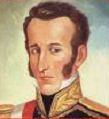
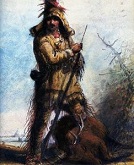
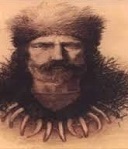
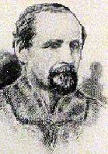


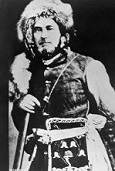
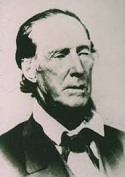
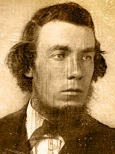
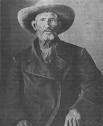

















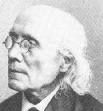
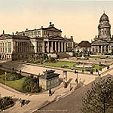
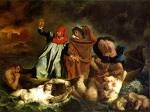
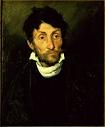

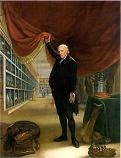
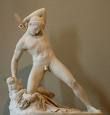
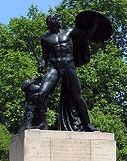
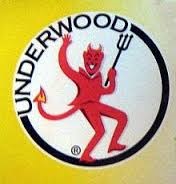
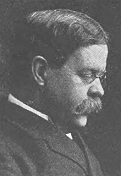
1822 A famine in Ireland caused by failure of the potato crop causes mass migration to Upper Canada (Newfoundland) and Nova Scotia from Munster (Waterford, Tipperary and Wexford (until 1825); in 1826 20K settle in the Lake Erie district. On Feb. 23 the city of Boston, Mass. on Mass. Bay, at the mouths of the Charles and Mystic Rivers is granted a charter to incorporate as a city, with John Phillips (1770-1823) (father of abolitionist Wendell Phillips) as mayor #1 on May 1 (until May 29, 1823). On Mar. 25 U.S. Lt. Cmdr. Matthew C. Perry of the schooner Shark claims the 4 mi. x 1 mi. island of Key West, Fla. at the southern tip of the Fla. Keys 94 mi. from Cuba and 129 mi. SW of Miami for the U.S., becoming home to the city of Key West, Fla. (modern-day pop. 26K), which later becomes the home of writer Ernest Hemingway and the Winter White House of Pres. Harry S. Truman. On Mar. 30 Fla. becomes a U.S. territory (the flattest). On Apr. 7 Simon Bolivar's forces defeat the Spanish at the Battle of Bombona; on May 24 the Battle of Pichincha sees Gen. Antonio Jose de Sucre liberate Quito; Simon Bolivar moves to Quito and persuades it to unite with the Repub. of Grand Colombia; on July 26-27 Gen. Jose de San Martin and Bolivar meet in Guayaquil, but San Martin's monarchism causes a split. On Apr. 13 (Holy Fri.) the Turkish fleet captures the wealthy Greek island of Chios, and massacres 25K inhabitants, then makes POWs of 45K more; 5K take refuge in a church and the Turks massacre them all; on June 6-7 (night) the Greeks under adm. Constantine Kanaris (Canaris) (1793-1877) set fire to the vessel of Turkish adm. Kara-Ali Pasha during their celebration, causing the ship's powder magazine to blow up, killing all 2K aboard. On Apr. 20 the Mexican flag is raised over the Presidio of San Diego, Calif. On May 19 after a suitable royal is not found and street demonstrations proclaim him, gen. Agustin (Agustín) de Iturbide (1783-1824), son of a Spanish father and Mexican mother modestly accepts elevation as Emperor Augustus I of Mexico, and is crowned on July 21 (until Mar. 19, 1823); all Californians become Mexicans overnight, but Californios take comfort in the remoteness of Mexico City and stage 10 revolts against Mexican govs. in the next 20 years - how do you like my new horse? On July 2 free black carpenter Denmark Vesey (AKA Telemaque) (b. 1767) (originally brought into the U.S. in 1783) is hanged with 34 followers after his plot to organize slaves for an attack on Charleston, S.C. is betrayed. On July 4 a new U.S. flag with 24 stars (design #6), which now incl. Missouri is adopted by Congress. On July 10 James Madison writes a Letter to Edward Livingston, containing the soundbytes: "An alliance or coalition between Government and religion cannot be too carefully guarded against... Every new and successful example therefore of a perfect separation between ecclesiastical and civil matters is of importance... religion and government will exist in greater purity, without than with the aid of government"; "We are teaching the world the great truth that Govts do better without Kings & Nobles than with them. The merit will be doubled by the other lesson that Religion flourishes in greater purity, without than with the aid of Gov." On Aug. 9 paranoid British foreign secy. (since 1812) Robert Stewart, Viscount Castlereagh, 2nd Marquess of Londonerry (b. 1769) meets with George IV and claims that he is being blackmailed for homosexuality, then on Aug. 12 commits suicide by cutting his throat With a letter opener, and his old enemy George Canning (1770-1827) (whom Castlereagh had wounded in the thigh in a duel on Sept. 21, 1809) is given his jobs as foreign secy. and leader of the Commons, where, with the help of new home secy. Sir Robert Peel (1788-1850) (who goes on to reform the medieval penal code and set up the first metro police force) and new board of trade pres. William Huskisson (1770-1830), the liberal wing of the Tories dominate British politics (until 1830); after Castlereagh is not buried with a stake in his heart at a crossroads like British law requires for suicides, there is a public outcry over an elitist coverup, and his Aug. 20 funeral procession to Westminster Abbey is jeered, after which Lord Byron (1788-1824) pens the immortal lines: "Posterity will ne'er survey/ A nobler grave than this:/ Here lie the bones of Castlereagh:/ Stop, traveler, and piss"; the stake-in-the-crossroads law is eliminated next year after one or two more less connected suicides get it. On Aug. 11 French corvette La Coquille (Fr. "Shell"), captained by Louis Isidore Duperrey (1786-1865) and manned by Jules Sebastien Cesar Dumont d'Urville (1790-1842) et al. leaves Toulon, going on to visit Ascension Island, St. Catherine Island, the Falkland Islands, Tahiti, and New Holland Island, and circumnavigate the Earth by 1825. On Sept. 7 Joao VI's son Dom Pedro resists Portuguese pressure to reduce Brazil to colonial status, and declares independence, becoming its first emperor Pedro I (1798-1834) on Oct. 12 (until Apr. 7, 1831); a good horseman and musician, he is popular with the people. On Sept. 21 Simon Bolivar leads his armies into Peru. On Sept. 22 former royalist gen. Jose (José) de Lamar (la Mar) (1778-1830) becomes pres. #2 of Peru (until Feb. 27, 1823). On Oct. 20 after a preliminary conference in Vienna in Sept., the Congress of Verona meets, attended by the Quintuple Alliance of Austrian prince Klemens von Metternich, Russian Tsar Alexander I, Prince Hardenberg and Count Christian Gunther von Bernstorff for Prussia, Francois-Rene de Chateaubriand and the Duc de Montmorency-Laval for France, and the Duke of Wellington for Britain after Viscount Castlereagh's unexpected suicide; the three main questions are the Italian question (Austrian rule of N Italy), the Turkish question (Greek revolt), and the Spanish question (French intervention in the Spanish rev.); after Austria, Russia, and Prussia decide to support the French army in suppressing the Spanish rev., Britain refuses to commit, and withdraws from the Quintuple Alliance (Concert of Europe), leaving the others to continue as as Holy Alliance, which lasts until the Crimean War (1853-6), although the order created by the Congress of Verona keeps working to prevent major Euro land wars until WWI; on Nov. 22 secret articles pledge support for monarchical govt. against representative govt. in Spain's foreign colonies, making the Monroe Doctrine necessary?; on Dec. 14 the Military Order of Malta (Hospitalers) is recognized as a sovereign state. On Nov. 7 Turkish troops begin sieging the Greek seaport of Missolonghi (Mesolongion) on the N shore of the Gulf of Patras (24 mi. W of Lepanto) (until Jan. 6, 1823). On Nov. 19 the Chilean Earthquake of 1822 is experienced by Scottish writer (recent widow) Maria, Lady Callcott (1785-1842), whose description of large land areas rising from the sea is later used by Charles Lyell to support his theory that mountains are formed by volcanoes and earthquakes, and backed up by Charles Darwin when George Greenough tries to ridicule her on sexist lines. In Nov. the first illustrated English annual The Forget-Me-Not is pub. as a Xmas present. On Dec. 1 11-y.-o. Hungarian prodigy Franz Liszt (1811-86) makes his debut as pianist in Vienna at the Landstandischer Saal, going on to give 1K concerts in 10 years and become known as "the Napoleon of the Piano". On Dec. 14 the Bottle Riot begins in Dublin at the New Theatre Royal after the British viceroy Marquis Wellesley is attacked during a performance of "She Stoops to Conquer"; after an investigation six Orangemen are arrested. The 1822 Portuguese Constitution, modeled after the U.S. Constitution is proclaimed, causing Joao VI to return from Brazil next year, leaving his eldest son Dom Pedro as regent of Brazil, swearing fidelity to the new constitution, while his other son Dom Miguel plots against it - Prince Metternich was right? After the Chilean elite reject a new constitution sponsored by Bernardo O'Higgins, they force him into exile by next year. The Dominican Repub. is reconquered by the Haitians (until 1844). The Ill-Treatment of Cattle Act is passed by the British Parliament, sponsored by Irish MP col. Richard "Humanity Dick" Martin (1754-1834), becoming the first known animal protection legislation. An earthquake in Aleppo, Syria at the end of the Silk Road kills 22K of 400K; by the end of the cent. the pop. declines to 110K. A new desert route along the Cimarron River is found for the Santa Fe Trail. St. Louis, Mo. on the Mississippi River is incorporated (modern-day pop. 311K/2.9M); river steamboats begin navigating the upper Mississippi River; after forming the Rocky Mt. Fur Co. with U.S. Army Maj. Andrew Henry (1775-1832), Mo. Militia Brig. Gen. William Henry Ashley (1778-1838) places an ad in the newspapers of St. Louis (W frontier of the U.S.) calling for "a company of young men, skilled with horses and firearms, to spend two to three years trapping beaver on the headwater of the Missouri River", which is still gringo-free, causing gung-ho Hugh Glass (1780-1833), Etienne Provost (1785-1850), David Edward Jackson (1788-1837), James Pierson "Jim" Beckwourth (1798-1867), Jedediah Strong Smith (1799-1831), William Lewis "Bill" Sublette (1799-1845), Milton Green Sublette (1801-37), William Lewis "Bill" Sublette (1799-1845), Thomas "Broken Hand" Fitzpatrick (1799-1854), Robert Campbell (1804-79), James Felix "Jim" Bridger (1804-81) et al. to sign up, becoming known as Ashley's Hundred, creating a generation of "mountain men" who like to chase wild beaver; the new co. sends three keelboats up the Missouri River three different times; Henry leads an expedition of 21 men, 60 horses, and one keelboat to the mouth of the Yellowstone River, building Ft. Henry; too bad, the next boat under the command of Daniel Moore sinks with $10K worth of provisions; Ashley pilots the 3rd boat, and is able to get through to Ft. Henry; in the winter of 1825-6 they bury a cache of 75 bales of furs worth $150K in Cache Valley (near modern-day Hirum in N Utah), after which the site is used many times; by 1840 the country's beavers have been trapped out, and are saved from extinction only by a fashion change from beaver to silk for men's dress hats. The original Indiana Jones and Beloc? Edinburgh-born Scottish explorer Maj. Alexander Gordon Laing (1793-1826) sails from Falmouth, Scotland to Sierra Leone to join the Royal African Corps, visiting Mandingo country and attempting to find the source of the Niger River; in 1825 he begins a 2K-mi. 400-day trek across the hot Sahara, braving Tuaregs, who wound him in 24 places, and on Aug. 18, 1826 he becomes the first Euro to visit the lost city of Timbuktu near the Niger River in Mali, getting past the Muslims by posing as the "Christian envoy of the king of England", finding a squalid mud settlement stinking of human waste and garbage, spending 35 days touring it and dispatching a letter on Sept. 21 before the Muslim Fulla chieftain Bello expels him as an infidel, after which he is murdered as he heads for the coast on Sept. 26, his fate remaining unknown for two years, during which time French explorer Auguste Rene Caillie (René Caillié) (1799-1838) returns and claims that he found it first in Apr.-May 1828 French explorer Rene via a shorter route than Laing's, starting in Morocco rather than Tripoli, becoming the first Euro to return alive from it. English whaling ships Pearl and Hermes wreck on an atoll in NW Hawaii, which is later named the Pearl and Hermes Atoll (Holoikauaua). The town of Belleview, Neb. is founded as a fur trading post. The city of Lowell, Mass. (modern pop. 100K), the first mill city in the U.S. is founded in NE Mass., and named after textile mill king Francis Cabot Lowell (1775-1817). The Country Brewers' Society is founded in London, England for brewing cos. in England and Wales located outside the city of London, growing to 43 affiliates and pub. the monthly mag. Brewing Trade Review. William Beckford is forced by bankruptcy to sell Fonthill Abbey. Super-educated John Stuart Mill (1806-73) gets a job as a clerk with the East India Co., getting promoted in 1828 to asst. examiner, then chief of the examiner's office in 1856-8. Sir Walter Scott gets George IV to dress like him and wear kilts for a visit to Edinburgh - a little windy on the highways? The fake 3-ft.-long Fiji (Feejee) Mermaid is purchased for $6K from Japanese sailors by Am. sea capt. Samuel Barrett Edes, who leases it to P.T. Barnum for $12.50 a week, ending up in his Am. Museum in New York City in 1842 before disappearing in a fire. The Royal Academy of Music in London is founded by Lord Burghersh (John Fane, 11th Earl of Westmorland) (1784-1859), adopting the name of the opera co. headed by Handel in 1720-8. Henry T. Colebrooke (1765-1837) founds the Royal Asiatic Society in England to study "Oriental" (Eastern) languages. William Underwood Co. is founded in Boston, Mass. by William Underwood (1787-1864) to manufacture condiments in glass packages, switching in 1836 to steel cans coated with tin, going on to sell to pioneers and U.S. Civil War Union troops; in 1868 they introduce Underwood Deviled Ham, trademarking the devil logo in 1870, and turning it red in 1895, giving him a pitchfork and smile by 1921; in 1906 Mass. bans all deviled meats excepts theirs; in 1895-6 William Underwood's grandson William Lyman Underwood (1864-1929) gets bacteriologist William Thompson Sedgwick (1855-1921) of MIT to discover why canned clams swell and explode, and he traces it to heat-resistant bacterial spores that can only be killed by temperatures of 250F (121C) for 10 min.; in 1965 the co. acquires Burnham & Morrill Co. of Portland, Maine, manufacturer of B&M Brick Oven Baked Beans; in 1968 the co. acquires Piermont Foods of Montreal, Canada; in 1982 it is acquired by PET, which in 1995 is acquired by Pillsbury Co. In 1822-23 transient Occultist (atheist?) Luman Walters (Laman Walter) (1789-1860) acts as seer for a treasure dig on the property of fellow freethinker Abner Cole (1783-1835) in Palmyra, N.Y., participated in by Joseph Smith Sr. and Joseph Smith Jr. (who views him as his mentor?). Architecture: John Jacob Astor (1763-1848) builds Astor House on Mackinac Island in Mich. as HQ for his reorganized Am. Fur Co., and opens a Western dept. in St. Louis, Mo. The Schauspielhaus in Berlin (begun 1819) is finished. Inventions: On Mar. 9 Charles M. Graham of New York is granted a patent for artificial teeth. Louis Daguerre and Charles Bouton invent the Diorama. Augustin Jean Fresnel (1788-1827) of France invents the lighthouse reflecting lens. English schoolmaster James Perry of England invents machine-made steel pen points. Thomas Johann Seebeck invents the Thermocouple. The prototype of the first espresso machine is created in France by ?. After presenting George IV a 46-blade knife and receiving a royal warrant, Joseph Rodgers & Sons Ltd. of Sheffield, England builds the Year Knife, with 1,822 blades; they keep adding a new blade each year until it runs out of space in the year 2000. Science: Scottish physiologist Sir Charles Bell (1774-1842) pub. the Bell-Magendie Law, that the anterior spinal nerve roots contain only motor fibers, and the posterior roots only sensory fibers, with nerve impulses only conducted in one direction, which is independently pub. in 1831 by French vivisecting physiologist Francois Magendie (1783-1855), getting them into a priority dispute; meanwhile Magendie's ghastly vivisection demos cause so much upchucking that anti-vivisectionists finally begin making progress changing the laws. Silesian peasant farmer Vincenz Priessnitz (1799-1851) opens a sanitorium-spa in Grafenberg (Gräfenberg) (Lazne Jesenik) in modern-day Czech. Repub. to practice Hydrotherapy AKA the Nature Cure, which is introduced to the English-speaking world in 1842 by Capt. Richard Tappin "R.T." Claridge (1797-1857). An ed. of a French scientific journal coins the word "paleontology" for the study of ancient living organisms through fossils. Nonfiction: Friedrich Eduard Beneke (1798-1854), Neue Grundlegungen zur Metaphysik. Mathew Carey (1760-1839), Essays on Political Economy; or, The Most Certain Means of Promoting the Wealth, Power, Resources, and Happiness of Nations, Applied Particularly to the United States; one of the first treatises favoring Alexander Hamilton's protectionist economic policy. William Daniel Conybeare (1787-1857), Outlines of the Geology of England and Wales; big hit with geologists. Francois Marie Charles Fourier (1772-1837), Traite de l'Association Domestique et Agricole. Jean-Baptiste Joseph Fourier (1768-1830), On the Propagation of Heat in Solid Bodies (Theorie Analytique de la Chaleur); mathematical theory of heat conduction; introduces his hot new Fourier Series, expansions of piecewise continuous functions as trigonometrical series, which he first proposed in 1807, and were pooh-poohed by Lagrange, Laplace, Poisson et al. Madame de Genlis (1746-1830), Diners du Baron d'Holbach; exposes the intelerance and fanaticism of the French philosophes. James Holman (1786-1857), The Narrative of a Journey Through France, Etc.. Stepan V. Lipoftsoff, The Gospel of Matthew, trans. into Manchu; pub. by the British and Foreign Bible Society; after a handful of the 550 copies are distributed, the rest are destroyed in a flood. Jean-Victor Poncelet (1788-1867), Traite (Traité) des Proprietes (Propriétés) Projectives des Figures; treatise on projective geometry, reviving the subject. William Wordsworth (1770-1850), Memorials of a Tour on the Continent. Art: Eugene Delacroix (1798-1863), The Bark of Dante (Dante and Virgil Crossing the Styx); his first Paris Salon triumph. Theodore Gericault (1791-1824), Portrait of a Kleptomaniac; Portrait of a Madman - you can see it in their eyes? John Martin (1789-1854), Destruction of Herculaneum. Charles Wilsson Peale (1741-1827), The Artist in His Museum. James Pradier (1790-1852), Wounded Niobid (sculpture). Richard Westmacott (Jr.) (1775-1856), Statue of Achilles (sculpture); sculpted for the Duke of Wellington, based on a sculpture from Monte Cavallo in Rome, which is placed on the Wellington Monument in Hyde Park, London. Richard Whately (1787-1863), The Use and Abuse of Party Feeling in Matters of Religion: Considered in Eight Sermons Preached before the University of Oxford in the Year 1822. Music: Heinrich Marschner (1795-1861), Schon (Schön) Ella. Franz Peter Schubert (1797-1828), Variations on a French Song, D624 (dedicated to Beethoven); Mass in A flat, D678; Symphony No. 8 in B minor (Unfinished Symphony), D7579 (1822-8); first performed in 1865; Wanderer Fantasy, D760 (piano sonata); Mass in A flat. Plays: Franz Grillparzer (1791-1872), The Golden Fleece (trilogy). Johan Ludvig Heiberg (1791-1860), Nina. Alessandro Manzoni (1785-1873), Adelchi (tragedy); the heir of the last king of the Lombards. Eugene Scribe (1791-1861), Valerie (comedy) (Theatre Francais, Paris); first of a string of hits. Poetry: William Lisle Bowles (1762-1850), The Grave of the Last Saxon. Lord Byron (1788-1824), Werner. Heinrich Heine (1797-1856), Gedichte (Poems) (debut). Victor Hugo (1802-85), Odes et poesies (poésies) (debut); followed by Odes et Ballades (6 vols.) (1828). August von Platen (1796-1835), Spiegel des Hafis; Vermischte Schriften. Stendhal (1783-1842), De l'Amour. Alfred de Vigny (1797-1863), Poemes (Poèmes). Samuel Woodworth (1784-1842), An Excursion of the Dog-Cart - By an Imprisoned Debtor. William Wordsworth (1770-1850), Ecclesiastical Sonnets. Novels: Allan Cunningham (1784-1842), The King of the Peak; the elopment of Dorothy Vernon (daughter of Sir George Vernon) with John Manners of Haddon Hall. John Galt (1779-1839), The Provost; The Steam-Boat. James Hogg (1770-1835), The Three Perils of Man. Washington Irving (1783-1859), Bracebridge Hall. Lady Caroline Lamb (1785-1828), Graham Hamilton. Charles Nodier (1780-1844), Trilby, ou le Lutin d'Argail. Thomas Love Peacock (1785-1866), Maid Marian. Births: German physicist Rudolf Julius Emmanuel Clausius (d. 1888) on Jan. 2 in Koslin, Pomerania; coiner of the term "entropy" (1865). U.S. Maj. Gen. Joseph Jones Reynolds (d. 1899) on Jan. 4 in Flemingsburg, Ky. German Troy archaeologist Henrich Schliemann (d. 1890) on Jan. 6 in Neubukow, Mecklenburg-Schwerin; father Ernst Schliemann is a Protestant minister, mother Luise Theresa Sophie Schliemann (1793-1831) is an archeologist. Belgian engineer (inventor of the internal combustion engine) Jean Joseph Etienne (Étienne) Lenoir (d. 1900) on Jan. 12 in Mussy-la-Ville, Luxembourg; emigrates to France in the 1850s. Canadian PM #2 (1873-8) Alexander Mackenzie (d. 1892) on Jan. 28 in Logierait, Perthshire, Scotland; emigrates to Canada in 1842. U.S. Gen. Edward Fitzgerald "Ned" Beale (d. 1893) on Feb. 4 in Washington, D.C.; educated at Georgetown U.; father of Truxtun Beale (1856-1936). French writer-photographer Maxime Du Camp (d. 1894) on Feb. 8 in Paris; friend of Gustave Flaubert. English "Hereditary Genius" scientist (founder of eugenics, scientific meteorology, psychometrics, differential psychology, and the lexical hypothesis of personality) Sir Francis Galton (OE "owner of rented land") (d. 1911) on Feb. 16 in Birmingham, West Midlands; Charles Darwin's half-cousin; coiner of the term "nature versus nurture"; inventor of the Galton Whistle; inventor of statistical correlation, fingerprinting, the weather map, and the silent dog whistle - supply your own jokes here? British statesman Richard Southwell Bourke, 6th Earl of Mayo (d. 1872) on Feb. 21 in Dublin, Ireland; educated at Trinity College, Dublin. Irish engineer (inventer of the differential analyzer) James Thomson (d. 1892) on Feb. 22 in Belfast; brother of William Thomson, Lord Kelvin (1824-1907). Italian archeologist ("Founder of Christian Archeology") Giovanni Battista de Rossi (d. 1894) on Feb. 23 in Rome. Am. Mormon settler (in Hawaii) Walter Murray Gibson (d. 1888) on Mar. 6. French mathematician Joseph Louis Francois Bertrand (d. 1900 on Mar. 11 in Paris. French "The Horse Fair", "Ploughing in the Nivernais" realist painter-sculptor (lesbian?) Rosa (Marie-Rosalie) Bonheur (d. 1899) on Mar. 16 in Bordeaux; trained in Paris by her father Raimond Bonheur (-1849); known for painting animals, smoking cigarettes, and getting special permission from the police to wear men's clothing. Am. Civil War Union Gen. John Pope (d. 1892) on Mar. 18 in Louisville, Ky.; son of federal judge Nathaniel Pope, friend of Abraham Lincoln; 2nd cousin-in-law of Mary Todd Lincoln. German "Songs of an Awakening" lyric poet Count Moritz Karl Wilhelm Anton von Strachwitz (d. 1847) on Mar. 13 in Peterwitz, Silesia. French "Scenes de la Vie de Boheme" novelist-poet Henri Murger (d. 1861) on Mar. 27 in Paris. Am. photographer Schuyler Colfax Baldwin (d. 1900) in Mar. Am. "Man Without a Country" Unitarian clergyman-writer (child prodigy) Edward Everett Hale (d. 1909) on Apr. 3 in Boston, Mass.; son of Nathan Hale (1784-1863); nephew of Edward Everett (1794-1865); great-nephew of Nathan Hale (1755-76); educated at Boston Latin School, and Harvard U. Am. NYC Central Park architect ("Founder of Landscape Architecture") Frederick Law Olmsted (d. 1903) on Apr. 25 in Hartford, Conn.; father of Frederick Law Olmsted Jr. (1870-1957); educated at Phillips Academy. U.S. Repub. pres. #18 (1869-77) and Civil War Union 4-star gen. (face on the U.S. $50 bill) (drunken butcher?) Ulysses S. "Unconditional Surrender" (Hiram Ulysses) Grant (d. 1885) on Apr. 27 in Point Pleasant, Ohio; Simpson is his mother's maiden name, under which he gets erroneously enrolled at West Point, later shortening his middle name - but then, H.U. Grant is already registered in the Screen Actors Guild, and he's not Greek so he can't change it to Odysseus? English clergyman-ornithologist Rev. Henry Baker Tristram (d. 1906) on May 11 in Eglingham (near Alnwick), Northumberland; educated at Lincoln College, Oxford U. Am. photojournalist (inventor of gory modern photojournalism) Mathew B. Brady (d. 1896) on May 18 in Warren County, N.Y.: Irish immigrant parents. Am. economist Frederic Passy (d. 1912) on May 20 in Paris. Am. Shakespearean scholar-journalist Richard Grant White (d. 1885) on May 23 in New York City; educated at NYU. French novelist and art critic Edmond Louis Antoine Huot de Goncourt (d. 1896) on May 26 in Nancy; collaborates with brother Jules Alfred Huot de Goncourt (1830-70). German-Swiss composer Joseph Joachim Raff (d. 1882) on May 27 in Lachen, Switzerland. Am. Seattle, Wash. founder Arthur Armstrong Denny (d. 1899) on June 20 near Salem, Ind.; Irish descent parents. grows up in Knox County, Ill.; brother of David Thomas Denny (1832-1903). Austrian Augustinian monk-botanist Gregor Johann Mendel (d. 1884) on July 20 in Heinzendorf, Austrian Silesia (modern-day Hyncice, Czech Repub.); educated at the U. of Vienna; enters the Augustinian Monastery at Brunn in 1843 and becomes abbot in 1860. Am. Civil War Confed. Brig. Gen. Hamilton Prioleau Bee (d. 1897) on July 22 Charleston, S.C.; son of Barnard Elliot Bee Sr. (1787-1853); brother of Barnard Elliott Bee Jr. (1824-61); grows up in Tex. British shorthand teacher and woodcarver Benn Pitman (1822-1910) on July 22 in Trowbridge, Wiltshire; brother of Sir Isaac Pitman (1813-97); inventor of the electro process of relief engraving. Am. brewer Bernhard Stroh Sr. (d. 1882) on Aug. 20 in Kirn, Rheinland-Pfalz, Germany; emigratest to the U.S. in 1849. Am. department store magnate Rowland Hussey Macy Sr. (d. 1877) on Aug. 30 in Nantucket Island, Mass. Am. politician and railroad exec. Charles Crocker (d. 1888) on Sept. 16 in Troy, N.Y. English "The Finding of Moses" painter Frederick Goodall (d. 1904) on Sept. 17 in London; son of Edward Goodall (1795-1870); known for his paintings of Egyptian life. Am. Civil War Union gen. and U.S. Sen. (R-La.) (1871-7) Joseph Rodman West (d. 1898) on Sept. 19 in New Orleans, La.; grows up in Philly; educated at the U. of Penn. U.S. Repub. pres. #19 (1877-81) and Civil War Union maj. gen. (Methodist) Rutherford Birchard Hayes (d. 1893) on Oct. 4 in Delaware, Ohio; educated at Kenyon College, and Harvard U. Am. dept. store magnate Eben Dyer Jordan Sr. (d. 1895) on Oct. 13 in Danville, Maine; of English descent. English "Tom Brown's Schooldays" att.-writer and social reformer Thomas Hughes (d. 1896) on Oct. 22 in Uffington, Berkshire; educated at Rugby School, and Oriel College, Oxford U. Am. naturalist Elizabeth Cabot Cary (Carey) Agassiz (d. 1907) on Dec. 5 in Boston, Mass.; founder of Radcliffe College (1879); marries yodeling ice age total package Louis Agassiz (1807-73) in 1850. French composer-organist Cesar (César) Auguste Jean Guillaume Hubert Franck (d. 1890) on Dec. 10 in Liege, Belgium. British gen. John Nicholson (d. 1857) on Dec. 11 in Dublin, Ireland. English poet-critic Matthew Arnold (d. 1888) on Dec. 24 in Laleham-on-Thames, Middlesex; son of Thomas Arnold (1795-1842); brother of Thomas "Tom" Arnold II (the Younger) (1823-1900) and William Delafield Arnold (1828-1959); educated at Rugby School, Winchester College, and Balliol College, Oxford U.; friend of Arthur Hugh Clough (1819-61). French Hermite polynomials mathematician Charles Hermite (d. 1901) on Dec. 24 in Dieuze, Moselle. French scientist ("father of microbiology") Louis Pasteur (d. 1895) on Dec. 27 [Capricorn] in Dole, Jura; educated at Arbois College, Royal College of Besancon, and Ecole Normale (Paris). Am. "Winifred Dysart", "She Was a Witch", "Quadroon" painter George Fuller (d. 1822) in Deerfield, Mass.; pupil of Henry Kirke Brown. Turkish Ottoman reformer-minister-scholar Ahmed Cevdet Pasha (d. 1895); author of the Ottoman Civil Code (Mecelle). Am. diplomat-atty. Edward John Phelps (d. 1900). Am. antiquities dealer Edwin Smith (d. 1906) in Bridgeport, Conn. (Orlando, Fla.?); educated at NYU. Am. Oglala Sioux Indian chief Red Cloud (Makhpiya Luta) (d. 1909) near North Platte, Neb. Deaths: Am. Rev. Gen. John Stark (b. 1728) on May 8 in Derryfield, N.H. Scottish banker Thomas Coutts (b. 1735) on Feb. 24 in London; leaves his £2M fortune to his actress wife Harriot Mellon (1777-1837). Russian painter Dmitry Levitsky (b. 1735). German-born English astronomer Sir Frederick William Herschel (b. 1738) on Aug. 25 in Slough; composed 24 symphonies. Turkish gov. Ali Pasha (b. 1741) (assassinated). French mineralogist Rene Just Hauy (b. 1743) on June 3 in Paris. French blind educator Valentine Hauy (b. 1745) on Mar. 19 in Paris. French chemist Claude Louis Berthollet (b. 1748) on Nov. 6 in Arcueil. Prussian statesman Karl August von Hardenberg (b. 1750) on Nov. 26 in Genoa, Italy. English peerage expert John Debrett (b. 1753). Italian sculptor Antonio Canova (b. 1757) on Oct. 13 in Venice. Irish-born British gen. Henry Procter (b. 1770) on Oct. 31 in Bath, Somerset; "To the Americans he remains a monster, to the Canadians a coward. He is neither - merely a victim of circumstances, a brave officer but weak, capable enough except in moments of stress, a man of modest pretensions... The prisoner of events beyond his control, Procter dallied and equivocated until he was crushed. His career is ended." (Pierre Berton) Am. diplomat-legislator William Pinkney (b. 1764) on Feb. 25 in Washington, D.C. British explorer adm. Peter Puget (b. 1765) on Oct. 31 in Bath, Somerset. Italian mathematician Paolo Ruffini (b. 1765) on May 10. French PM #2 (1815-18) and #5 (1820-1) Armand-Emmanuel de Vignerot du Plessis, 5th Duc de Richelieu (b. 1766) on May 17 in Paris (apoplexy). U.S. postmaster-gen. (1801-14) Gideon Granger (b. 1767) on Dec. 31. Irish-born British statesman Viscount Castlereagh, 2nd Marquis of Londonderry (b. 1769) on Aug. 12 in Loring Hall, Kent (suicide). Danish composer Edouard Dupuy (b. 1770). German writer-composer E.T.A. Hoffmann (b. 1776). German chemist Theodor Grotthuss (b. 1785) on Mar. 26 in Geddutz (Geduciai, Lithuania). Shelley sleeps with the sea shells? English "Queen Mab" poet Percy Bysshe Shelley (b. 1792) on July 8 off Leghorn (Livorno), Italy (15 mi. SW of Pisa); drowns in a sudden storm in the Gulf of Spezia along with poet Edward Elliker Williams en route from Leghorn (Livorno) to Lerici in his sailing boat Don Juan after having set up the periodical The Liberal with newly-arrived Leigh Hunt; a law requires bodies washed ashore to be burned, but his heart is kept by a friend; a Monument to Percy Bysshe Shelley is built to him in Viareggio (15 mi. NW of Pisa); he leaves the unfinished The Triumph of Life, which claims that life is a "painted veil" disguising the immortal spirit, and dreams of a triumphal chariot passing "on the storm of its own rushing splendour" over the captive multitudes; concludes that good and the means of accomplishing it can't be reconciled because natural life corrupts and triumphs over spirit: "Reason respects the differences, and imagination the similitudes of things"; "Lift not the painted veil which those who live call life" ("Sonnet") - the good drown young?
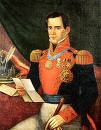

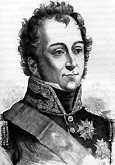
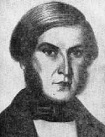
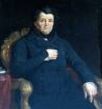
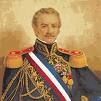




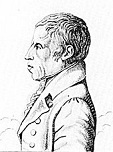

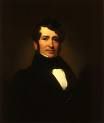


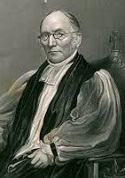
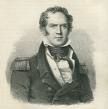




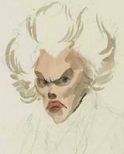

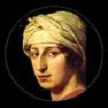
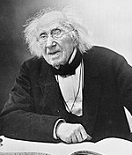

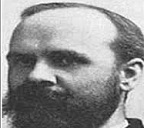

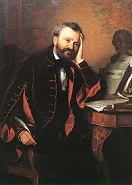
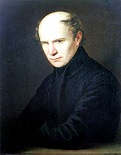
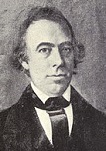
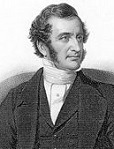

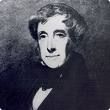
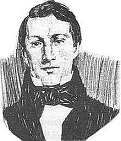

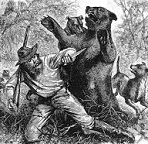
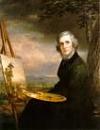

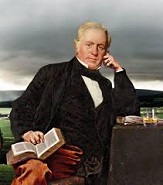
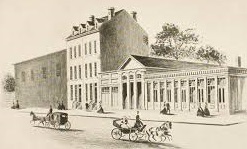
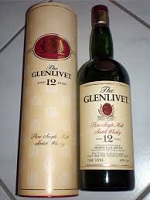
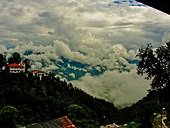
1823
In Jan. the first recorded discovery of fossil human remains takes place at Goat's Hole Cave at Paviland on the Gower peninsula of South Wales,
the Red Lady of Paviland (actually a man).
On Feb. 7 after El Salvador secedes from Guatemala to avoid incorporation into Mexico, and Guatemala invades, the defenders led by
Mariano Prado Baca (1776-1837)
evacuate San Salvador, camp at his Santa Catalina hacienda near San Vicente, march toward Honduras, and surrender at Gualcince.
On Feb. 10 the first Cologne Carnival (Rose Monday) is held.
On Feb. 17 Scottish explorer-botanist Bain Hugh Clapperton (1788-1827)
and Scottish-born British naval surgeon Walter Oudney (1790-1824)
discover Lake Chad
in C Africa while on an expedition from Tripoli to explore the Niver River, becoming the first Euros to accomplish a N-S crossing of
the Sahara Desert; Oudney dies next Jan. 12 in Murmur (near Katagum) on the road to Kano, and Clapperton continues to Sokoto, capital of the Fula Empire,
and returns to Tripoli on Jan. 26, 1825; too bad, after becoming a big hero and publishing an account of his journeys, he decides to
return to Sokoto, where Sultan Bello detains him, and he ends up dying of dysentery on Apr. 13, 1827.
On Feb. 28 the U.S. Supreme Court unanimously rules in Johnson v. M'Intosh
that Native Ams. have the right of occupancy but not title to lands in the U.S., and hence can't sell it to private citizens but only to the U.S. govt.
In Feb. English seal hunter James Weddell (1787-1834)
begins an expedition to search for seals, and sails to 74 deg. S, discovering the
Weddell Sea (main source for the bottom water of the world ocean), and the cute cuddly
Weddell Seal.
On Mar. 19 a rebellion in Mexico led by Veracruz-born criollo
Antonio Lopez de Santa Anna (Antonio de Padua María Severino López de Santa Anna y Pérez de Lebrón) (1794-1876)
forces Emperor Augustus I to abdicate; El Salvador regains its sovereignty, with Mariano Prado as pres. on June 17 (until Apr. 22, 1824, then Oct 1-Dec. 13, 1824,
and Nov. 1, 1826-Jan 30, 1829); a faction in Costa Rica
attempts to annex with Mexico, starting a civil war; too bad, the ex-emperor is granted safe passage out of the country under penalty
of death for returning, and after moving to London via Italy and writing his memoirs, the dope returns next July 15, and is shot by
the authorities in Padilla, leaving 10 children.
On Apr. 4 Gen. Ramon (Ramón) Freire Serrano (1787-1851)
is made the pres.-dictator #3 of Chile by a military junta (until July 9, 1826); on Jan. 25, 1827 he becomes pres. #3 of Chile (until May 8, 1827).
On Apr. 7 the Mechanics' Inst.
is founded in Manchester, England by chemist John Dalton (1766-1844)
et al. to provide a scientific education for the working man based on the ideas of
Thomas Hodgskin (1787-1869); on Oct. 1, 2004 it is merged into the
Victoria U. of Manchester to form the U. of Manchester Inst. of Science and Technology (UMIST).
On Apr. 24 Plainfield, Mass.-born Protestant missionary William Richards (1793-1847)
arrives in Hawaii, landing in Honolulu on Apr. 27, founding a mission on Maui on May 31, hooking up in June with London-born English missionary
William Ellis (1794-1872),
who arrived in Honolulu from Tahiti on Feb. 4, who helps him baptize Queen Mother Keopuolani (1778-1823)
(highest ranking wife of Kamehameha I), causing young king Kamehameha II to leave for a state visit of England in Dec.; meanwhile Ellis tours the islands, incl. Kailua-Kona,
Kaleakekua Bay, Pu'uhonoua o Honaunau, Mauna Loa, the Kilauea, becoming the first Euros to see the caldera, Hilo and Waipi'o Valley, and Mauna Kea,
going on to invent a romanized Hawaiian alphabet (5 vowels, 8 consonants incl. the 'okina for glottal stop)
and set up a printing press before returning to England in Aug. 1824; the Hapa (Hawaiian "half") class of mixed people
begins to emerge, esp. hapa haole (part-white); Hawaiians consider Portuguese to be a separate race from whites.
On May 5 the Roman Catholic Catholic Assoc. is founded in Ireland by
Daniel O'Connell (1775-1847) ("the Liberator") ("the Emancipator")
to fight for their free-ee-ee-doms, demanding complete Roman Catholic emancipation from Protestant England and justice for Ireland, organizing large-scale public protests in Ireland,
becoming one of the first mass-membership political movements in Europe, scaring British home secy. Robert Peel, who utters the 1824 soundbyte:
"We cannot tamely sit by while the danger is hourly increasing, while a power co-ordinate with that of the Government is rising by its side, nay, daily counteracting its views",
and the Duke of Wellington to utter the soundbyte: "If we cannot get rid of the Catholic Association, we must look to civil war in Ireland sooner or later"; too bad, after they
turn to the Tories to stop Catholic Emancipation, only to find that the Ultra-Tories faction is kaput, Danny wins the day - erin go bragh?
On May 27 the Villafrancada
erupts in the Villa Franca de Xira near Lisbon, Portugal, headed by Brig. Gen. Ferreira Sampaio and joined by Dom Miguel de Braganca and his mother the queen
declares support for an absolutist monarchy and the ditching of the 1822 constitution, demanding the abdication of the king, who marches on the town and
causes them all to submit, but dismisses the Cortes, forcing many liberals into exile.
On May 29 the Repub. of Yucatan
is founded, joining the Mexican Federation on Dec. 23 as the Federated Repub. of Yucatan (until 1841).
In May after Conn. disestablishes the Congregational Church in 1818,
Trinity College
is founded in Hartford, Conn. by Episcopalian bishop (since 1852) Thomas Church Brownell (1779-1865),
becoming the 2nd college founded in Conn. after Yale U.
On June 2 (early a.m.) Ashley's Hundred is attacked by Arikara warriors, retreating downstream on the Missouri River and sending for help, reaching Ft. Kiowa before setting out
overland to the Yellowstone River, reaching the forks of the Grand River in modern-day Perkins County, S.D. 200 mi. away, where Scranton, Penn.-born mountain man
Hugh Glass (1783-1833)
surprises a grizzly bear with two cubs, who badly mauls him before being killed, causing his party to carry him on a litter for two days, after which John S. Fitzgerald and
"Bridges" (Jim Bridger?) volunteer to stay with him until he dies, only to abandon him after stealing his equipment, leaving him to crawl back wearing a bear hide to the Cheyenne River,
where he makes a crude raft and floats downstream the rest of the way to Ft. Kiowa, taking a total of six weeks, pardoning the bozos; in early spring 1833 he is killed on the
Yellowstone River by the Arikara; filmed in 2015 by Alejandro Inarritu as "The Revenant" starring Leonardo DiCaprio.
On June 5 Joao VI revises the new liberal constitution of Portugal to take out the liberalism and make it absolutist.
On July 4 San Francisco Solano
in Sonoma becomes the 21st and last Spanish mission founded in Calif.; San Diego de Alacala was the first in 1769.
On July 15 after a workman repairing the roof starts it, the major papal basilica of
St. Paul's Outside the Walls
in Rome (built 450) is destroyed by fire; it is reopened in 1840, and reconsecrated in 1855 by Pope Pius IX and 50 cardinals.
On July 20 Pope (since 1800) Pius VII (b. 1740) dies, and on Sept. 28 Annibale Sermattei Della Genga is elected Pope (#252)
Leo XII (1760-1829),
continuing Pius VII's policies of establishing concordats with govts. in return for state protection of the Church, while policing morals,
persecuting Jews, and condemning Protestant Bible societies and anybody else in the way of the One True Church; the Rothschild family takes over
the worldwide financial operations of the Church - are you making a toy angel?
On Aug. 31 after the crowned heads of Europe approve a French invasion of Spain by the 60K-man
Hundred Thousand Sons of Saint Louis (Spanish Expedition),
led by the Duke of Angouleme (son of future king Charles X) to reinstate his absolute power, the
Battle of Fort Trocadero is a V for the French, followed on Sept. 20
by Fort Sancti-Petri,
which turn their guns on Cadiz, causing it to fall on Sept. 28, and the Cortes to dissolve itself and hand over Ferdinand VII to the French before
surrendering on Sept. 30, ending the Spanish Liberal Rev. of 1820 and restoring Ferdinand VII as king of Spic 'n' Span Spain, who on Oct. 1 breaks his
oath and revokes the liberal Constitution of Cadiz of 1812 and all legislation enacted by the pesky rev. govt., going on to rule with an iron hand,
hanging pesky Rafael del Riego on Nov. 7; on Nov. 5 the Duc d'Angouleme leaves his 45K-man force in Madrid under the command of Gen.
Louis-Auguste-Victor, Count de Ghaisnes de Bourmont (1773-1846),
who evacuates Spain completely by 1828; French foreign affairs minister (since Aug. 28, 1822) Francois-Rene de Chateaubriand approves of the invasion
despite opposition by the Duke of Wellington, getting him removed on Aug. 4, 1824 by new PM Jean-Baptiste de Villele.
On Sept. 1 after the U.S. Supreme Court goes a record 11 years, 8 mo. without a change in membership (1811-23),
New York-born former U.S. navy. secy. #6 (since Jan. 1, 1819) Smith Thompson (1768-1843)
is appointed as the 18th justice (until Dec. 18, 1843) to replace Henry Brockholst Livingston (1806-23), and confirmed by the U.S. Senate on Dec. 9,
giving the court a lame eight members; an opponent of chief justice John Marshall, Thompson goes on to run unsuccessfully for gov. of N.Y. from the bench in 1828.
On Sept. 21-22 Joseph Smith Jr. is allegedly visited by the angel Moroni, who tells him of the Book of Mormon and shows him the gold plates buried in Hill Cumorah;
Moroni, having a pipeline to God tells him the true history of the American continent, how it was first colonized by the Lost Tribes of the Jews, then visited by
fictional Bible figures incl. Jesus Christ, who gave them the true religion, after which there was a dreadful apostasy, causing their skin to darken as punishment
(creating the Indians), and how now that his pure whiteness has arrived, he will become head of the one true, new, and improved church and get all the worshipful,
adoring white poontang he can shake his fork at as compensation, making everybody look like snack-and-seal Elvis?; of course, he has to endure a
get-the-odors-out 4-year college-free worthiness quest before being permitted to graduate into the big leagues of come-hungry-leave-happy prophetdom?
On Sept. 27 after his mother Keopuolani dies on Sept. 16, 6'0" Hawaiian king (since May 20, 1819) Kamehameha II makes up his mind to sail for England to
discuss the Russian problem with George IV, followed by France to seek another alliance against the Russkies, and in Nov. he and his queen Kamamalu
set sail on the
British whaling ship L'Aigle (Fr. "The Eagle") under Capt. Valentine Starbuck, becoming the first foreign state visit by a Hawaiian king, making an unscheduled
detour and arriving in Rio de Janeiro next Feb. to meet Emperor Pedro I (first visit by a non-Euro monarch to a Latin Am. country), staying for 18 days before arriving
in Portsmouth, England on May 17, where they become a big curiosity with the press, attending a reception with 200 guests held in their honor next May 28, then touring
London incl. Westminster Abbey (where the Hawaiian king refuses to set foot for fear of desecrating the burial place of kings), attending the Royal Opera House in
Covent Garden on May 31, the Theatre Royal in Drury Lane on June 4, and the Royal Military Asylum on June 5, where they contract measles, the queen dying on July 8 and
the king on July 14 before they can meet with George IV.; while in Brazil the Hawaiians visit coffee plantations and taste their first coffee, causing several coffee
plans to be send to Francisco Paulo de Marin, which all fail, after which an Ethiopian variety introduced by Kamehameha's son Poke thrives, becoming Kona coffee;
while in Brazil, royal brats Poki (Boki) and Kalanimoku go skinny-dipping on a beach, shocking some women, but Pedro I smooths things over.
On Nov. 19 Joseph Smith Jr.'s Tunbridge, Vt.-born eldest brother
Alvin Smith (b. 1798)
dies in Palmyra, N.Y. of mercury poisoning from calomel after allegedly becoming a believer in his claim about gold plates on Hill Cumorah, which he hasn't
recovered yet, after which Young Joe begins to take over family affairs; when he is given a funeral at the local Presbyterian church, and Rev. Stockton claims that since
he isn't a church member he's already in Hell, Young Joe swears to never become a Presbyterian, and later has a vision about his big brother getting saved somehow,
leading to the establishment of the Mormon doctrines of redemption,
baptism of the dead (vicarious or proxy baptism), and
destiny of the unevangelized.
200 years after the Pilgrims land on Plymouth Rock, their descendants
claim the entire hemisphere? You stay in your hemisphere, I'll stay in mine?
On Dec. 2 (Tues.) after Austria suggests that the European monarchs should assist Spain in its struggle against Simon Bolivar's revolt, the
Monroe Doctrine
is announced by Pres. Monroe in his 1823 annual message to Congress, declaring the preeminence of the U.S., and prohibiting European expansion (colonization)
in the Western Hemisphere, warning that any extension of the European system there will be regarded as a hostile act; U.S. secy. of state
J.Q. Adams contests "the right of Russia to any territorial establishment on this continent", rejecting the tsar's 1821 claims to the Pacific coast;
France and E European powers attempt to get Britain to join a congress to discussion the suppression of revolts in the Spanish-Am. colonies,
but Britain refuses, saying that it is Spain's sole responsibility; British sea power combines with the Monroe Doctrine to let the revolutions succeed.
British home secy. Robert Peel finishes the work started by Sir Samuel Romilly and Sir James Mackintosh and obtains the abolition of the death penalty
for about 100 harmless offenses; the practice of burying a suicide at a crossroads with a stake through his heart to keep him from coming back as
an evil ghost is outlawed, and suicides can now be buried on consecrated ground (west side for the common people, south for the gentry, north for
criminals, and east for the saintly because it's nearer to the Holy Land).
The Treaty of Moultrie Creek
between the U.S. and the Seminoles establishes a 4M-acre rez in C Fla. and assures the return of runaway slaves.
Andres (Andrés) Novales (1800-23)
leads a revolt in the King's Own Regiment in the Philippines, deepening ethnic divisions and leading to Philippine nationalism.
The French occupy El Ferrol naval base in Spain.
A U.S. fleet under Commodore David Porter (1780-1843)
is sent to the West Indies to suppress piracy (until 1825); too bad, after one of his officers is jailed, Porter invades Fajardo, Puerto Rico,
causing him to be court-martialed and resign in 1826, after which he joins the Mexican Navy, becoming its CIC in 1826-9; when he croaks in 1843, his younger son
David Dixon Porter and adopted son David Farragut go on to become U.S. admirals, and his elder son William David Porter becomes a commodore.
Switzerland refuses asylum to political refugees.
Am. businessman William Wheelwright (1798-1873)
is shipwrecked near Buenos, Aires, and decides to stay in South Am., going on to develop a steamship line on the W coast in 1840,
discover coal and copper deposits in Chile, and build one of the first railroads in South Am. along with the first telegraph line.
The Texas Ranger Div. (Texas Rangers)
is founded by Stephen F. Austin; in 2015 they have 162 commissioned members - upgrade to the healthier side of whitening?
Former U.S. House speaker #9 (1814-15) Langdon Cheves (1776-1857)
of S.C. rescues the Bank of the United States by austerity measures and by putting pressure on the state banks, and relinquishes his position as pres. to
Nicholas Biddle (1786-1844) of Philadelphia, Penn. (until 1836).
U.S. Supreme Court justice Bushrod Washington (George Washington's nephew) decides the federal court case of
Corfield v. Coryell,
providing a list of the "privileges and immunities" enjoyed by U.S. citizens, incl. the right to life, liberty, property, and happiness, but
unfortunately not the right for non-residents to harvest oysters and clams in N.J.
The First British-Ashanti (Anglo-Ashanti) War in Ghana (ends 1831)
begins when the Ashanti kidnap and murder an African sgt. of the Royal African Corps, then ambush and kill a small British force, killing 10 and
injuring 39, after which Irish-born British gov. Sir Charles McCarthy (1764-1821)
tries in vain to negotiate, then leads a force of 3K from the Cape Coast.
The fairyland foothill town of Mussoorie (alt. 6,170 ft.) in Uttarakhand, N India 35 mi. from Dehradun
and 180 mi. N of modern-day New Delhi (modern-day pop. 30K0 is founded by British lt.
Frederick Young (1786-1874) of the British East India Co. as a hunting lodge;
he raises the first Gurkha regiment there, and plants the first potatoes and tea in the Himalayas.
Old Hickory backer Sam Houston becomes a U.S. congressman from Tenn.
Learned Jewish rabbi David Paul Drach (1791-1868)
converts to Roman Catholicism, becoming a big propaganda V for the Church - whose panties are on the bulletin board?
A fire destroys one of the two ancient churches built over the tomb of St. Paul in 390 by Roman emperor Theodosius, causing a new basilica to
be built over the spot; in Dec. 2006 the sarcophagus is unearthed by Vatican archaeologists.
William Smith (1756-1835) and
Zachary Macaulay (1768-1838)
found the Anti-Slavery Society (London Society for the Abolition of Slavery in Our Colonies)
in England, with Macaulay amassing huge volumes of evidence to use in the battle.
The Oxford Union Society
is founded in England, becoming the world's most prestigious debating society.
George IV presents his father's library to the British Museum.
Middlebury College
in Vt. (founded on Nov. 1, 1800) becomes the first U.S. higher education inst. to grant a bachelor's degree to an African-Am.,
Alexander Lucius Twilight (1795-1857).
The Brooklyn Museum of Art
is founded as the Brooklyn Apprentices' Library.
George Pope Morris (1802-64) and
Samuel Woodworth (1784-1842) found the
New York Mirror and Ladies' Literary Gazette,
ed. by Morris until 1842.
The medical journal The Lancet
is founded in England by surgoen Thomas Wakley (1795-1862)
et al., reaching 4K circ. by 1830 and becoming one of the top medical journals on Earth.
Jeremy Bentham (1748-1832) and
John Stuart Mill (1806-73) found
Westminster Review
for disseminating the utilitarian views of the "Philosophical Radicals", incl. them plus David Ricardo (1772-1823),
George Grote, Joseph Hume, and Edwin Chadwick, who helped draft the Poor Law Amendment Act - it's not just how
you're covered it's how you're treated?
Zion's Herald
mag., "An Open Forum for People of Faith" begins pub. in the U.S. - spring into action and shoe big?
Rudolph Ackermann of London begins pub. Forget-Me-Not,
the first illustrated British lit. annual, becoming a hit for women to show off in their drawing rooms.
Count Odette Philippe
introduces the red grapefruit to Safety Harbor, Fla.; the first white variety is derived from it in 1830, followed by the tangelo in 1905, the minneola in 1931,
and the sweetie in 1984.
Am. printer William J. Stone makes a copper plate engraving of the Declaration of Independence, which
ends up being used to make reproductions after the original suffers irreversible fading.
The English Parliament passes the 1823 Excise Act,
making commercial distillation of whiskey more profitable and imposing punishments on landowners when unlicensed distilleries are found on their lands; in 1824 former moonshiner
George Smith (1792-1871) becomes the first person to obtain a distillery license under the new law,
founding Glenlivet Distillery
in Moray, Scotland, "The single malt that started it all", offering 12 to 25-y.-o. varieties, becoming the 2nd best-selling brand on Earth
and the best-selling brand in the U.S., producing 6M bottles/year; in 1977 it is acquired by Seagram; in 2000 French co. Pernod Ricard acquires it.
Sports:
The Royal Thames Yacht Club
is founded on Aug. 14 in the White Horse Tavern in London, holding their first race on Sept. 19 between Blackfriars and Wandsworth; the royal designation
is added in 1830 when William IV is crowned.
Rugby Football
is allegedly first played at Rugby School
in Rugby, Warwickshire, England (founded 1567) when student (later Anglican clergymen)
William Webb Ellis (1806-72),
"with fine disregard for the rules of football as played in his time, first took the ball in his arms and ran with it, thus originating
the distinctive feature of the Rugby game"; he really bans the practice of hacking (kicking in the shins to tackle), but the first story plays
better so it becomes The Story?
Architecture:
Niblo's Garden
on Broadway near Prince St. in Manhattan, N.Y. is founded as Columbia Garden, acquired in 1828 by Irish-born coffeehouse owner
William Niblo (1790-1878), who turns it into the San Souci theater, and
Niblo's Theater in 1834, going on to host P.T. Barnum's first exhibition 1835 and form a vaudeville co. in summer 1837; after being destroyed
by a fire on Sept. 18, 1846 and reopened in summer 1849 with 3.2K cap. ($2/seat), it begins producing Italian opera, becoming the best-equipped
and most fashionable theater in New York City; it is destroyed by fire in 1872 and rebuilt by dept. store magnate A.T. Stewart; the final performance is given on Mar. 23, 1895.
Royal Brighton Pavilion (begun 1815) is finished.
Sir Robert Smirke begins building the British Museum in London (finished 1847).
Louis Lebas begins Notre Dame-de-la-Lorette in Paris.
Inventions:
French inventor Pierre Antoine Angilbert
invents a food can that can be opened by melting the solder around the lid; real can openers don't appear until the 1860s, when cans begin to be made with tin plate.
Charles Babbage (1791-1871) of England invents the first working digital calculating machine,
the Difference Engine to calculate tables of functions by finite difference methods.
Cyrus P. Dalkin of Concord, Mass. invents carbon copies; the public doesn't really pick up on the idea for fifty years?
Sebastien Erard (Erhard) (1752-1831), piano maker in France since the 1790s invents a
grand piano with double escapement.
Science:
21-y.-o. Hungarian mathematician Janos (Johann) Bolyai (1802-60)
and 30-y.-o. Russian mathematician Nikolai Ivanovich Lobachevsky (1792-1856)
independently discover Non-Euclidean Geometry;
the same year French mathematician Adrien-Marie Legendre (1752-1833)
comes up with a bogus proof of Euclid's Fifth Postulate, stumbling over the big breakthrough without realizing it?
Augustin Louis Cauchy rigorously proves the Fundamental Theorem of Calculus.
Michael Faraday liquefies chlorine.
Joseph von Fraunhofer constructs the first glass optical transmission grating by ruling the lines with a diamond point, allowing him to
measure their exact wavelength instead of only the angles.
Czech physiologist Jan Evangelista Purkinje (1787-1869) proposes fingerprints as a means of identification,
recognizing nine principal configuration groups.
Nonfiction:
Michel Eugene Chevreul (1786-1889), Researches on Animal Fats (Recherches sur les corps gras d'origine animale); first analysis of soap, incl. stearin
(white solid substance), olein (liquid fat), and oleic acids, giving them their names; he goes on to discover margaric acid and creatine, pioneer the field of gerontology, and become one of the
72 scientists and engineers inscribed on the Eiffel Tower, dying 10 days after Gustave Eiffel plants the French Tricolor on top, becoming the last person born before the French Rev. to die.
Lorenzo Dow (1777-1834), The Stranger in Charleston, or The Trial and Confession of Lorenzo Dow.
Johann Peter Eckermann (1792-1854), Beitrage zur Poesie mit Besonderer Hinweisung auf Goethe.
Sir John Franklin (1786-1847), Narrative of a Journey to the Shores of the Polar Sea in the Years 1819, 20, 21, and 22.
Julius Heinrich Klaproth (1783-1835), Asia Polyglotta (Paris); all that is known about Oriental languages by Westerners at this point.
Charles Lamb (1775-1834), Essays of Elia.
Comte Henri de Saint-Simon (1760-1825), Le Catechisme Des Industriels.
Mary Wollstonecraft Shelley (1797-1851), Valperta; or, The Life and Adventures of Castruccio, Prince of Lucca;
about Castruccio Castracani (1281-1328).
Rev. Ethan Smith (1762-1849), View of the Hebrews;
New Israelites preacher from Poultney, Rutland County, Vt. claims that the Native Ams. are descended from the Ten Lost Tribes of Israel; Oliver Cowdery, who helped
Joseph Smith Jr. translate the Gold Plates grew up in Poultney, Rutland County, Vt. and attended Ethan Smith's Congregational Church there along with his father
William Cowdery, known for dowsing (money digging); Joseph Smith Sr. also was a member?; the real source of the Book of Mormon?
Robert Southey (1774-1843),
History of the Peninsular War, 1807-1814 (3 vols.) (1823-32).
Louis Adolphe Thiers (1797-1877), Histoire de la Revolution Francaise (10 vols.) (1823-7); loose with the facts but popular?
William Tudor (1779-1830), The Life of James Otis of Massachusetts.
Music:
Daniel Auber (1782-1871) and Eugene Scribe (1791-1861), Leicester (opera).
Ludwig van Beethoven (1770-1827), Missa Solemnis (Solemn Mass), Op. 123 (St. Petersburg, Russia); commissioned by Prince Nikolas Galitzin to
celebrate the 1820 installation of Beethoven's friend, pupil and patron Archduke Rudolph as cardinal;
Diabelli Variations (1 hour); 33 variations dedicated to his "Immortal Beloved"
Antonie (Antonia) von Birkenstock Brentano (1780-1869).
Sir Henry Rowley Bishop (1786-1855), Clari, or the Maid of Milan (operetta) (Aug. 5) (Covent Garden, London);
contains the song Home Sweet Home, with lyrics by John Howard Payne (1792-1852).
Ferenc Erkel (1810-93), Himnusz; lyrics by Ferenc Kolcsey (1790-1838); adopted as the Hungarian nat. anthem in 1844.
William Sandys (1792-1874) and Davies Gilbert (1767-1839) (eds.),





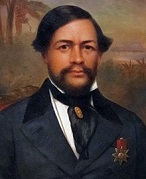





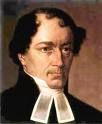









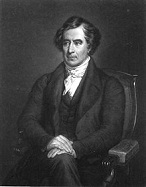

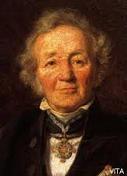


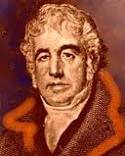

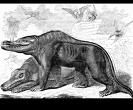
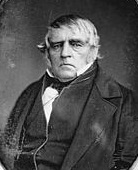

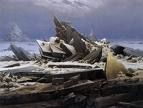
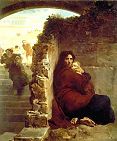
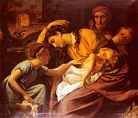
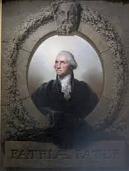
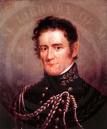
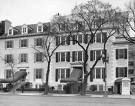
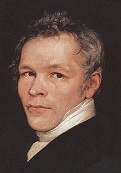
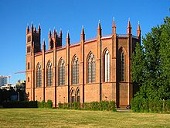
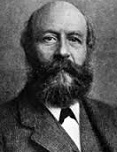
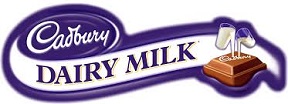
1824 In Jan. the U.S. Army establishes the frontier outpost of Ft. Brooke at the mouth of the Hillsborough River on Tampa Bay in W Fla., which on Jan. 18, 1849 after Fla. becomes U.S. state #27 in 1845 becomes the village of Tampa, Fla. (modern-day pop. 336K/3M), reincorporated as a town on Dec. 15, 1855. On Mar. 2 the U.S. (Marshall) Supreme Court rules 6-0 in Gibbons v. Ogden that the federal govt. alone regulates interstate commerce and that this extends to navigation after Robert Fulton and his financial backer Robert R. Livingston (1746-1813), cousin of recently-deceased U.S. Supreme Court justice Henry Brockholst Livingston receive a monopoly to operate commercial steamboats from the state of New York, conflicting with Thomas Gibbons' federal license under the U.S. Coasting Act, and the court rules that the Congressional power to regulate commerce, "like all others vested in Congress, is complete in itself, may be exercised to its utmost extent, and acknowledges no limitations other than are prescribed in the constitution"; states eventually discover they have a concurrent jurisdiction over commerce, but only so long as they do not come in conflict with the big bad feds. On Mar. 17 the Dutch cede Malacca and other possessions on the Malay Peninsula to Britain in return for Bengkulen in Sumatra and Rangoon; meanwhile the British obtain recognition of "paramount interest" in Siam (Thailand) from Rama II (b. 1767) just before he croaks on July 21, and after the younger Mongkut is passed over by the nobles, he is succeeded by his son Rama III (Nangklao) (Jessadabodindra) (1788-1851) as Chakri king #3 of Siam (until 1851), going on to have 51 children - just try messing with Yul Brynner? On Apr. 12 the British Parliament passes an act establishing free trade between England and Ireland in all manufactured goods, devastating the southern Ireland home-based textile industry, which can't compete with mechanization. On Apr. 29-30 under the pretext that a Masonic conspiracy exists to assassinate the king, Dom Miguel de Braganca (Bragança) (1802-66), youngest son of Joao VI stages the Abrilada Coup in Portugal, causing daddy to take refuge aboard British man-of-war Windsor Castle and proclaim his son a traitor; Dom Miguel is forced to yield and leave Portugal, and Joao VI is reinstated in power, restoring the liberal constitution. In Apr. French ultra-royalist PM Jean-Baptiste, Comte de Ville introduces the Anti-Sacrilege Act into the Chambre Retrouvee, but it fails; after the accession of Charles X in Sept. he reintroduces it, and after long passionate debate it is passed in 1825 by 210-95, making sacrilege a capital offense, with lesser offenses given life forced labor; too good, it is never used, and is revoked after the 1830 July Rev. - sacre bleu? In Apr. Hawaiian Queen Ka'ahumanu publicly converts to Protestant Christianity and encourages her subjects to do ditto, presenting them with their first codified body of laws based on Christian ethics esp. the Ten Commandments, and getting baptized next Dec. 5 under tha name Elizabeth, going on to order Roman Catholic missionaries to leave Hawaii on July 7, 1827, and signing a law in 1830 forbidding Roman Catholic teachings with deportation as the punishment; meanwhile on July 14, 1824 king (since May 20, 1819) Kamehameha II (b. 1797) dies of measles on a trip to England, and his baptized Christian younger brother Kamehameha III (Kauikeaouli) ("placed in the dark clouds") (1813-54) becomes king of Hawaii on June 6, 1825 (until Dec. 15, 1854) under the regency of Queen Ka'ahumanu followed by Ka'ahumanu II, going on to becoming the longest reigning Hawaiian monarch (29 years, 192 days), attempting to modernize and Westernize Hawaii while retaining national identity. On June 16 after an animal cruelty society is founded in Ulster, Ireland in 1836, the Royal Society for the Prevention of Cruelty to Animals (RSPCA) is founded in London, England by William Wilberforce, Richard Martin, Rev. Arthur Broome, Sir James Mackintosh, Basil Montagu et al., becoming the oldest and largest animal welfare org. on Earth; in 1824 MP and brewer Foxwell Buxton becomes chmn. On June 18 Ferdinand III (b. 1769) dies, and his Florence-born son Leopold II (1797-1870) becomes the last grand duke of Tuscany (until July 21, 1859) - with dreams of the Medicis dancing in his head? In the summer hucksters Lozier and DeVoe perpetruate a hoax on hundreds of workmen and others, hiring them to saw off Manhattan Island from the mainland and turn it around to keep its southern end from sinking; they make their run for it on the day the work is set to begin. On Aug. 4 the U.S. negotiates a treaty with the Iowa tribe, legally stealing yet more of their birthright land with forked tongues. On Aug. 6 the Battle of Junin is a V for Simon Bolivar over the Spanish. On Aug. 24 old fart Am. Rev. War hero Gilbert du Motier, Marquis de Lafayette (1757-1834) arrives in New York City as a "guest of the nation" to begin a year of being feted; New Yorkers become embarrassed when they realize they have no fine restaurants to toast him in, only oyster bars and taverns; on Sept. 2 he visits Concord, Mass., where a speech made by Samuel Hoar that Concord is the spot where "the first forcible resistance" to British arms was made starts an eternal spitting war with nearby Lexington; since he's a friend of Nelly Custis Lewis, Laffy stays at Woodlawn Plantation in Mount Vernon, Va., and spends a week with Thomas Jefferson in Monticello, Va., after which the wine cellar has to be restocked; after the U.S. Congress votes him $200K to match his donation to the struggling colonies in 1778, along with the 36 sq. mi. Lafayette Land Grant in Leon County, Fla. the town of Tallahassee, Fla. (modern-day pop. 190K/380K) is founded as the capital of Fla. Territory, smack dab in the heart of the Fla. Cotton Belt in the Fla. Panhandle, center of the Fla. slave trade. On Sept. 15 Guatemala proclaims independence from Spain of all of Central America; in Dec. Costa Rica becomes a repub. with a new constitution, the Pacto de Concordia, and Spain is down to Puerto Rico and Cuba in the New World - need to lose weight too, it's really hard? Is the French Louis Line finally kaput? On Sept. 16 French king (since July 8, 1815) Louis XVIII (b. 1755) dies, and is succeeded by his brother the Count d'Artois under the title of Charles X (1757-1836) (until Aug. 2, 1830), who goes on to try to restore absolute govt., giving 1B francs next year to compensate the nobles for their grievances dating back to 1789 - fat-filled takeout will now replace home-cooked meals? On Oct. 4 the repub. of the United Mexican States is proclaimed, with a constitution based on the 1814 Acta Constitucional of Jose Miguel Ramos Arizpe (Arispe) (1775-1843), "Father of Mexican Federalism"; on Oct. 10 epileptic Gen. Jose Miguel Ramon Adaucto Fernandez y Felix renames himself Guadalupe Victoria (1786-1843), and becomes pres. #1 (until Apr. 1, 1829), going on to abolish slavery and establish the Colegio Militar (Military Academy), and establish diplomatic relations with all major powers; Mexico passes a colonization act granting hundreds of huge "rancho" estates to Mexican settlers in Calif., where the rancheros develop a luxurious lifestyle on the backs of Indian slave labor - time for Zorro? Dome-top becomes the head of the nation, Or, don't break my clay heart again? A-Calhoun or B-Calhoun? On Oct. 26-Dec. 2 after the Federalist party is in disarray, and the Dem.-Repubs. confine the U.S. pres. contest to themselves, the leading contenders being Andrew Jackson of Tenn., treasury secy. William H. Crawford of Ga. (backed by Martin Van Buren's efficient machine, the Albany Registry), John C. Calhoun of S.C., Henry Clay of Ky., and J.Q. Adams of Mass., and Jackson captures the state Repub. convention in Penn., causing Calhoun to withdraw from the race, content to seek the vice-presidency, and being welcomed by both the Jackson and Adams camps, a personal and regional 1824 pres. election is held; the electoral votes are counted, and John C. Calhoun of South Kehrulaynuh receives two-thirds of the votes cast for vice-pres., but nobody receives a majority of the electoral votes for pres. (Jackson 99, Adams 84, Crawford 41, Clay 37), and the election is thrown into the House of Reps. for the 2nd time (first 1801); Clay throws his support to Adams, saying, "I cannot believe that killing 2,500 Englishmen at New Orleans qualifies for the various, difficult and complicated duties of the Chief Magistracy"; on Feb. 9 J.Q. Adams wins with 13 states to 7 for Jackson and 4 for Crawford, becoming the first time a pres. is elected who loses both the popular and electoral votes (1876, 1888, 2000); Jackson first runs for office at a time that the U.S. has only one nat. party, but leaves office in a U.S. with a thriving 2-party system. In Oct. the Hardscrabble Riot in Providence, R.I. see whites get off easy for tearing down houses of blacks. On Dec. 9 the Battle of Ayacucho sees Simon Bolivar and his Creoles kick aristocratic Spanish butt and secure Peru's independence from Spain; Simon Bolivar is proclaimed emperor ("supreme dictator") of Peru (until 1827). The First Anglo-Burmese War begins (ends 1826). After the Turks seize the island of Ipsara from the Greeks but are defeated at Mitylene, Turkish sultan Mahmud (Mohammed) II asks for aid from Egyptian pasha Mehmet Ali against the pesky Greeks, and he agrees in return for the promise of Crete and other Turkish possessions; the Egyptians capture Crete then invade Morea (Peloponnesus), capturing it by 1826; the siege of Missolonghi (begun 1821) is ended, with the loss of Lord Byron (1788-1824) on Apr. 19 of fever. Imam Turki Ibn Abdullah captures Riyadh and founds the Second Saudi State (Emirate of Nejd) (until 1891). The U.S. signs a Frontier Treaty with Russia, preparatory to another treaty to be signed with Britain next year, whereby Britain accepts the line of 54 deg. 40 min. (54-40) as the S boundary of its Pacific coast claims, and gives the jointly-occupied (U.S. and Britain) Oregon Country clearly defined boundaries. Quebec-born John (Jean-Baptiste) McLoughlin (1784-1857) becomes dir. of the Hudson's Bay Co. in Oregon (until 1846), going on to help many settlers and become known as "the Father of Oregon". Sir William Edward Parry makes a 3rd expedition to Baffin Bay to find a N sea passage to North Am. German emigration to Brazil begins - the original Boys from Brazil? Britain repeals the Combination Acts of 1799-1800 making labor strikes illegal, along with the Elizabethan Statute of Apprentices making it a crime for a worker to leave work unfinished (and thus to strike); joyous laborers overreact and stage numerous strikes accompanied by violence, which causes a legislative reaction next year. The Bureau of Indian Affairs (BIA) is created within the U.S. War Dept. To deal with large numbers of unemployed soldiers from the Napoleonic Wars, the British Vagrancy Act of 1824 makes it illegal to sleep on the streets or beg, and also for any suspected criminal to loiter in a public place, giving police the power to stop, search, and arrest anybody they like based on suspicion alone, which becomes known as the Sus Law - the original Stop and Frisk? The city of Brisbane is founded in Australia on the Brisbane River 15 mi. inland from Moreland Bay as a penal colony for the worst cases from Sidney, and named after New South Wales Gov. (and astronomer) Sir Thomas Makdougall Brisbane (1773-1860) (modern pop. 1M). The city of Detroit, Mich. is reincorporated (first time 1815). The town of Urbana, Ill. 70 mi. E of Springfield is founded near the town of Champaign. The Franklin Inst. is founded in Philadelphia to inform the public in the fields of science and industry. The Congressional (King) Caucus for nomination of the U.S. pres. is discredited as anti-democratic and abandoned after this year's election. The Am. Sunday School Union is formed in Philadelphia, Penn. Indian princess Hazrat Babajan (1806-1931) bugs out of her arranged marriage and goes guru, beginning a series of religious pilgrimages then settling down in Pune around 1905, where she lives under a neem tree with a shelter of gunny sacks for the rest of her life. N.Y. atty. Millard Fillmore (1800-74) enters politics working for N.Y. political boss Thurlow Weed (1798-1882), holding state office for eight years. Tenn. politician James K. Polk (b. 1795) marries Sarah Childress (1803-91); they have no children, continuing the barren tradition of presidents Washington, Madison, Monroe and Jackson. Artist Francisco de Goya moves from his "deaf man's house" in Madrid to Paris and starts making lithographs. Artist J.A.D. Ingres returns to Paris from Italy, finding that his Vow of Louis XIII has made him a celeb, and he turns into the portraitist of choice for 19th cent. artistocratic European women, lengthening their arms to complement their sleeves and adding 2-3 extra vertebrae to their backs to make them look more beautiful, making him France's #1 artist by 1840 as well as the People Mag. artist of the 19th cent.? Future U.S. pres. #14 (1853-7) Franklin Pierce (1804-69), son of N.H. gov. Benjamin Pierce graduates from Bowdoin College and becomes a lawyer. Justus von Liebig (1803-73) of the U. of Erlangen discovers that no univ. in the world has a lab for students, then leaves to found his own at the U. of Giessen in Giessen, Hessen, W Germany (40 mi. NW of Frankfurt) (founded 1607), becoming the first modern teaching laboratory, specializing in organic chemistry - the first lab geeks? Canadian fur trader Peter Skene Ogden (1790-1854) begins exploring the Snake River Valley (until 1830) incl. Ore., Wash., Nev., Calif., Utah, Idaho, and Wyo., incl. the Great Salt Lake, Weber River, and Ogden River; the city of Ogden, Utah is later named for him. Ky. frontiersmen Sylvester Pattie (1782-1828) and his son James Ohio Pattie (1804-51) lead 116 men through the Am. Southwest for six years, suffering from hardships that whittle them down to 16 men by 1827, finally reaching San Diego, Calif., only to be arrested as spies by the Mexican authorities; after Sylvester dies, James is released after producing some smallpox vaccine and vaccinating the pop., then returns to the U.S. in 1830 flat broke; in 1831 he and Timothy Flint pub. The Personal Narrative of James O. Pattie of Kentucky. Charles Dickens' father goes to debtors' prison. Heinrich Heine tires of poetry, goes back to Gottingen to study law, then converts to Christianity next year to obtain a law degree, but never practices, going back to lit. pursuits. The Athenaeum Club is founded in London by architect Decimus Burton (1800-81). The Nat. Gallery is founded in Trafalgar Square, London, going on to house 2.3K+ paintings dating from 1250-1900. The U. of Manchester in England is founded. Notre Dame U. in South Bend, Ind. is founded by the French Congregation of Holy Cross; it is turned over to lay control in 1967. Le Globe, founded by Pierre Leroux (1798-1871) begins pub. on Sept. 15 in Paris (until Apr. 20, 1832), concentrating on Romantic creations, and becoming the official organ of the Saint-Simonian movement in 1830. Cadbury U.K. Ltd. confectionary co. is founded in Birmingham, England by Quaker John Cadbury (1802-89) and his brother Benjamin Cadbury (later his sons Richard and George) to sell tea, coffee, and drinking chocolate; George goes on to build the model teetotaler Bournville estate for workers; in 1854 Queen Victoria grants them a royal warant; in 1905 they introduce dairy milk chocolate, which has more milk than rival products, becoming their best selling product by 1914; in 1919 it merges with J.S. Fry & Sons, followed in 1969 by Schweppes, and in 2010 by Kraft Foods; in 1923 Cadbury Creme Eggs are introduced for Easter; it takes until 1971 to simulate a real egg with white and yolk; too bad, in 2016 Cadbury removes the word "Easter" from packaging; in 1978 Cadbury-Schweppes acquires Peter Paul for $58M; in 1988 the U.S. rights to the chocolate business are acquired by Hershey Co.; how convenient that chocolate is full of cadmium? Sports: The Denton Cricket Club is founded in England. Architecture: Blair House is built by U.S. surgeon gen. #8 (1818-36) Joseph Lovell (1788-1836); it is acquired in 1836 by newspaper publisher Francis Preston Blair, and purchased by the U.S. govt. in 1942. A new London Bridge (originally built in 1209), designed by John Rennie the Elder (1761-1821) and built by John Rennie the Younger (1794-1874) is begun (finished 1831), becoming the bridge in Charles Dickens' "Oliver Twist" where Nancy's Steps lead down to the Surrey bank of the Thames River to the W, the site where Noah Claypole overhears Nancy's conversation with Mr. Brownlow; sold to the U.S. in 1970. The Gothic revival Friedrichwerdersche Kirche in Berlin, Germany, designed by Karl Friedrich Schinkel (1781-1841) is begun (finished 1831), becoming the first Neo-Gothic church in Berlin. Inventions: Asphalt is first used to pave roads on the Champs-Elysees in Paris. Andre-Marie Ampere invents the Galvanometer. On Oct. 21 Joseph Aspdin (1778-1855) of Britain patents Portland Cement. Charles Macintosh (1766-1843) of Britain produces the first Mackintosh (coat not computer). James Neilson of England patents a way of burning coal more efficiently that allows the low-grade coal of Lanarkshire to be used. Science: In Oct. French physicist Baron Jean-Baptiste Joseph Fourier (1768-1830) pub. Remarques generales sur les Temperatures du globe terrestre et des espaces planetaires (General Remarks on the Temperature of the Terrestrial Globe and the Planetary Space) in Annales de Chimie et de Physique, in which he calculates that the Earth would be far colder if it had no atmosphere, allegedly discovering the Greenhouse Effect (talking about a glass box) and launching climate change science; "In short, if all the strata of air of which the atmosphere is formed, preserved their density with their transparency, and lost only the mobility which is peculiar to them, this mass of air, thus become solid, on being exposed to the rays of the sun, would produce an effect the same in kind with that we have just described. The heat, coming in the state of light to the solid earth, would lose all at once, and almost entirely, its power of passing through transparent solids: it would accumulate in the lower strata of the atmosphere, which would thus acquire very high temperatures. We should observe at the same time a diminution of the degree of acquired heat, as we go from the surface of the earth. The mobility of the air, which is rapidly displaced in every direction, and which rises when heated, and the radiation of non-luminous heat into the air, diminish the intensity of the effects which would take place in a transparent and solid atmosphere, but do not entirely change their character. The decrease of heat in the higher regions of the air does not cease, and the temperature can be augmented by the interposition of the atmosphere, because heat in the state of light finds less resistance in penetrating the air, than in repassing into the air when converted into non-luminous heat." Norwegian mathematician Niels Henrik Abel (1802-29) proves that the general quintic cannot be solved in radicals - sounds like a comment on Euro society? French physicist Dominique Francois Jean Arago (1786-1853) discovers magnetic pull along with the fact that most bodies can be magnetized, also discovering rotary magnetism AKA Arago's rotations. Scottish botanist David Douglas (-1834) begins a plant-hunting expedition in NW Am.; in 1827 he begins cultivation of the Douglas Fir (Pseudotsuga menziesii taxifolia), which gets named after Archibald Menzies (1754-1842), and introduces 240 new plant species to Britain. J.L. Prevost and J.B. Dumas prove that sperm is essential to fertilization - they did what to their wives? English physician Peter Mark Roget (1779-1869) presents a paper titled "Explanation of an Optical Deception in the Appearance of the Spokes of a Wheel When Seen Through Vertical Apertures" on Dec. 9, describing the persistence of vision, later exploited by motion pictures. Megalosaurus, discovered in England in 1676 becomes the first dinosaur to be scientifically named - "million dollar baby lizard" is scientific? Nonfiction: John Banim (1798-18420, Revelations of the Dead Alive (essays); pub. anon. August Bockh (ed.), Corpus Inscriptionum Graecum (1824-59). Carlo Giuseppe Guglielmo Botta (1766-1837), History of Italy, 1789-1814; based on personal testimonym, becoing his main claim to fame. He's drunk with power? Nicolas Sadi Carnot (1796-1832), Reflexions sur la Puissance Motrice du Feu (Reflections on the Motive Power of Fire and on Machines Fitted to Develop That Power); shows that the transformation of heat into motive power depends on the quantity of heat (caloric) and the temperature difference, while the efficiency of a steam engine is a function of the temperature difference between the hot and cold chambers (source and sink), the "free energy", a preliminary formulation of the Second Law of Thermodynamics; it also introduces the reversible Carnot Cycle and the Carnot heat engine; Carnot considers the Earth's atmosphere to be a giant heat engine, which ends up being ignored in the rush to frame CO2 on being the atmosphere's only heat engine? Jean-Francois Champollion (1790-1832), Summary of the Hieroglyphic System of the Ancient Egyptians. Lorenzo Dow (1777-1834), A Short Account of a Long Travel; with Beauties of Wesley. Johann Friedrich Herbart (1776-1841), Psychologie als Wissenschaft (Psychology as Science) (1824-5). Theodore Edward Hook (1788-1841), Sayings and Doings (9 vols.) (1824-8). William Martin Leake (1777-1860), Journal of a Tour in Asia Minor: With Comparative Remarks on the Ancient and Modern Geography of That Country. Wilhelm Mueller (1794-1827), Homerische Vorschule. Mary Randolph (1762-1828), The Virginia Housewife; Or, Methodical Cook; becomes one of the most influential cookbooks of the cent., with the last ed. pub. in the 1860s; tries to save women time and money in their kitchens, popularizing 40+ vegetables, boldly calling for "poisonous" tomatoes in her Spanish-based recipes, and introducing gazpacho; "Method is the soul of management." Leopold von Ranke (1795-1886), History of the Latin and Teutonic People from 1494-1514; pioneers the use of primary sources incl. diaries, memoirs, letters, and first-hand accounts, emphasizing narrative history and internat. politics, founding modern prof. "scientific history"; the book is a hit, getting him a 50-year career at the U. of Berlin, where he establishes a center for the training of historians, pioneering the seminar classroom teaching method; contains the soundbyte that the historian must seek the "Holy hieroglyph", i.e., God's hand in history, keeping an "eye for the universal" while taking "pleasure in the particular"; also the soundbyte: "To history has been assigned the office of judging the past, of instructing the present for the benefit of future ages. To such high offices this work does not aspire. It wants only to show what actually [essentially?] happened (wie es eigentlich gewesen)." Comte Henri de Saint-Simon (1760-1825), Plan des Travaux Scientifiques Necessaires pour Reorganizer la Societe; causes his secy. Auguste Comte to break with him over whether revolution is the enemy of progress. Col. James Withycombe, Journal of a Residence in Ispahan (1824-5). Music: If you're happy and you know it clap your hands? Ludwig van Beethoven (1770-1827), Ninth (9th) "Choral" Symphony in D minor, Op. 125 (May 7) (Vienna) (70 min.) (last symphony); forefather of Romantic music?; greatly influenced by the ideas of the French Rev. ("liberty, equality, fraternity"); the final movement Ode to Joy (Ode an die Freude) is based on Schiller's 1785/1808 poem "Ode to Freedom"; "Freude, schoner Gotterfunken" (first line); "All men will become brothers under thy gentle wing" (final chorus); the score is dedicated to Prussian King Frederick William III; deaf Beethoven tries to conduct, but they ignore him, and when the performance ends he is lost in his ms. until the alto soloist turns him toward the adoring audience; he had been trying to set Schiller's poem to music since 1790, carrying a copy around and discovering the final melody in 1822; the debut loses money because of the costs of hiring so many people, pissing Beethoven off; its 1825 London debut draws mixed reviews, with one calling it "at least twice as long as it should be"; the Curse of the 9th Symphony begins, namely that anyone who writes or is writing a 9th symphony will soon die, incl. Antonin Dvorak, Vaughan Williams, and Anton Bruckner. Vincenzo Bellini (1801-35), Adelson e Salvini (first opera) (Feb.) (Naples); a hit. Franz Schubert (1797-1828), Octet in F for Wind and Strings, D803; Quartet in A minor, D804; Quartet in D minor (Death and the Maiden), D810; Sonata in A minor for Piano and Arpeggione, D821. Art: William Blake (1757-1827), Illustrations for Dante's "Divine Comedy" (1824-7). Leon Cogniet (1794-1880), The Massacre of the Innocents; no nudity, no blood, just the look of fear? Eugene Delacroix (1798-1863), Les Massacres de Chios. John Flaxman (1755-1826), Pastoral Apollo (sculpture). Caspar David Friedrich (1774-1840), The Sea of Ice (Das Eismeer); inspired by Sir William Edward Parry's Arctic expedition of 1819-21; considered so weird nobody buys it? J.A.D. Ingres (1780-1867), Vow of Louis XIII. Joseph Navez (1787-1869), The Massacre of the Innocents. Johann Friedrich Overbeck (1789-1869), Christ's Entry into Jerusalem. Rembrandt Peale (1778-1860), Portrait of George Washington, Patriae Pater; eagle-like features in a natty military uniform; his biggest hit, causing John Marshall to request a portrait done in the same way. Poetry: Lord Byron (1788-1824), The Deformed Transformed. Thomas Campbell (1777-1844), Theodric. Von der Hagen, Denkmale des Mittelalters; trans. of a Greek epic poem from the 12th cent. recently discovered, containing the Arthurian cycle of Britain, how King Arthur defeated the Angles of the North and the Saxons of the West in twelve battles. Jan Kollar (1793-1852), Daughter of Slava; 645 patriotic Slovak sonnets. Percy Bysshe Shelley (1792-1822), Julian and Maddalo (posth.); poetic conversation with his friend Lord Byron. Novels: Lydia Maria Child (1802-80), Hobomok: A Tale of Early Times, by an American. Susan Edmonstoune Ferrier (1782-1854), The Inheritance. John Galt (1779-1839), Rothelan: A Romance of the English Histories (3 vols.); The Bachelor's Wife. E.T.A. Hoffmann (1776-1822), The Devil's Elixir(s). Walter Savage Landor (1775-1864), Imaginary Conversations (1824-37); big hit with critics, big bust with the public and with his enemies, who sue him for libel. Mary Russell Mitford (1787-1855), Our Village (1824-32). Thomas Moore (1779-1852), Memoirs of Captain Rock. James Morier, Haji Baba (2 vols.) (1824, 1828). Sir Walter Scott (1771-1832), Redgauntlet: A Tale of the Eighteenth Century (3 vols.); original title "Herries"; a Jacobite rising in July-Aug. 1765. Heinrich Daniel Zschokke (1771-1848), Bilder aus der Schweiz (5 vols.) (1824-5). Births: Am. Mich. chief justice (1864-85) Thomas McIntyre Cooley (d. 1898) on Jan. 6 in Attica, N.Y.; chmn. #1 of the Interstate Commerce Commission; father of Charles Horton Cooley (1864-1929). Am. brewer Johann Gottlieb Heileman (d. 1878) on Jan. 6 in Kirchheim unter Teck, Wurttemberg, Germany. English "The Moonstone", "The Woman in White" novelist-playwright William Wilkie Collins (d. 1889) on Jan. 8 in London; eldest son of painter William Collins (1788-1847); godson of David Wilkie (1785-1841). Russian art-music-lit. critic #1 Vladimir Vasilievich Stasov (d. 1906) on Jan. 14 in St. Petersburg; son of Vasily Stasov (1769-1848); brother of Dmitry Stasov (1828-1918). French courtesan Marie Duplessis (Alphonsine Rose Plessis) (d. 1847) on Jan. 15 in Nonant-le-Pin, Normandy; at age 12 her father becomes her pimp, after which se becomes the babe of Alexandre Dumas fils in 1844-5, who immortalizes her in "La Dame aux Camelias" (1848) as Marguerite Gautier; she later hooks up with Franz Liszt before dying of TB. Am. Civil War Confederate gen. Thomas Jonathan "Old Jack" "Stonewall" "Old Blue Light" "Tom Fool" Jackson (d. 1863) on Jan. 21 in Clarksburg, W. Va.; graduates from West Point in 1846 (#17 of 59). Dutch painter (Jewish) Jozef Israels (d. 1911) on Jan. 27 in Groningen. English astronomer Sir William Huggins (d. 1910) on Feb. 7. Am. Civil War Confed. brig. gen. Barnard Elliott Bee Jr. (d. 1861) on Feb. 8 in Charleston, S.C.; son of Barnard Elliot Bee Sr. (1787-1853); brother of Hamilton Prioleau Bee (1822-97). English Plimsoll Line politician and social reformer Samuel Plimsoll (d. 1898) on Feb. 10 in Bristol. Hindu religious scholar (founder of the Arya Samaj) Swami Dayananda Saraswati (d. 1883) on Feb. 12 in Tankara, Gujarat. Am. Dem. politician gen. ("the Superb") Winfield Scott Hancock (d. 1886) on Feb. 14 in Montgomeryville, Penn.; one of identical twins; named after Gen. Winfield Scott. Pierre Jules Cesar (César) Janssen (d. 1907) on Feb. 22 in Paris. Am. writer-orator (abolitionist) George William Curtis (d. 1892) on Feb. 24 in Providence, R.I.; of old New England stock. French acrobat-funambulist Charles Blondin (Jean Francois Gravelet) (d. 1897) on Feb. 28 in Saint-Omer; starts out at age 6 as "The Little Wonder". Czech #1 "Bartered Bride" composer (deaf) Bedrich Smetana (d. 1884) on Mar. 2 in Litomysl; studied piano under Josef Proksch; goes deaf in 1874. Am. Central Pacific Railroad pres. and Repub. Calif. gov. #8 (1862-3) Amasa Leland Stanford (d. 1893) on Mar. 9 in Watervliet, N.Y.; starts out as a lawyer, loses his library in a fire in 1852, and heads for the Calif. Gold Rush, starting a gen. store; founder of Stanford U. French engineer-inventor Ferdinand Philippe Edouard Carre (Carré) (d. 1900) on Mar. 21 in Moislains, Somme. German physicist Gustav Robert Kirchhoff (d. 1887) on Mar. 12 in Konigsberg; discoverer of Kirchhoff's Laws of Electric Circuits. Am. chemist Charles (Karl) Pfizer (d. 1906) on Mar. 22 in Ludwigsburg, Germany; cousin of Charles F. Erhart (1821-91); emigrates to the U.S. in 184? German "Kraft und Stoff" philosopher-physician-physiologist (scientific materialist) Friedrich Karl Christian Ludwig Buchner (Büchner) (d. 1899) on Mar. 29 in Darmstadt, Hesse; brother of George Buchner (1813-37); educated at the U. of Giessen, U. of Strasbourg, U. of Wurzburg, and U. of Vienna. Am. painter William Morris Hunt (d. 1879) on Mar. 31 in Brattleboro, Vt. Richard Morris Hunt (1827-95) and Leavitt Hunt. Am. adventurer William Walker (d. 1860) on May 8 in Nashville, Tenn. French "The Snake Charmer", "Greek Cockfight", "Police Verso" Academicist painter-sculptor Jean-Leon Gerome (Jean-Léon Gérôme) (d. 1904) on May 11 in Vesoul, Haute-Saone; pupil of Paul Delaroche; sticks to sculpture after 1878. Mexican outlaw ("the Rio Grande Robin Hood") ("the Red Robber of the Rio Grande") Juan Nepomuceno Cortina Goseacochea (d. 1894) on May 16 in Camargo, Tamaulipas. U.S. Repub. vice-pres. #22 (1889-93) Levi Parsons Morton (d. 1920) on May 16 in Shoreham, Vt.; Congregationalist minister father; brother of David Oliver Morton (1815-59); founder of Levi P. Morton & Co. banking house in 1863. Am. Civil War Confed. gen. Edmund Kirby Smith (d. 1893) on May 16 in St. Augustine, Fla. Am. sideburn-wearing Civil War Union gen. Ambrose Everett Burnside (d. 1881) on May 23 in Liberty, Ind. Am. "Immortal Wife" explorer-writer Jessie Ann Benton Fremont (d. 1902) on May 31 in Rockbridge County, Va.; daughter of U.S. Mo. Sen. Thomas Hart Benton; wife (1841-) of John C. Fremont (1813-90). Am. "The Rose of Tyrol", "The Two Cadis", "The Doctor of Alcantara" composer-violinist (founder of the Boston Conservatory) Julius Eichberg (d. 1893) on June 13 in Dusseldorf, Germany; educated at the Brussels Conservatory; emigrates to the U.S. in 1857. Am. statesman and Civil War Confed. Gen. John Tyler Morgan (d. 1907) on June 20 in Athens, Tenn.; grand dragon of the KKK. Enlish Victorian Gothic Revival architect George Edmund Street (d. 1881) on June 20 in Woodford, Essex. Irish physicist-mathematician William Thomson, 1st Baron Kelvin (d. 1907) (AKA P.Q.R.) on June 26 in Belfast; educated at Peterhouse, Cambridge U.; his title is named after Kelvin River in Glasgow, Scotland; brother of James Thomson (1822-92). French Broca's Area neurologist-surgeon-anthropologist Pierre Paul Broca (d. 1880) on June 28 in Sainte-Foy-la-Grande, Bordeaux. U.S. Supreme Court justice #46 (1881-9) Thomas Stanley Matthews (d. 1889) on July 21 in Cincinnati, hio; educated at Kenyon College. Am. "History of the Catholic Church in the United States" historian (Roman Catholic) John Dawson Gilmary Shea (d. 1892) on July 22 in New York City; Irish immigratna parents; educated at Columbia U., and St. John's College (Fordham U.); member of the Society of Jesus in 1847-52, after which he adds his middle name Gilmary ("servant of Mary"). French "The Lady of the Camellias" novelist-playwright Alexandre Dumas fils (d. 1895) on July 27 in Paris; illegitimate son of Alexandre Dumas pere (1802-70) and Marie Laure Catherine Labay (1794-1868). Am. "Old Kentucky Home", "Boyhood of Abraham Lincoln" genre painter (co-founder of the Metropolitan Museum of Art) Jonathan Eastman Johnson (d. 1906) on July 29 in Lovell, Maine. U.S. Supreme Court justice #45 (1881-7) and Civil War Union gen. William Burnham Woods (d. 1887) on Aug. 3 in Newark, Ohio; brother of Charles Robert Woods (1827-85); educated at Yale U. Am. cattle baron John Simpson Chisum (d. 1884) on Aug. 15 in Hardeman County, Tenn.; of Scottish, English, and Welsh descent. Am. "Aradia, or The Gospel of the Witches" writer Charles Godfrey Leland (d. 1903) on Aug. 15 in Philadelphia, Penn; educated at the College of N.J. (Princeton U.); expert on English gypsies and Italian witches. French Siemens-Martins open-hearth steelmaking process co-inventor Pierre Emile Martin (d. 1915) on Aug. 18 in Bourges. Austrian Viennese Romantic composer Anton Bruckner (d. 1896) on Sept. 4 in Ansfelden. English poet-anthologist-critic Francis Turner Palgrave (d. 1897) on Sept. 28 in Great Yarmouth; eldest son of Sir Francis Palgrave (1788-1861); educated at Baliol College, Oxford U. Am. celeb (Roman Catholic) Ellen Ewing Sherman (nee Eleanor Boyle Ewing) (d. 1888) on Oct. 24 in Lancaster, Ohio; daughter of Thomas Ewing Sr. (1789-1871); sister of Hugh Boyle Ewing (1826-1905), Thomas Ewing Jr. (1829-96), and Charles Ewing (1835-93); wife (1850-) of Gen. William Tecumseh Sherman, whom she calls "Cump", and marries after he is raised by her parents after his daddy dies in 1829. Am. Civil War Union brig. gen. Rufus Saxon (d. 1908) on Oct. 19 in Greenfield, Mass. German chemist Hieronymus Theodor Richter (d. 1898) on Nov. 21 in Dresden; collaborator of Ferdinand Reich (1799-1882). U.S. abolitionist rep. (R-Ohio) (1859-69) (co-author of the 13th Amendment) James Mitchell Ashley (d. 1896) on Nov. 24 in Allegheny County, Penn.; great-grandfather of Thomas William Ludlow Ashley (1923-2010). Am. Civil War Union gen. Franz Sigel (d. 1902) on Nov. 18 in Sinsheim, Baden, Germany; emigrates to the U.S. in 1852. Am. beer magnate Frederick Edward John Miller (d. 1888) on Nov. 24 in Riedlingen, Wurttemberg, Germany; emigrates to the U.S. in 1854. French Academicist mural painter (co-founder of the Societe Nationale des Beaux-Arts) Pierre Cecile Puvis de Chavannes (d. 1898) on Dec. 14 in Lyons; student of Eugene Delacroix and Thomas Couture. Am. politician-entrepreneur (Herdic Cab inventor) Peter Herdic (d. 1888) on Dec. 14 in Fort Plain,, N.Y. Korean Donghak movement founder Choe Je-u (Che-u) (Korean "save and proclaim") 9d. 1924) on Dec. 18 in Kajong-ni (near Gyeongju), Silla (modern-day Gyeongsang Province). English "The Acquittal" painter (Jewish) Abraham Solomon (d. 1862) in Bishopsgate, London. Spanish Romantic painter Eugenio Lucas y Padilla (d. 1870) in Alcala de Henares. Am. Lakota Sioux chief Big Foot (Si Tanka) (Spotted Elk) (d. 1890); son of chief Lone Horn (1790-1875). Am. jurist Thomas McIntyre Cooley (d. 1898) in Attica, N.Y.; chmn. of the Interstate Commerce Commission (1887-91). Zionism founder Rabbi Samuel Mohilever (d. 1898). Am. 6'2" 260 lb. mountain man John "Liver-Eater" "Liver-Eating" Johnson (Garrison) (d. 1900) in Hunterdon County, N.J. British Gen. Sir Samuel J. Browne (d. 1901); invents the Sam Browne belt, a diagonal strap across the right shoulder for carrying a weapon. Scottish novelist-poet George Macdonald (MacDonald) (d. 1905). French astronomer (co-discoverer of helium) French balloonist Wilfrid de Fonvielle (d. 1914) in Paris. French engineer Pierre Emile Martin (d. 1915); co-inventor with Sir William Siemens (1823-83) of the regenerative furnace. Deaths: A whole bunch of good die young this year? Irish-born Am. Rev. War leader Charles Thompson (b. 1729) on Aug. 16. German writer Joachim Nettelbeck (b. 1738) on Jan. 29. Am. inventor David Bushnell (b. 1740) (b. 1826?). English political reformer John Cartwright (b. 1740). Dutch novelist Rhijnvis Feith (b. 1753) on Feb. 8 in Zwolle. French statesman Jean Jacques Regis de Cambaceres, duke of Parma (b. 1753) on Mar. 8 in Paris. French moralist Joseph Joubert (b. 1754) on May 4 in Villeneuve-sur-Yonne: "Kindness consists in loving people more than they deserve." French king (1814-24) Louis XVIII (b. 1755) on Sept. 16 in Paris. Spanish gen. Vicente Canas y Portocarrero (b. 1755) on Mar. 12. English surgeon-paleontologist James Parkinson (b. 1755) on Dec. 21 in Shoreditch; namesake of the spectacular Parkinsonia (Barbados flower fence) of North Am. English hostess-heiress Jane Stanhope, Countess of Harrington (b. 1755) on Feb. 3 in St. James's Palace; buried in Westminster Abbey. Italian violinist-composer Giovanni Battista Viotti (b. 1755) on Mar. 3 in London. Am. Dem.-Repub. politician-diplomat Charles Pinckney (b. 1757) on Oct. 29 in Charleston, S.C. Sardinian king (1802-21) Victor Emmanuel I (b. 1759) on Jan. 10 in Moncalieri, Piedmont. Spanish gen. Martin Garcia-Loygorri (b. 1759) on Jan. 30 in Madrid. German classical scholar Friedrich August Wolf (b. 1759) on Aug. 8 in Marseille, France. German statesman-diplomat Count Johann Philipp von Stadion (b. 1763) on May 15 in Baden (near Vienna). Irish-born British brig.-gen. Sir Charles MacCarthy (b. 1764) on Jan. 21 in Ghana (KIA). English lexicographer John Lempriere (b. 1765) on Feb. 1 in London. Thai king (1809-74) Rama II (b. 1767) on July 21. French painter Anne-Louis Girodet de Roussy-Trioson (b. 1767) on Dec. 8/9. Am. privateer capt. Gamaliel Bradford (b. 1768) on Mar. 7 in Cambridge, Mass. Austrian Tuscan grand duke Ferdinand III (b. 1769) on June 18 in Florence, Italy. U.S. atty-gen. #8 (1807-11) Caesar Augustus Rodney (b. 1772) on June 10 in Buenos Aires, Argentina. German mystic nun Anne Catholic Emmerich (b. 1774) on Feb. 9 in in Dulmen; beatified by Pope John Paul II on Oct. 3, 2004. French gen. Eugene Rose de Beauharnais (b. 1781) on Feb. 21. Irish novelist-playwright Charles Robert Maturin (b. 1782) on Oct. 30 in Dublin. Spanish emperor (1822-3) Augustin de Iturbide (b. 1783) on July 19 in Padilla, Tamaulipas. English Romantic poet George Gordon, Lord Byron (b. 1788) on Apr. 19 in Missolonghi, Greece; dies from a fever after being bled to death by his doctors, whom he calls "a damned bunch of butchers"; he never died in any battle leading Greek soldiers against the Ottomans; in 1830 Thomas Moore and John Murray burn his memoirs and other unpub. writings to deify him; his heart is buried, and in 1881 a statue is erected over it; "Mad, bad and dangerous to know." (Lady Caroline Lamb) Scottish physician-explorer Walter Oudney (b. 1790) on Jan. 12 in Murmur (near Katagum), Nigeria. French Romantic painter Theodore Gericault (b. 1791) on Jan. 26 in Paris (TB and fall from a horse). Hawaiian king #2 (1819-24) Kamehameha II (b. 1797) on July 14 in London, England (measles); his royal consort Kamamalu dies on July 8.











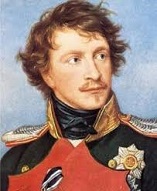




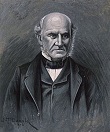
















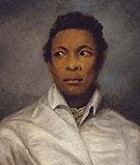








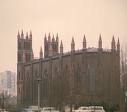


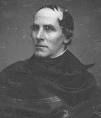
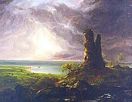

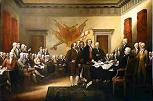


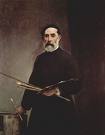
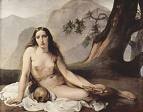

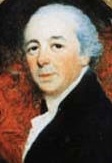

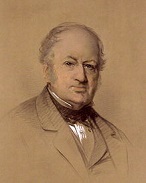
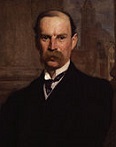
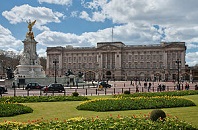


1825 This year and next 60+English banks fail. Between this year and 1938 2.33M Scots emigrate from Scotland to America et al. In winter 1824/5 Va.-born mountain man James "Jim" Bridger (1804-81) becomes the first white to explore the Great Salt Lake (which he believes to be an arm of the Pacific Ocean due to its saltiness), then visits Yellowstone; when he returns, his description of geysers and other wonders are scoffed at as "Jim Bridger's lies". On Jan. 4 mean Ferdinand I dies, and is succeeded by his son Francis (Francesco) I (1777-1830) as despot king of the Two Sicilies (until 1830). Did you ever go fishing at Indian Springs? Where's that? Six inches from the squaw's ass? On Jan. 8 after greedy Ga. Dem. gov. #32 (1823-7) George Michael Troup (1780-1856) uses his half-breed cousin Chief William "White Warrior" McIntosh (1775-1825) to swindle a group of Lower Creek chieftains, they sign the Second Treaty of Indian Springs with the U.S. govt., giving up 4.7M acres of Creek land in Ga. E of the Chattahoochee River for $200K paid over 14 years; at first new pres. J.Q. Adams accepts it, until he hears that McIntosh (who as paid $200K) was assassinated on May 31 by the Upper Creek chiefs for violating their law banning land cessions, and war secy. James Barbour talks him into abrogating the treaty and summoning the chiefs to Washington, D.C. to negotiate a fairer one.
The White House gets a new dome? On Mar. 4 (Fri.) brainy but politically inept dome-topped (pres. with highest IQ?) John Quincy Adams (1767-1848), AKA "Old Man Eloquent" (a char. from John Milton), "King John II", "Publicola" becomes the 6th U.S. pres. (until Mar. 4, 1829) in the 10th U.S. Pres. Inauguration in Washington, D.C., during which all prior U.S. presidents except #1 George Washington are still alive; he and his daddy #2 John Adams (1797-1801) are the first two 1-term presidents; John Caldwell Calhoun (1782-1850) becomes the 7th U.S. vice-pres. (until Dec. 28, 1832); J.Q. Adams takes his pres. oath on a book of laws instead of a Bible; Monroe leaves the White House in debt, returning to Ole Virginny (hoping to die on the Fourth of July?); Adams' wife (since 1797) Louisa Catherine Johnson Adams (1775-1852) is the First Lady, becoming the first who was born abroad (London) (until Melania Trump in 2017); Floride Bonneau Calhoun (1792-1866) is the Second Lady, going on to engage in the Petticoat Affair, a social war against Margaret O'Neill Eaton, wife of war secy. John Eaton for her low moral standards; speaking of double standards, J.Q. Adams enjoys morning skinny-dipping in the Potomac River, and once has his clothes stolen; he has the first toilet installed in the White House, causing the device to be called the Quincy; the first U.S. pres. to write a treatise against Islam (until ?), and the first to pub. poetry (2nd is Carter); when Adams appoints Clay as secy. of state, Jackson accuses them both of a "corrupt bargain" (Adams buying Clay's support to become pres.); the Repub. Party begins to split into the pro-states-rights Democratic-Republican Party (later Democratic Party) and pro-federal-govt. Whig Party (favoring supremacy of Congress over the executive branch, plus modernization and economic protectionism); up-and-coming Dem.-Repub. James K. Polk is elected to the U.S. House of Reps. from Tenn. (until Mar. 3, 1839), where he is opposed to pres. J.Q. Adams, who appoints former Va. gov. (1812-4) James Barbour (1775-1842) as U.S. war secy. #11 (until May 23, 1828). In Feb. after leading the military forces of S Peru to victory and independence from the Spanish, Simon Bolivar is elected pres., and on Aug. 6 S Peru declares independence and takes the name of guess-what, Bolivia; the Peruvian Flag is a white vertical stripe surrounded by two vertical red stripes, allegedly inspired by a flock of flamingos taking wing, but also symbolizing blood shed for independence and peace and/or red from the flag of Chile and white from the flag of Argentina. On Mar. 4-5 Marquis de Lafayette visits a town in N.C. on the Cape Fear River that was founded in 1783 and named in his honor as Fayetteville, N.C. (modern-day pop. 200K/377K), becoming the first U.S. town named for him, later becoming the home of U.S. Army Fort Bragg and receiving the All-American City Award from the Nat. Civic League 3x. On May 8 Thomas Jefferson writes a Letter to Henry Lee, in which he pens the soundbyte: "When forced, therefore, to resort to arms for redress, an appeal to the tribunal of the world was deemed proper for our justification. This was the object of the Declaration of Independence. Not to find out new principles, or new arguments... but to place before mankind the common sense of the subject, in terms so plain and firm as to command their assent, and to justify ourselves in the independent stand we are compelled to take." On May 26 the Am. Unitarian Assoc. is founded; in 1961 it merges with the Universalist Church of Am. to form the Unitarian Universalist Assoc. On June 17 the cornerstone for a new 221-ft. (67m) (294 steps) Bunker Hill Monument on Breed's Hill in Charlestown, Mass. is laid by Marquis de Lafayette, with Daniel Webster giving an oration, and the Freemasons conducting the services; a special Granite Railway to haul the granite from Quincy is completed next Oct. 7, becoming the first commercial common railroad in the U.S.; it takes until 1843 to complete because of lack of funds. On July 4 Pres. J.Q. Adams marches from the U.S. Capitol to the White House in Washington, D.C. in a parade featuring a wheel-mounted stage representing the 24 U.S. states. On Aug. 25 rebels in Uruguay, led by Juan Antonio Lavalleja y de la Torre (1784-1853) declare independence from Brazil, and gain the help of Argentina (ends 1830). On Sept. 7 the Marquis de Lafayette bids farewell to Pres. Adams at the White House in Washington, D.C. On Sept. 27 the Stockton and Darlington Railway in NE England, invented by George Stephenson (1781-1848) begins operation, becoming the world's first steam-powered railroad carrying public cargo; it begins carrying fare-carrying passengers in 1833. On Oct. 13 Bavarian king (since 1805) Maximilian I (b. 1756) dies, and his son Ludwig (Louis) I (1786-1868) becomes king of Bavaria (until Mar. 20, 1848). On Oct. 17 the Congress of Mexico proclaims the Port of Galveston, Tex., and builds a customs house in 1830. On Oct. 26 the $7M 363-mi. Erie Canal (begun 1817) between Buffalo on Lake Erie and Albany on the Hudson River opens, improving transport of Midwestern goods to the Atlantic through New York City, esp. salt from Syracuse, N.Y., giving it the name "the canal that salt built"; "A great channel of communication, executed in eight years" (Lafayette's secy.); travel time between the east coast and the Ohio and Mississippi Valleys is cut by 66%, and the cost is cut by 90%, causing New York City to become the #1 Atlantic seaboard port; the Midwestern dairy industry begins its rise as Euro demand increases; the 3-masted sailing ship Sarah Sheafe begins service between New York City and Liverpool (until 1840). On Dec. 1 religion-crazed tsar (since 1801) Alexander I (b. 1777) dies of mushroom poisoning (fakes his own death on Nov. 19 to become a monk named Kuzmich?), and his brother (3rd son of Paul I) Nicholas I (1796-1855) is crowned Russian Romanov tsar #15 (until Mar. 2, 1855); on Dec. 26 the Decembrist Revolt (Uprising) in Russia, led by military officers infected with Western liberal ideas calling for the end of autocracy and a new constitution is squelched by Nicholas I, with the leaders hanged or sent to snowy Siberia to show the drift of his new admin.; meanwhile Russian hero adm. Dmitri Nikolayevich Senyavin (1763-1831), who was forced to retire in 1809 and was planned on being used by the Decembrists until they were crushed, is called out of retirement by the new tsar to command the Baltic Fleet against the Turks - Tsar Nicholas, second time's the charm? Portugal recognizes the independence of Brazil. The Battle of Al-Simqaniya in Lebanon is a V for Bashir II, who defeats and kills Bashir Jumblatt, ending the Druze rebellion of 1821. The state of Coahuila-Texas (Coahuila y Tejas) on the E coast of Mexico passes a colonization law offering large tracts of rich cotton land to empresarios who promise to sponsor immigrants; by 1830 it has 20K white settlers and 1K black slaves. After violent worker reaction tempers their enthusiasm, Britain enacts legislation softening protection of labor unions, but giving them more freedom than before 1824. The British govt. reduces its duty on spirits, causing gin consumption to rise from 4,132,263 gal. this year to 9,311,624 gal. next year, with a corresponding increase in crime and pauperism; gin goes for 3.5 pence/pint, vs 5 pence for 2 pints of beer, causing beer brewers to ally with temperance groups, touting beer as a temperance drink, a source of nourishment and calories for the working man, safer than water, etc.; meanwhile in 1822 Lord Brougham disses tea drinking as leading "not to the cultivation of one single acre of English land", while beer is "a good, sound, wholesome constitutional beverage of the country." Buenos Aires signs a treaty with Britain to suppress the slave trade, and starts a war with Brazil to liberate the Banda Oriental. Haiti agrees to pay France a 150M franc indemnity in order to secure its recognition as an independent republic; later reduced to 60M francs, the loan going through a single French bank that charges high interest and transaction fees, taking until 1965 to pay off; too bad, the heavy taxes required to pay them turns the pop. against Pres. Jean Pierre Boyer's govt. The British Unlawful Societies Act is passed to outlaw the Irish Catholic Assoc., and the Catholic Emancipation Bill is rejected by the House of Lords, pissing them off more? The U.S. House Committee on Territories is established (until 1946) to decide how best to assimilate the pesky Five Civilized Tribes into the Union by distributing common property to individials; in 1871 it decides that "no Indian nation of tribe within the territory of the United States shall be acknowledged or recognized as an independent nation", dispensing with the need for formal treaties. A flood cuts off the N part of Jutland, creating the Limfjord and North Jutlandic Island. Rufus King becomes U.S. minister to England again (until 1826) (first time 1796-1803). The govt. of law-and-order Spain introduces tariffs, and in 1831 establishes the Bolsa de Madrid stock exchange in Madrid. The Prairie du Chien Peace Treaty draws the line between the Chippewa and Sioux, letting the white man begin grabbing land from both sides. Egyptian gen. Ibrahim Pasha (1789-1848), son of Mehmet Ali commands an Egyptian expedition to the Peloponnese (ends 1828), which commits atrocities against the Greek pop., causing him to be the most hated man in Europe; Missolonghi, Greece is sieged again (until 1826). Joel Roberts Poinsett (1779-1851) of S.C., a botanist is appointed as the first U.S. minister to Mexico (until 1830), going on to discover the Cuetlaxochitl, er, Poinsettia (Euphorbia pulcherrima) and send samples to the U.S., where by 1836 it is called by his name. The duchy of Saxe-Gotha-Altenburg (founded 1672) is split up, with Gotha going to the duke of Saxe-Coburg-Saalfeld and Altenburg to the duke of Saxe-Hildburghausen, who gives up Hildburghausen to the duke of Saxe-Meiningen; it all ends in 1920 with the new state of Thuringia. The city of New Harmony (modern-day pop. 800) is founded on 30K acres in Indiana purchased by reformer Robert Owen and his son Robert Dale Owen (1801-77), but a misselection of personnel leaves several occupations underrepresented and the colony soon folds (1828). Abeokuta ("under the rocks") in SW Nigeria is founded as a refuge from slave traders, becoming the capital of the independent (until 1914) state of Egba, consisting mainly of Yoruba people. The city of Akron, Ohio in Summit County (modrn-day pop. 199K) is founded, named after the Greek word for summit since it's the highest city on the Ohio & Erie Canal; after Goodrich Corp. (1869), Goodyear Tire and Rubber Co. (1898), Firestone Tire and Rubber Co. (1900), and Gen. Tire (1915) locate there, it becomes known as the Rubber Capital of the World. The city of Doha (Arab. "big tree"), Qatar on the coast of the Persian Gulf (modern-day pop. 1.3M) is founded. The city of Ypsilanti, Mich. (modern-day pop. 21K) near Ann Arbor is founded on Apr. 21 by settlers in honor of Greek hero Demetrios Ypsilanti. British explorer Sir John Franklin (1786-1847) leaves on his 2nd expedition in the Canadian Arctic region, leaving Hudson Bay and reaching Great Slave Lake, then traveling 1K mi. down the Mackenzie River, becoming the 2nd Euro to reach its mouth on Aug. 16 before returning and wintering in Ft. Franklin on Great Bear Lake; meanwhile William Edward Parry sails W from the Atlantic Ocean in an attempt at a rendezvous, ending up frozen in place 900 mi. E, and Frederick William Beechley sails NE from the Bering Strait, reaching Point Barrow; next summer Franklin goes back downriver and finds the ocean frozen, giving up on Aug. 16, 1826 at Return Reef 150 mi. E of Beechey's Point Barrow, and returning to Ft. Franklin on Sept. 21. William Henry Furness (1802-96) of Boston becomes pastor of the First Unitarian Church in Philadelphia (until 1875), which becomes a hot spot for abolitionists. Warren, Conn.-born 6'2" blue-eyed abolitionist anti-Mason Charles Grandison Finney (1792-1875), ordained a Presbyterian minister in 1824 begins a 7-year series of "repent-and-be-saved" revivals in Oneida County, N.Y., pioneering citywide campaigns and gaining nat. fame as "America's foremost revivalist", converting 500K+ while preaching against slavery and advocating equal education for blacks and women. Tea roses from China are introduced to Europe. The Hungarian Academy of Sciences is founded in Budapest by Count Istvan Szechenyi (István Széchenyi) (1791-1860). Queens College of N.J. changes its name to Rutgers, leaving N.J. as the only state in modern times not to have a state univ. named after itself. Sandalwood trees become extinct in Hawaii. Horse-drawn buses begin operation in London. Inverness, Scotland-born physician James "Jim" C. Crow (1789-1856) migrates to Ky. and hooks up with whiskey distiller Oscar Pepper (-1869) in Frankfort, producing Old Crow bourbon, which uses sanitary methods and sour mash fermentation to produce a consistent product, becoming the favorite of Andrew Jackson, Henry Clay, Daniel Webster et al. English-born Am. landscape painter Thomas Cole (1801-48) moves to N.Y. and begins painting scenes from the de-Indianized Hudson Valley, hooking up with John Trumbull (1756-1843) (painter of the DOI signing scene on the U.S. $2 bill) and founding the Hudson River School, later hooking up with Am. engraver Asher Brown Durand (1796-1886). Viennese waltz composing partners Johann Strauss I (1804-49) and Josef Lanner (1801-43) get into a quarrel at the Black Ram (Zum Schwarzen Bock) in Vienna and part ways, becoming rivals, causing the pop. to split into two camps, which the Hapsburgs exploit to keep their minds off revolution?; when Lanner dies in 1843, Strauss becomes #1 in Vienna's dance scene for the next half-cent. After emigrating to England to escape discrimination, New York City-born African-Am. stage actor Ira Aldridge (1807-67) debuts at the Royal Coburg Theatre in London as Oroonoko in the Thomas Southerne adaptation of the Aphra Behn play, going on to play the title role in Shakespeare's "Othello", and tour Europe in 1852, becoming one of 33 English stage actors honored with a bronze plaque at the Shakespeare Memorial Theatre in Stratford-upon-Avon. Japanese sailors report a UFO floating in the sea. This is the last year that the Spanish manufacture Spanish dollars (pieces of eight). Jacob Hawken and Samuel Hawken of St. Louis, Mo. begin selling muzzle-loading Hawken Rifles (until 1856), which become known as the Plains Rifle, the Fur Trapper's Gun, and the Buffalo Gun. Architecture: In Feb. the Thames Tunnel beneath the Thames River between Rotherhithe and Limehouse (first tunnel built under a navigable river) is begun (finished in 1843) under French-born engineer Marc Isambard Brunel (1769-1849), making use of his tunnel shield (patented 1818), inspired by the shipworm Teredo navalis; a previous attempt in 1805 by Richard Trevithick had given up after encountering quicksand; after several flooding episodes the tunnel is sealed up in Aug. 1828 and Brunel resigns until Mar. 1832, when a govt. loan allows work to resume. The Lachine Canal in Canada is completed, giving big ships access to W Montreal. After George IV upon his accession in 1820 decided to renovate Buckingham Palace (built in 1703 and known as the Queen's House) into a small comfortable home, Lambeth, London-born English architect John Nash (1752-1835) designs the Garden Front of Buckingham Palace in London, made of pale golden Bath stone; in 1826 kingy decides to turn it into a a French neoclassical palace, with Nash as chief architect; too bad, in 1829 his extravagant designs get him removed, and after his accession in 1830 William IV hires Derby-born architect Edward Blore (1787-1879) to finish the work, almost deciding to turn it into the new Houses of Parliament after the 1834 fire; in 1850 Blore finishes the East Front, the principal facade, which is remodeled in 1913 by Sir Aston Webb (1849-1930) - ready for Queen Vicky in 1837? The Grand Entrance to Hyde Park in C London is built, designed by Bloomsbury, London-born English architect Decimus Burton (1800-81), protege of John Nash. The New Paris Bourse (stock exchange), ordered created by Napoleon is opened. Sports: A baseball club is organized in Rochester, N.Y. Inventions: Antoine Cesar Becquerel (1788-1878) of France invents the Differential Galvanometer for accurate measurement of electrical resistance. British (Cornish) inventor Sir Goldsworthy Gurney (1793-1875) invents the Oxy-Hydrogen Blowpipe, used for limelights, and the Bude Light, a very bright oil lamp pumped with oxygen, which is used to light the House of Commons for 60 years, along with Pall Mall and Trafalgar Square - so beloved of corned beef hams? Sir John Frederick William Herschel (1792-1871) (son of Sir William Herschel) invents a machine to measure the heat of solar rays. J.P. Lemiere invents the binocular telescope. English physicist William Sturgeon (1783-1850) of the East India Co. College in Addiscombe, Surrey invents the first practical Electromagnet, a horseshoe-shaped piece of iron wrapped with wire; a 7 oz. horseshoe can lift 9 lbs. with the current from a single battery. Science: Michael Faraday isolates benzene. English physician-paleontologist Gideon Algernon Mantell (1790-1852) pub. a paper describing Iguanadon (Iguana tooth) from fossils of teeth discovered in 1822 by his wife Mary Ann Mantell in Sussex, England, becoming the 2nd dinosaur to be named; English zoologist Sir Richard Owen claims he's full of it. Czech physiologist Jan Evangelista Purkinje discovers germinal vessicles. Nonfiction: Jeremy Bentham (1748-1832), Rationale of Punishment and Rewards; urges prison reform. Lord Braybook (ed.), The Diary of Samuel Pepys (1633-1703) (6 vols.); covers the years 1660-9; finally pub. by Lord Braybooke of Magdalene College (actually, about 25% of the whole) after several years of deciphering their secret code by non-Mormon Magdalene student John Smith. Jean Anthelme Brillat-Savarin (1755-1826), The Physiology of Taste; Or, Transcendental Gastronomy (Physiologie du Goutt, ou Méditations de Gastronomie Transcendante; ouvrage théorique, historique et à l'ordre du jour, dédié aux Gastronomes parisiens, par un Professeur, membre de plusieurs sociétés littéraires et savantes) (Dec.); compendium on the art of dining, folding-in the philosophy of Epicurus and dissing carbohydrates incl. sugar and white flour in favor of protein-rich ingredients, making him a star and founding the science of gastronomy; tells about his visit to the U.S., where he witnessed a turkey shoot in 1797; "Tell me what you eat and I will tell you what you are"; "A dessert without cheese is like a beautiful woman with only one eye"; "The discovery of a new dish confers more happiness on humanity than the discovery of a new star"; "Those persons who suffer from indigestion, or who become drunk, are utterly ignorant of the true principles of eating and drinking." James Busby (1802-71), Treatise on the Culture of the Vine; visits England in 1828, followed by Spain and France, returning to Australia in 1828 with the first collection of Spanish-French wine stock, becoming known as "the Father of the Australian Wine Industry". Thomas Carlyle (1795-1881), Life of Friedrich Schiller. Dr. William P. Dewees (1768-1841), Treatise on the Physical and Medical Treatment of Children; first Am. pediatric guide; recommends that pregnant women suckle puppies to toughen their nipples; by the 7th (1838) ed. he adds that a human could be substituted - himself? Ugo Foscolo (1778-1827), Discorso Storico sul Testo del Decamerone. Erik Gustaf Geijer (1783-1847), Svea Rikes Hafder (Records of Sweden). William Hazlitt (1778-1830), The Spirit of the Age, or Contemporary Portraits. James Holman, Travels in Africa, Asia, Australasia, America, Etc.. John Ramsay McCulloch (1789-1864), Principles of Political Economy: With a Sketch of the Rise and Progress of the Science (Edinburgh); first successful serious textbook on economics; "Suppose that a cask of new wine, which cost £50, is put into a cellar, and that, at the end of twelve months, it is worth £55, the question is: Should the £5 of additional value, given to the wine, be considered as a compensation for the time the £50 worth of capital has been locked up, or should it be considered as the value of additional labour actually laid out in the wine?"; "Time cannot of itself produce effect; it merely affords space for really efficient causes to operate, and it is therefore clear it can have nothing to do with value." James Mill (1773-1836), Analysis of the Phenomena of the Human Mind; applies utilitarianism and the principle of associationism to you know what, founding modern psychology - - it's going to be perfect Sundays from here on in, boys? Thomas Moore (1779-1852), Life of Richard Brinsley Sheridan. Comte Henri de Saint-Simon (1760-1825), Le Nouveau Christianisme (The New Christianity); spawns the Saint-Simonian sect of Christian communists, with artists taking the place of clergymen, which is suppressed by the authorities. Josiah Quincy III (1772-1864), Memoir of Josiah Quincy - which one, class exercise? Augustin Thierry (1795-1856), Histoire de la Conquete de l'Angleterre par les Normands; how the brutal Normans exploited the Anglo-Saxons and washed the good stuff right down the drain until they won at the end by reviving parliamentary monarchy; a big hit, but he works so hard he goes blind? Richard Whately (1787-1863), Essays on Some of the Peculiarities of the Christian Religion. Music: Daniel Auber (1782-1871), Le Macon (opera); his first hit. Francois-Adrien Boieldieu (1775-1834), La Dame Blanche (comic opera) (Paris); his masterpiece? Allan Cunningham (1784-1842), Songs of Scotland, Ancient and Modern (4 vols.); incl. A Wet Sheet and a Flowing Sea. Heinrich Marschner (1795-1861), Der Holzdieb (opera). Franz Schubert (1797-1828), Songs from Sir Walter Scott. Ludwig Spohr, Die Letzten Dinge (The Last Judgment) (1825-6) (oratorio). Art: John Constable (1776-1837), Leaping Horse. Eugene Deveria (1805-65), Lady and Cavalier. Francesco Hayez (1791-1882), The Penitent Mary Magdalene. Samuel Morse, Portrait of Lafayette. The Plantation, by unknown Am. primitive artist (New York Metropolitan Museum of Art). Plays: Casimir Delavigne (1793-1843), Ecole des Vieillards (comedy); his biggest hit; gets him elected to the Academie Francaise in 1825. Firmin Didot (1764-1836), La Reine de Portugal. Alexandre Dumas pere (1803-70), La Chasse et l'Amour (first play?). Franz Grillparzer (1791-1872), Konig Ottokars Gluck und Ende (tragedy); Ottokar II of Bohemia v. Rudolph I of Germany; the censors hold it up until Feb. 19, 1825. Adam Mickiewicz (1798-1855), The Forefathers (drama). James Kirke Paulding (1778-1860), Konigsmark, the Long Finne (2 vols.). Alexander Pushkin (1799-1837), Boris Godunov (verse tragedy); basis of the Musorgski opera. Poetry: Visconde de Almeida-Garrett (1799-1854), Camoes; his longing for home. Jules Amedee Barbey d'Aurevilly (1808-89), Ode aux Héros des Thermopyles (debut). Wilhelm Mueller (1794-1827), Neugriechische Volkslieder. Jose Joaquin Olmedo (1780-1847), La Victoria de Junin; ode to Simon Bolivar. Esaias Tegner, Frithjofs Saga. Mihaly Vorosmarty (1800-55), The Flight of Zalan; epic about the Battle of Alpar, in which Hungarian king Arpad defeated Bulgarian ruler Zalan and his giant gen. Viddin. Novels: Michael Banim (1796-1874) and John Banim (1798-1842), Tales of the O'Hara Family (6 vols.) (1825-6); the lot of poverty-stricken Irish peasants. Lydia Maria Child (1802-80), The Rebels. Gustav Theodor Fechner (1801-87), Comparative Anatomy of Angels; a satire under the alias "Dr. Mises". John Galt (1779-1839), The Omen. Xavier de Maistre (1763-1852), Prisoners of the Caucasus; The Young Siberian; Expedition Nocturne de Ma Chambre (Night Voyage Around My Room); sequal to his 1794 novel. Alessandro Manzoni (1785-1873), I Promessi Sposi (The Betrothed) (1825-7); two humble lovers struggling against oppression in Milan during Spanish rule in the 17th cent., with clear implications about contemporary Austrian domination of Italy; his masterpiece? William Hamilton Maxwell (1792-1850), O'Hara (first novel); pioneers the school of rollicking military fiction, although it's a flop? Jean Paul (1763-1825), The Truth from Jean Paul's Life (posth.). James Kirke Paulding (1778-1860), John Bull in America, or the New Munchausen. Alexander Pushkin (1799-1837), Eugene Onegin; (1825-32) (verse novel) (takes eight years to write?); English trans. 1881; Maria Raevskaya, daughter of Russian gen. Nikolai Raevsky inspires him. Sir Walter Scott (1771-1832), The Talisman; his last Romantic historical novel (first 1814); Saladin in disguise cures Richard I Lionheart with a you know what. Heinrich Daniel Zschokke (1771-1848), Bilder aus der Schweiz (5 vols.) (1825-6). Births: Am. "Masque of the Gods" poet-journalist-translator (gay?) Bayard Taylor (James) (d. 1878) on Jan. 11 in Kennett Square, Chester County, Penn. English chemist (inventor of the valence concept) Sir Edward Franklin (d. 1899) on Jan. 18 in Churchtown (near Lancaster). English canoeist-atty. John "Rob Roy" MacGregor (d. 1892) on Jan. 24 in Gravesend; educated at Trinity College, Cambridge U. Am. Hebrew scholar William Henry Green (d. 1900) on Jan. 27 in Groveville (near Bordentown), N.J.; 6th gen. descendant of Princeton U. pres. #1 Jonathan Dickinson; educated at Lafayette College, and Princeton U. Egyptian PM #1 (1878-9, 1884-8, 1894-5) Nubar Pasha (Nubar Nubarian) (d. 1899) in Jan. in Izmir; son of an Armenian merchant; father of Boghos Nubar Pasha (1851-1930). French dirigible pioneer Baptiste Jules Henri Jacques Giffard (d. 1882) on Feb. 8 in Paris. Hungarian Romantic novelist-dramatist-statesman Maurus (Mor) Jokai (d. 1904) on Feb. 19 in Rev-Komarom. German Romantic painter Bernhard Plockhorst (d. 1907) on Mar. 2 in Braunschweig; teacher of Otto Plitz (1846-1910); specializes in lovely Romantic depictions of Jesus Christ. German cytologist (proponent of the protoplasm theory) Max Johann Sigismund Schultze (d. 1874) on Mar. 25 in Freiburg, Breisgau (Baden). Am. Populist Party Colo. gov. #8 (1893-5) David Hanson Waite (d. 1901) on Apr. 9 in Jamestown, N.Y. German Socialist leader (Jewish) Ferdinand Lassalle (d. 1864) on Apr. 11 in Breslau, Silesia. Canadian poet, journalist and pro-confederation political leader ("Father of Confederation") Thomas D'Arcy McGee (d. 1868) on Apr. 13 in Carlingford, County Louth ("the wee county"), Ireland; emigrates to Quebec in 1842. Swiss Balmer Series mathematical physicist Johann Jakob Balmer (d. 1898) on May 1 in Lausen; educated at the U. of Karlsruhe, and the U. of Berlin. Am. Tonalist landscape painter George Inness (d. 1894) on May 1 near Newburgh, N.Y.; pupil of Regus Gignoux. English biologist (coiner of the term "agnostic") ("Darwin's Bulldog") (popularizer of Darwinian evolution) Thomas Henry) "T.H." Huxley (OE "Hugh's meadow") (d. 1895) on May 4 in Ealing, Middlesex; educated in medicine at Charing Cross Hospital, London. English photographer (Freemason) Augustus Le Plongeon (d. 1908) on May 4 in Jersey. Am. minister (first ordained female mainstream Protestant minister in the U.S.) Antoinette Brown Blackwell (d. 1921) ono May 20 in Henrietta, N.Y. Am. Civil War Confed. gen. John Hunt Morgan (d. 1864) on June 1 in Huntsville, Ala. English historian and Anglican cleric (bishop of Oxford in 1889-1901) William Stubbs (d. 1901) on June 21 in Knaresborough, Yorkshire; educated at Christ Church, Oxford U. German Erlenmeyer Rule chemist (inventor of the Erlenmeyer flask) Richard August Carl Emil Erlenmeyer (d. 1909) on June 28 in Taunusstein; educated at the U. of Giessen, and U. of Heidelberg. Australian physician-geographer-botanist Baron Sir Ferdinand Jacob Heinrich von Mueller (d. 1896) on June 30 in Rostock, Germany; educated at Kiel U.; emigrates to Australia in 1847; namer of the macadamia nut. Am. "The White Rose of Memphis" soldier-novelist William Clark "Old Kunnel" Falkner (d. 1889) on July 6 in Knox County, Tenn.; great-grandfather of William Faulkner (1897-1962). French-German archeologist (Jewish) Jules (Julius) Oppert (d. 1905) on July 9 in Hamburg, Germany; educated at the U. of Kiel; becomes a French citizen in 1854. Am. King Ranch founder Richard King (d. 1885) on July 10 in New York City; Irish immigrant parents; starts out as a riverboat captain on the Cotton Road. Am. architect Adolf Cluss (d. 1905) on July 14 in Heilbronn, Wurttemberg, Germany; friend of Karl Marx; emigrates to the U.S. in 1848. U.S. Rep. (D-Ohio) (1857-65) and Sen. (D-Ohio) (1879-85) "Gentleman" George Hunt Pendleton (d. 1889) on July 19 in Cincinnati, Ohio; educated at Cincinnati College, and the U. of Heidelberg; husband of Alice Key, daughter of Francis Scott Key. Am. "Pickett's Charge" Confed. Gen. George Edward Pickett (d. 1875) on July 30 in Richmond, Va. German Lambert-Beer Law mathematician-physicist-chemist (Jewish) August Beer (d. 1863) on July 31 in Trier; educated at the U. of Bonn. Am. Oakland, Calif. mayor #1 (1854-5) Horace Walpole Carpentier (d. 1918) on July ? in Galway, N.Y.; educated at Columbia U. U.S. Civil War Union gen. Odon Guitar (d. 1908) on Aug. 31 in Madison County, Ky. British MP (first Asian) (1892-5) ("Grand Old Man of India") (Parsi) Dadabhai Naoroji (d. 1917) on Sept. 4 in Navsari, Gujarat. Am. Miss. politician and U.S. Supreme Court justice #49 (1888-93) Lucius Quintus Cincinnatus Lamar II (d. 1893) on Sept. 17 in Eatonton, Ga.; cousin of Joseph Rucker Lamar (1857-1916); nephew of Mirabeau Buonaparte Lamar (1798-1859); educated at Emory College. Am. "Iola Leroy" novelist (black) Frances Ellen Watkins Harper (d. 1911) on Sept. 24. South African pres. (1883-1900) Gen. Paul (Stephanus Johannes Paulus) Kruger (d. 1904) (AKA Oom Paul) (Uncle Paul) on Oct. 10 in Bulhoek (near Cradock), Cape Colony; goes with his family on the 1835-40 Great Trek, where they are among the founders of the Transvaal state. Swiss "The Feet in the Fire" historical poet-novelist Conrad Ferdinand Meyer (d. 1898) on Oct. 11. U.S. Civil War Confed. Col. John A. Poindexter (d. 1869) on Oct. 12 in Montgomery County, Ky. English fashion designer ("Father of Haute Couture") Charles Frederick Worth (d. 1895) on Oct. 13 in Bourne, Lincolnshire. Am. brewer Theodore Hamm (d. 1903) on Oct. 14 in Baden, Germany; emigrates to St. Paul, Minn. in 1854. Austrian "Viennese Waltz King" Johann Strauss II (d. 1899) on Oct. 25 in Vienna; son of Johann Strauss I (1804-49); brother of Josef Strauss (1827-70) and Eduard Strauss (1835-1916). French marine-beach painter Louis Eugene Boudin (d. 1898) on Nov. 6 in Honfleur, Calvados Dept.; pupil of Louis-Hippolyte Lebas. French Paris Opera, Palais Garnier, Opera de Monte-Carlo architect Jean-Louis Charles Garnier (d. 1898) on Nov. 6 in Paris. Am. Confed. Lt. Gen. Ambrose Powell "A.P." Hill Jr. (d. 1865) on Nov. 9 in Culpeper, Va. English "The Dead Heart" dramatist-novelist-illustrator Watts Phillips (d. 1874) (AKA the Ragged Philosopher) on Nov. 16 in Hoxon, East End, London; student of George Cruikshank (1792-1878). French neurologist ("Father of Modern Neurology") ("the Napoleon of Neuroses") Jean-Martin Charcot (d. 1893) on Nov. 29 in Paris. French "The Birth of Venus" academic painter William-Adolphe Bouguereau (d. 1905) on Nov. 30 in La Rochelle; student of Francois-Edouard Picot. Am. businessman-philanthropist (Presbyterian) (founder of Silliman U.) Horace Brinsmade Silliman (d. 1910) on Dec. 3 in Albany, N.Y.; educated at Union College (Phi Beta Kappa). Am. Civil War Confed. Maj. Gen. Henry "Harry" Heth (d. 1899) on Dec. 16 in Black Heath, Va.; grandson of Am. Rev. War Col. Henry Heth; cousin of George Pickett. Am. Methodist minister and dentist (pasteurized grape juice inventor) Thomas Branwell Welch (d. 1903) on Dec. 31 in Glastonbury, England; emigrates to the u.S. in 1934. Am. dancer (black) (inventor of tap dancing?) Master Juba (William Henry Lane) (d. 1853) in R.I.; born free. Am. Southern Arapaho chief Niwot (Left Hand) (d. 1864). Belgian horticulturist Ambroise Verschaffelt (d. 1886). English "Lorna Doone" poet-novelist Richard Doddridge Blackmore (d. 1900) in Longworth, Berkshire; educated at Oxford U. Am. "Hanging Judge" ("Law West of the Pecos") Phantly Roy Bean (d. 1903) in Mason County, Ky.; uses only the 1879 ed. of the Revised Statutes of Tex.; only sentences men to hang; one of them escapes. Deaths: English poet Mary Darwall (Whateley) (b. 1739). English socialist writer Charles Hall (b. 1740). Swiss-English painter Henry Fuseli (b. 1741) on Apr. 16. Scottish antiquarian-writer George Chalmers (b. 1742) on May 31. English poet Anna Laetitia Aikin Barbauld (b. 1743). Austrian bishop Sigismund Ernst Hohenwart (b. 1745). Am. XYZ Affair statesman Charles C. Pinckney (b. 1746) on Aug. 16 in Charleston, S.C. South African explorer Petrus Johannes Tuter (b. 1747) on Jan. 31 in Swellendam, Overberg. French painter Jacques-Louis David (b. 1748) on Dec. 29 in Paris; dies after being hit by a carriage after leaving the theater. English statesman-poet-dramatist Frederick Howard, 5th earl of Carlisle (b. 1748) on Sept. 4. Am. merchant-politician William Gray (b. 1750) on Nov. 4 in Boston, Mass. Italian-Viennese opera composer Antonio Salieri (b. 1750) on May 7 in an asylum in Vienna - ranting about Amadeus being the voice of God? English architect Thomas Harwick Jr. (b. 1752). Am. gen.-politician William Hull (b. 1753) on Nov. 29 in Newton, Mass. English astronomer Edward Pigott (b. 1753) on June 27 in Bath. English bowdlerizing editor Thomas Bowdler (b. 1754) on Feb. 24 in Swansea, Wales - the scissors finally rest? French-born Am. (Washington, D.C.) architect Pierre L'Enfant (b. 1754). French naturalist Bernard Germain de Lacepede (b. 1756) on Oct. 6 in Epinay-sur-Seine. Bavarian king (1801-25) Maximilian I Joseph (b. 1756) on Oct. 13 in Munich. English natural philosopher John Gough (b. 1757) on July 28 in Kendal, Westmorland. U.S. gen. James Wilkinson (b. 1757) on Dec. 28 in Mexico City, Mexico; "Wilkinson is the only man I ever saw who is from the bark to the very core a villain." (John Randolph) Am. moose hockey historian Parson Mason Locke Weems (b. 1759) on May 23 in Beaufort, S.C.; dies while on a trip from his home in Bel Air, Prince William County, Va. French socialism founder Claude Henri, Comte de Saint-Simon (b. 1760) on May 19. German theologian Martin Boos (b. 1762) on Aug. 29 in Sayn (near Neuwied). German writer Jean Paul (b. 1763) on Nov. 14 in Bayreuth (dropsy): "Spring makes everything young again except man." Am. postmaster gen. Return Jonathan Meigs Jr. (b. 1764) on Mar. 29 in Marietta, Ohio. Am. Youngstown, Ohio founder John Young (b. 1764) in Whitestown, N.Y. U.S. vice-pres. #6 (1817-25) Daniel D. Tompkins (b. 1774) on June 11 in Tompkinsville, Staten Island, N.Y. Russian tsar (1801-25) Alexander I (b. 1777) on Dec. 1 in Taganrog (mushroom poisoning). U.S. Navy Capt. Thomas Macdonough Jr. (b. 1783) on Nov. 10 near Gibraltar; dies aboard merchant brig USS Edwin. Spanish royalist gen. Joaquin Ibanez, baron de Eroles (b. 1784) on Aug. 22 in Daimiel, Castile La Mancha.

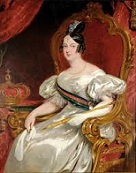




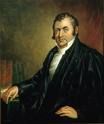






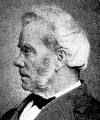



























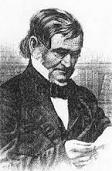
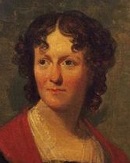
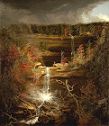

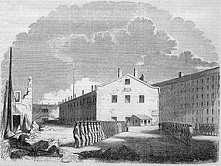
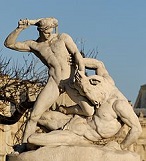
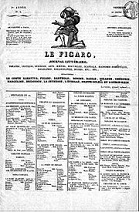
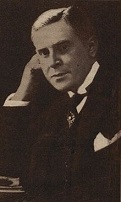
1826 Go eco-sheik with the widest selection, parking is free? The 2nd Cholera Pandemic of the 19th Cent. (ends 1851) begins in the Ganges River Delta in India, spreading to China in 1828, the S Ural Mts. in 1829, and Europe by 1832, killing 100K in France (20K in Paris) and 6,536 in London, then reaching Quebec, Canada and New York City, followed by the Pacific coast of North Am. in 1834. Don't ask William Clinton, but England imports 26K lbs. of cigars this year, growing to 250K lbs. by 1830. On Jan. 15 Le Figaro satirical weekly newspaper is founded in Paris, France, named after the 1778 Pierre Beaumarchais play, with the motto "Without the freedom to criticize, there is no true praise"; on Nov. 16, 1866 it becomes a daily newspaper, with a circ. of 56K copies, highest in France, and a royalist ed. line; in 1922 it is purchased by Corsican-born French perfume magnate Francois Coty (Joseph Marie Francois Spoturno) (1874-1934) (relative of Napoleon Bonaparte); by WWII it becomes France's #1 newspaper, going on to become the conservative voice of the upper middle class and one of two French newspapers of record after Le Monde, reaching a modern-day circ. of 313K. On Jan. 24 the Treaty of Washington, worked out by pres. J.Q. Adams and war secy. James Barbour is signed by the Creeks, led by Chief Opothleyahola (1798-1863), voiding the unfair Treaty of Indian Springs, and giving the Creeks a down payment of $217,600 plus a yearly annuity of $20K, and providing for an orderly resettlement paid for by the U.S. govt; too bad, Ga. gov. George Troup rejects it, and Adams and Barbour call out federal troops, but Troup stands tough and calls out the Ga. state militia, causing Adams to whimp out and back down, giving Troup a blank check to steal the Creeks blind, and they are gone from Ga. by next year, with the few stragglers forced to assimilate into white society - despite sucking up to Great White Father, the Creeks are up the creek? On Feb. 8 the United Provinces of the Rio de la Plata (founded 1810) becomes the Repub. of Argentina, with capital at Buenos Aires (separated from its province), and Bernardino Rivadavia as pres. (until June 27, 1827), causing ranchers to revolt against his unitarian policies under a federalist banner. On Feb. 13 the Am. Temperance Society (Am. Society for the Promotion of Temperance) is founded in Boston, Mass. by Rev. Lyman Beecher (1775-1863) (father of Harriet Beecher Stowe) et al. to outlaw the sale and manufacture of all alcoholic beverages; within five years it has 170K members in 2.2K local chapters; in 1836 it merges with the Am. Society for the Promotion of Temperance (formed in Boston, Mass. in 1826) to form the Am. Temperance Union, which introduces a pledge of "teetotalism" (total abstinence); too bad, anti-slavery reforms and the 1837 Panic weaken the abstinence movement until 1840, when the Washingtonian Movement in Baltimore, Md. begins holding religious-style revival meetings, and spreads across the U.S., leading to the formation of the Sons of Temperance in 1841, which uses fraternal org. techniques, reaching 238K members in 1850; by the late 1830s temperance reformers drop moral persuasion for legal coercion, lobbying for state prohibition laws, leading to prohibition in Maine in 1851, followed by several states, which are repealed or declared unconstitutional by 1857; in 1869 the Prohibition Party is formed in Chicago, Ill., going on to nominate U.S. pres. candidates; in 1874 the Women's Christian Temperance Union is formed in Cleveland, Ohio; in 1895 the Anti-Saloon League is formed by evangelical Protestant men to work for a U.S. constitutional amendment, finally getting it passed in 1919. On Feb. 26 after the British win the First Anglo-Burmese War (begun 1823), the Treaty of Yandabo is signed, extending the growing British Indian empire E of Bengal, lusting oh-so-whitely for wealth and booty and an escape from grimy stinking London; by the end of the cent. over 10M acres of teak forest are stripped; by now Britain controls nearly the whole of India except Sind and the Punjab in the NW (wait till 1843). On Mar. 3 ground is broken for the utopian Nashoba Community in Tenn., founded by Scottish-born activist Frances "Fanny" Wright (1795-1852), which reeducates slaves for freedom before colonizing them in Haiti; she also helps launch a women's movement - originally, the Haitian boat people went the other way? On Mar. 10 king (1816-22) Joao VI (b. 1767) dies, and is succeeded by his son Dom Pedro of Brazil as Pedro (Peter) IV Alcantara (the Liberator) (1798-1834), who promulgates a moderately liberal constitution, with a parliament and guaranteed free primary education, then abdicates the Portuguese throne on May 2 in favor of his young daughter Maria II da Gloria (1819-53), with his brother (her uncle) Dom Miguel de Braganca (Miguel I) (1802-66) as regent, who marries her by proxy, anticipating her coming of age - I'm putting on a white tie and a top hat, and polishing my cane? The Ottomans are in a miserably long tailspin? On Apr. 10 after the Third Siege of Missolonghi (begun Apr. 15, 1825), Ottoman troops capture Missolonghi, Greece; Ottoman sultan (since 1808) Mahmud II (b. 1785) has his bodyguard the Janissaries massacred, and the institution (founded 1330) abolished; Russian Tsar Nicholas I issues an ultimatum forcing the Ottomans to recognize the independence of Moldavia, Wallachia, and Serbia, and declares war on Persia. On Apr. 22 the French vessel Astrolabe (converted horse barge, captained by Jules Sebastien Cesar Dumont d'Urville (1790-1842) sets out to find traces of lost explorer Count de la Perouse (d. 1788), exploring the S Australian coast, New Zealand, New Guinea, New Caledonia, and other W Pacific islands, finding evidence of him on Vanikoro Island, and returning to Marseille on Mar. 25, 1829. On May 9 after being nominated on Apr. 11, Berkeley County, Va.-born Ky.-raised Robert Trimble (1776-1828) of Ky. becomes U.S. Supreme Court justice #20 (until Aug. 25, 1828) to replace Thomas Todd (1807-26) of Ky., leaving the court at eight members, becoming Pres. J.Q. Adams' only appointment, on the advice of secy. of state Henry Clay; he goes on to write the majority opinion in Ogden v. Saunders, in which John Marshall writes the dissenting opinion. Hotter than a firecracker on the Fourth of July of the 50th anniv. of the signing of the Declaration of Independence? On July 4 Thomas Jefferson (b. 1743) (age 83) dies of chronic diarrhea at 12:50 in the afternoon in Monticello (last words: "This is the fourth?"), followed by his reconciled enemy John Adams (b. 1735) (age 90) at 4:30 p.m. at Quincy, Mass.; Adams rises healthy but takes sick about 1 p.m., and dies as fireworks are going off?; Jefferson's last letter to Adams is dated Mar. 25, and Adams' reply is dated Apr. 17; Adams' last words are "Jefferson survives - independence forever"; the quadruple coincidence (two U.S. presidents dying on July 4, exactly 50 years after the DOI) profoundly affects Americans ("visible and palpable marks of Divine favor" - J.Q. Adams), convincing them that the U.S. is ordained by God, and that its "birthday" is almost on a par with Jesus' on Dec. 25, spawning competition to Millennium Feverists and their doomsday redictions? - ultimately leading to the America-so-what Jehovah's Witnesses? On July 5 after becoming the first pres. of the Royal Zoological (Noah's Ark) Society of London, Singapore's founder Sir Thomas Stamford Bingley Raffles (1781-1826) dies near London. On July 9 after expelling the last Spanish troops from its territory, Chile elects Manuel Jose Blanco y Calvo Encalada (1790-1876) (son of a Spanish father and Chilean mother) (a Freemason) as pres. #1 of a new repub., which works 9-to-5-what-a-way-to-make-a-living to kiss up to the elitist agrarian social structure; on Sept. 9 he is succeeded by Augustin Manuel de Eyzaguirre (1768-1837) (until Jan. 25, 1827). On Aug. 7 after hearing that the Ashanti are preparing to attack Accra, causing them to send a defensive force, a 11K-man British army is attacked 10 mi. N of Accra by the Ashanti, who are winning until the British fire Congreve rockets, spooking them and causing them to flee, leaving thousands of casualties. On Sept. 11 disgruntled Va.-born Mason William Morgan (b. 1774) of Batavia, N.Y. is "given a ride" from debtor's prison by a party or parties unknown, and mysteriously disappears just before the pub. of Morgan's Illustrations (pub. by Col. David C. Miller), a book exposing the delicious secrets of Masonry, causing the Anti-Masonic Party (ends 1840) (3rd major U.S. party and first U.S. organized third party) to be formed in New York City in 1828 by N.Y. political boss Thurlow Weed (1797-1882), with its supporters accusing everybody but their mothers of complicity in the murder coverup, and spreading their movement throughout the U.S.; meanwhile others claim that there was no murder, that it was a publicity stunt to make the book a bestseller (which it became), and/or that it was really aimed at Andrew Jackson, a Freemason, and/or that the Anti-Masonic Party is itself a Masonic front; in 1882 a monument to Morgan is erected in Batavia; in 1946 Am. historian Fawn McKay Brodie (1915-81) claims that Joseph Smith created the name Mormon from Morgan and Monroe. In Sept. Simon Bolivar drafts a new 1826 Bolivian Constitution, vesting supreme authority in a life pres., which is adopted by a congress on Nov. 26 in Chuquisaca (Sucre); on Dec. 29 his close friend Gen. Antonio Jose de Sucre becomes pres. #1 (until Apr. 18, 1828), after which Simon Bolivar leaves Peru, hoping to maintain the political unity of his Repub. of Colombia, composed of Venezuela, New Granada, Ecuador, and Bolivia; too bad, separatist movements are beginning to gather steam. On Oct. 9 the Mass. Railroad becomes the first operational railroad in the U.S., carrying granite for the construction of Bunker Hill Monument; investors incl. Daniel Webster, and North Am. Review co-founder William Tudor, brother of Boston Ice King Frederic Tudor. El Salvador breaks diplomatic relations with Guatemala, starting a civil war (ends 1829); Guatemala invades El Salvador; Mariano Prado becomes pres. of El Salvador again (until Jan. 30, 1829). Prussia and Mecklenburg-Schwerin sign a commercial treaty which lays the foundation for the Zollverein (Customs Union). The first Anglo-Burmese War ends with the Contract (Treaty) of Yandabo (Yandabu); Britain gains the old fiefdom of Arakan and the S province of Tenasserim. Dost Mohammed (Muhammad) (1793-1863) becomes amir (emir) of Kabul (until 1839), ending the rule of the Sadozay clan of the Durranis and beginning the rule of his Barakzay clan; his goal is to reunify the country, confiscating land a nd increasing tax collection in order to finance a reformed Euro-style army. Pomare II Whetoi (1775-1850) becomes chief of the Uri Karaka Hapu of the Ngapuhi in New Zealand, becoming a thorn in the side of the Christian missionaries but finally accepting them in his last year. A Pan-Am. Congress meets in Panama. The Twigs Fire results when tax records are shifted from notched willow twigs to paper, and the burning of the old archive to get rid of it spreads to the English Houses of Parliament. An act of the U.S. Congress causes a short-lived mania of planting silkworm mulberry. Britain signs a treaty with Siam under which the sultanates of Perak and Selangar are recognized as independent, and Siamese control of Kedah is acknowledged; Perak cedes Pangkor Island and the Sembilan Islands for use as anti-pirate bases; Britain forms the Straits Settlements, a colony in the Malay Peninsula incl. Malacca (Melaka) and the islands of Penang and Singapore. A royal decree in the Philippines gives control of most parishes to Spanish friars, and demotes Indio and mestizo priests to curate rank. Albert Gallatin becomes U.S. minister to great Britain (until 1827). British Whig MP Sir John Cam Hobhouse (1786-1869) (friend of Lord Byron) coins the term "His Majesty's Loyal Opposition" for the minority party in Parliament in a speech in the House of Commons - very British of him? The British and Foreign Bible Society decides to never again print or circulate copies of the Bible containing the Apocrypha. Boston, Mass.-born businessman Frederic Tudor (1783-1864) founds the Tudor Ice Co. to harvest ice from New England ponds (incl. Walden Pond in Cambridge) and ship it to the Caribbean, Europe, and India (until 1892), causing him to become known as "the Boston Ice King". Boston, Mass.-born anarchistic philosopher Josiah Warren (1799-1874), leaves New Harmony, Ind. to found his Time Store in Cincinatti, Ohio, which sells goods at cost plus 7%, charges customers per hour for salesman time, and uses labor notes for money; having proved its feasibility, he later sets up his own communities in Ohio and Long Island (Modern Times); he goes on to rise to the stature of French anarchist Pierre Joseph Proudhon among philosophical anarchists. James Madison succeeds Thomas Jefferson as rector of the U. of Va. Auguste Comte (1798-1857) gives his first series of lectures expounding his hot new philosophy of Positivism, which claims that authentic knowledge is based on actual sensory experience, and attracts Baron Alexander von Humboldt, mathematician Louis Poinsot et al.; after giving three lectures he goes insane and is put in an asylum for over a year, then goes back to lecturing in 1828, eventually getting John Stuart Mill to find some wealthy English friends to support him until 1845, after which in 1848 French scholar Maximilien Paul Emile Littre solicits public donations to support him for life - he's out of his actual senses? New York lawyer Millard Fillmore (b. 1800) marries his schoolteacher Abigail Powers (1798-1853) in Feb.; they have 1 son and 1 daughter. Yellowhead Pass in the Canadian Rockies, a point on the Great Divide at which the mountains can be crossed at a mere 3,730 ft. (1,110 m) is discovered, becoming a route between the Columbia and Fraser Rivers. The Blue Grotto (It. Grotto Azzurra), a partially submerged cave on the coast of the island of Capri outside Naples, which was known by the ancient Romans but forgotten is rediscovered. After news that that British authorities are extending the N end of the Rideau Canal there causes hundreds of land speculators to show up, the city of Ottawa (Algonquin "adawe" = to trade) (originally Bytown) (modern pop. 930K/1.3M) is founded on the S bank of the Ottawa River at its confluence with the Rideau River (100 mi. W of Montreal) around the canal (extending to Kingston on Lake Ontario), named after English engineer Lt. Col. John By (1779-1836), chief engineer of the Rideau Canal, which eventually divides the city into Upper Town (English) and Lower Town (French), with Parliament Hill dominating the view 125 ft. above the Ottawa River; the canal provides a secure route between Montreal and Kingston on Lake Ontario bypassing the stretch of the Lawrence River bordering New York that had been vulnerable to enemy fire during the War of 1812. St. Joseph in NW Mo. (modern pop. 100K) is founded as the Blacksnake Hills Trading Post on a sharp jog in the Missouri River by Joseph Robidoux III (1783-1868), son of John Jacob Astor's French Canadian fur-trading partner, who speaks Indian and fathers 60 children; he names one son after Julius Caesar, names the street leading from the fort Jule St., and names 10 other streets after his legitimate children. The Liverpool and Manchester Railway Co. in England is incorporated; the first railroad tunnel is built on its line. Scotland's first commercial railway opens between Edinburgh and Dalkeith. Unter den Linden in Berlin is lit by gas. Tea is introduced to Java by the Dutch - what year did tea, coffee and chocolate come together symbolically? Munich U. is founded by Ludwig I. University College in London is founded, becoming the first univ. in Britain to admit people regardless of class, race, religion or gender. The Nat. Academy of Design in New York City is founded by William Dunlap (1766-1839), Asher Brown Durand (1796-1886), Henry Inman (1801-46), Samuel F.B. Morse et al.; Morse becomes its first pres. The U. of Va. introduces a curriculum based on Thomas Jefferson's views on combining pure knowledge with useful sciences, which influences "practical" U.S. state univs. After pub. the paper Magnetic Properties of the Solar Spectrum to the Royal Society, Scottish female scientist Mary Somerville (1780-1872) is invited by Lord Broughan to popularize the work of famous male scientists, beginning with Laplace's "Mecanique Celeste" - much less stressing work for her fragile constitushy? Edinburgh Review writer Thomas Carlyle (1795-1881), fresh from a trip to the Continent where he met Samuel Taylor Coleridge, William Hazlitt et al. marries poet and letter-writing fool Jane Baillie Welsh (1801-66) after a stormy 5-year courtship, and in 1828 they settle down on a farm in Craigenputtock (until 1834), where he proves to be married to his work not her, causing her to slowly freak and their relationship to become a legend? Aaron Turner becomes the first (one of the first?) to hold a circus inside a tent. Boston-born Horatio Greenough (1805-52) is commissioned to sculpt busts of John Quincy Adams and other leading citizens of Boston. Spanish singer Manuel Garcia (1775-1832) debuts his operatic family in New York City, becoming the first time that Italian opera is performed there, featuring his daughter Maria Malibran (1808-36) who debuted last year in London, and goes on to become known as "the Enchantress of Nations", enjoying the thrill of being a prima donna with stormy personalty and all until her early death at age 28. Scottish big brain James Mill (1773-1836), father of John Stuart Mill helps found London U. (later Univ. College London) for the promotion of "chrestomathic" (useful) learning, becoming the first univ. in London and the first English secular univ., admitting students regardless of religion or gender. The mapmaker firm Bartholomew's is founded. Lord & Taylor is founded at 47 Catherine St. in modern Two Bridges, Manhattan, N.Y. by Yorkshire, England-born iron moulder Samuel Lord (1803-89), becoming the first luxury department store in the U.S.; in 1934 his wife's cousin George Washington Taylor joins; in 1845 he is replaced by his brother-in-law James S. Taylor; in 1870 the store moves to Broadway and 20th St. in the Ladies' Mile; on Feb. 29, 1914 the Lord & Taylor Bldg. opens between 38th and 39th streets on Fifth Ave. in Manhattan. The weekly newspaper Le Figaro (The Barber) begins pub. in Paris, France, with the motto: "Without the freedom to criticise, there is no true praise", going on to become #1 in France by 1866 (56K circ.). Crelle's Journal, the first journal devoted entirely to mathematics is founded in Germany by August Leopold Crelle (1780-1855). Monumenta Germaniae Historica, the first scholarly collection of historical sources begins pub. The first rhinocerus is exhibited in the U.S. Architecture: Alexander Nevsky Church in Potsdam, by Russian #1 architect Vasily Stasov (1769-1848) is built, beginning his Russian Revival, where every bldg. no matter how insignificant is made to look monumental. Sing Sing Prison (Native Am. "sinck sinck" = stone upon stone), built by the N.Y. legislature in Ossining Village on Mount Pleasant in Westchester County 30 mi. N of New York City opens, employing the Auburn (New York) (Congregate) System that imposes absolute silence on prisoners enforced by whipping and brutal punishments, becoming a model prison because it turns a profit for the state; it is completed in Oct. 1828.; in 1970-85 it becomes Ossining Correctional Facility; by 1972 614 men and women are executed on death row's Old Sparky. Inventions: On July 4 Seth Boyden of Newark, N.J. produces the first malleable cast iron. On Nov. 27 English chemist John Walker (1781-1859) invents sulfur friction matches. Patrick Bell (1799-1869) invents the reaping machine. Capt. Samuel Brown (1776-1852) invents the first fuel-powered internal combustion engine. Italian physicist Leopoldo Nobili (1784-1835) invents the Galvanometer again? British inventor James Sharp patents the first commercial gas stove. Science: On Feb. 27 Biela's Comet (period 6.7 years) is first observed by Austrian officer M. Biela in Josephstadt, Bohemia. Swiss naturalist Louis Agassiz (1807-73) uses materials collected by late Bavarian naturalist Johann Baptist Ritter von Spix (1781-1826) to prepare a description of Brazilian fishes, which attracts the notice of French naturalist Georges Cuvier (1769-1832), causing him to move to study with him in Paris. German physiologist Johannes Muller (1801-58) develops his doctrine of specific nerve energies, spawning an influential school. German astronomer Heinrich Wilhelm Matthias Olbers (1758-1840) pub. Olbers' Paradox concerning the lack of brightness of the night sky if the Universe is infinite, eternal, and static. French chemist Pierre-Jean Robiquet determines the chemical structure of alizarin and purpurin, followed by orcin in 1829. German chemist Otto Unverdorben (1806-73) extracts aniline from indigo, calling it crystallin, then goes into the cigar industry in 1829. Nonfiction: Andre Marie Ampere (1775-1836), Electrodynamics and Experimental Evidence; claims a relativistic Ampere Force? William Eusebius Andrews, A Critical and Historical Review of Foxe's Book of Martyrs, Shewing the Inaccuracies, Falsehoods, and Misrepresentations in That Work of Deception (2 vols.) (1824, 1826). When you're young and your heart is an open book? Jacques Casanova de Seingalt (1725-98), Memoirs (12 vols.) (posth.); his fun with nuns et al., written at the end of his life as he is dying of VD. Hugh Clapperton (1788-1827), Narrative of Travels and Discoveries in Northern and Central Africa in the Years 1822, 1823 and 1824. Victor Cousin (1792-1867), Fragments Philosophiques. James Grant Duff (1789-1858), A History of the Mahrattas (3 vols.); based on his long military career in British India; big hit, trans. into several languages. Friedrich Froebel (1782-1852), Die Menschenerziehung. Heinrich Heine (1797-1856), Die Harzreise (Reisebilder, Vol. 1); his 1824 trip to the Harz Mts.; a big hit. Godfrey Higgins (1772-1833), Horae Sabbaticae; recommends that the Sabbath remain a festival instead of a "gloomy" fast. Alexander Keith (1781-1880), Evidence of the Truth of the Christian Religion Derived from the Literal Fulfillment of Prophecy; Particularly as Illustrated by the History of the Jews, and by the Discoveries of Recent Travellers; big hit by a Church of Scotland minister. James Kent (1763-1847), Commentaries on American Law (4 vols.) (1826-30). Samuel Roffey Maitland (1792-1866), An Attempt to Elucidate the Prophecies Concerning Antichrist; dredges up the Jesuit Futurism of Cardinal Robert Bellarmine which disses the Protestant Reformation's identification of the Antichrist with the papacy, and injects it into the Church of England, from which Am. Protestants later get it. Abigail Mott (1766-1851), Biographical Sketches and Interesting Anecdotes of Persons of Color. Josiah Priest (1788-1861), The Wonders of Nature and Providence, Displayed. Compiled from Authentic Sources, Both Ancient and Modern, Giving an Account of Various and Strange Phenomena Existing in Nature, of Travels, Adventures, Singular Providences, &c.; attempts to prove the existence of God through Nature, containing the chapter "Northern and Western Indians, Proofs that the Indians of North America were lineally descended from the ancient Hebrews", mentioning that the Hebrew descent of North Am. Indians was proposed for at least 50 years; since Priest knew Oliver Cowdery, this makes him a major source for the Book of Mormon and its nutso history and white supremacy? Johann Heinrich von Thunen (1783-1850), The Isolated State; founds Economic Geography. Richard Whately (1787-1863), Elements of Logic; spurs the study of logic in Britain and the U.S., making a fan of Charles Sanders Peirce (1839-1914). Joseph Emerson Worcester (1784-1865), Elements of History, Ancient and Modern, Accompanied by an Historical Atlas; becomes a popular textbook; repub. next year as "Epitome of History"; "History, considered merely as a source of amusement, has great advantages over novels and romances, the perusal of which too often debilitates the mind by inflaming the imagination, and corrupts the heart by infusing what may justly be regarded as moral poison. Like works of fiction, history serves to amuse the imagination and interest the passions, not always, indeed, in an equal degree; yet it is free from the corrupting tendencies which too often belong to novels, and has a great superiority over them, inasmuch as it rests on the basis of fact"; "The love of novelty and of excitement is natural to man; hence the general taste for history, though its details are not unfrequently painful. It affords a melancholy view of human nature, governed by the baser passions; and is to a lamentable extent, little else than a register of human crime and calamity, of war and suffering"; "A higher use of history is, to improve the understanding and strengthen the judgment. It has been styled philosophy teaching by example, or moral philosophy exemplified by the lives and actions of men. It adds to our own experience an immense treasure of the experiences of others, and thereby enable us to enter upon the business of life with the advantage of being, in a manner, acquainted with it." Juan (Ruan) Yuan (1764-1849) (ed.), The Writings of Confucius. Music: Vincenzo Bellini (1801-35), Bianca e Fernando (opera) (May 30) (Teatro San Carlo, Naples); a hit. Felix Mendelssohn (1809-47), Overture to "A Midsummer Night's Dream", Op. 21. Franz Schubert (1797-1828), String Quartet in G, D887; Piano Sonata in G, D894; Ave Maria, Op. 52 No 6. Carl Maria von Weber (1786-1826), Oberon, or The Elf King's Oath (opera) (London) (Apr. 12); debuts right before his June 5 death of overwork and TB. Art: Thomas Cole (1801-48), The Falls of Kaaterskill. John Constable (1776-1837), The Cornfield. Etienne-Jules Ramey (fils) (1796-1852), Theseus and the Minotaur (sculpture); ends up in the Jardin des Tuileries in Paris. John Trumbull (1756-1843), Murals for the U.S. Capitol Rotunda. Plays: Alexandre Dumas pere (1802-70), La Noce et l'Enterrement. Franz Grillparzer (1791-1872), Ein Treuer Diener seines Herm (tragedy); Bankbanus kisses the feet of Duke Otto of Meran; censors hold it up until 1828. August von Platen (1796-1835), Die Verhangnissvolle Gabel (fate tragedy). Eugene Scribe (1791-1861), Bertrand et Suzette; ou Le Mariage de Raison (comedy) (Theatre Francais, Paris). Poetry: Willem Bilderdijk (1756-1831), Boetzan. Novels: Visconde de Almeida-Garrett (1799-1854), Dona Branca; against monastic life. Michael Banim (1796-1874) and John Banim (1798-1842), The Nowlans. Francois-Rene de Chateaubriand (1768-1848), Les Natchez, written in 1793-9; The Adventures of the Last Abencerrage; based on his 1806 visit to the Middle East and Spain. James Fenimore Cooper (1789-1851), The Last of the Mohicans (Jan.); further adventures of Nathaniel "Natty" Bumppo AKA Hawkeye in 1757 New York during the Seven Years' War; Cora and Alice Munro, their daddy British Col. Munro, Maj. Duncan Heyward (who has the hots for Cora), and Gen. Daniel Webb, French Gen. Marquis de Montcalm, Delaware sachem Tamenund Tammany (1628-98), who utters the quote "I have lived to see the last warrior of the wise race of the Mohicans"; Chingachgook, last chief of the Mohican tribe (and last of the Mohicans) and his son Uncas, who is killed for his babe Alice, who commits suicide to be with him; it's really Mohegans not Mohicans, confusing the two tribes for generations of readers?; followed by "The Pathfinder" (1840). Benjamin Disraeli (1804-81), Vivian Grey (first novel). Joseph von Eichendorff (1788-1857), Life of a Good-for-Nothing (Aus dem Leben eines Taugenichts); a miller's son becomes gardener for a Viennese duke, falls for his daughter, thinks he's not good enough for her, then learns she's adopted; his masterpiece? John Galt (1779-1839), The Last of the Lairds. Wilhelm Hauff (1802-27), Fairy Tale Almanac of 1826; Lichtenstein: Romantic Saga from the History of Wurttemberg; the days of Duke Ulrich (1487-1550); The True Lover's Fortune: Or the Beggar of the Pont-des-Arts - man if he had only lived 80 years? Victor Hugo (1802-85), Bug-Jargal; originally written in 1818 in two weeks after a bet; enslaved African prince and French officer Leopold D'Auverney become friends during the Haitian Rev. James Kirke Paulding (1778-1860), The Merry Tales of the Three Wise Men of Gotham. Jane Porter (1776-1850) and Anna Maria Porter (1780-1832), Tales Round a Winter Hearth. Sir Walter Scott (1771-1832), Woodstock; Or, The Cavalier: A Tale of the Year 1651; Charles II's escape after the 1651 Battle of Worcester with help from Woodstock Park ranger Sir Henry Lee - 143 years to the American Woodstock? Karl Spindler (1796-1855), Der Bastard. Ludwig Tieck (1773-1853), Dichterleben; Der Aufruhr in den Cevennen. Alfred de Vigny (1797-1863), Cinq-Mars (2 vols.) (May); a historical novel based on the life of Louis XIII's favorite Henri Coiffier de Ruze, Marquis of Cinq-Mars, who led the last conspiracy against Cardinal Richelieu, becoming the first important French historical novel, and a big hit; too bad, his friend Victor Hugo goes liberal while he retains his royalist sympathies, causing them to break up, after which Hugo passes him in fame. Poetry: Heinrich Heine (1797-1856), Reisebilder, Vol. 2. James Hogg (1770-1835), Queen Hynde. Victor Hugo (1802-85), Odes et Ballades. Samuel Woodworth (1784-1842), Melodies, Duets, Trios, Songs, and Ballads, Pastoral, Amatory, Sentimental, Patriotic, Religious, and Miscellaneous; incl. The Old Oaken Bucket; "The old oaken bucket, the iron-bound bucket/ The moss-covered bucket that hangs in the well"; set to music in 1826 by Matt Damon (1804-87), it becomes a hit with U.S. schoolchildren; in 1925 the Big Ten Conference begins awarding the Old Oaken Bucket to the winner of the Purdue U. vs. Indiana U. football game. Births: Russian-Armenian statesman gen. Count Mikhail Tarielovich Loris-Melikov (d. 1888) on Jan. 1 (Dec. 20 Old Style) in Tiflis, Georgia. Am. agriculturist (Freemason) ("Father of the Grange") Oliver Hudson Kelley (d. 1913) on Jan. 7 (Jan. 20?) in Boston, Mass. Am. Fruit of the Loom textile mill founder Robert Knight (d. 1912) on Jan. 8 in Warwick, R.I. Am. Kona coffee manufacturer Henry Nicholas Greenwell (d. 1891) on Jan. 9 in Lanchester, England; emigrates to the U.S. in 1849. Am. financier (founder of the Bank of Calif.) William Chapman "Billy" Ralston (d. 1875) on Jan. 12 Wellsville, Ohio. U.S. Repub. First Lady #18 (1869-77) Julia Boggs Dent Grant (d. 1902) on Jan. 26 in White Haven Plantation (near St. Louis), Mo.; known for having crossed eyes. Am. cross-dressing celeb Eliza Allen (d. ?) on Jan. 27 in Maine. Am. Civil War Confed. lt. gen. Richard Scott "Dick" Taylor (d. 1879) on Jan. 27 near Louisville, Ky.; son of U.S. pres. Zachary Taylor and Magaret Taylor; educated at Yale U. Australian opera singer Marie Carandini (nee Burgess) (d. 1894) on Feb. 1 in Brixton, London; great-grandmother of Christopher Lee (1922-); emigrates to Australia in 1846. English "cake of custom" economist-journalist Walter Bagehot (d. 1877) (pr. BAJ-et) on Feb. 3 in Langport, Somerset; educated at Univ. College London. Am. Civil War Union Maj. Gen. and U.S. Sen. (R-Ill.) (1871-7) John Alexander Logan (d. 1886) on Feb. 9 near Murphysboro, Jackson County, Ill.; educated at Shiloh College, and U. of Louisville. German phyiological chemist (Jewish) Moritz Traube (d. 1894) on Feb. 12 in Ratibor, Silesia; brother of Ludwig Traube (1818-76); father of Wilhelm Traube (1866-1942) and Hermann Traube. German "Ekkehard" Romantic poet-novelist Josef Victor (Viktor) von Scheffel (d. 1886) on Feb. 16 in Karlsruhe. Am. industrialist (co-founder of Bethlehem Steel Co. and Swarthmore College, and founder of Wharton School) (Quaker) Joseph Wharton (d. 1909) on Mar. 3 in Philadelphia, Penn. Am. Civil War Union Brig. Gen. John Buford Jr. (d. 1863) on Mar. 4 in Woodford County, Ky.; of English descent; father is a Dem. opponent of Abraham Lincoln. grows up in Rock Island, Ill. Am. transcontinental railroad chief engineer Theodore Dehone "Crazy" Judah (d. 1863) on Mar. 4 in Bridgeport, Conn.; grows up in Troy, N.Y.; educated at Rensselaer Polytechnic Inst. Am. suffragist-abolitionist-activist Matilda Electa Joslyn Gage (d. 1898) on Mar. 24 in Cicero, N.Y. German optician Carl Kellner (d. 1855) on Mar. 26 in Hirzenhain, Hesse; not to be confused with the mystic (1851-1905). Swiss mountain climber (Eiger) Christian Almer (d. 1898) on Mar. 19 in Grindelwald, Bern Canton. English "Lord Dundreary in Our American Cousin" comic actor Edward Askew Sothern (d. 1881) on Apr. 1 in Liverpool; father of Edward Hugh Sothern (1859-1933). Am. Atchison, Topeka and Santa Fe Railway founder (1859) Col. Cyrus Kurtz Holliday (d. 1900) on Apr. 3 in Kidderminster, Penn.; educated at Allegheny College. Belgian electrical engineer (DC dynamo inventor) Zenobe Theophile (Zénobe Théophile) Gramme (d. 1901) on Apr. 4 in Jehay-Bodegnee. French "Oedipus and the Sphinx" Symbolist painter Gustave Moreau (d. 1898) on Apr. 6 in Paris; teacher of Henri Matisse and Georges Rouault. English "John Halifax, Gentleman" novelist-poet Dinah Maria Mulock Craik (d. 1887) on Apr. 20 in Stoke-on-Trent. Am. Denver, Colo. mayor #17 (1883-5) and Colo. gov. #1 (1876-9) and #7 (1891-3) John Long Routt (d. 1907) on Apr. 25 in Eddyville, Ky.; grows up in Bloomington, Ill.; husband of Eliza Pickrell Routt (1839-1907). Swedish-Norwegian king (1859-72) Charles XV (Karl Ludvig Eugen) (d. 1872) on May 3 in Stockholm; son of Oscar I (1799-1858) and Josephine of Leuchtenberg. French empress (1853-71) Eugenie (Eugénie) Marie Ignace Augustine de Montijo de Guzman (Maria Eugenia Ignacia Augustina de Palafox-Portocarrero de Guzman y Kirkpatrick) (d. 1920) on May 5 in Granada, Spain; daughter of Don Cipriano de Palafox y Portocarrero (1785-1839) and Maria Manuela Kirkpatrick, countess of Montijo (1794-1879); wife of Napoleon III (1808-73). Am. Confed. First Lady (1861-5) Varina Banks Howell Davis (d. 1906) on May 7 in Natchez, Miss.; wife (1845-) of Confed. pres. Jefferson Davis; paternal granddaughter of N.J. gov. Richard Howell (1754-1802). English geologist-metallurgist Henry Clifton Sorby (d. 1908) on May 10 in Woodbourne (near Sheffield, Yorkshire. German explorer Hermann Schlagintweit (Hermann Rudolph Alfred von Schlagintweit-Sakünlünski) (d. 1882) on May 13; brother of Adolf Schlagintweit (1829-57), Eduard Schlagintweit (1831-66), Robert Schlagintweit (1833-85), and Emil Schlagintweit (1835-1904). French explorer Henri Mouhot (d. 1861) on May 15 in Montbeliard, Doubs; popularizer of Angkor Wat. English 5'8" 150 lb. heavyweight boxer (last of the bare-knuckled boxing champs) ("the Little Wonder") ("Napoleon of the Prize Ring") Thomas "Tom" Sayers (d. 1865) on May 25 in Pimlico, Brighton. English amateur astronomer Richard Christopher Carrington (d. 1875) on May 26 in Chelsea, London. Am. railroad entrepreneur William Austin Hamilton Loveland (d. 1894) on May 30; founder of Lakewood, Colo. Am. "Great American Novel" novelist John William De Forest (d. 1906) on May 31 in Humphreysville (Seymour), Conn.; fights for the Union in La. and the Shenandoah Valley, and is put in charge of Reconstruction in Greenville, S.C. French economist Jean-Baptiste Leon Say (d. 1896) on June 6 in Paris; son of Horace Emile Say (1794-1860); grandson of Jean-Baptiste Say (1767-1832); brother of Louis Auguste Say (1774-1840); - you don't say? English "Letters from High Latitudes" diplomat and travel writer Frederick Hamilton-Temple-Blackwood, 1st Marquess of Dufferin and Ava (d. 1902) on June 21 in Florence, Italy; educated at Eton College, and Christ Church, Oxford U.; gov.-gen. #3 of Canada (1872-8); viceroy and gov.-gen. of India (1884-8); created marquess in 1888. Australian surveyor-gen. (1861-93) George Woodroffe Goyder (d. 1898) on June 2 in Liverpool, England; Swedenborgian minister father; grows up in Glasgow, Scotland; emigrates to Australia in 1848. Am. "My Old Kentucky Home", "Old Folks at Home", "Old Black Joe" songwriter ("Father of American Music") Stephen Collins Foster (d. 1864) on July 4 in Lawrenceville (Pittsburgh), Penn. U.S. Civil War Union maj. gen. and physician Robert Kingston Scott (d. 1900) on July 8 in Armstrong County, Penn. Italian chemist Stanislao Cannizzaro (d. 1910) on July 13 in Palermo. Peruvian pres. (1865-8, 1876-9) Mariano Ignacio Prado Ochoa (d. 1901) on July 18 in Huanaco; father of Manuel Prado Ugarteche (1889-1967). U.S. Civil War Maj. Gen. James Gilpatrick (Gillpatrick) Blunt (d. 1881) on July 21 in Trenton, Maine. Paraguayan pres. #2 (1862-70) Francisco Solano Lopez (López) Carrillo (d. 1870) on July 24 in Asuncion; eldest son of Carlos Antonio Lopez (1790-1862). Am. Spiritualist ("the Poughkeepsie Seer") Andrew Jackson Davis (d. 1910) on Aug. 11 in Blooming Grove, N.Y. German evolutionary comparative anatomist Karl (Carl) Gegenbaur (d. 1903) on Aug. 21 in Wurzburg. Am. banker-philanthropist (J.P. Morgan & Co. co-founder) Anthony Joseph Drexel Sr. (d. 1893) on Sept. 13 in Philadelphia, Penn.; son of Francis Martin Drexel (1792-1863); brother of Francis Anthony Drexel (1824-85) and Joseph William Drexel (1833-88); father of Anthony Joseph Drexel Jr. (1864-1934); uncle of Saint Katherine Drexel (1858-1955) German mathematician Georg Friedrich Bernhard Riemann (d. 1866) on Sept. 17 in Breselenz, Hanover. Am. geologist-chemist Thomas Sterry Hunt (d. 1892) on Sept. 5, 1826 in Norwich, Conn. Am. brewer-banker Valentin Blatz (d. 1894) on Oct. 1 in Miltenberg, Bavaria, Germany; emigrates to the U.S. in 1848. Am. physician Emily Blackwell (d. 1910) on Oct. 8 in Bristol, England; sister of Am. physician Elizabeth Blackwell (1821-1910); emigrates to the U.S. in 1832. French historian (paleography pioneer) Leopold (Léopold) Victor Delisle (d. 1920) on Oct. 24 in Valognes, Manche. Am. Sacramento, Calif. founder John Augustus Sutter Jr. (d. 1897) on Oct. 25 in Burgdorf, Switzerland; son of John Augustus Sutter Sr. (1803-80); emigrates to the U.S. in 1834. Am. Civil War Union gen. Hugh Boyle Ewing (d. 1905) on Oct. 31 in Lancaster, Ohio; son of Thomas Ewing Jr. (1789-1871); brother of Ellen Ewing Sherman (1824-88) (wife of William Tecumseh Sherman), Charles Ewing (1835-93), and Thomas Ewing Jr. (1829-96); fails a final engineering exam and resigns from West Point days before graduation, but later makes up for by becoming a top Union gen. U.S. Rep. (R-Mo.) (1862-9) (co-author of the 13th Amendment) John Brooks Henderson (d. 1913) on Nov. 16 in Danville, Va. Italian "The Adventures of Pinocchio" novelist Carlo Collodi (Lorenzini) (d. 1890) on Nov. 24 in Florence. Am. Confed. War gen. and railroad exec William Mahone (d. 1895) on Dec. 26 in Southampton County, Va.; educated at Va. Military Inst. Am. Civil War Union gen. James Scott Negley (d. 1901) on Dec. 26 in East Liberty (near Pittsburgh), Penn. Dutch literary critic Conrad Busken Huet (Huët) (d. 1886) on Dec. 28 in The Hague. Turkish journalist-reformer Ibrahim Shinasi (d. 1870); proposes replacing Arabic script with Latin script. Anglo-Am. "Our American Cousin" stage actress-mgr. Laura Keene (Mary Frances Moss) (d. 1873) in Winchester, England. Zulu king (1872-9) (black) Cetshwayo (Cetewayo) kaMpande (d. 1884); son of Mpande (1798-1872) and Queen Ngqumbazi (half-nephew of Shaka); father of Dinuzulu (1868-1913). U.S. Sen. (R-Mo.) (1863-7) and Mo. gov. (1871-3) Benjamin Gratz Brown (d. 1885) in Lexington, Ky. Am. armaments manufacturer Benjamin Berkeley Hotchkiss (d. 1885) in Watertown, Conn.; maker of rapid-fire Hotchkiss naval guns. Am. Civil War Union Gen. George Brinton "Little Mac" McClellan (d. 1885) in Philadelphia, Penn.; educated at West Point; fights in the U.S.-Mexican War, resigns in 1857 to become pres. of the Ill. Central Railroad, then returns as U.S. Army gen.-in-chief in 1861-2. French genre painter Francois Nicolas Augustin Feyen-Perrin (d. 1888) in Bey-sur-Seille, dept. of Meurthe-et-Moselle; pupil of Adolphe Yvon and Leon Cogniet in Paris. Iraqi archeologist (Assyriologist) (Chaldean Catholic) Hormuzd Rassam (d. 1910) in Mosul, Ottoman Empire; ethnic Assyrian; first Assyrian, Ottoman, and Middle Eastern archeologist. Deaths: French pastor Jean-Frederic Oberlin (b. 1740) on June 1 in Waldersbach, Alsace. U.S. pres. #3 (1801-9) Thomas Jefferson (b. 1743) (12:50 p.m.) on July 4 (Independence Day) in Monticello, Va., followed by U.S. pres. #2 (1797-1801) John Adams (b. 1735) (6 p.m.) in Quincy, Mass. (longest-lived U.S. pres. at 90 years, 247 days until ?); Jefferson leaves four mixed-race children (Beverley, Harriet, Madison, and Eston) by his slave-bed tigress Sally Hemings (1773-1835)?; leaves The Life and Morals of Jesus of Nazareth (The Jefferson Bible) (pub. 1895), which cuts the Gospels up to take out parts he didn't like, mainly any mention of the supernatural or divinity of Christ; Adams: "A government of laws and not of men"; "Remember democracy never lasts long. It soon wastes, exhausts, and murders itself. There never was a democracy yet, that did not commit suicide"; "Facts are stubborn things; and whatever may be our wishes, our inclinations, or the dictates of our passions, they cannot alter the state of facts and evidence"; "Fear is the foundation of most governments"; "Genius is sorrow's child"; "Great is the guilt of an unnecessary war"; "Arms in the hands of citizens may be used at individual discretion... in private self-defense"; "I always consider the settlement of America with reverence and wonder, as the opening of a grand scene and design in providence, for the illumination of the ignorant and the emancipation of the slavish part of mankind all over the earth"; "In politics the middle way is none at all"; Jefferson: "If a law is unjust a man is not only right to disobey it, he is obligated to do so"; "I own that I am not a friend to a very energetic government. It is always oppressive"; "A wise and frugal government, which shall restrain men from injuring one another, shall leave them otherwise free to regulate their own pursuits of industry and improvement, and shall not take from the mouth of labor the bread it has earned. This is the sum of good government"; "Were it left to me to decide whether we should have a government without newspapers, or newspapers without a government, I should not hesitate a moment to prefer the latter"; "One man with courage is a majority"; "Educate and inform the whole mass of the people... They are the only sure reliance for the preservation of our liberty"; "I had rather be shut up in a very modest cottage, with my books, my family and a few old friends, dining on simple bacon, and letting the world roll on as it liked, than to occupy the most splendid post, which any human power can give"; "If a nation expects to be ignorant and free in a state of civilization, it expects what never was and never will be"; "There is no truth on earth that I fear to be known"; "Question with boldness even the existence of a God"; "Whether a man have one god or twenty gods, it matters not to me, if it doesn't break my leg or pick my pocket"; "Banking institutions are more dangerous than standing armies, and... the principle of spending money to be paid by posterity... is but swindling futurity on a large scale"; "Determine never to be idle. No person will have occasion to complain of the want of time who never loses any. It is wonderful how much may be done if we are always doing"; "A morsel of genuine history is a thing so rare as to be always valuable"; "Those who hammer their guns into plows will plow for those who do not"; "History, in general, only informs us what bad government is." Am.-born English grammarian Lindley Murray (b. 1745) on Jan. 16 in York. French physician Philippe Pinet (b. 1745) on Oct. 25 in Paris. German astronomer Johann Elert Bode (b. 1747) on Nov. 23 in Berlin. Am. Rev. War soldier and gov. #1 of Ky. (1792-6) Isaac Shelby (b. 1750) on July 18 in Lincoln County, Ky. German poet Johann H. Voss (b. 1751) on June 26 in Bolton. Am. brig. gen. James Winchester (b. 1752) on July 26 in Gallatin, Tenn. English spinning mule inventor Samuel Crompton (b. 1753) on June 26 in Bolton. French chemist Joseph Louis Proust (b. 1754) on July 5 in Paris. French chef Anthelme Brillat-Savarin (b. 1755) on Feb. 2 in Paris: "Tell me what you eat, and I will tell you who you are"; "The discovery of a new dish confers more happiness on humanity than the discovery of a new star." English sculptor John Flaxman (b. 1755) on Dec. 5 in London. English poet-critic William Gifford (b. 1756) on Dec. 31. English Wesleyan minister Charles Atmore (b. 1759) on June 30 in Cheapside, London. Am. surveyor Joseph Ellicott (b. 1760) on Aug. 19 in New York City. French poet Elie Halevy (b. 1760) on Nov. 5 in Paris. English steam engine inventor Matthew Murray (b. 1765) on Feb. 20. U.S. Supreme Court justice #15 (1807-26) Thomas Todd (b. 1765) on Feb. 7 in Frankfort, Ky.; leaves a $70K estate. German writer Johann Peter Hebel (b. 1760) on Sept. 22 in Schwetzingen (near Heidelberg). Russian historian Nikolai Karamzin (b. 1766) on June 3 (May 22 Old Style) in Taurida Palace, St. Petersburg. Portuguese king (1792/1816-1826) Joao VI (b. 1767) on Mar. 10. French marshal Louis Gabriel Suchet (b. 1770) on Jan. 3 near Marseille. French physician (stethoscope inventor) Rene Laennec (b. 1781) on Aug. 13. British Singapore slinger Sir Thomas Stamford Raffles (b. 1781) on July 5 near London; the stinking parasitic stemless leafless Malaysian rafflesia plant of South Am. and the West Indies, which can have flowers up to 3 ft. in diam. capable of holding 2 gal. of fluid becomes his legacy. Bavarian naturalist Johann Baptist von Spix (b. 1781). German composer Carl Maria von Weber (b. 1786) on June 5 in London (overwork and TB) - the good die young? German ironmaster Friedrich Krupp (b. 1787) on Oct. 8.






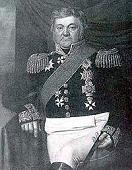

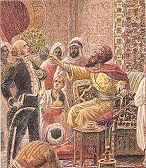




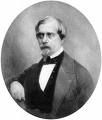
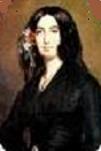



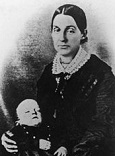
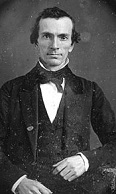
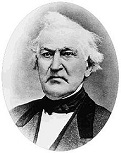
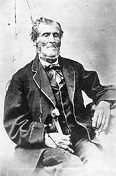
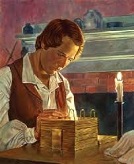
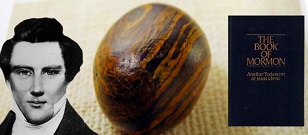







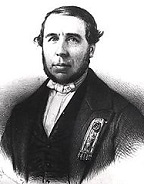
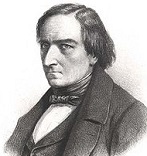


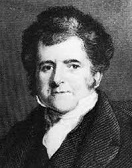
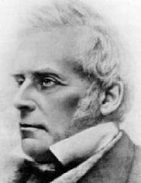
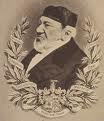


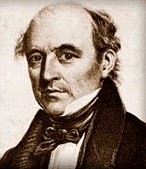

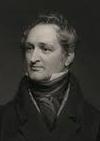
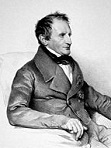









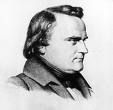

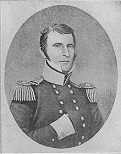
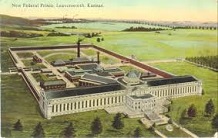
1827 Pop. of Cuba: 707K. On Jan. 5 British heir presumptive (since 1820) Prince Frederick, "the Old Duke" of York and Albany (b. 1763) (George III's 2nd son) dies of dropsy, making William IV the heir presumptive. On Jan. 8 Pomare III (b. 1820) dies, and on Jan. 11 Pomare IV Aimata ("eye-eater") (1813-77), daughter of Pomare II becomes queen of Tahiti (until Sept. 17, 1877). On Jan. 9 the city council of Baltimore, Md. passes a bill to establish public schools. I'll buy that for a buck, nyuk nyuk? On Jan. 18 after her parents object, Joseph Smith Jr. and Emma Hale Smith Bidamon (1804-79) of Harmony Township in Susquehanna County, Penn. elope in South Bainbridge, N.Y., after which they move to the home of Smith's parents in Manchester Township near Palmyra, N.Y.; on Sept. 22 (midnight) everhard 22-y.-o. Sharon, Vt.-born blonde Elvis lookalike Joseph Smith Jr. (1805-44) (known for being "a great babbler, credulous, not especially industrious, a money digger, prone to the miraculous and withal a little given to difficulties with neighbors and petty law suits", plus a "glass-looker", which gets him into criminal trouble), who goes on treasure hunts around the area takes his first wife Emma in a carriage borrowed from Joseph Knight Sr. (1772-1847) of Colesville (near Harmony), N.Y. (who supplies significant material support to Smith's trans. and pub. of the Book of Mormon, and converts along with his whole family, forming the Colesville Branch, the first branch in the church), and while she is praying he allegedly digs up ding-dong magic gold(en) plates (8 in. x 6 in. x 6 in. = 200 lb.?) inscribed with "reformed Egyptian" text on Cumorah (Mormon) (Gold Bible) Hill (Inspiration Point) in Manchester, N.Y. near his farm in Palmyra in W N.Y., later claiming that "Moroni, the person who deposited the plates, from whence the book of Mormon was translated, in a hill in Manchester, Ontario County, New York, being dead, and raised again therefrom, appeared unto me, and told me where they were; and gave me directions how to obtain them. I obtained them and the Urim and Thummim [magic seer stone] with them; by the means of which I translated the plates and thus came the book of Mormon", telling everybody and causing great excitement; on Dec. 27 they move to Harmony, Penn., obtaining a small house and farm, after which on Apr. 7, 1828 Joseph begins work on the Book of Mormon while Emma acts as scribe, never allowed to see the gold plates but permitted to feel them through a cloth blanket hung up between them (about seven inches long and rock hard?), later uttering the contradictory soundbyte to her son Joseph Smith III: "In writing for your father I frequently wrote day after day, often sitting at the table close by him, he sitting with his face buried in his hat, with the stone in it, and dictating hour after hour with nothing between us" (let's get something straight between us?); the LDS Church later depicts Joseph Smth Jr. sitting at a table with the plates in front of him and a candle, translating them without any stones, and never pub. an image showing him putting his face in a hat, or even mentioning that there could not have been any plates in it because of the problem of individual plates not being separable from the metal bindings?; in Feb. 1828 Easton, N.Y.-born Martin Harris (1783-1875) travels to Harmony to act as Smith's scribe in translating the plates, reaching 116 pages by June, after which he receives Smith's permission to show them to his wife and loses them, causing Smith to fire him and hire his Wells, Rutland County, Vt.-born schoolmaster friend Oliver H.P. (Hervy Pliny?) Cowdery (1806-50); on May 15, 1829 after being visited by John the Baptist near Harmony, Smith and Cowdery receive the Aaronic Priesthood and baptize each other in the Susquehanna River, then receive the Melchizedek Priesthood from Jesus' apostles Peter, James, and John near the Susquehanna River in June, after which the couple leaves Harmony and settles in Fayette, N.Y., where Smith finishes the translation in early June 1829 after dictating it in 65 days; in 2016 in the face of massive exposure of its failings on the Internet, the LDS Church releases the first photos of the magic stone allegedly used by Smith to translate the sacred text, a brown egg-sized rock - and it won't talk? In Jan. the Monticello auction following Thomas Jefferson's death last July 4 sells slave Peter Farley Fossett (1815-1901) along with his mother and seven siblings; Fossett goes on attempt escape 2x before his freedom is purchased by friends and family, moving to Cincinnati, Ohio and becoming pastor of the First Baptist Church of Cumminsville and a member of the Underground Railroad. On Feb. 17 British PM (since June 8, 1812) Robert Banks Jenkinson, 2nd Earl of Liverpool (1770-1828) has a stroke of apoplexy (14 years, 305 days), and is forced to retire on Apr. 9; on Apr. 12 after George IV is forced to accept him, poor-born Tory foreign secy. and orator star George Canning (1770-1827) becomes PM (until Aug. 8), and even though the French Rev. had turned him from a liberal into a conservative, his opposition to Euro powers meddling in the affairs of other states and his support of abolition cause the reactionary wing of the Tories to resign and form the "High (Ultra) Tories" (the remaining Tories being called the Canningites), causing him to have to accept Whigs in his cabinet, but he dies on Aug. 8 after 119 days in office (shortest period in office of any British PM until ?) before he can solidify control; on Aug. 31 Frederick John Robinson, 1st Viscount Goderich (1782-1859) (1st Earl of Ripon starting in 1833) (AKA Goody Goderich) becomes British PM (until Jan. 8, 1828), continuing to lead a mixed Tory-Whig cabinet, his shaky leadership causing several Tories to step in as unofficial PM until he resigns. On Feb. 19 the U.S. Supreme Court rules 4-3 in Ogden v. Saunders that La. citizen Ogden (represented by Henry Clay) can use state bankruptcy laws to avoid paying Ky. citizen Saunders (represented by Daniel Webster), and that Congress' power to pass bankruptcy laws can be trumped by certain state laws that make future contracts part of the contracts themselves; John Marshall issues his only dissenting opinion, with the soundbyte: "Contracts derive their obligation from the act of the parties, not from the grant of government." On Feb. 20 6K-9K Brazilians under gen. Felisberto Caldeira Brant, 1st Marquis of Barbacena (1772-1842) are defeated by a 6K-9K-man army Buenos Aires and the Banda Oriental under Gen. Carlos Maria de Alvear (1789-1852) at the Battle of Ituzaingo (Ituzaingó) (Rosario Pass) near the Santa Maria River, but Brazil refuses to concede the Banda Oriental, and PM (since 1826) Bernardo Rivadavia is forced to resign, and goes into exile; a congress returns the city of Buenos Aires to its province, and federalist leader Manuel Dorrego (1787-1828) becomes its gov.; rural landowners led by Juan Facundo Quiroga (1788-1835), caudillo of La Rioja in W Argentina force the congress to dissolve with his gaucho army, and the Confederacion de Estados del Rio de la Plata is established. On Feb. 27 New Orleans, La. holds its first Mardi Gras. On Feb. 28 after the city of Baltimore, Md. wishes to compete with the new Erie Canal, which serves New York City, and another canal is proposed by Penn. to connect Philly and Pittsburgh, the Baltimore and Ohio (B&O) Railroad Co. is incorporated, becoming the first commercial (passengers and freight) railroad chartered in the U.S.; next year its owner, America's richest man and DIU signer (longest living signer) Charles Carroll of Carrollton (1737-1832) lays the cornerstone; its first section opens in 1830, with the original line built from Baltimore, Md. W to Sandy Hook, Md., expanding over the Potomac River near its confluence with the Shenandoah River through Va. to Harpers Ferry, Va. just W of the confluence with Patterson Creek, then crossing back into Md. to Cumberland, Md., then to the Ohio River at Wheeling, Va. (later W. Va.), and on to Parkersburg, Va. (later W. Va.), reaching Portsmouth, Ohio, gaining the motto: "Linking 13 Great States with the Nation" - the ultimate been-there-done-that guy? On Apr. 11 Russian-Greek statesman Count John (Joannes) (Ioannis) Antonios Capodistrias (Kapodistrias) (1776-1831) is elected as pres. #1 of the Greek Repub. (until Oct. 9, 1831), and a new constitution is approved by the nat. assembly; on Jan. 7, 1828 after travelling from Geneva, he lands in Nafplion, followed on Jan. 8 by Aegina, becoming the first time he sets foot on the Greek mainland, going on to modernize and reform the govt. and unify the military, helping it reconquer territory lost to the Ottomans, introducing the first modern quarantine system in Greece, along with the phoenix, the first modern Greek currency, also introducing potato cultivation to Greece, encouraging the pop. to steal them from the docks of Nafplion to try them; too bad, his attempts to subdue the unruly capetanei and Maniates, along with his attempt to collect customs from the rich merchants turns the pop. against him, forcing him to call for Russian military aid, which backfires when the Greeks scuttle their fleet. On Apr. 29 the Fly Whisk Incident sees Ottoman dey of Algiers (since Mar. 1818) Hussein (Husayn) Day (1765-1818) insult French consul (1814-27) Pierre Deval (-1829) with a fly whisk to the face when Deval refuses to repay a 14M franc debt contracted in 1799 to feed French soldiers of Napoleon, pissing-off French king Charles X, who orders a blockade of the port of Algiers, which the dey responds to by firing cannons at the ships, leading to French preparations to invade Algeria, which prove popular with the French people. On May 24 the English-built SS Curacao (Curaçao) (sold to Holland in 1826) becomes the first steamship to cross the Atlantic Ocean (from Holland to Curacao) without using sail power, pissing the English off and causing them to either ignore it or claim that it's a myth. On July 2 English-born Thomas Cooper (1759-1840) gives a speech in which he calls the South the perennial loser in an "unequal alliance", and predicts that S.C. will "be compelled to calculate the value of the union", becoming the first major publicity given to the idea of Southern secession. On July 4 slavery is abolished in New York state. On July 6 after the Turks enter Athens, Britain, Russia, and France sign the Treaty of London, agreeing to force a truce on the Ottoman sultan, demanding an armistice and a permanent settlement of the Greek-Turkish War, with Greek self-govt. under nominal Turkish suzerainty, but Sultan Mahmud II refuses, and the British begin a peaceful blockade of the Egyptian fleet aiding Turkey against Greece; when the Egyptians attempt to break the blockade, on Oct. 20 the 26-ship British, French and Russian alliance under big heroes Adm. Sir Edward Codrington (1770-1851) of Britain, Russian Adm. Dmitri Senyavin, and Dutch adm. Login Petrovich Geiden (Lodewijk Sigismund Vincent Gustaaf van Heiden) (1772-1850) defeats and destroys the 82-ship Turkish-Egyptian navy of Mehmet Ali along with their feared fortress at the Battle of Navarino Bay in the SW Peloponnesus at Pylos, Greece, insuring Greek independence; Mikhail Lazarev is promoted to rear adm. for his achievements in the battle, and is put in charge of the Dardanelles blockade in 1828-9, made a cmdr. of the Baltic Sea Fleet in 1830, followed by chief of staff in 1832. On Aug. 22 after a military junta overthrows Bolivar's regime in Peru and secedes it from Colombia, then draws up a provisional constitution (adopted in 1828), it chooses former pres. #2 (1822-3) Gen. Jose (José) de Lamar (la Mar) (1778-1830) as pres. #8 (until June 7, 1829). In Nov. Davy, Davy Crockett, King of the Wild Frontier is elected to the U.S. House of Reps. from Tenn. for the first of three 2-year terms; Daniel Webster is elected to the U.S. Senate from Mass.; next Jan. Grace Fletcher Webster, his wife of 20 years dies after a painful illness, and in 1830 he marries Caroline Bayard Le Roy, who can't restrain his free-spending ways? Mahmud II orders his navy rebuilt; Am. physician Samuel Gridley Howe (1801-76) (later hubby of Julia Ward Howe of "Battle Hymn of the Republic" fame) becomes known as "the Lafayette of the Greek Rev." for his military exploits as well as fundraising activities in the U.S. The Anglo-Am. Convention of 1818 is extended indefinitely; the issue simmers until Am. immigration along the Oregon Trail begins in 1841. A British force lands in Lisbon to support the liberal govt. against king Miguel I (until 1828). Russia invades and conquers Persia, then takes Yerivan in Armenia. Francisco Morazan leads the Liberals in a civil war against the govt. of Manuel Jose Arce in Honduras (ends 1829); the Honduran capital of Comayagua (founded 1540) is burned. Britain declares the slave trade piracy, punishable by death. Shaka Zulu's mother Nandi dies, and he goes bonkers, ordering strict mourning practices incl. prohibiting the drinking of milk in his kingdom, turning many supporters against him. Britain finally abolishes "benefit of clergy". Britain begins administering the island of Fernando Po in the Gulf of Guinea (Bight of Biafra), with Spanish consent (until 1844), and maintains a naval station there. A poor grain harvest in England in 1826 threatens to drive prices sky high because of the 1815 Corn Law, causing PM George Canning to seek Parliamentary authority to import grain; the House of Commons okays it, but the House of Lords, led by the Duke of Wellington kills it; when Wellington becomes PM in 1828 his cabinet forces him to successfully reintroduce the same bill, but this time with a sliding scale, which alienates both sides. Italian-born British Jewish financier and philanthropist Sir Moses Montefiore (1784-1885) visits the Holy Land for the first of 7x (1827, 1838, 1849, 1855, 1857, 1866, 1875), donating large sums of money to build up the Jewish community in Jerusalem, and building the Moses Montefiore (Jaffa Gate) Windmill in 1857 in Yemin Moshe (established 1891), the first Jewish neighborhood outside the Old City walls. English-born botanist-explorer Allan Cunningham (1791-1839) discovers the rich Darling Downs in the hinterland of Brisbane, Queensland, Australia (EC coast), named after cruel N.S.W. gov. (1825-31) gen. Sir Ralph Darling (1772-1858). Edward Parry departs from Spitsbergen and sets a record for N latitude. The Mechanics' Union of Trade Assocs., the first city central labor org. is formed in Philly after carpenters lose a strike for a 10-hour workday. 18-y.-o. Charles Darwin (b. 1809) begins studying for holy orders in the Church of England at Christ's College in Cambridge; after developing doubts about his faith, he leaves in 1831 to become a naturalist aboard the HMS Beagle. Heinrich Heine begins traveling in England, Munich, Italy, Hamburg, and Helgoland (untl 1831), writing the last three of his tetralogy of travel books titled "Reisebilder" (1826-31). Self-educated Raleigh-born Greenvile, Tenn. tailor Andrew Johnson marries Eliza McCardle (1810-76), who teaches him the three Rs, causing him to get interested in politics and get elected mayor of Greenville in 1830; they have 3 sons and 2 daughters. A Mass. law requires a high school in every town of pop. 500 or more; in towns of 4K or more the school has to offer Latin, Greek, rhetoric and college prep. courses. The U. of Toronto (originally King's College until 1850) is founded in Toronto, Ont., Canada by royal charter, becoming the first higher ed. institution in Upper Canada; in 1850 it drops Church of England control; sports teams are called Varsity Blues; it goes on to found the Toronto School of lit. criticism, pioneer insuln and stem cell research, develop the first practical electron microscope, found the computer theory of NP-completeness, identify the first black hole Cygnus X-1, and develop multi-touch technology. Tioga County, N.Y.-born frontiersman Jedediah Strong Smith (1799-1831) becomes the first white man to cross the Great Basin incl. the Bonneville Salt Flats in NW Utah, becoming the first to make the overland round-trip to Calif.; he explores the Great Salt Lake and names it after himself, but it doesn't stick. Irish-born Alexander Campbell (1788-1866) of Bethany, Va. splits with the Baptists and founds the back-to-the-New-Testament Am. Restoration Movement (Campbellism)<, becoming the oldest ecumenical movement in the U.S., resulting in the creation of the Churches of Christ, which pub. the Millennial Harbinger (1823-63). The Separation of 1827 sees the Am. Quakers (Society of Friends) split into two hostile factions, the liberal Hicksite Party, led by crusty old abolitionist Elias Hicks (1748-1830), and the conservatives; guess which party liberal abolitionists James Mott and Lucretia Mott go with? After falling from a horse in Oct., the Plymouth Brethren (named after Matt. 23:8) Bible-only Christian denomination is founded in Dublin, Ireland by Westminster, London-born John Nelson Darby (1800-82), who popularizes Pre-Tribulation Rapture theology, Dispensationalism, and Futurism, later calling the invention of the telegraph an invention of Cain and a harbinger of Armageddon. Ft. Leavenworth is established by the 3rd Infantry Regiment under Col. (later Gen.) Henry Leavenworth (1783-1834) in NE Kansas (25 mi. NW of Kansas City) on bluffs above the Missouri River to guard wagon trains moving W on branches of the Santa Fe and Oregon Trails, which cross the river there; in 1829 the Rookery, the oldest house in Kansas is built there for the commanders, being used by the first gov. of Kansas Territory; on Sept. 21, 1866 the U.S. 10th Cavalry Regiment is formed there, becoming home of the African-Am. Buffalo soldiers; the the U.S. Disciplinary Barracks is founded in 1874, becoming the U.S. Defense Dept.'s only maximum security prison. The Evening Standard begins pub. in London. Karl Baedeker (1801-59) of Germany begins pub. authoritative travel guides. U.S. statesman Albert Gallatin retires from the govt. and becomes pres. of the Gallatin (Nat.) Bank (until 1834). Italian violin superstar Nicolo Paganini finally leaves Italy and begins touring Vienna, Berlin, London and Paris. Architecture: The Greek Revival Canada House in Trafalgar Square, London, England (begun in 1824) is finished, designed by British Museum architect Sir Robert Smirke, used by the Union Club and Royal College of Physicaians until 1923, when it is acquired by the Canadian govt. under the leadership of Canadian high commissioner to the U.K. (1922-30) Peter Charles Larkin (1855-1930). John Nash designs the dual white stucco-faced Carlton House Terrace in St. James, Westminster, London overlooking St. James' Park (finished in 1832) to replace Carlton House; in 1967 the Royal Society moves in. The new Bank of England Bldg. (begun 1795) on Threadneedle St., London is finished, having a big impact on commercial architecture; another one is built in Liverpool in 1845-8, and a 3rd in ?. English rich eccentric bi guy William Thomas Beckford builds eccentric neo-classical Beckford's (Lansdown) Tower on Lansdown Hill outside Bath, Somerset England. St. Katharine Docks in Tower Hamlets, London on the N bank of the Thames River downstream of Tower Bridge are built outside the jurisdiction of the City of London, where foreigners can dock and trade. Inventions: On Apr. 2 Joseph Dixon (1799-1869) begins manufacturing Dixon Ticonderoga pencils, made with graphite from Ticonderoga, N.Y. - now the Mason-Dixon Line can be pencilled in erasable black and white? In June the first successful photograph (which he calls "heliograph") is produced by Joseph Nicephore Niepce (Nicéphore Niépce) (1765-1833) in France; it uses bitumen of Judea coated on pewter plates in a camera obscura facing a window of his estate, imaging a blurry bldg., tree, and barn after eight hours of exposure, becoming the oldest surviving photography of a real-world scene; he produced foggy photographs as early as 1822. English astronomer royal (1835-81) Sir George Biddell Airy (1801-92) invents the Astigmatic (cylindrical) lens. French engineer Benoit Fourneyron (1802-67) invents the first practical water turbine, generating 6 hp from two sets of blades curved in opposite directions, winning him a 6K franc prize from the French Society for the Encouragement of Industry, going on to increase horsepower in 1837 to 60 at 2.3K rpm; in 1897 Fourneyron turbines are installed on the U.S. side of Niagara Falls. English-born U.S. engineer John Isaac Hawkins (1772-1854) invents the trifocal lens, along with a polygraph machine, and a mechanical penxil which Thomas Jefferson uses to write tens of thousands of letters; he later invents the upright (portable grand) piano. German Bohemian engineer Josef Ludwig Franz Ressel Joseph Ludwig Franz (Josef Ludvik Frantisek) (1793-1857) patents the screw propeller for ships. Charles Wheatstone invents the microphone. Science: London physician Richard Bright (1798-1858) first describes Bright's Disease (nephritis), characterized by albumin in the urine, causing him to become known as "the Father of Nephrology". Young Guns, or Mathematical Brokeback Mountain? Karl Gustav Jacob Jacobi (1804-51) and Niels Henrik Abel (1802-29) independently found the theory of elliptic (doubly periodic) functions. No Pain No Gain for electrical circuits? German physicist Georg Simon Ohm (1789-1854) pub. his famous Simple Simon Ohm's Law, stating that the ratio of electromagnetic force to current in an electrical circuit is a variable, er, constant, i.e. V = I * R (variable electromotive force = variable electric current times constant electrical resistance, independent of current and voltage). After discovering hydrochloric acid in stomach juices and separating it by distillation in 1823, English physician-chemist William Prout (1785-1850) proposes dividing the chemical components of food into sugars and starches (carbohydrates), lipids (fats), and albuminoids (proteins). Nonfiction: John James Audubon (1785-1851), Birds of North America; drawings of 1,065 birds of 499 different species, starting with the Am. wild turkey; "The great size and beauty of the Wild Turkey, its value as a delicate and prized article of food... render it one of the most interesting birds... in the United States"; the pages are "double elephant folios" (26.5 x 39.5 in.), the largest produced; only 200 sets are produced by printer Robert Havell Jr., all by subscription. Karl Ernst von Baer (1792-1876), Epistola de Ova Mammalium et Hominis Generis. Jeremy Bentham (1748-1832), Constitutional Code for All Nations; a new law code with utilitarian principles; other vols. appear in 1841, having a big effect in England by the end of the cent.; "The greater a man's power, the stronger his propensity in all possible ways to abuse it." Henry Hallam (1777-1859), The Constitutional History of England (3 vols.); covers from the accession of Henry VIII to the accession of George III; becomes a std. work; Robert Southey disses it as the "production of a decided partisan" for his distant treatment of Charles I, Thomas Cranmer, and Bishop William Laud. Joseph von Hammer-Purgstall (1774-1856), History of the Ottoman Empire (Geschichte des Osmanischen Reiches) (10 vols.) (1827-35); result of 30 years of study; too bad, it's never trans. to English until ?. Johann Gottfried Jakob Hermann (1772-1848), Opuscula (7 vols.) (1827-39); his magnum opus on ancient languages and history, turning-on his student Leopold von Ranke. Godfrey Higgins (1772-1833), The Celtic Druids (3 vols.) (2nd ed. 1829); "An attempt to show that the druids were the priests of oriental colonies who emigrated from India, were the introducers of the First or Cadmean System of Letters, and the buildiers of Stonehenge, Carnac, and other Cyclopean works in Asia and Europe"; announces the preparation of an upcoming volume about "all the ancient Mythologies of the world, which, however varied, and corrupted in recent times, were originally one, and that one founded on principles sublime, beautiful and true", which becomes "Anacalypsis" (1836). Wilhelm von Humboldt (1767-1835), On the Dual; shows that ancient languages such as Sanskrit are syntactically more complex than modern ones, ending attempts to find a common simpler original language. John Keble (1792-1866), The Christian Year. Thomas Longworth (ed.), American Almanac and New York Register (1828-61). Thomas Moore (1779-1852), History of Ireland. William Motherwell (1797-1835), Minstrelsy, Ancient and Modern. Georg Simon Ohm (1789-1854), The Galvanic Circuit Investigated Mathematically (Die Galvanische Kette, Mathematisch Bearbeitet; proposes Ohm's Law. George Sand (1804-76), Voyage en Auvergne (aubobio.) (first work). Sir Walter Scott (1771-1832), Tales of a Grandfather; Scottish history from the POV of a Tory who thinks the 1707 Act of Union was the bee's knees. Thomas Southwood Smith (1788-1861), The Use of the Dead to the Living; argues for use of corpses for medical dissection. Col. James Withycombe, An Embassy to Tehran and Account of a Visit to Kom. Music: Vincenzo Bellini (1801-35), Il Pirate (opera) (Oct. 27) (La Scala, Milan); a hit; makes him a top Euro composer. Jacques Fromental Halevy (1799-1862), L'Artisan (opera). Heinrich Marschner (1795-1861), Lucretia, Op. 67 (opera). Franz Schubert (1797-1828), Deutsche Messe, D872; Impromptus, Op. 90; Moments Musicaux, Op. 94; Piano Trio in B-flat, Op. 99 (D898); Die Winterreise, D911 (lyrics by Wilhelm Mueller); Piano Trio in E-flat, Op. 100 (D929). Johann Strauss I (1804-49), Tauberln-Walzer, Op. 1 ("Little Doves"). Art: John Constable (1776-1837), Salisbury Cathedral. Jean-Baptiste-Camille Corot (1796-1875), Le Pont de Narni. Eugene Delacroix (1798-1863), The Death of Sardanapalus. Georg Friedrich Kersting (1785-1847), Stickerin am Fenster. John Martin (1789-1854), Illustrations for Milton's "Paradise Lost" (mezzotints). Plays: Victor Hugo (1802-85), Cromwell; the preface is a manifesto of Romanticism and a dig at French neoclassical criticism and the dramatic unities of time and place, justifying the grotesque in art - I wanna be just like you? Karl Leberecht Immermann (1796-1840), Das Trauerspiel in Tirol (tragedy). Poetry: Fitz-Greene Halleck (1790-1867), Alnwick Castle, and Other Poems; incl. "Burns" and "Marco Bozzaris". Heinrich Heine (1797-1856), Reisebilder, Zweiter Teil; Buch der Lieder; his masterpiece?; Romanticism with liberal sympathies? Giacomo Leopardi (1798-1837), Operette Morali (Essays and Dialogues). Wilhelm Mueller (1794-1827), Lyrische Reisen und Epigrammatische Spaziergange. Alexander Pushkin (1799-1837), The Gypsies; written in 1824. Mihaly Vorosmarty (1800-55), Eger; the 1552 Siege of Eger. Edgar Allan Poe (1809-49), Tamerlane and Other Poems (first book); "By a Bostonian". Novels: Samuel G. Goodrich, Peter Parley (juvenile novel series) (1827-60). Wilhelm Hauff (1802-27), The Wine-Ghosts of Bremen (Phantasiem im Bremer Ratskeller) (his masterpiece?); The Jew Suss (Süss); redone in 1925 by Lion Feuchtwanger. Thomas Moore (1779-1852), The Epicurean. Karl Spindler (1796-1855), Der Jude - trust me, I'm German? Stendhal (1783-1842), Armance (first novel); impotent brilliant student Octave de Malivert romances Armance Zohiloff, marries her, then splits to fight in Greece, dying of sorrow. Births: Am. Tex. gov. #18 (1883-7) John Ireland (d. 1896) on Jan. 1 in Hart County, Ky.; Irish immigrant parents; moves to Seguin, Tex. in 1852. Japanese samurai ("The Last Samurai") Saigo Takamori (d. 1877) on Jan. 23 in Kagoshima, Satsuma. Canadian engineer-inventor (Freemason) Sir Sandford Fleming (d. 1915) on Jan. 7 in Kirkcaldy, Fife, Scotland; emigrates to Canada in 1845; 1851 inventor of the Threepenny Beaver stamp and 1876 inventor of Internat. Standard Time. French scientist Jean-Antoine Villemin (d. 1892) on Jan. 28 in Prey. Am. "Century Dictionary" linguist William Dwight Whitney (d. 1894) on Feb. 9 in Northampton, Mass.; educated at Williams College; brother of Josiah Whitney (1819-96); son-in-law of Roger Sherman Baldwin (1793-1863); father of Edward Baldwin Whitney (1857-1911); grandfather of Hassler Whitney (1907-89). Am. Civil War Union gen. Charles Robert Woods (d. 1885) on Feb. 19 in Newark, Ohio; brother of William Burnham Woods (1824-87). Am. Civil War Union gen. and U.S. rep. (D-Wisc.) (1885-7) Edward Stuyvesant Bragg (d. 1912) on Feb. 20 in Unadilla, N.Y.; educated at Hobart College. French defrocked priest Pere (Père) Hyacinthe (Charles Jean Marie Loyson) (d. 1912) on Mar. 10 in Orleans. English Pre-Raphaelite Brotherhood painter William Holman Hunt (d. 1910) on Apr. 2 in Cheapside, London; born William Hobman Hunt, he changes his middle name after discovering that his birth certificate was misspelled. English surgeon Sir Joseph Lister, First Baron Lister of Lyme Regis (d. 1912) on Apr. 5 in Upton; son of London opticist Joseph Jackson Lister (1786-). Am. "Ben-Hur" novelist-painter-statesman and U.S. Civil War maj. gen. Lewis "Lew" Wallace (d. 1905) on Apr. 10 in Brookville, Ind.; gov. of New Mexico Territory (1878-81); minister to Turkey (1881-5). Irish scientist Mary Ward (nee King) (d. 1869) on Apr. 27 in Ferbane. Argentine businessman Otto Bamberg (d. 1896) on May 1 in Cologne, Germany; emigrates to Argentina in 1850. French "The Song of the Lark" naturalist painter Jules Breton (Jules Adolphe Aimé Louis Breton) (d. 1906) on May 1 in Courrieres, Pas-de-Calais. English explorer John Hanning Speke (d. 1864) on May 4 near Bideford, Devon. Hungarian poet Janos Vajda (d. 1897) on May 7. French "The Dance" sculptor-painter Jean-Baptiste Carpeaux (d. 1875) on May 11 in Valenciennes, Nord; pupil of Francois Rude (1784-18550. Russian reactionary statesman Konstantin Petrovich Pobedonostsev (d. 1907) on May 21 in Moscow. Scottish-Australian analytical chemist-politician (red haired) (bearded) John Macadam (d. 1865) on May 29 in Northbank, Glasgow, Scotland; educated at the U. of Strathclyde, and U. of Edinburgh; namesake of the macadamia nut. British lt. gen. Frederick Augustus Thesigner, 2nd Baron Chelmsford (d. 1905) on May 31 in Derby. Australian Liberal statesman Hugh Culling Eardley Childers (d. 1896) on June 25 in London, England; educated at Wadham College, Oxford U., and Trinity College, Cambridge U.; emigrates to the U.S. in 1850. Swiss chemist Jacques-Louis Soret (d. 1890) on June 30; father of Charles Soret (1854-1904). Am. Dem. Kan. gov. #9 (1883-5) George Washington Glick (d. 1911) on July 4 near Greencastle, Fairfield County, Ohio. Swiss "Heidi" children's writer Johanna Spyri (nee Johanna Louise Heusser) (d. 1901) on July 12 in Hirzel. English explosives chemist Sir Frederick Augustus Abel, 1st Baronet (d. 1902) on July 17 in London. Am. politician (founder of Grand Junction, Colo.) George Addison Crawford (d. 1891) on July 27 in Clinton County, Penn. Am. flour magnate and Repub. gov. #8 of Minn. (1876-92) John Sargent Pillsbury (d. 1901) on July 29 in Sutton, N.H.; of English descent; uncle of Charles Alfred Pillsbury (1842-99); educated at the U. of Minn. Brazilian pres. #1 (1889-91) and field marshal Manuel Deodoro da Fonseca (d. 1892) on Aug. 5 in Alagoas. Belgian novelist-poet Charles Theodore Henri de Coster (d. 1879) on Aug. 20 in Munich, Germany; educated at the U. of Bruxelles. Austrian "Music of the Spheres" composer Josef "Pepi" Strauss (d. 1870) on Aug. 20 in Mariahilf (Vienna); son of Johann Strauss I (1804-49); brother of Johann Strauss II (1825-995) and Eduard Strauss (1835-1916). Am. entomologist-actor Henry "Harry" Edwards (d. 1891) on Aug. 27 in Ross-on-Wye, Herefordshire, England; emigrates to the U.S. in 1865. Am. "Jesus Loves Me" writer-poet Anna Bartlett Warner (d. 1915) on Aug. 31 in Long Island, N.Y. Am. actor (founder of the Drew-Barrymore acting dynasty) John Drew (Jonathan Henry Drewland) (d. 1862) on Sept. 3 in Dublin, Ireland; emigrates to the U.S. in 1845; husband (1848-) of Louisa Lane (1820-97); father of Louisa Drew (1852-), John Drew Jr. (1853-1927), and Georgiana Drew (1856-93) (who marries Maurice Barrymore in 1876). Italian "Il Canto degli Italia" nat. anthem poet-writer Goffredo Mameli (d. 1849) on Sept. 5 in Genoa. French journalist and drama critic Francisque Sarcey (d. 1899) on Oct. 8 in Dourdan, Seine-et-Oise. Swiss "Isle of the Dead" symbolist painter Arnold Bocklin (Böcklin) (d. 1901) on Oct. 16. French anti-vitalist organic chemist and politician Pierre Eugene Marcellin Berthelot (d. 1907) on Oct. 25 in Paris; educated at the College Henri IV; father of Philippe Berthelot (1866-1934). Am. architect Richard Morris Hunt (d. 1895) on Oct. 31 in Brattleboro, Vt.; brother of William Morris Hunt (1824-79) and Leavitt Hunt. Am. art historian (Boston Brahmin) Charles Eliot Norton (d. 1908) on Nov. 16 in Shady Hill, Cambridge, Mass.; son of Andrews Norton (1786-1853); cousin of Charles William Eliot (1834-1926); educated at Harvard U. Am. composer Edmond Dede (d. 1903) on Nov. 20. Am. "Steps to Christ" Seventh-Day Adventist founder (vegetarian) Ellen Gould White (nee Harmon) (d. 1915) on Nov. 26 in Gorham, Maine; has twin sister Elizabeth; likes to bind her books in red? Am. "The Four Hundred" New York high society arbiter Samuel Ward McAllister (d. 1895) in Dec. in Savannah, Ga. English "Gray's Anatomy" anatomist Henry Gray (d. 1860). Icelandic scholar Gudbrand Vigfusson (d. 1889) in Breidafjorour; educated at Copenhagen U. Am. philanthropist-educator (founder of the Hotchkiss School) Maria Harrison Hotchkiss (nee Bissell) (d. 1901) in Salisbury, Conn. Am. penologist ("Father of American Prison Reform") Zebulon Reed Brockway (d. 1920) in Lyme, Conn. Deaths: Am. portrait painter Charles Willson Peale (b. 1741) on Feb. 22 in Philadelphia, Penn.; had 17 children, and taught many of them to be painters. English historian William Mitford (b. 1744) on Feb. 10 in Exbury. Italian scientist Alessandro Volta (b. 1745) on Mar. 5. English composer James Hook (b. 1746) in France. Swiss educator Johann Heinrich Pestalozzi (b. 1746) on Feb. 17 in Brugg. French mathematician Marquis Pierre-Simon de Laplace (b. 1749) on Mar. 5 in Paris: "I have no need of that hypothesis (God)"; "All the effects of Nature are only mathematical results of a small number of immutable laws"; "Infinitely varied in her effects, Nature is only simple in her causes"; "What we know is little, and what we are ignorant of is immense." German Saxon king (1763-1827) Frederick Augustus I (b. 1750) on May 5. French Trappist abbot Augustin de Lestrange (b. 1754) on July 16 in Lyon. Am. porcelain manufacturer Josiah Spode Jr. (b. 1754). Am. political leader Rufus King (b. 1755) on Apr. 29 in Jamaica, Queens, N.Y. English caricaturist-painter Thomas Rowlandson (b. 1756) on Apr. 22. English Romantic poet-artist (genius or schizo?) William Blake (b. 1757) on Aug. 12 in Charing Cross, London; dies of biliary cirrhosis from fumes produced by his engraving work?; while working on illustrations for Dante's Inferno on which he spent his last shilling on a pencil, he puts the pencil down, draws his wife's portrait, and dies?; leaves Auguries of Innocence (pub. 1863), which incl. the lines: "To see a world in a grain of sand/ And a heaven in a wild flower,/ Hold infinity in the palm of your hand,/ And eternity in an hour./ A robin redbreast in a cage/ Puts all heaven in a rage"; "He died in a most glorious manner. He said he was going to that country he had all his life wished to see and expressed himself happy, hoping for salvation through Jesus Christ. Just before he died his countenance became fair, his eyes brightened and he burst out singing of the things he saw in heaven" (a lady): "In the universe there are things known, and things that are unknown, and in between there are doors"; "When the nations grow old the Arts grow cold/ And commerce settles on every tree"; "I will not cease from mental flight,/ Nor shall my sword sleep in my hand,/ Till we have built Jerusalem,/ In England's green and pleasant land." Am. banker-philanthropist-warden Thomas Eddy (b. 1758) on Sept. 16 in New York City. Spanish marshal Joaquin Blake y Joyes (b. 1759) on Apr. 27 in Valladolid. Am. cross-dressing Am. Rev. soldier Deborah Sampson (b. 1760) on Apr. 29 in Sharon, Mass. (yellow fever). English novelist-poet Helena Maria Williams (b. 1761) in Paris. Spanish diplomat Luis de Onis Gonzalez (b. 1762) in Madrid. British heir presumptive Prince Frederick, Duke of York and Albany (b. 1763) on Jan. 5 in Rutland House, London (dropsy). Am. businessman Victor Marie du Pont de Nemours (b. 1767) on Jan. 30 in Philadelphia, Penn. German deaf ear-trumpet-using bigwig composer Ludwig van Beethoven (b. 1770) on Mar. 27 in Vienna; leaves 32 piano sonatas and only one opera; last words: "Applaud, friends, the comedy is finished", or "I shall hear in heaven"; Franz Schubert visits his deathbed on Mar. 19 and is one of the 36 torch bearers at his Mar. 29 funeral, which causes 20K to line the streets; he is buried in the Wahring Cemetery W of Vienna, then moved to the Zentralfriedhof in Vienna in 1888; in 2005 the Argonne Nat. Lab. of the U.S. Energy Dept. announces that his body contained 60 times the avg. level of lead, accounting for his abdominal pain, bad digestion, depression, fevers and irritability - ode to joy? British PM (1827) George Canning (b. 1770) on Aug. 8 in Chiswick, Middlesex. Greek-born Italian #1 writer-poet-critic Ugo Foscolo (b. 1778) on Sept. 10 in Turnham Green, England; his remains are buried in the Church of Santa Croce in Florence in 1871. Scottish explorer Hugh Clapperton (b. 1788) on Apr. 13 in Sokoto, Nigeria (dysentery). French physicist Augustin Jean Fresnel (b. 1788) on July 14. German poet Wilhelm Mueller (b. 1794) on Sept. 30. German poet-novelist Wilhelm Hauff (b. 1802) on Nov. 18 (fever).




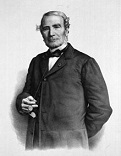







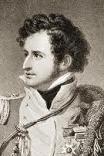




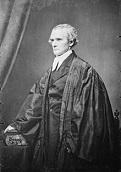
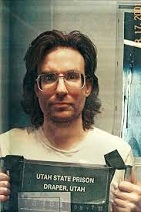
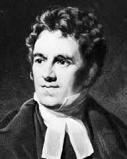

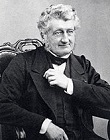
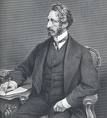


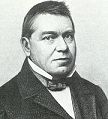
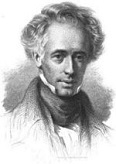


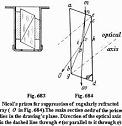




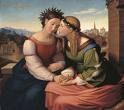
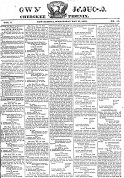

1828 On Jan. 8 British PM (since Aug. 31, 1827) Viscount Goderich resigns, his govt. never meeting Parliament, bursting into tears and causing George IV to hand him a hanky; on Jan. 22 Dublin, Ireland-born Arthur Wellesley, 1st Duke of Wellington (1769-1852) becomes British PM (until Nov. 16, 1830), turning the cabinet High (Ultra) Tory and causing many Canningites to go over to the Whigs; ever after British big brains speculate fondly on what Camelot George Canning might have presided over had he lived longer, making him the British JFK? On Jan. 20 Abraham Lincoln's older sister Sarah Lincoln Grigsby (b. 1807) dies in childbirth, which pisses him off, causing him to blame it on the Grigsby family and almost fight a duel over the matter - if there were more stars in the Southern sky? On Feb. 7 British MP Henry Peter Brougham (1778-1868) delivers a 6-hour speech in the House of Commons, becoming the longest so far (until ?); he sets the same record in the House of Lords on Oct. 7, 1831. On Feb. 21 the first issue of the bilingual Cherokee Phoenix is pub. in New Echota (modern-day Ga.) (until 1834), becoming the first newspaper pub. by Native Ams., and first pub. in a Native Am. language, containing the Constitution of the Cherokee Nation and claiming that their lands in N Georgia and W Carolina are "solemnly guaranteed and reserved forever to the Cherokee Nation by the Treaties concluded with the United States" (Treaty of 1791, et al.); Georgia responds with a law stipulating that after June 1, 1830 the authority of state law will extend over all Cherokees living within their state boundaries; the newspaper ceases pub. in 1834. In Feb. after Sir Robert Peel notes the success of the police force in Staylbridge, Cheshire set up two years earlier, plus the success of the Glasgow, Scotland police force set up in 1800, a committee of enquiry is set up to look into setting up a police force for Greater London, resulting in "Bobbies" ("Peelers") on the streets by next Sept., wich each officer given a unique badge numbers and held to the Peelian Principles of accountability, with police viewed as citizens in uniform who police with the implicit consent of their fellow citizens, with Peel uttering the soundbyte: "The police are the public and the public are the police." On Mar. 8 a decree in Mexico expels all Spaniards. On Apr. 1 after a liberal revolt in Mexico led by Vicente Guerrero overthrows Augustin de Iturbide, Guerrero becomes pres. #2 (until Dec. 17), with Gen. Anastasio Bustamante as vice-pres. and army CIC. On May 8 Exter, N.H.-born anti-war activist William Ladd (1778-1841) founds the Am. Peace Society in New York City from the merger of several state and local societies incl. the New York Peace Society (founded 1815), advocating a "Congress and High Court of Nations", going on to pub. Advocate of Peace, followed in 1837 by World Affairs; in 1834 the HQ is moved to Boston, Mass., followed in 1911 by Washington, D.C.; it later calls the U.S. Civil War a "police action" against the "criminals" of the Confederacy and refuses to oppose it. On May 5 Federalist liberal Gen. Francisco Antonio Pinto Diaz (1785-1858) is elected pres. #4 of Chile, taking office on May 8 (until Nov. 2, 1829); meanwhile conservatives, led by Gen. Jose Joaquin Prieto Vial (1786-1854) and Gen. Diego Jose Pedro Victor Portales y Palazuelos (1793-1837) begin a civil war (ends 1831). On May 19 the bizarre protective tariff bill (62% tax on 92% of all imported goods) known as the Tariff of Abominations is originally hatched by John Calhoun as a scheme to advance the candidacy of Andrew Jackson by proposing such high tariffs on raw materials that eastern manufacturers would cause it to be defeated, leaving Jackson's supporters free to either take credit for supporting or opposing it, while Jackson himself remains in the background ("manufactures of no sort or kind, but the manufacture of a President of the United States" - John Randolph of Va.); when Van Buren defects from the plot, and Mass. Sen. Daniel Webster flip-flops, coming out in favor of protectionism, cotton-state man Calhoun sees the devil in Daniel Webster and flip-flops, but it is passed by the U.S. Congress on May 11; John Calhoun, now against protectionism, authors the anon. South Carolina Exposition and Protest, announcing the South Carolina legislature's new doctrine that states may nullify federal laws that they find unconstitutional. On May 28 German youth Kaspar (Casper) Hauser (1812-33) is picked up by a cavalryman in Nuremberg with a note giving his name and claiming he was born on Apr. 30, 1812; he is found to have the mental development of a 6-y.-o., and claims to have lived most of his life in a dark cell, while repeating "I want to be a rider like my father! Horse! Horse!"; his case arouses public interest, with speculation that he is of the House of Baden, son of Stephanie de Beauharnais, Napoleon's adopted daughter and Karl Ludwig Friedrich, Grand Duke of Baden, who was succeeded by his uncle Leopold I for lack of an heir; British Lord Stanhope takes him under his wing, getting him sent to Ansbach, where on Dec. 14, 1833 an unknown assassin fatally stabs him, and he dies on Dec. 17; in 1924 a tiny cell is discovered in Pilsach Castle near Neumarkt in der Oberfalz containing a wooden horse, and in 2002 DNA evidence links him with the House of Baden; Werner Herzog makes the 1974 film Every Man for Himself and God Against All (Jeden fur Sich und Gott Gegen Alle) about him. On June 14 Goethe's patron Grand Duke Karl August of Saxe-Weimar-Eisenach (b. 1757) dies, and his son Karl Friedrich (1783-1853) becomes grand duke (until July 8, 1853), continuing the artsy fartsy tradition in Weimar, inviting Franz List to become kapellmeister and sheltering Richard Wagner next year after he is forced to flee Saxony for rev. activities, after which his opera Lohengrin debuts there in Aug. 1850. In summer the Sweet Lake (Bear Lake) Rendezvous on the Idaho-Utah border is attended by mountain men Philip Covington, Hugh Glass, Jim Bridger, Jim Beckwourth, Jedediah Smith, Ezekiel Abels, Black Harris, Joshua Pilcher; on Aug. 15 a party of 45-50 men on 80-90 mules depart for St. Louis, Mo. with $36M in furs incl. 7,710 lbs. of beaver pelts, arriving on Oct. 13 and making a profit of $16M. On July 4 after the British force in Portugal withdraws after making Dom Miguel promise to respect the liberal constitution, and as soon as the suckers are gone he stages a palace coup, abolishes the liberal 1822 constitution, and on July 11 has himself proclaimed as King Miguel I (1802-66) (until May 26, 1834); Maria II da Gloria flees to London, obtaining the support of Dom Pedro of Brazil to fight for her restoration, and the Miguelite (Liberal) Wars (Portuguese Civil War) (War of the Two Brothers) begin (end 1834). On July 5 after the exit of the liberal Tories from Wellington's cabinet creates the need for the election of a successor in County Clare in Ireland, he is defeated by Daniel O'Connell, who is barred from sitting in the English Parliament because he is a Roman Catholic; this puts pressure on Wellington to restore the rights of the Irish Roman Catholics, who have been fuming ever since the Act of Union in 1801, and they are finally permitted to hold local office. On July 27 king (since 1810) Radama I the Great (b. 1793) dies, and after eliminating her rivals his snake-eyed xenophobic wife Queen Ranavalona becomes Ranavalona (Ranavalona-Manjaka) I (1782-1861) of Madagascar (until Aug. 16, 1861), going on to reverse her hubby's modernization and Westernization efforts, reinstitute the slave trade, giving French traders a monopoly, expelling British missionaries in 1835, and becoming known as the Messalina, Bloody Mary, Wicked Queen, and Mad Queen of Magadascar with her Roman-style persecutions of Christians, incl. boiling them alive, while modernizing her army with the help of shipwrecked Frenchie Jean Laborde (1805-78), who builds a munitions plant and is given large tracts of land. In July the Cherokee Nation, presided over by Coowescoowe (1790-1866) adopts a written constitution in New Echota, but Ga. gov. George Michael Troup vows to seize all Cherokee lands by 1830; Coowesoowe is elected chief next year, and serves for life (until 1866), using the name John Ross when dealing with palefaces; with the federal govt. withdrawing federal toops, leaving them at the mercy of the Ga. state militia; meanwhile the once proud Creeks sell all their remaining territory in Ala. and Ga. and agree to move to the Indian Territory in modern-day Okla., although a number remain behind - my God those cops let us off with a warning, I was this close to my third straight? In Aug. after Antonio Sucre is expelled from Bolivia, Simon Bolivar resigns as pres. of the Repub. of Colombia, then assumes dictatorial control in Sept. in an attempt to stifle separatism, but troubles in Venezuela begin getting out of hand. In Aug. Kerala Varma III dies, and his nephew Rama Varma XI (-1837) becomes king of Cochin in SW India (until Nov. 1837). On Sept. 22 Zulu chief (since 1816) Shaka Zulu (b. 1785) is assassinated in modern-day Stranger by his half-brother Dingane (Dingaan) (1795-1840), another half-brother, and a servant; Dingane becomes the new Zulu chief (until 1840). On Oct. 31-Dec. 2 after the most scurrilous campaign since 1800, in which Jackson is accused of everything except being Attila the Hun (incl. "Andy Jackass", giving the Dem. Party a symbol), while Adams is accused of being corrupted by foreigners in the courts of Europe, and of having a billiard table and a chess set in the White House), the 1828 U.S. Pres. Election is a V for Andrew Jackson, who receives 56% of the popular vote and 178 electoral votes to 85 for J.Q. Adams (making him a 1-termer, like his daddy); Jackson carries the entire West and South plus Penn., while Adams carries New England, Del., and N.J.; John C. Calhoun deserts to the Jackson camp and is reelected vice-pres; in the 22 (out of 24) states that choose electors by popular vote, the number of voters triples over 1824, causing the big Jacksonian V; accusations that Jackson had lived in adultery with his pipe-smoking wife Rachel Robards Donelson for two years (1791-3) before her divorce was final causes her to take ill and die before Jackson takes office, and this gives him a permanent grudge against his oh-oh-oh-oh enemies. The Ninth Russo-Turkish War (ends 1829) begins after the great Euro powers hold several conferences and agree to prop up the Greeks against the Turks for strategic reasons, and the Turkish Porte (assembly) refuses an armistice offer from France, Britain and Russia, causing Russia to send naval forces to Turkey and put on the screws; Russia gains control of the E coast of the Black Sea, incl. E Armenia from Persia. Mehmet Ali finally agrees to the British demands to leave Greece. A military coup in Buenos Aires led by unitarian Gen. Juan Galo Lavalle (1797-1841) executes gov. Manuel Dorrego after he accepts the independence of the Banda Oriental. Uruguay becomes independent of Brazil following the Treaty of Rio de Janeiro. The Dutch annex W New Guinea. Spain stages an industrial exhibition. Dahlonega, Ga. becomes the site of the first gold rush in the U.S. Martin Van Buren becomes gov. of New York (ends 1829). Yet another Dutch West India Co. is formed (1621, 1674), but it soon goes bust - show me the money? Isle of Wight-born Corpus Christ, Oxford U.-educated classical scholar Thomas Arnold (1795-1842) is appointed headmaster of Rugby School in England (until 1841), going on to turn it into a model, introducing the study of history, modern languages, and mathematics, uttering the soundbyte: "I assume it as the foundation of all my view of the case, that boys at a public school never will learn to speak or pronounce French well, under any circumstances", hence it should be the goal to "learn it grammatically as a dead language"; he forbids teaching of physical science because "it must either take the chief place in the school curriculum, or it must be left out altogether"; Not that he liked it: "Rather than have [physical science] the principal thing in my son's mind, I would gladly have him think that the sun went round the earth, and that the stars were so many spangles set in the bright blue firmament. Surely the one thing needful for a Christian and an Englishman to study is Christian and moral and political philosophy"; he resists putting sport into the curriculum until 1850, listing his educational aims as cure of souls, moral development, and intellectual development, with the 1857 Thomas Hughes novel "Tom Brown's School Days" legendizing him; in 1866 Baron de Coubertin visits, becoming his admirer and helping inspire him to found the modern Olympics, calling him "the very cornerstone of the British Empire", and writing the soundbyte: "Thomas Arnold, the leader and classic model of English educators gave the precise formula for the role of athletics in education. The cause was quickly won. Playing fields sprang up all over England." New Harmony in Ind. folds, and Robert Owen returns home, but his son Robert Dale Owen stays in the U.S., becoming ed. of the Socialist newspaper Free Inquirer in New York City next year, then entering Ind. state politics as a Dem. legislator in 1835, a U.S. rep. in 1842-6, and a diplomat in 1853-8, finally becoming an active abolitionist. Bosendorfer Piano Co. is founded by Austrian musician Ignaz Bosendorfer (Bösendorfer) (1796-1859); used by Franz Liszt (1811-86), even though he is the official rep. of Erard Pianos? William Cullen Bryant (1794-1878) becomes ed. in chief of the New York Evening Post until death. Niblo's Garden in New York City is established. River steamboats begin navigating the Illinois River. Jedediah Smith becomes the first Am. pioneer to reach Calif. overland; he is aided in crossing the Klamath River by natives. Thomas Whittemore (1800-61) founds The Trumpet and Universalist Magazine, becoming the leading newspaper of the Universalist movement centered in Boston, Mass. The Brahmo Samaj (Sanskrit "samaja" = assembly) Hindu religious sect is founded in Calcutta, India by Brahman rajah Ram Mohan Roy Bahadoor (Bahadur) (1772-1833), believing in monotheism and the Vedas, and repudiating graven images and widow (suttee) and other sacrifices, and going on to get the suttee abolished in India, founding the Bengal Renaissance. The Working Men's Party is founded in Philadelphia and New York City. The United Bowmen of Phila. in Penn. is founded, becoming the first organized body of sport archers in the U.S. The weekly Athenaeum begins pub. in London. The weekly The Spectator begins pub. in London. The Anthon Transcript is presented by Martin Harris to classical scholar Charles Anthon (1797-1867) of Columbia U., a small piece of paper on which Joseph Smith Jr. allegedly wrote several lines of chars. from the gold plates in reformed Egyptian, allegedly writing a letter of authenticity before hearing the story about an angel revealing the plates to Smith, causing him on Feb. 17, 1834 to write a letter denying authenticity and calling it a hoax and "a scheme to cheat the farmer [Harris] out of his money"; in 1980 Mormon closet apostate Mark William Hofmann (1954-) creates a forgery of the Anthon Transcript and successfully foists it on the leaders of the LDS Church for $25K; he goes on to forge a document by Thomas Bullock claiming that Joseph Smith Jr. had designated his son Joseph Smith III as his successor rather than Brigham Young, a holograph by Joseph Smith Jr. claiming that he was a practitioner of black magic and treasure hunting five years after his First Vision, which he sells to Gordon B. Hinckley for $15K, who suppresses it until Hofmann leaks it to the press, causing the LDS Church to deny possession then confess and release it for study, and the Salamander Letter from Martin Harris to W.W. Phelps, claiming that Smith practiced "money digging" and that it wasn't an angel that appeared to him, but a white salamander; too bad, in 1984 LDS critics Jerald and Sander Tanner blow the whistle, and after he squanders his dough on lavish living and gets desperate, he makes homemade bombs and uses them to kill document collector Steven Christiansen and Kathy Sheets, wife of his former employer in Salt Lake City, Utah, throwing the police off the track until he accidentally explodes a bomb in his car, getting him arrested in Jan. 1986, after which he pleads guilty to two counts of 2nd degree murder in Jan. 1987, and is sentenced in Jan. 1988 to 5-life in prison, with the parole board recommending no parole. Architecture: On July 4 the cornerstone for Tremont House in Boston, Mass. is laid, becoming the first U.S. hotel to install bathrooms. Cape Elizabeth Lighthouse in the seaport of Portland, Maine is built as two rubblestone towers (the Two Lights), with its first keeper appointed by Pres. J.Q. Adams; in the 1920s it is modified to a single beacon; by this year there are 25 lighthouses in the U.S., growing to over 10K by 1970. Werdersche Kirche (begun 1825) in Berlin is finished. The Church of the Tithes by Vasily Stasov is built on the site of the first Russian church in Kiev, housing relics of St. Vladimir (destroyed by the Communists in the 1930s). Inventions: James Bogardus (1800-74) of the U.S. invents the Ring Flier, a cotton-spinning machine. Am. engineers Charles Danforth (1797-1876) and John Thorp (1784-1848) invent cotton cap and ring spinning machines, respectively. ? Gillot invents the first machine-made steel pen. Anyos Jedlik (1800-95) of Hungary invents the electric motor? Samuel Jones of London invents the Promethean Match, a glass bead containing acid and wrapped in paper, which ignites upon breaking. Scottish inventor William Nicol (1768-1851) invents the Nicol Prism, useful for obtaining polarized light. French watchmaker Onesiphore (Onésiphore) Pecqueur (1792-1852) patents the Differential Gear for 4-wheeled vehicles. Pierre Adolphe Poirry invents the stethoscope with earpiece. The Sheffield Co. of England invents a razor with a guarded cutting edge. Dutch candymaker Casparus van Houten (1770-1858) and his son Coenraad Johannes van Houten (1801-87) patent a process for removing the fat from roasted cocoa beans to make cocoa powder, and make the first chocolate candy; the first chocolate bar is produced in 1847 by J.S. Fry & Sons of England - I want to be born after this year? Science: Niels Henrik Abel begins the study of Elliptic Functions. German biologist Karl Ernst von Baer (1792-1876) pub. Uber Entwickelungsgeschichte der Theire, claiming that embryonic development is the history of increasing specificity, founding modern comparative embryology. Johan Jacob Berzelius discovers the scarce dark grey radioactive metallic element thorium (Th) (#90), present in monazite sand in Travancore India, Brazil, and the U.S. German scientist Heinrich Wilhelm Dove (1803-79) discovers that tropical cyclones rotate counterclockwise in the N hemisphere and clockwise in the S hemisphere. German physicist Georg Adolf Erman (1806-77) circumnavigates the Earth, studying magnetic fields. Nicotine is first isolated in pure form by Wilhelm Hienrich Posselt (1806-77) and Karl Ludwig Reimann (1804-72) of Heidelberg, Germany from the leaves of the tobacco plant. German chemist Friedrich Wohler (Wöhler) (1800-82) isolates the pure light gray metal element Beryllium (#4) (Be) (discovered in 1798); he also synthesizes the organic chemical urea from the inorganic chemical ammonium cyanate, founding organic chemistry and dealing a death blow to the vitalistic theory that there is a vital force in living materials which creates an impassible gulf with inorganic ones; too bad, the vitalists get a reprieve when they find that he cheated and got his raw material from bones, and it takes until 1850 to kill vitalism completely; French chemist Antoine Alexandre Brutus Bussy (1794-1882) independently isolates beryllium. Nonfiction: Karl Baedeker (1805-59), The Rhine from Mainz to Cologne. Karl Ernst von Baer (1792-1876), Uber Entwickelungsgeschichte der Theire; claims that embryonic development is the history of increasing specificity, founding modern Comparative Embryology. William Lisle Bowles (1762-1850), Hermes Britannicus. The British Almanac; pub. by the Society for the Diffusion of Useful Knowledge in Britain, and pub. by the Stationers' Co.; first modern informational almanac sansa prognostications. Adolphe-Theodore Brongniart (1801-76), Histoire des végétaux fossiles (History of fossil plants) (2 vols.) (1838-37); infers a warm humid climate from the vegetation present in the fossil record of the late Devonian and early Carboniferous periods, finding that the Pteridophyta (ferns) predominate in the Palaeozoic Period, the Gymnosperms in the Mesozoic Period, and the Angiosperms in the Cenozoic Period, founding the science of Paleobotany, and giving later researchers incl. Eunice Newton Foote the idea that the atmosphere contained a high CO2 concentration of about 600 ppm. Thomas Carlyle (1795-1881), Essay on Burns. George Combe (1788-1858), The Constitution of Man Considered in Relation to External Objects; internat. bestseller (300K copies), promoting phrenology as scientific and claiming that an understanding of phrenology leads to an understanding of human nature and a practical science of morality, getting him denounced as a materialist and atheist, which only makes him more popular?; of course he has the hair around his widow's peak fluffed-up to make his cranium appear more prominent?; "Mental qualities are determined by the size, form and constitution of the brain; and these are transmitted by hereditary descent." John Debrett (1753-1822), Baronetage of England (London) (posth.). Jean Baptiste Andre Dumas (1800-84), Traite de Chimie Appliquee aux Arts (8 vols.) (1828-45). James Fazy (1794-1878), Gerontacracy. John Franklin (1786-1847), Arctic Explorations, 1825-1827. Jakob Friedrich Fries (1773-1843), Neue oder Anthropologische Kritik der Vernunf (1828-31). Francois Guizot (1787-1874), Histoire de la Civilisation en Europe; emphasizes the importance of the middle class. James Hall, Letters frrom the West; incl. the soundbyte "paddled her own canoe". Johann Friedrich Herbart (1776-1841), Allegemeine Metaphysik (1828-9). Samuel Gridley Howe (1801-76), Historical Sketch of the Greek Revolution. Johann Nepomuk Hummel (1778-1837), A Complete Theoretical and Practical Course of Instruction on the Art of Playing the Piano Forte. Washington Irving (1783-1859), The Life and Voyages of Christopher Columbus (2 vols.); claims that his first landfall was Cat Island, NE of Watlings Island, and portrays Columbus as standing before the Council of Salamanca, who thought the Earth was flat. Karl Christian Friedrich Kraus, Vorlesungen uber das System der Philosophie. K.O. Muller (1797-1840), Etruscan Antiquities. Lt.-Col. Sir William Francis Patrick Napier (1785-1860), History of the War in the Peninsula and the South of France from the Year 1807 to the Year 1814 (6 vols.) (1828-40); based on his personal experiences and research; starts out selling slowly then becomes a hit in England, France, and Germany; too bad, he spends a lot of space trying to defend the rep. of his commanding officer Lt.-Gen. Sir John Moore (1761-1809) and prevent his glory from being overshadowed by that of the Duke of Wellington, dragging the work's rep down with controversy and accusations of bias. James Kirke Paulding (1778-1860), The New Mirror for Travellers. Timothy Pitkin (1766-1847), A Political and Civil History of the United States: From the Year 1763 to the Close of the Administration of President Washington in March 1797 (2 vols.). Jean Baptiste Say (1767-1832), Cours Complet d'Economie Politique Pratique; a course of economic liberalism. Dugald Stewart (1753-1828), The Philosophy of the Active and Moral Powers (last book). Noah Webster (1758-1843), An American Dictionary of the English Language (Apr. 14); 70K words; takes 27 years of work, and incl. 12K more words and 40K more definitions than any other English dictionary, incl. unique Am. words such as skunk and squash; simplifies British spelling, e.g., center instead of centre, color instead of colour; heavy on Biblical definitions; too bad, it only sells 2.5K copies, and he has to mortgage his home to pub. a 2-vol. rev. ed. in 1840, dying broke; learns 26 languages to make it. Richard Whately (1787-1863), Elements of Rhetoric; On Some of the Difficulties in the Writings of St. Paul. Music: Daniel Auber (1782-1871), La Muette de Portici (The Mute Girl of Portici) (AKA Masianello) (opera) (Paris Opera) (Feb. 29); first-ever French grand opera (a romantic historical story with a 4-act or 5-act structure, ballet sequence, and spectacular stage effects); Masaniello's rising against the Spanish masters of Naples in the 17th cent., the mute dancer Fenella and Elvire; a performance in Brussels on Jan. 28, 1830 sets off a rev. leading to the creation of Belgium; incl. Du Pauvre sedul Ami Fidule, Amis, le Soleil Va Paraitre, Amour Sacre de la Patrie (Sacred Love of Fatherland). Vincenzo Bellini (1801-35), La Straniera (opera) (Feb. 14) (La Scala, Milan). Frederic Chopin (1810-49), Piano Sonata No. 1 in C minor, Op. 4. Fromental Halevy (1799-1862), Le Roi et le Batelier (opera). Heinrich Marschner (1795-1861), Der Vampyr (The Vampire) (opera) (Leipzig) (Mar. 29); libretto by Wilhelm August Wohlbruck, based on the 1821 play "Der Vampir oder Die Totenbraut" by Heinrich Ludwig Ritter, based on the 1819 novel "The Vampyre" by John Polidori. Franz Schubert (1797-1828), Symphony No. 7 in C major; (Great) Symphony No. 9 in C major (Mar.) (his masterpiece?); String Quintet in C major; Grillparzer Standchen (Ständchen), D920, Piano Duet Fantasy in F minor, D940 (dedicated to Countess Caroline Esterhazy), Mass No. 6 in E flat major, D950, Schwanengesang (Swan Song), D957 (last and greatest song collection), incl. No. 4 Standchen (Ständchen) (Serenade); Piano Sonata in C minor, D958; Piano Sonata in A, D959; Piano Sonata in B flat, D960 (last work). Johann Strauss I (1804-49), Viennese Carnival, Op. 3; Suspension Bridge, Op. 4. Art: John Constable (1776-1837), Branch Hill Pond. Eugene Delacroix (1798-1863), Faust Lithographs (19 of them). Johann Friedrich Overbeck (1789-1869), Germania and Italia; no lezzy meaning intended by a Nazarene? Plays: Casimir Delavigne (1793-1843), La Princesse Aurilie. Johan Ludvig Heiberg (1791-1860), Elverhoi (Elverhöi). George William Frederick Howard (1802-64), The Last of the Greeks (tragedy). Mary Russell Mitford (1787-1855), Rienzi (Drury Lane, London). August von Platen (1796-1835), Der Romantische Oedipus. Novels: John Banim (1798-18420, The Croppy: A Tale of 1798. Edward George Bulwer-Lytton (1803-73), Pelham, or, Adventures of a Gentleman; keeps gossips guessing which real dandies are being described, making him a celeb. Lydia Maria Child (1802-80), The First Settlers of New England; blames whites for inhuman treatment of Indians. James Fenimore Cooper (1789-1851), The Red Rover. Nathaniel Hawthorne (1804-64), Fanshawe (first novel); pub. anon.; about his college life; a flop. Sir Walter Scott (1771-1832), The Fair Maid of Perth. Births: English "The Chronicles of the Schonberg-Cotta Family" writer (Anglican) Elizabeth Rundle Charles (d. 1896) on Jan. 2 in Tavistock, Devon. Hungarian violinist Ede Remenyi (Reményi) (Eduard Hoffmann) (d. 1898) on Jan. 17 in Miskolc; student of Joseph Bohm. German botanist-bacteriologist Ferdinand Julius Cohn (d. 1898) on Jan. 24 in Breslau (Wroclaw). Italian positivist philosopher (ex-Roman Catholic priest) Roberto Felice Ardigo (Ardigò) (d. 1920) on Jan. 28 in Casteldidone, Cremona, Lombardy. U.S. Repub. Sen. (1866-91) George Franklin Edmunds (d. 1919) on Feb. 1 in Richmond, Vt. Swiss capitalist patriarch (Jewish) Meyer Guggenheim (d. 1905) on Feb. 1 in Lengnau, Aargau; emigrates to the U.S. in 1847; father of seven sons incl. Isaac Guggenheim (1854-1922), Daniel Guggenheim (1856-1930), Murry Guggenheim (1858-1939), Solomon Guggenheim (1861-1949), Benjamin Guggenheim (1865-1912), Simon Guggenheim (1867-1941), and William Guggenheim. Ibsen, Tolstoy and Verne were all born in what year? French "Around the World in Eighty Days" pioneer science-fiction novelist Jules Gabriel Verne (d. 1905) on Feb. 8 in Ile Feydeau, Nantes; atty. father Pierre Verne, distant Scottish-descent mother Sophie Allote de la Fuye; brother of Paul Verne (1829-), Anna Verne (1836-), Mathilde Verne (1839-), and Marie Verne (1842-). English novelist-poet George Meredith (d. 1909) on Feb. 12 in Portsmouth. Welsh poet Glasynys (Gael. "blue island") (Owen Wynne Jones) (d. 1870) on Mar. 4 near Caernarvon. Italian alcoholic drinks manufacturer Gaspare Campari (d. 1882) on Mar. 12 in Cassolnovo. English pacifist Liberal MP (1885-95, 1900-8) (Methodist) Sir William Randal Cremer (d. 1908) on Mar. 18 in Fareham; knighted in 1907. Norwegian "An Enemy of the People", "Peer Gynt", "A Doll's House" realist dramatist ("Father of the Modern Drama") Henrik Johan Ibsen (d. 1906) on Mar. 20 in Skien; invents the women's libber view of women? Scottish Tudor historian James Gairdner (d. 1912) on Mar. 22 in Edinburgh; brother of Sir William Tennant Gairdner (1824-1907). U.S. Supreme court justice #46 (1881-1902) Horace Gray (d. 1902) on Mar. 24; descendant of William Rufus Gray (1750-1825); half-brother of John Chipman Gray (1839-1915); educated at Harvard U. Scottish "Lilliesleaf", "The Chronicles of Carlingford" novelist Margaret Oliphant Oliphant (nee Margaret Wilson Oliphant) (d. 1897) on Apr. 4 in Wallyford (near Musselburgh), East Lothian. English writer William Delafield Arnold (d. 1859); 4th son of Thomas Arnold; brother of Matthew Arnold (1822-88) and Tom Arnold (1823-1900). French "Race, Milieu and Moment" naturalist positivist historian and lit. critic (co-founder of historicist criticism) ("the first of living historians" - Friedrich Nietzsche) Hippolyte Adolphe Taine (d. 1893) on Apr. 21 in Vouziers; educated at the Sorbonne. Scottish celeb wife Euphemia "Effie" "Phemy" Chalmers Gray (Ruskin), Lady Millais (d. 1897) on May 7 in Perth; wife (1848-54) of John Ruskin (1819-1900) and (1855-96) Sir John Everett Millais (1829-96). Swiss "A Memory of Solferino" writer-activist and Internat. Red Cross founder (1863) Jean Henri (Henry) Dunant (d. 1910) on May 8 in Geneva. Irish Fenian novelist-poet-journalist Charles Joseph Kickham (d. 1882) on May 9 in Mullinahone, County Tipperary. Belgian painter Alfred Stevens (d. 1906) on May 11 in Brussels. English Pre-Raphaelite poet-painter Dante Gabriel Rossetti (d. 1882) on May 12 in London; brother of Joseph Stevens; friend of Theodore Watts-Dunton (1832-1914); educated at King's College School. Am. Chicago Union Stock Yards founder Samuel Waters Allerton (d. 1914) on May 26 in Amenia Union, Dutchess County, N.Y. German chemist Friedrich Georg Carl Gaedcke (d. 1890) on June 5. Am. "Oahspe" New Age leader John Ballou Newbrough (d. 1891) on June 5 near Mohicanville, Ohio; English father, Swiss mother; named for Universalist minister Hosea Ballou. Am. economist David Ames Wells (d. 1898) on June 17 in Springfield, Mass. Am. Civil War Brig. Gen. James Johnson Pettigrew (d. 1863) on July 4 in Tyrrell County, N.C.; of French Huguenot descent; educated at the U. of N.C. Austrian Votivkirche architect Heinrich von Ferstel (d. 1883) on July 7 in Vienna. Am. Hawaiian sugar refiner magnate Adolph Claus J. Spreckels (d. 1908) on July 9 in Lamstedt, Hanover; emigrates to the U.S. in 1846. Russian "What Is to Be Done?" materialist socialist philosopher Nikolai Garilovich Chernyshevsky (d. 1889) on July 12 in Saratov; educated at the U. of St. Petersburg; son of a priest. Am. railroad exec James Roosevelt Sr. (d. 1900) on July 16 in Hyde Park, N.Y.; son of Isaac Roosevelt (1790-1863) and Mary Rebecca Aspinwall (1809-86), a 6th-gen. descendant of Rebecca Stroughton, sister of Salem Witch Trials judge William Stroughton (1631-1701); 6th-gen. ancestor of Theodore Roosevelt. Spanish gen. Manual Pavia y Rodriguez (Manuel Pavía y Rodríguez) de Albuquerque (d. 1895) on Aug. 2 in Cadiz. Am. Joseph Smith Jr. wife #28 (1843-4) Helen Mar Kimball (d. 1896) on Aug. 22 in Mendon, N.Y. U.S. Army surgeon gen. #11 (1862-4) William Alexander Hammond (d. 1900) on Aug. 28 in Annapolis, Md.; educated at CUNY. Russian "War and Peace", "Anna Karenina" pacifist Christian anarchist novelist-playwright-writer Count Leo (Lev) Nikolaevich (Nikolayevich) Tolstoy (Tolstoi) (d. 1910) on Sept. 9 (Aug. 28 Old Style) in Yasnaya Polyana (Russ. "bright glade"), Tula Province; educated at the U. of Kazan; husband (1862-) of Countess Sophia Andreyevna Tolstaya (1844-1919); founder of the Sermon on the Mount-living Tolstoyan Movement. British ambassador to the U.S. (1893-1902) Julian Pauncefote, 1st Baron Pauncefote (d. 1902) on Sept. 13 in Munich, Germany.; educated at Marlborough College. Am. Civil War Union soldier Theodore Winthrop (d. 1861) on Sept. 22 in New Haven, Conn.; first Union soldier killed in the U.S. Civil War. U.S. Rep. (1861-8) and Sen. (1883-95) (R-Iowa) James Falconer "Jefferson Jim" Wilson (d. 1895) on Oct. 19 in Newark, Ohio. Russian maj. gen. Mikhail Grigorievich Chernyayev (d. 1898) on Oct. 24 in Mogilev. U.S. Sen. (D-Del.) (1869-85) and U.S. ambassador #1 to Britain (1893-7) Thomas Francis Bayard Sr. (d. 1898) on Oct. 29 in Wilmington, Del.; father of Thomas Francis Bayard Jr. (1868-1942). English chemist-physicist (carbon filament light bulb inventor) Sir Joseph Wilson Swan (d. 1914) on Oct. 31 in Bishopwearmouth (Sunderland); knighted in 1904. Scottish physicist Balfour Stewart (d. 1887) in Nov. 1 in Edinburgh. Am. Civil War Union Brig Gen. Alfred Howe Terry (d. 1890) on Nov. 10 in Hartford, Conn. Russian field marshal Count Joseph Vladimirovich Gourko (d. 1901) on Nov. 15 in Mogilev. Chinese-Am. educator Yung Ming (d. 1912) on Nov. 17 in Nanping, China; first Chinese student to graduate from a U.S. univ. (Yale College in 1854). Am. Bausch & Lomb co-founder Henry Lomb (d. 1908) on Nov. 24 in Burgham, Germany; emigrates to the U.S. in 1848; collaborator of John Jacob Bausch (1830-1926). English mountaineer-judge Sir Alfred Wills (d. 1912) on Dec. 11 in Univ. College London. U.S. Rep. (D-Minn.) (1875-7) Col. William Smith King (d. 1900) on Dec. 16 in Malone, N.Y. German poet (lover of Richard Wagner) Mathilde Wesendonck (nee Agnes Mathilde Luckemeyer) (d. 1902) on Dec. 23 in Elberfeld, Rhineland. Am. printer-typographer Theodore Lowe De Vinne (d. 1914) on Dec. 25 in Stamford, Conn. English physiologist Sir John Scott Burdon-Sanderson (d. 1905) in Dec. German philosopher-sociologist Friedrich Albert Lange (d. 1875). Am. Civil War Union brig. gen. Ely Samuel Parker (Hasanoanda) (Donehogawa) (d. 1895) in Indian Falls, N.Y.; an Iroquois of the Seneca tribe. German "Arab Horsemen" painter Adolf Schreyer (d. 1899) in Frankfurt-am-Main. French journalist-novelist Edmond Francoise Valentin About (d. 1885) in Dieuze, Lorraine; educated at the Ecole Normale. English writer George Augustus Sala (d. 1895). Am. Hudson River School landscape painter James MacDougal Hart (d. 1901). Deaths: French sculptor Jean-Antoine Houdon (b. 1741) on July 15 in Paris. English-born Am. dentist John Woofendale (b. 1742). Am. Rev. politician Richard Peters Jr. (b. 1744) on Aug. 22 in Philadelphia, Penn. Spanish wacked-out painter-engraver Francisco Jose de Goya y Lucientes (b. 1746) on Apr. 6 in France; later reburied in Spain. Am. Tenn. politician William Cocke (b. 1747) on Aug. 22 in Columbus, Miss.; namesake of Cocke County, Tenn. Am. "By the dawn's early light" physician William Beanes (b. 1749) on Oct. 12 in Upper Marlboro, Md. Am. diplomat Thomas Pinckney (b. 1750) on Nov. 2 in Charleston, S.C. English "Journals of the House of Commons" printer Luke Hansard (b. 1752) on Oct. 29 in London. Austrian gen. Karl Mack von Leiberich (b. 1752) on Dec. 22. English engraver Thomas Bewick (b. 1753) on Nov. 8 in Gateshead, Durham. Scottish philosopher Dugald Stewart (b. 1753) on June 11 in Edinburgh. Italian poet Vincenzo Monti (b. 1754) on Oct. 13. Am. portraitist Gilbert Stuart (b. 1755) on July 9 in Boston, Mass.; suffered a stroke in 1824; dies deeply in debt, and is buried in an unmarked grave; painted more than 1K portraits, incl. at least 100 of George Washington over 30 years; painted a portrait of Martha Washington which he never delivered; painted portraits of John Adams and Abigail Adams in 1800, and takes until 1815 to finish, with their son having to rescue them from a bankruptcy sale; painted Dolley Madison while hubby James Madison was secy. of state in Jefferson's cabinet; painted Thomas Jefferson but not his wife, who died before he became pres. Am. politician-soldier Green Clay (b. 1757) on Oct. 31 in Richmond, Ky.; dies the richest man in Ky. German grand duke Karl August of Saxe-Weimar-Eisenach (b. 1757) on June 14 in Graditz (near Torgau). German phrenology founder Franz Joseph Gall (b. 1758) on Aug. 22 in Paris. Am. Rev. War Maj. William Jackson (b. 1759) on Dec. 17 in Philadelphia, Penn. Am. architect William Thornton (b. 1759) on Mar. 28 in Washington, D.C. Spanish dramatist Leandro Fernandez de Moratin (b. 1760) on June 21 in Paris. Am. writer Mary Randolph (b. 1762) on Jan. 23 in Washington, D.C.; first person buried in Arlington Cemetery (Section 45). Japanese poet Kobayashi Issa (b. 1763) on Jan. 5 in Kashiwabara; "O snail/ Climb Mt. Fuji/ But slowly, slowly". British Navy Lt. John Clarkson (b. 1764) on Apr. 2 in Woodbridge, Suffolk. English-born German queen of Wurttemberg (1806-16) Charlotte of Wurttemberg (b. 1766) on Oct. 5 in Schloss Ludwigsburg. English chemist William Hyde Wollaston (b. 1766) on Dec. 22 in Chislehurst; discoverer of Frauenhofer lines and UV rays, palladium, and rhodium, and inventor of the camera lucida. U.S. First Lady-almost Rachel Robards (Donelson) Jackson (b. 1767) on Dec. 22 (heart attack); dies two weeks after her hubby's election V, but before inauguration; 10K attend her funeral, after which she is buried on Dec. 24 in her white inauguration gown; her tombstone mentions the word "slander". Am. Erie Canal politician DeWitt Clinton (b. 1769) on Feb. 11 in Albany, N.Y.; in 1929 the DeWitt Clinton Professorship of Am. History is founded at his alma mater Columbia U. British 3-time-straight PM Robert Banks Jenkinson, 2nd earl of Liverpool (b. 1770) on Dec. 4 in Kingston upon Thames, Surrey. Am. Willard Hotel politician-entrepreneur Col. John Taylor III (b. 1770) on Mar. 23 in Mount Airy, Richmond County, Va. U.S. Supreme Court justice #19 (1826-8) Robert Trimble (b. 1776) on Aug. 25 in Paris, Ky. (fever). English novelist Lady Caroline Lamb (b. 1785) on Jan. 26 in Brocket Hall; goes insane after seeing Lord Byron's funeral cortege in 1824. African Zulu chief Shaka Zulu (b. 1785) on Sept. 22 (murdered). Greek anti-Turk rev. leader Alexander Ypsilanti (b. 1792) on Jan. 31 in Vienna. Malagasy king #1 (1810-28) Radama I the Great (b. 1793) on July 27 in Rova of Antananarivo. Austrian composer Franz Peter Schubert (b. 1797) on Nov. 19 in Vienna (syphilis); dies a failure after his first full scale public concert on Mar. 26, leaving a ton of classical and sacred works incl. 600 lieder, 9 symphonies, and 22 piano sonatas that become popular a cent. after his death, incl. Sonata No. 21 in B flat, along with his Unfinished 8th Symphony in B minor - the good die young even when there's a lot on their plate? English Romantic painter Richard Parkes Bonington (b. 1802) - the good die young?






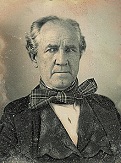

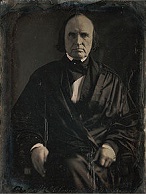


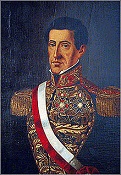
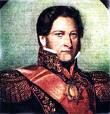
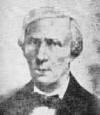







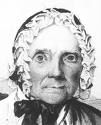







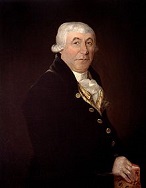
















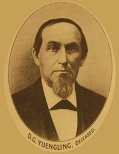
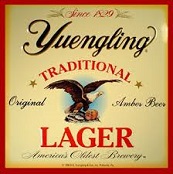

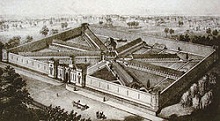

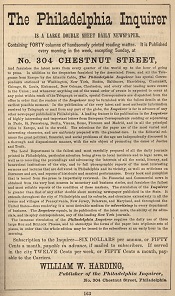
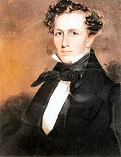
1829 On Jan. 19 Andrew Jackson leaves for Washington, D.C. on the steamboat Pennsylvania to assume the presidency. I'll go with Shirley Temple, final answer? Depression can turn you into a person you don't recognize? White, small and wrinkled, or, Sugar Daddy pays all the bills? On Jan. 22 36-y.-o. Sam Houston (1793-1863) and 18-y.-o. sweet young thing Eliza Allen (1811-) (daughter of a well-to-do planter) are married, but in less than 3 mo. something "private" happens to end the marriage and she returns to her parents' home; a week later on Apr. 16 the near-suicidal old man resigns as gov. of Tenn., ruining his chances for the presidency as his friend Jackson's successor, then hops a westward-bound steamboat in Nashville to Little Rock, Ark. on Apr. 23, lands on May 8, then hops another boat to Webber's Falls near the mouth of the Illinois River and moves back in with his Cherokee friends near Ft. Gibson (Muskogee, Okla.) to feel sorry for himself, until one day, seeing an eagle swoop near his head then fly into the setting sun, he sees a vision and decides to go W to Texas, telling a friend that he might "conquer Mexico or Texas, and be worth two millions in two years"; when Jackson hears of this and admonishes him, he pledges to do nothing to "injure, or involve my country"; settling with the Cherokees in Okla., he marries Cherokee widow (comfortable like an old mocassin?) Tiana Rogers and runs a successful trading post called Wigwam Neosho, becoming known as Ootsetee Ardeetahskee (Big Drunk). On Jan. 29 "resurrection man" William Burke (b. 1792) is executed in Edinburgh for serial murder after his partner William Hare (1792-1859) turns states' evidence on their racket of suffocating homeless children to sell to the Edinburgh School of Anatomy, leaving no marks behind; the affair causes the verb "burke" (smother or hush-up) to be coined, and legislation to be passed in 1832 providing medical schools with cadavers - burke you? On Jan. 30 conservative mayor of San Vicente Jose Maria Cornejo Merino y Guevara (1788-1864) succeeds Mariano Prado as pres. of El Salvador, withdrawing it from the Central Am. Federation, causing federal troops under Gen. Francisco Morazan to invade, depose him next Feb. 16, and put Prado back in power. Meanwhile, married white women deal with the issue of morals head-on? In Jan. the marriage of incoming U.S. war secy. (until 1831) John Henry Eaton (1790-1856) of Tenn. to notorious widow Margaret (Peggy) O'Neale Timberlake (1799-1879), daughter of Franklin House in Washington, D.C. causes a brouhaha among the wives of Jackson's other cabinet members, who refuse to receive her socially; Jackson defends Mrs. Eaton, as does new secy. of state Martin Van Buren (who resigned as gov. of New York), who uses the affair to his advantage in his rivalry with John C. Calhoun for Jackson's favor, especially as it is Calhoun's wife Floride who leads the haughty wives. On Feb. 2 after being approved by N.S.W. gov. Sir Ralph Darling last Nov. 4 to explore the Macquarie River region in W New South Wales, India-born British Capt. Charles Napier Sturt (1795-1869) discovers the 915-mi. snaky Darling River while looking for the great inland sea, returning to Wellington Valley on Apr. 21; next Jan. 7 he begins a 2nd journey (ends 1830), descending the Murrumbidgee and River and discovering the 1,558-mi. Murray River (Australia's longest river), following it to its confluence with the Darling River, proving that all W-flowing river flow into it, then following the Murray to its mouth past Lake Alexandrina, discovering a maze of sandbars that are impassable to shipping; after trying to row upstream and running out of supplies, which causes Sturt to go blind, they arrive in Sydney after traveling 2.9km by river. On Feb. 7 the ship Harriet sets out from the U.S. for Liberia with Muslim West African (Guinea) prince Abdul-Rahman (Abdulrahman Ibraham Ibn Sori) (b. 1762), who had been freed after being sold to slave traders in 1778 and enduring decades of slavery in the Am. South, along with 151 other passengers; too bad, he dies on the ship on July 6 - guess he forgot how hard the "from" trip had been? On Feb. 10 Pope (since 1823) Leo XII (b. 1760) dies, and on Mar. 31 Francesco Saviero Castiglione is elected Pope (#253) Pius VIII (1761-1830), continuing with the program of his predecessors. On Feb. 11 eccentric British amateur natural theologian Francis Henry Egerton, 8th Earl of Bridgewater (b. 1756), known for giving dinner parties for dogs dies, leaving £8K to support a series of books "on the power, wisdom, and goodness of God, as manifested in the Creation", which become known as the Bridgewater Treatises; the first is by William Buckland (1784-1856), England's first official academic geologist (later dean of Westminster). In Feb. an invasion of Gran Colombia by Peruvian forces is repulsed, causing Gen. Jose de Lamar to become the fall guy and get deposed on June 7 by a coup led by marshal Agustin (Agustín) Gamarra Messia (1785-1841), fleeing to exile in Costa Rica, while Gamarra becomes pres. #10 of Peru on Sept. 1 (until Dec. 20, 1833, then pres. #14 on Aug. 25, 1838-Nov. 18, 1841). Lucky number seven is the first American John Elway? On Mar. 4 (Wed.) "Old Hickory" (the hardest of woods) Andrew Jackson (1767-1845) of Tenn., AKA "the Hero of New Orleans", "King Andrew the First", "Mischievous Andy", "Sharp Knife" (Creek Indian nickname) becomes the lucky 7th U.S. pres. (until Mar. 4, 1837) in the 11th U.S. Pres. Inauguration in Washington, D.C. (first pres. to be sworn in on the U.S. Capitol steps after he refuses a parade, and the first former POW to be pres. after his 1781 experience); by now he has been involved in 103 duels and altercations, 14 times as principal); John C. Calhoun of S.C. begins his 2nd term as U.S. vice-pres. #7, resigning on Dec. 28, 1832 after 3 years 299 days; First Lady is not Rachel Donelson Robards Jackson (1767-1828), since she dies of a heart attack two weeks after the election on Dec. 22, and is buried on Christmas Eve in her white inauguration gown after 10K attend her funeral; Andy Jackson, wearing black in mourning over his wife delivers his inaugural address before a crowd of 15K-20K (one of the shortest ever), then makes it through them to the White House, but he's the first pres. of the common man, so they follow him right up the steps to the lower floor, smashing china and glassware and destroying furniture in their joy, causing Jackson to sneak out under a human shield while they party on, after which Louis S. Glanzman depicts the unruly mob in his 1970 painting "Andrew Jackson's Inauguration"; Mass.-born politician Amos Kendall (1789-1869) becomes the intellectual force behind his admin., working to transform the U.S. from an agrararian repub. to a capitalist nation; not to waste his new shine, Jackson immediately begins a war on the Second Bank of the U.S. (founded 1816), controlled by Nicholas Biddle, attacking it in his Dec. 8 (written) First Annual Message to Congress, then withdrawing govt. deposits from state banks, causing Daniel Webster to say that he "seeks to influence the poor against the rich"; he also mentions "setting apart an ample district west of the Mississippi" for pesky Injuns; Mo. Sen. Thomas Hart Benton (1782-1858) (great-uncle of the muralist) supports Jackson against the U.S. Bank, earning the title "Old Bullion" by his opposition to the issuance of paper currency - I can say I'm blessed to have been born in the backward 18th cent.? On Mar. 7 after being appointed by Pres. Jackson on Mar. 6, Morris County, N.J.-born, Warren County, Ohio-born U.S. postmaster gen. #6 (since 1823) John McLean (1785-1861) of N.J. becomes U.S. Supreme Court justice #21 (until Apr. 4, 1861) to replace Bushrod Washington (1798-1829) (last 18th cent. appointee to leave), leaving the court at seven members; he goes on to become known as "the politician on the Supreme Court" for his habit of switching from party to party, from Jacksonian dem. to anti-Jacksonian Dem., Anti-Mason, Whig, Free Soil, and finally Repub. On Mar. 11 Ralph Waldo Emerson is ordained as a Congregational minister in Boston, Mass. On Mar. 29 N.J.-born, Ga.-raised, Princeton-educated Jackson Dem. John MacPherson Berrien (1781-1856) becomes U.S. atty. gen. #10 (until June 22, 1831). On Apr. 13 after the threat of civil unrest led by Irish atty. Daniel O'Connell makes home secy. Robert "Orange Peel" Peel and PM the Duke of Wellington to give in, the Roman Catholic Relief (Emancipation) Act is given royal assent, repealing the 1672 Test Act and the Penal Laws resulting from the 1728 Irish Parliament Disenfranchising Act, granting emancipation to Roman Catholics in Britain, calming the Irish down by letting Roman Catholics sit in the British Parliament, although property reqts. (10 pounds instead of 40 shillings) for the counties greatly reduce the number of eligible Irish Catholic voters; the action, thought necessary to avoid a civil war is unpopular with the king and the English public, causing Wellington's admin. to tank; all 15 economists in Parliament vote to allow Roman Catholic MPs; meanwhile the Irish are still pissed off-for having to pay tithes to the Anglican Church in Ireland, forming the Ribbon Society to agitate against Orangemen. On Apr. 26 after Buenos Aires federalist militia chief (wealthy rancher) Juan Manuel de Rosas (1793-1877) leads peasants in a revolt against Gen. Juan Lavalle, he defeats him at the Battle of Puente de Marquez, and Rosas becomes gov. of Buenos Aires Province, becoming one of the first South Am. caudillos, ruling Argentina until 1852. On June 1 (Mon.) stylish poetic aristocratic Tory Henry John Temple, 3rd Viscount Palmerston (1794-1865) AKA Pam, who had remained in obscurity as British secy. of war from 1809-28 gives a brilliant speech in the House of Commons on foreign affairs, establishing his rep. and beginning his rise as he switches to Whig just in time for Lord Grey to make him foreign minister next year, which position he holds off and on until 1851, becoming known as Lord Pumice Stone for his abrasive style, and inventing gunboat diplomacy. On June 1 The Philadelphia Inquirer is founded in Philadelphia, Penn. by John Norvell (1789-1850) and John R. Walker, who sell it in Nov. to Jesper Harding (1799-1865), who merges it with the Daily Courier and obtains the first U.S. rights to several of Charles Dickens' novels incl. "Barnaby Rudge" and "Master Humphrey's Clock" and renames it "The Pennsylvania Inquirer and National Gazette" in 1845 before passing it to his son William White Harding in 1859, who increases circ. from 7K to 70K by 1863 before selling-out to British-born James Ellerson in 1889; the newspaper starts out supporting the Dem. Party then switching to the Whig Party and Repub. Party before going nonpartisan in the 1950s; in 1936-69 it is owned by the Annenberg family, who sells it to Knight Newspapers, by which time it trails its rival the "Philadelphia Evening Bulletin", but in the 1970s new owners hire new eds. and turn it into a top newspaper that wins 20 Pulitzer Prizes, with Time mag. listing it in the top-10 daily newspapers of 1984, becoming the 3rd oldest surviving daily newspaper in the U.S. On June 4 Capt. James Stirling, Thomas Peel et al. found the city of Perth in SW Australia on the Swan River (modern-day pop. 2M), which leads a precarious existence for many years because of insufficient immigration. In June Elvis is in the House, er, Joseph Smith Jr. (1805-44) announces the completion of his lone gunman translation, using the magic Urim and Thummim, of his secret, jealously-guarded heavenly Sun, er, golden recordings, er, plates that he allegedly dug up near his farm in Sept. 1827 into what he titles The Book of Mormon (Mohican?); his daddy Col. Parker, er, Joseph Smith Sr. (1771-1840) and seven other real unbiased and reliable backwoodsmen sign the Testimony of the Eight Witnesses, claiming to see and handle the magic plates (which are later conveniently taken away by an angel), proving their existence to umpteen million morons over the next ? cents., when the crazy quilt cult folds its tent?; meanwhile Joseph's mommy Lucy Mack Smith (1775-1856) backs her son all the way, becoming the original Elvis mom as he seduces, er, lawfully and devoutly marries 28 wives?; the life and works of Joseph Smith are a copycat of Islam and Muhammad? In July British (Cornish) inventor Sir Goldsworthy Gurney (1793-1875) tests his Goldsworthy Gurney Steam Carriage from London to Bath and back, averaging 14 mph; after passengers are reluctant to use it for fear of the scary steam boiler, he invents the Gurney Steam Drag, a harness to tether the carriage to the engine; too bad, he sends one by sea to Leith and it is damaged in transit, later blowing up and injuring two, ruining his biz; later, when lt. col. Sir Charles Dance tries to use his carriages to set up a regular service between Cheltenham and Gloucester, jealous horse coach proprietors get Parliament in 1831 to pass a special heavy £2 toll on steam carriages (vs. 2 shillings for theirs), killing it, driving Gurney into bankruptcy in 1831, causing the House of Commons to create a select committee in 1831-5 to convince the public that steam carriages are the best way to go. On Aug. 15-22 the anti-black 1829 Cincinnati Riots in Ohio drive half the black pop. away. On Aug. 16 the Thai-born "Siamese twins" Chang and Eng Bunker (1811-74) arrive in Boston, Mass. from Bangkok on the Sachem (captain Abel Coffin) to be exhibited to the Western world - the beginning of Thailand's rep for kinky sex? On Sept. 29 the Metropolitan Police Act of 1829, introduced by Sir Robert Peel establishes a police force in Greater London (except the City of London), with a centralized London Metropolitan Police Dept. at Four Whitehall Place, the street behind it being Scotland Yard Lane, causing it begin to be called Scotland Yard; the 1K constables are nicknamed Bobbies and Peelers, starting out unpopular but becoming successful at reducing crime, causing all cities in Britian to be directed to form their own police forces in 1835; first in a series of acts, incl. 1839, 1856, 1860, 1861, 1864, 1886, 1887, and 1899; the Nine Peeling Principles of Policing, ethical rules for Bobbies are established, with the motto "The police are the public, and the public are the police" (a fake list compiled ex-post facto by 20th cent. armchair scholars?). In Oct. the Rainhill Trials prove the power and reliability of George Stephenson's Rocket locomotive, and show the potential of passing up the stagecoach as the fastest form of transport when he wins the £500 prize. In Oct. Lyons-born Charles Philipon (1800-61) founds the satirical mag. La Silhouette in Paris (until 1830), the first pub. to feature prints and illustrations, with political satire incl., making Philipon the father of political caricature. On Nov. 26 (Thanksgiving) Presbyterian minister Lyman Beecher (1775-1863) (father of "Uncle Tom's Cabin" author Harriet Beecher Stowe and co-founder of the Am. Bible Society) gives a lecture in Boston, Mass. against atheism "dedicated to the working men of America", resulting in pub. of his anti-atheist Lectures on Political Atheism, lamenting how Scottish freethinker feminist abolitionist Frances "Fanny" Wright (1795-1852) (who lectured in Boston in July-Aug.) had "won over the educated, refined women... and worst of all, women who had been friends to his own children". On Dec. 11 Ferdinand VII (b. 1833) of Spain marries 4th wife Maria Christina of Bourbon (1806-78) of Naples, who becomes queen consort of Spain (until 1833), and has two daughters (infantas), Isabella II (1830-1904) and Maria Luisa Fernanda (1832-97), proving to have leather balls as she fights for her daughter Isabella II to keep the throne despite opposition from the skirt-on-throne-hating Roman Catholic Church and its backers. On Dec. 14 English economist Thomas Attwood (1783-1856) founds the Birmingham Political Union to demand parliamentary reform. Will Russia ever? Only her hairdresser knows for sure While England under PM (1828-30) Wellington wavers, Russian troops in Turkey force a win, capturing the Turkish city of Edirne (Adrianople) (until 1913), ending the War of Greek Independence (begun 1821) and Russo-Turkish War (begun 1828), with the Turkish Porte folding and agreeing to the Treaty of Adrianople (Edirne); the Greeks win independence from the Sick Man Ottoman Empire; Russia secures control of the mouths of the Danube; Ottoman satellites Moldavia and Wallachia (modern-day Romania) become autonomous Russian protectorates under nominal Ottoman control, with the Phanariot system (begun 1711) ended; Russia becomes allies with Greece and unacknowledged suzerain of Moldavia and Wallachia, pissing-off the Euro powers; England loses the friendship of Turkey while losing prestige in Greece, causing liberals in England along with the gen. public to become disgusted with Wellington's admin. Pres. Guerrero of Mexico is overthrown by Gen. Anastasio Bustamante (1780-1853); slavery is abolished in Mexico; too bad, the gringos in Texas want to keep their slaves, giving them an excuse for secession. Manuel Jose Arce is overthrown by the Morazan rev. army. Mahmud Shah Durrani dies, and his son Kamran Shah Durrani (-1842) becomes ruler of Afghanistan in Herat (until 1842). Irish political leader Daniel O'Connell begins efforts to repeal the hated British-Irish Act of Union of 1707. Venezuela withdraws from Gran Colombia and becomes independent. The Dagohoy Rebellion (begun 1744) in the Philippines is finally subdued, and the 19,420 survivors of the rebel mountain hideout are pardoned. A smallpox epidemic in Piedmont and Liguria isn't stopped by widespread vaccinations. Whites discover gold on Cherokee lands and trespass at will, causing the Cherokees go to the U.S. Supreme Court to seek white relief. Tenn. Rep. James K. Polk becomes Andrew Jackson's floor leader in the House in the fight against the National Bank. Sir John Ross (1777-1856) of Scotland and his nephew Sir James Clark Ross (1800-62) begin a voyage in N Canada (ends 1833). The Hindu custom of suttee (Hindu wives being immolated with their dead husbands) is outlawed in some Indian states under British control. The word "towhead" is coined for a blonde-haired person because their hair resembles flax. The word "nightmare" is first used to refer to unfortunate dreams rather than a goblin that comes in the night. Gottfried Duden returns to Germany from the U.S. and pub. a report stimulating the first settlement of Germans W of the Mississippi River, esp. Missouri. Construction begins on Ft. Sumter in Charleston, S.C. harbor. The village of Tijuana (modern-day pop. 1.7M) is founded in Baja Calif. Norte as Rancho Tia Juana (Aunt Jane Ranch); the city is founded on July 11, 1889 - not to be confused with Alta Calif.? The Providence Journal (ProJo) is founded in Providence, R.I. by "Honest" John Miller, later billing itself as "America's oldest daily newspaper in continuous publication" after "The Hartford Courant" (founded 1764) doesn't become a daily until 1837, and "The New York Post" suspends pub. during the newspaper strikes of 1958 and 1978. The first cooperative stores in the U.S. are opened in Philly and New York City. The American Inst. is incorporated in New York City "for the encouragement of agriculture, commerce, manufactures, and the arts", and begins holding annual fairs which are a precursor to the world's fair. The Delaware and Hudson Railroad, operated by gravity opens; plans are in works to add a locomotive. McGill U. is founded in Montreal, Lower Canada on Burnside Place at the foot of Mount Royal, chartered by George IV of Britain and named for Sottish-born Montreal merchant James McGill (1744-1813), who left a bequest in his will. George Stephenson's Bolton and Leigh Railway opens as the first public railway in Lancashire, England to service the coal pits. Sandalwood is disovered in Eromanga in the New Hebrides islands. Fabian Gottlieb Bellinghausen is promoted to vice-adm. for his participation in the military operations at Varna, and placed in command of the Russian Black Sea fleet, later becoming an adm. J.N. Niepce, inventor of the Heliograph teams up with French entrepreneur Louis Daguerre. Baptist Georgetown College is founded in Georgetown, Ky. by the Ky. Gen. Assembly. The fortnightly lit.-political review Revue de Deux Mondes (Review of the Two Worlds) is founded in Paris, France. The Royal Zoological Society of Britain takes over the menagerie at the Tower of London, founding London Zoo at Regent's Park. German naturalist Alexander von Humboldt (1769-1859) travels to the Chinese border. Robert E. Lee graduates #2 in his class at West Point - #2 - the story of his life? French Romantic poet Alphonse de Lamartine (1790-1869) is elected to the Academie Francaise. Polish child prodigy pianist Frederic Chopin (1810-49) debuts in Vienna. German child prodigy Felix Mendelssohn (1809-47) rediscovers J.S. Bach's "St. Matthew Passion" at the Berlin Singakademie 100 years after its first (Good Friday) performance in 1729, and directs the first performance since Bach's death, launching his career as a pianist and conductor. King's College in London is founded by George IV. Tullamore Dew blended Irish whiskey is first manufactured in Tullamore, County Offaly, Ireland. D.G. Yuengling & Son Brewery (originally Eagle Brewery until 1873) is founded in Pottsville, Penn. by Aldingen (near Stuttgart), Germany-born David Gottlieb Jungling (Jüngling) (Yuengling) (1808-77) (Ger. "young man"), surviving Prohibition by producing neer beers and running a dairy, celebrating the end of Prohibition by creating Winner Beer and shipping a truckload to the White House; in 1977 after the 1976 U.S. Bicentennial gives them a sales boost, they acquire Mount Carbon Brewery in 1977; in 1985 it is listed in the Nat. Register of Historic Places as the oldest brewery in the U.S.; in 1987 it introduces amber Yuengling Traditional Lager, which becomes a hit, producing 138K barrels in 1990, 80% of the total, sold in 22 oz. "deece bomber" bottles; the main market is in the Delaware Valley (Penn., S N.J.), New York, Ind., Ky., Ga., Fla., Ala., and Tenn.; in 2011 it ties Boston Beer Co. as the largest Am.-owned brewery (2.8M barrels). Sports: On Mar. 12 the first springtime Oxford and Cambridge Boat Race on "Old Father Thames" is inagurated with a challenge by Cambridge to Oxford, then run at Henley, and Oxford wins; the race is later moved downriver to between Putney and Mortlake, where 8-man crews cover the 4 mi. in under 20 min., and Henley continues to host a summer 1-mi. royal regatta. Architecture: Coney Island House becomes the first hotel on Coney Island, N.Y. Eastern State Penitentiary in Philadelphia, Penn. opens, pioneering the Separate (Penn.) System based on separation of inmates in 4-8 radiating (wagon wheel) wings of prison blocks around a central hall, with prisoners required to wear masks and work inside their cells, known as the Penn. (Separate) System, which becomes influential with other prisons; celeb prisoners incl. Al Capone and Willie Sutton; it closes in 1971. Sultan Mahmud II builds the 190-ft. Mahmudiye, the world's biggest ship, carrying 128 cannon on 3 decks (decommissioned 1875). Inventions: On Jan. 14 James Simpson builds the first 1-acre Sand Filtration Plant for Water in Chelsea, London on the N bank of the Thames River. Louis Braille (1809-52) pub. his invention of 6-dot Braille. William Austin Burt of Detroit, Mich. receives the first U.S. patent on a typewriter. Johann Nikolaus von Dreyse (1787-1867) of Germany invents the breech-loading Needle Gun, which fires much faster than muzzle-loaders. French printer Claude Genoux invents the paper-mache (mashed paper) method of stereotyping. Conn. vegetarian Presbyterian minister Sylvester Graham (1794-1851) invents Graham Crackers (Bread), emphasizing the elimination of that sick white flour that is bleached with horrible chemicals chlorine and alum. Am. physicist John Henry (1797-1878) invents an electromagnetic motor. Sir Charles Wheatstone patents the Concertina. Omnibuses, designed by George Shillibeer (1797-1866) begin operation in London. Josef Ressel, inventor of the ship propeller attains a speed of six knots with his screw-propeller driven speedboat Civetta in Trieste. Science: French scientist Gaspard-Gustave de Coriolis (1780-1843) becomes the first to call the product of force and distance "work", and to point out that it is more convenient to speak of one-half of m times v squared for kinetic energy. German chemist Johann Wolfgang Dobereiner (Döbereiner) (1780-1849) pub. the existence of a simple relationship among the atomic weights of elements having similar properties - he's got the columns but not the rows? Science reaches a new plateau? Belgian physicist Joseph Antoine Ferdinand Plateau (1801-83) discovers Stroboscopic Movement; in 1832 he invents the Phenakistoscope (spindle-viewer), the first moving picture device. Czech physiologist Jan Evangelista Purkinje describes the effects of camphor, opium, belladonna, and turpentine on humans. Geneva-born French mathematician Jacques Charles Francois Sturm (1803-55) of France discovers Sturm's Theorem for finding the number of distinct real roots of a polynomial. Nonfiction: Thomas Carlyle (1795-1881), Signs of the Times. Lydia Maria Child (1802-80), The American Frugal Housewife. Gaspard Gustave Coriolis (1792-1843), Calculation of the Effect of Machines ' (Calcul de l'Effet des Machines); coins the term "work" for force times distance, and gives the formula 1/2 * mv^2 for kinetic energy. Allan Cunningham (1784-1842), Lives of the Most Eminent British Painters, Sculptors, and Architects (6 vols.) (1829-33). Dorothea Dix (1802-87), The Garland of Flora; pub. anon. Francois Marie Charles Fourier (1772-1837), Le Nouveau Monde Industriel et Societaire. Christian Dietrich Grabbe (1801-36), Don Juan and Faust. Godfrey Higgins (1772-1833), An Apology for the Life and Character of the Celebrated Prophet of Arabia Called Mohamed, or the Illustrious - now I know he's nuts? Washington Irving (1783-1859), Chronicle of the Conquest of Granada. Charles Knowlton (1800-58), Elements of Modern Materialism: Inculcating the Idea of a Future State in Which All Will Be More Happy under Whatever Circumstances They May Be Placed Than If They Experienced No Misery in This Life. Nikolai Lobachevsky (1792-1856), Principles of Geometry - nothing like your father's old Euclid? James Mill (1773-1836), Analysis of the Phenomena of the Human Mind; turns his son John Stuart Mill on to psychology. Pellegrino Rossi (1787-1848), Traite de Droit Penal. Robert Southey (1774-1843), Sir Thomas More; or, Colloquies on the Progress and Prospects of Society. Philip Stanhope, 5th earl Stanhope (1805-75), The Life of Belisarius. William Tudor (1779-1830), Gebel Teir; pub. anon.; a satire in which the U.S., U.K., France, Spain, and the Elysian Fields are represented by a council of birds. David Walker (1796-1830), Appeal to the Coloured Citizens of the World; free black activist in Boston, Mass. pub. a pamphlet espousing black nationalism, terrifying slave owners with its appeal to blacks to empower themselves. Music: Vincenzo Bellini (1801-35), La Straniera (opera) (Feb. 14) (La Scala, Milan); Zaira (opera) (May 16) (Teatro Ducale, Parma). Francois Adrien Boieldieu (1775-1834), Les Deux Nuits (comic opera) (Paris). Fromental Halevy (1799-1862), Clari (opera); stars Maria Malibran; Le Dilettante d'Avignon (opera). Heinrich Marschner (1795-1861), Der Templer und die Judin (Jüdin), Op. 60 (The Templar and the Jewess) (opera) (Stadttheater, Leipzig) (Dec. 22); based on Sir Walter Scott's 1819 novel "Ivanhoe"; his biggest hit, with 200+ perf. in Germany by the end of the cent. Gioacchino Rossini (1792-1868), William Tell (Guillaume Tell) (opera) (Salle Le Pelletier, Paris) (Aug. 3); his 39th and last opera at age 37; libretto by Etienne de Jouy and Hippolyte Bis; based on Friedrich Schiller's play "William Tell", set in Lake Lucerne; incl. The William Tell Overture, incl. "March of the Swiss Soldiers" (used as the theme of "The Lone Ranger"). Art: Karl Eduard Blechen (1798-1840), Villa d'Este Park in Tivoli (1829-32); inaugurates landscape realism in German painting. Hokusai (1760-1849), The Great Wave Off Kanagawa (1829-33); #1 in "36 Views of Mount Fuki"; his masterpiece? Sir Edwin Henry Landseer (1802-73), Low Life. J.M.W. Turner (1775-1851), Ulysses Deriding Polyphemus. Plays: Casimir Delavigne (1793-1843), Marino Faliero. Alexandre Dumas pere (1802-70), Henry III and His Court (Henry III et Sa Cour) (Comedie-Francaise); his first big hit; causes his patron the Duke of Orleans (future king) to appoint him librarian of the Palais Royal. Victor Hugo (1802-85), Marion Delorme. John Augustus Stone (1801-34), Metamora; or, The Last of the Wompanoags (Dec. 15) (Park Theater, New York); about heroic King Philip of Pokanoket and the mean Puritans, er, mean King Philip and the heroic Puritans; stars Edwin Forrest; starts a fad for Indian plays, along with the convention for the fake Injun dialect ("a curious mixture of Ossian and the real Indian speech"). Poetry: Anon., Little Tommy Tucker; "Little Tom Tucker sings for his supper/ What shall he eat? White bread and butter/ How will he cut it without any knife?/ How will he be married without any a wife?"; causes the term "Little Tommy Tucker" to be used for orphans. James Hogg (1770-1835), The Shepherd's Calendar. Adam Mickiewicz (1798-1855), Konrad Wallenrod. Thomas Moore (1779-1852), Cash, Corn, Catholics, and Other Matters. August von Platen (1796-1835), Der Romantische Oedipus; disses Heine for his obsession with the Orient, beginning the "Von Platen Affair" as they go at each other in their works. Edgar Allan Poe (1809-49), Al Araaf, Tamerlane, and Other Poems; self-pub.; Sonnet to Science; how Science destroys beauty. Alexander Pushkin (1799-1837), Poltava; about Cossack leader Ivan Mazepa and the 1709 Battle of Poltava. Alfred, Lord Tennyson (1809-92), Timbuctoo. Jose Maria Blanco White (1775-1841), Night and Death (Mysterious Night); "Mysterious Night! When our first parent knew/ Thee, from report divine, and heard thy name,/ Did he not tremble for this lovely Frame/, This glorious canopy of Light and Blue?/ ... If Light can thus deceive, wherefore not Life?" Novels: Edward George Bulwer-Lytton (1803-73), Devereux. Johann Wolfgang von Goethe (1749-1832), Wilhelm Meisters Wanderjahre (Wilhelm Meister's Year of Travel) (2nd vers.). Gerald Griffin (1803-40), The Collegians; middle-class Irish. Victor Hugo (1802-85), Le Dernier Jour d'un Condamne. James Kirke Paulding (1778-1860), Tales of the Good Woman, by a Doubtful Gentleman. Thomas Love Peacock (1785-1866), The Misfortunes of Elphin. Sir Walter Scott (1771-1832), Anne of Geierstein; or, The Maiden of the Mist. Karl Spindler (1796-1855), Der Jesuit. Births: Italian actor Tommaso Salvini (d. 1915) on Jan. 1 in Milan; father of Alessandro Salvini (1861-96); inspires Constantin Stanislvski in 1882. English celeb (Roman Catholic) Sir Roger Charles Doughty Tichborne (d. 1854) on Jan. 5 in Paris; descendant of Sir Benjamin Tichborne, sheriff of Southampton, created baronet in 1621 by James I; his crazy momma starts the celebrated Arthur Orton (1834-98) affair. Anglo-Irish "Society" dramatist Thomas William Robertson (d. 1871) on Jan. 9 in Newark-upon-Trent, Nottinghamshire. English Salvation Army co-founder ("Mother of the Salvation Army") Catherine Mumford Booth (d. 1890) on Jan. 17 in Ashbourne, Derbyshire; wife (1855-) of William Booth (1829-1912). Swedish king (1872-1907) and Norwegian king (1872-1905) Oscar II (d. 1907) on Jan. 21 in Stockholm; 3rd son of Oscar I (1799-1859) and Josephine of Leuchtenberg; maternal descendant of Gustav I (1496-1560); brother of Charles XV (1826-72); father of Gustav V (1858-1950). Swiss botanist Simon Schwendener (d. 1919) on Feb. 10 in Buchs, St. Gallen; educated at the U. of Zurich. Am. physician-writer Silas Weir Mitchell (d. 1914) on Feb. 15 in Philadelphia, Penn.; educated at the U. of Penn. Am. historian Ephraim Whitman Gurney (d. 1886) on Feb. 18 in Boston, Mass.; educated at Harvard U. Am. "Our American Cousin", "Rip Van Winkle" stage actor and landscape painter Joseph Jefferson (d. 1905) on Feb. 20 in Philadelphia, Penn.; 4th-gen. actor; makes first stage appearance at age 3 as Cora's child in August von Kotzebue's "Pizarro". French Wallace Fountains sculptor Charles-Auguste Labourg (d. 1906) on Feb. 20 in Nantes; student of Francois Rude. Scottish politician-writer (gov. of Madras in 1881-6) Sir Mountstuart Elphinstone "M.E." Grant Duff (d. 1906) on Feb. 21 in Eden, Aberdeenshire; son of James Grant Duff (1789-1858); educated at Balliol College, Oxford U. Am. politician and Union Civil War Gen. Carl Schurz (d. 1906) on Mar. 2 in Liblar (Erfstadt) (near Cologne), Germany; emigrates to the U.S. in 1852; first German-Am. to enter the U.SSenate (R-Mo.) (1869-75). English "History of the Great Civil War" historian Samuel Rawson Gardiner (d. 1902) on Mar. 4 near Alresford, Hants; educated at Winchester College, and Christ Church, Oxford U.; descendant of Oliver Cromwell and Henry Ireton. Am. entrepreneur George Francis Train (d. 1904) on Mar. 24 in Boston, Mass. French Provencal Felibrige poet Theodore Aubanel (d. 1886) on Mar. 26 in Avignon. Canadian theologian (Congregationalist-turned-Anglican) Rev. William Robinson Clark (d. 1912) on Mar. 26 in Daviot, Averdeenshire, Scotland; educated at King's College, Aberdeen, and Magdalen Hall, Oxford U.; emigrates to Canada in 1882. Am. atty.-politician and Union Col. Sullivan A. Ballou (d. 1861) on Mar. 28 in Smithfield, R.I.; French Huguenot immigrant parents; educated at Phillips Academy. English Methodist Salvation Army founder (1865) "General" William Booth (d. 1912) on Apr. 10 in Sneinton, Nottingham; husband (1855-) of Catherine Mumford Booth (1829-90); father of VOA founder Ballington Booth (1858-1940), and Evangeline Cory Booth (1865-1950). Austrian surgeon Albert Christian Theodor Billroth (d. 1894) on Apr. 26 in Bergen, Riigen; of Swedish descent. German-Austrian geologist Christian Gottlieb Ferdinand Ritter von Hochstetter (d. 1884) on Apr. 30 in Esslingen, Wurttemberg; son of Christian Ferdinand Friedrich Hochstetter (1787-1860); educated at the U. of Tubingen. Brazilian Romantic novelist-dramatist-lawyer Jose Martiniano de Alencar (d. 1877) (AKA Erasmo) on May 1 in Fortaleza. English Pre-Raphaelite painter Anthony Frederick Augustus Sandys (d. 1904) on May 1 in Norwich. Am. pianist-composer (Jewish) Louis Moreau Gottschalk (d. 1869) on May 8 in New Orleans, La.; English Jewish father, white Haitian Creole mother. English Pre-Raphailite painter Sir John Everett Millais (d. 1896) on June 8 in Southampton; created baronet in 1885; husband of Euphemia "Effie" Gray (1855-). Am. pandiculating Chiricahua Apache Indian medicine man and leader Geronimo (Goyathlay) ("he who yawns") (d. 1909) on June 16 in Arizpe, Sonora, Mexico near Turkey Creek, Ariz.; father is Tablishim, mother is Juana, both of the Bedonkohe band of Apaches; gets the name Geronimo from Spanish soldiers crying "San Geronimo" (St. Jerome) in anguish? Am. businessman William Backhouse Astor Jr. (d. 1892) on July 12; younger son of William Backhouse Astor Sr. (1792-1875); brother of John Jacob Astor III (1822-90); grandson of John Jacob Astor; educated at Columbia College; husband (1853-) of "the Mrs. Astor" Caroline Webster Schermerhorn Astor (1830-1908); father of John Jacob Astor IV (1864-1912). English archbishop of Canterbury (1882-96) Edward White Benson (d. 1896) on July 14 near Birmingham; educated at Trinity College, Cambridge U.; father of Arthur Christopher Benson (1862-1925). U.S. Rep. (R-R.I) (1881-5) and Sen. (1885-9) Jonathan Chace (d. 1917) on July 22 in Fall River, Mass. Am. combine inventor and Methodist Chautauqua co-founder Lewis Miller (d. 1899) on July 24 in Ohio. Belgian PM #14 (1884-94) (Roman Catholic) Auguste Marie Francois Beernaert (d. 1912) on July 26 in Ostend. Am. Civil War Union gen. and U.S. Rep. (R-Ohio) Thomas Ewing Jr. (d. 1896) on Aug. 7 in Lancaster, Ohio; son of Thomas Ewing Sr. (1789-1871); brother of Charles Ewing (1835-93) and Hugh Boyle Ewing (1826-1905); brother-in-law of William Tecumseh Sherman; educated at Brown U. Am. sheriff William J. Brady (d. 1878) on Aug. 16 in Breifne, Ireland; emigrates to the U.S. in 1849. Am. "By Dawn's Early Light" painter Edward Moran (d. 1901) on Aug. 19 in Bolton, Lancashire, England; emigrates to the U.S. in 1844. German mathematician (Jewish) Moritz Benedikt Cantor (d. 1920) on Aug. 23 in Mannheim; parents emigrated from Portugal; educated at the U. of Heidelberg. Am. abolitionist physician Maria Elizabeth Zakrzewska (d. 1902) on Sept. 6 in Berlin, Germany; of Polish descent; emigrates to the U.S. in 1853. German organic chemist Friedrich August Kekule (Kekulé) von Stradonitz (d. 1896) on Sept. 7 in Darmstadt, Hesse; educated at the U. of Giessen; student of Justus von Liebig (1803-73); originator of the concept of the tetravalent carbon bond and the ring structure of benzene. German "Hafiz at the Fountain" classicist painter Anselm Friedrich Feuerbach (d. 1880) on Sept. 12 in Speyer, Bavaria; son of Joseph Anselm Feuerbach; grandson of Paul Johann Anselm Ritter von Feuerbach (1775-1833). Am. "The Gilded Age" novelist-essayist Charles Dudley Warner (d. 1900) on Sept. 12 in Plainfield, Mass.; of Puritan ancestry; educated at Hamilton College, and U. of Penn. Madagascar king (1861-3) Radama II (d. 1863) on Sept. 23 in Antananarivo; son of Ranavalona I. English Pre-Raphaelite Brotherhood writer-critic William Michael Rossetti (d. 1919) on Sept. 25 in London; son of Gabriele Rossetti (1783-1854); brother of Maria Rossetti (1827-76), Dante Gabriel Rossetti (1828-82), and Christina Georgina Rossetti (1830-94). Am. "Cupid's Yokes" anarchist-abolitionist-feminist-freethinker Ezra Hervey Heywood (d. 1893) on Sept. 29. U.S. Repub. pres. #21 (1885) and vice-pres. #20 (1881-5) Chester Alan Arthur (d. 1886) on Oct. 5 in Fairfield, Vt.; son of a traveling minister; graduates from New York's Union College at age 18. Am. astronomer (1877 discoverer of Deimos and Phobos) Asaph Hall (d. 1907) on Oct. 15 in Goshen, Conn. U.S. Sen. (R-N.Y.) (1867-81) Roscoe "Lord" Conkling (d. 1888) on Oct. 30 in Albany, N.Y. Am. Gen. Mills co-founder John Crosby (d. 1888) on Nov. 1 in Hampden, Maine. Am. "Recollections of a Rogue" writer-painter-soldier (Glanton Gang member) Samuel E. Chamberlain (d. 1908) on Nov. 27 in Center Harbor, N.H.; grows up in Boston, Mass. Russian composer-conductor-pianist (Jewish) (rival of Franz Liszt) Anton Grigorevich Rubinstein (d. 1894) on Nov. 28 in Ofatinti, Moldavia; converts to Greek Orthodox at age 4; his portrait bears a striking resemblance to Ludwig von Beethoven?; brother of Nikolai Rubinstein (1835-81). Am. "When Johnny Comes Marching Home" composer-bandmaster Patrick Sarsfield Gilmore (d. 1892) on Dec. 25 in Gallygar, County Galway, Ireland; emigrates to the U.S. in 1850. Am. "The Impending Crisis of the South" abolitionist writer Hinton Rowan Helper (d. 1909) on Dec. 27 in Rowan (Davie) County, N.C. Am. poet ("Poet Laureate of the Confederacy") Henry Timrod (d. 1867) on Dec. 28 in Charleston, S.C.; of German parentage (Dimroth); friend of Paul Hamilton Hayne (1830-86). English 7'6" giant Arthur Caley (d. 1853) in Sulby. Dutch poet-clergyman Petrus Augustus de Genestet (d. 1861) in Amsterdam. English "Piccadilly" novelist-writer Laurence Oliphant (d. 1888); son of Sir Anthony Oliphant (1793-1859). Hungarian playwright Karoly Szasz (Károly Szász) (d. 1905) in Nagyenyed. Italian philologist (Jewish) Graziadio Isaia Ascoli (d. 1907) in Gorz, Austria; originator of the Substratum Theory. Am. atty.-writer John Phillips Quincy (d. 1910); son of Josiah Quincy IV (1802-82); bugs out of the family tradition by not becoming mayor of Boston? Am. Campbell Soup Co. co-founder Abraham Anderson (d. 1915); partner of Joseph Albert Campbell (1817-1900). Deaths: Am. colonialist lawyer Daniel Leonard (Massachusettensis) (b. 1740) on June 27 in London, England; dies after revealing his identity in 1821. French naturalist Jean-Baptiste de Lamarck (b. 1744) on Dec. 18 in Paris. U.S. Supreme Court chief justice #1 (1789-95) John Jay (b. 1745) on May 17 in Bedford, N.Y. Am. statesman Timothy Pickering (b. 1745) on Jan. 29 in Salem, Mass. Am. Rev. War gen. Peleg Wadsworth (b. 1748) on July 18 in Hiram, Maine. French Creole fur trader Rene Auguste Chouteau Jr. (b. 1749) on Feb. 24 in St. Louis, Mo. Am. Rev. War Gen. and U.S. war secy. (1801-9) Henry Dearborn (b. 1751) on June 6 in Roxbury, Mass.; namesake of Dearborn, Mich., and Ft. Dearborn, Ill. German Romantic painter Johann Heinrich Wilhelm Tischbein (b. 1751) on Feb. 26 in Eutin. Czech philologist Josef Dobrovsky (b. 1753) on Jan. 6 in Brno. French politician Paul Barras (b. 1755) on Jan. 29. Spanish adm. Baltasar Hidalgo de Cisneros (b. 1756) on June 9 in Cartagena. Polish actor-playwright Wojciech Boguslawski (b. 1759). U.S. Supreme Court justice #11 (1798-1829) Bushrod Washington (b. 1762) on Nov. 6 in Philadelphia, Penn. English chemist James Smithson (b. 1765); bequeathes £100K to the U.S. to found an institution "for the increase and diffusion of knowledge", leading to the 1846 Smithsonian Institution. British gen. Sir Henry Clinton (Jr.) (b. 1771) on Dec. 11. Russian gen. Nikolai Raevsky (b. 1771) on Sept. 16 in Kiev. German philosopher-critic Friedrich von Schlegel (b. 1772) on Jan. 12 in Dresden. English scientist Thomas Young (b. 1773) on May 10 in London. English chemist Sir Humphry Davy (b. 1778) on May 29 in Geneva, Switzerland (laughing gas OD?). English portraitist George Dawe (b. 1781) on Oct. 15 in Kentish Town. Italian guitar virtuoso Mauro Giuliani (b. 1781). Irish poet Jeremiah Joseph Callanan (b. 1795). Russian 1-hit wonder playwright-diplomat Alexander Griboedov (b. 1795) on Feb. 11 in Tehran, Iran (killed by an anti-Armenian mob at the Russian embassy); Alexander Pushkin stops the carriage with his mutilated body in Dilijan, Armenia en route to Tiflis, and the Soviets later erect a monument there; to prevent retaliation, the Persian shah presents the Russian tsar with the 88.7 carat yellow Shah Diamond (found in C India in 1450); he is buried in the sacred Mtazminda Cemetery in Tbilisi; his big hit "The Woes of Wit" is first pub. in 1833. Am. atty. (son of J.Q. Adams) George Washington Adams (b. 1801) on Apr. 30 between Providence, R.I. and New York City (suicide); jumps from the Benjamin Franklin; his body washes up on shore on June 13. Norwegian mathematician Niels Henrik Abel (b. 1802) on Apr. 6 - the good die young?